"Lost You Forever" Clearing the Fog, Seeking the Truth (Twenty-Three) — Xiangliu, the Slave and Slave Master of the Death Arena and Their Covenant of "Bearing Responsibility for All Living Beings"
“Give a specific explanation for this sentence.”
“Two people stand on the bridge, colorful lanterns.”
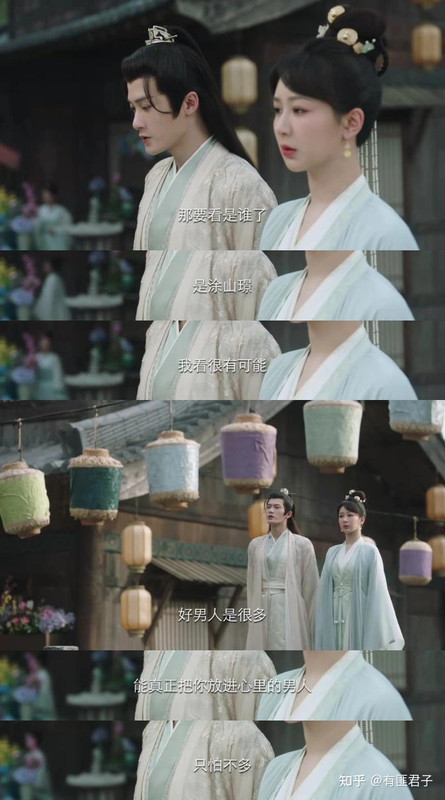
“The last time, two people stood on the bridge, hanging colorful lanterns.”
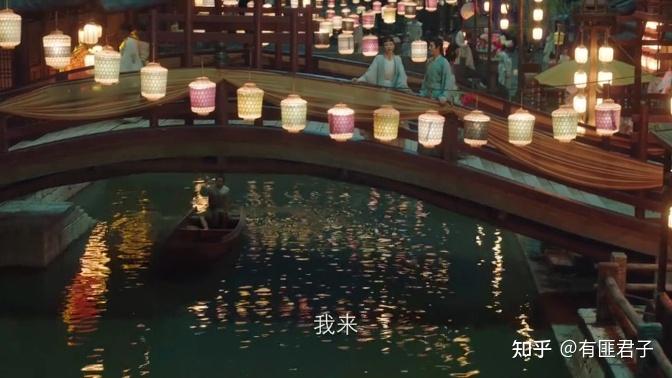
“This Tushan Jing is transformed from Xiangliu.”
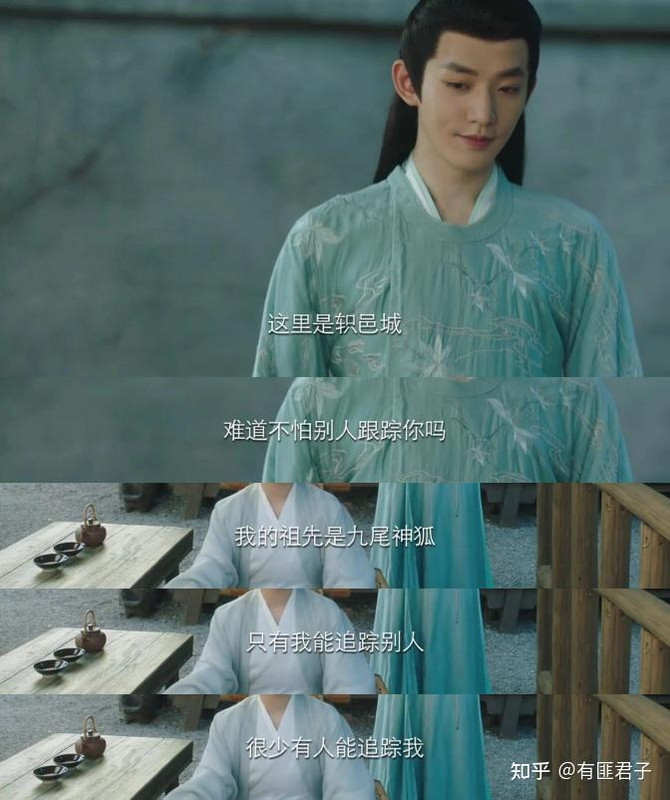
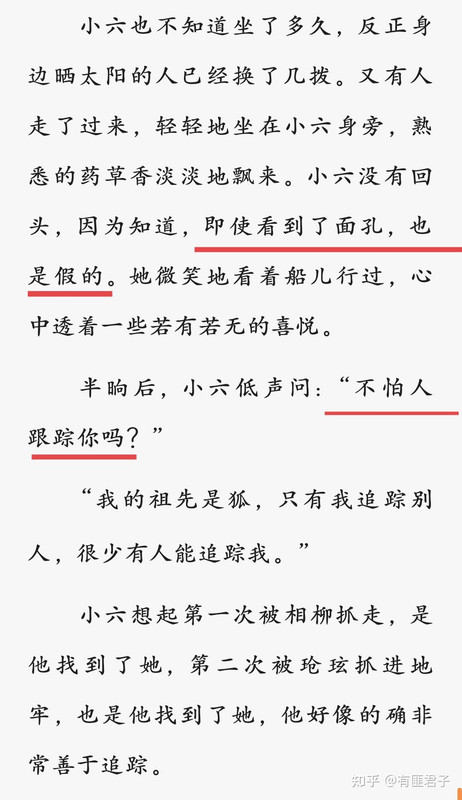
(The combination of the book and drama clearly shows that it was Xiangliu who transformed. Xiangliu told Xiaoyao that the wooden house for healing and the escape to Haoling were both betrayals by Tushan Jing.)
So, what Xiangliu means is that the man who truly holds Xiaoyao in his heart is himself. The person Xiaoyao may never forget in her lifetime is him. But he’s too shy to say it himself and uses “that someone” as a substitute, referring to the fox.
To cover up their secret relationship, Xiaoyao has always used Jing to represent Liu, calling “that fox.” They blame everything on the fox; the fox is their family’s code word.
Reading this far, you will find that the logic of Lost You Forever is not chaotic at all; instead, it is tightly connected and makes perfect sense.
In the next episode, we will look at Fangfeng Bei’s forced marriage and why Xiangliu refuses to take Xiaoyao away.
Hongjiang saved Xiangliu, spending effort and care to nurture the demon into a human and to cultivate divinity in the beast.
Did Hongjiang do this in order to send him to his death?
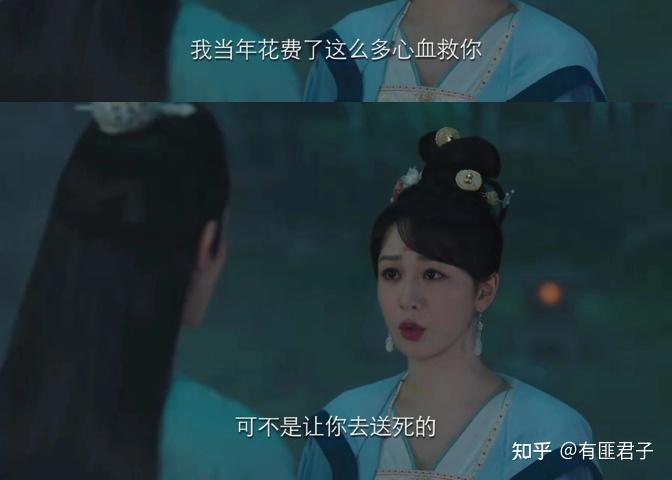
[I spent so much effort saving you back then,
not to send you to your death.]
The Origins of the Guifang Clan
Xiangliu holds the “Two-Headed Snake” clan token of the Guifang clan. The Guifang clan’s “Time Lantern” takes the form of double snakes, and the masked figure wielding a snake-shaped blade carries out rebel missions.
The TV drama uses props to show us that the Guifang clan is related to snakes.
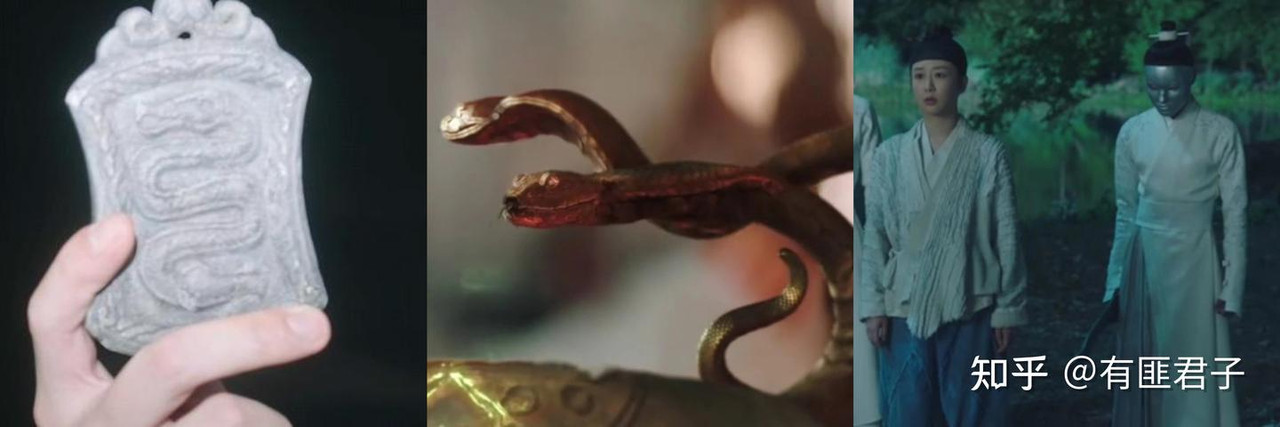
Snakes and Mythological Prototypes
The ancestral gods with human heads and snake bodies, Fuxi and Nuwa, depicted in silk paintings.
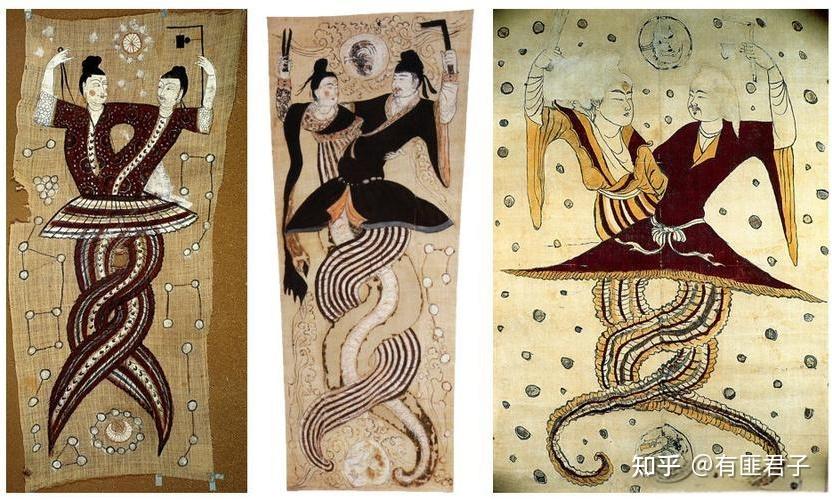
The Prototypes of the Characters Hongjiang and Xiangliu.
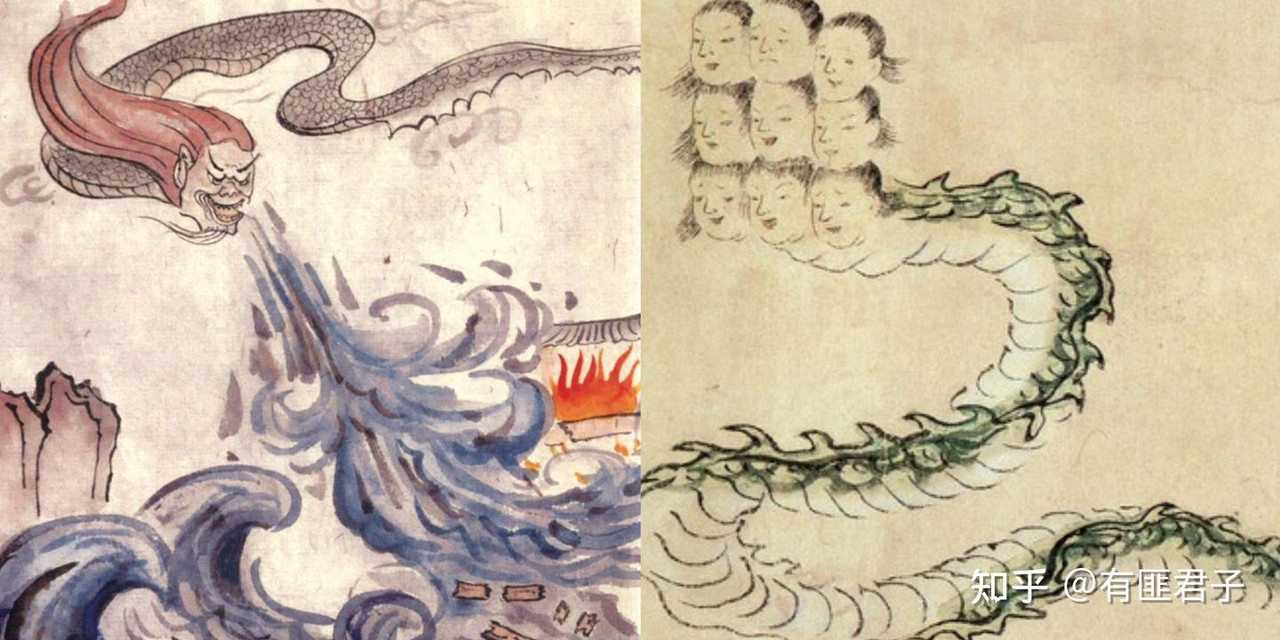
The son Hongjiang found is his own clansman.
(Hongjiang is a descendant of the Chenrong clan—this is just one possibility. Hongjiang’s maternal clan is the Guifang clan.)
In the book, the Huaxu clan, Fuxi and Nuwa, and "seclusion."
The Huaxu Clan is the daughter of the Great Emperor Pangu. She retreated from the world and established the Huaxu Kingdom.
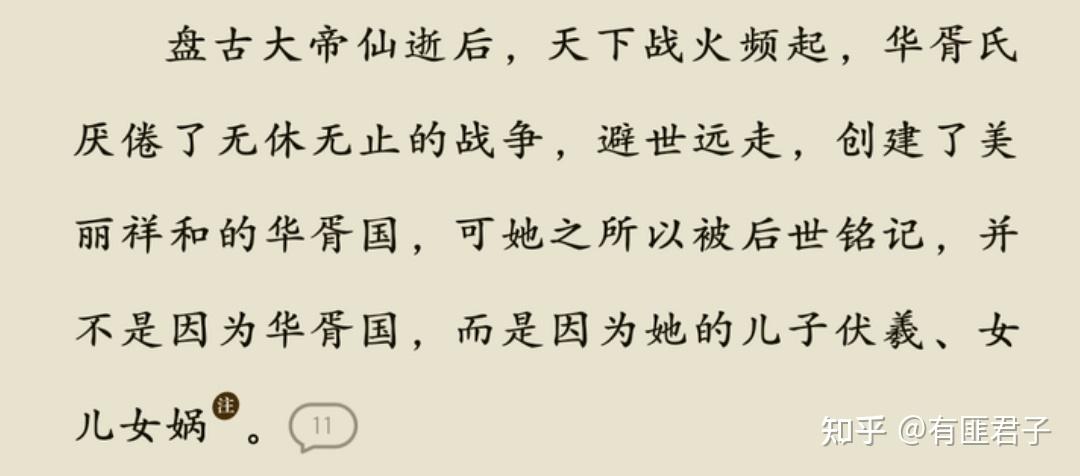
[After the death of Emperor Pangu, wars frequently broke out across the land. The Huaxu Clan, weary of endless conflicts, withdrew from the world and founded the beautiful and peaceful Huaxu Kingdom. However, she is remembered by later generations not because of the Huaxu Kingdom, but because of her children Fuxi and Nuwa.]
Empress Nuwa retreated to live in the Huaxu Kingdom, and no one has seen her since.

[Thousands of years later, Emperor Fuxi passed away, and Empress Nuwa was deeply grieved. She withdrew to the Huaxu Kingdom and was never seen again. Her life and death remain a mystery, and the Fuxi and Nuwa clan gradually declined.]
Guifang Clan and Seclusion
The Guifang clan is mysterious and not to be offended, roaming beyond the Great Wilderness.
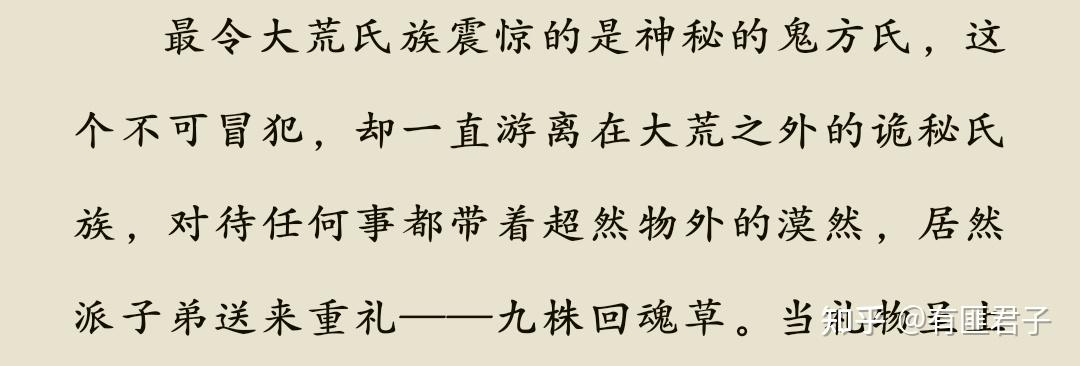
[What shocked the clans of the Great Wilderness the most was the mysterious Guifang clan — an unapproachable, enigmatic clan that always stayed on the outskirts of the Great Wilderness, treating everything with detached indifference. Yet, they sent their descendants bearing heavy gifts — nine stalks of Resurrection Grass.]
Fuxi, Nuwa, the Dragon and Serpent figures, and the cessation of war
Fuxi and Nuwa stopped the warfare and conflicts.

[Fuxi and Nuwa balanced benevolence and authority, earning the respect of heroes across the land, and ultimately put an end to the conflicts of war. They were honored as Emperor Fuxi and Empress Nuwa.]
Yinglong protects the human race.
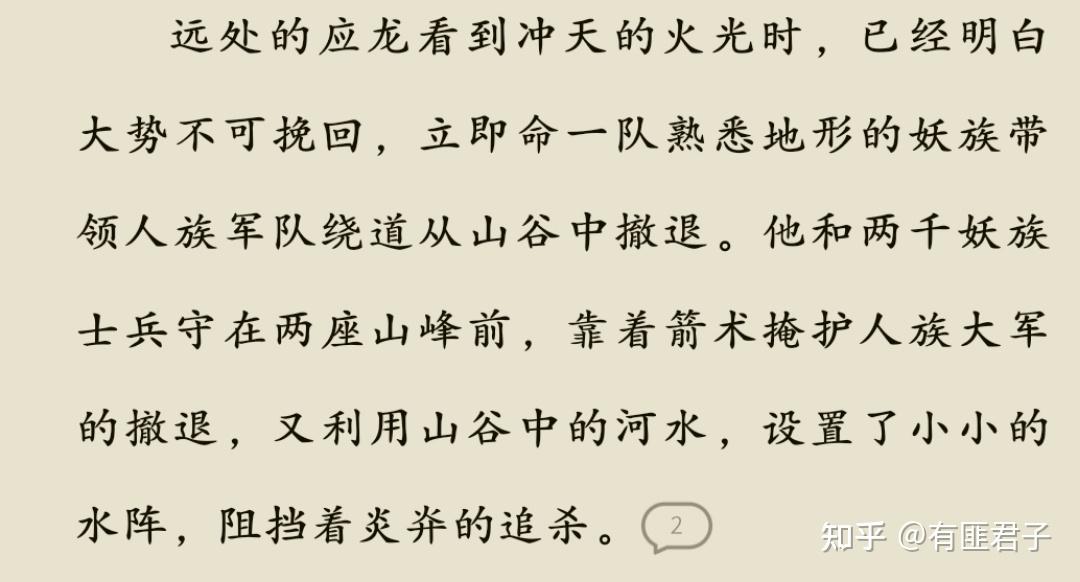
[When Yinglong in the distance saw the soaring flames, he already understood that the situation was irreversible. He immediately ordered a group of demon tribes familiar with the terrain to lead the human army to retreat through a detour in the valley. He and two thousand demon soldiers guarded the two mountain peaks, using archery to cover the retreat of the human army. They also used the river water in the valley to set up a small water formation, blocking Yanqi’s pursuit.]

[Led by Xuanyuan Hui, the divine soldiers were completely annihilated, the demon tribe suffered heavy casualties, and the human tribe fled in disarray into the deep mountains, yet miraculously, not a single person died.]
The righteous army guarded the Central Plains for three hundred years.
Xiangliu promoted unification and stability, protecting the righteous soldiers.
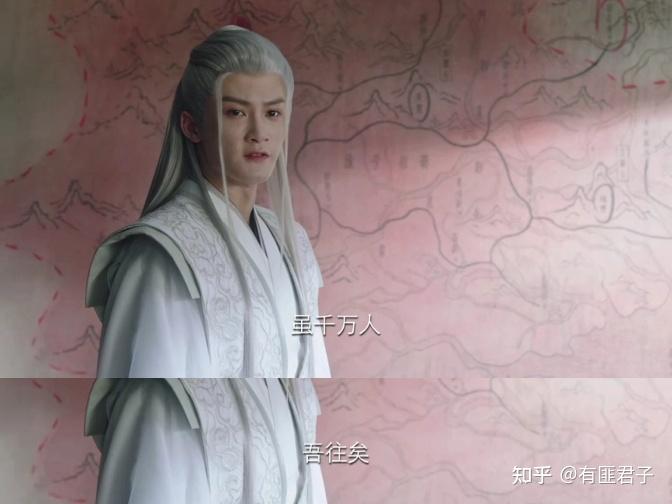
The Guifang clan and humans
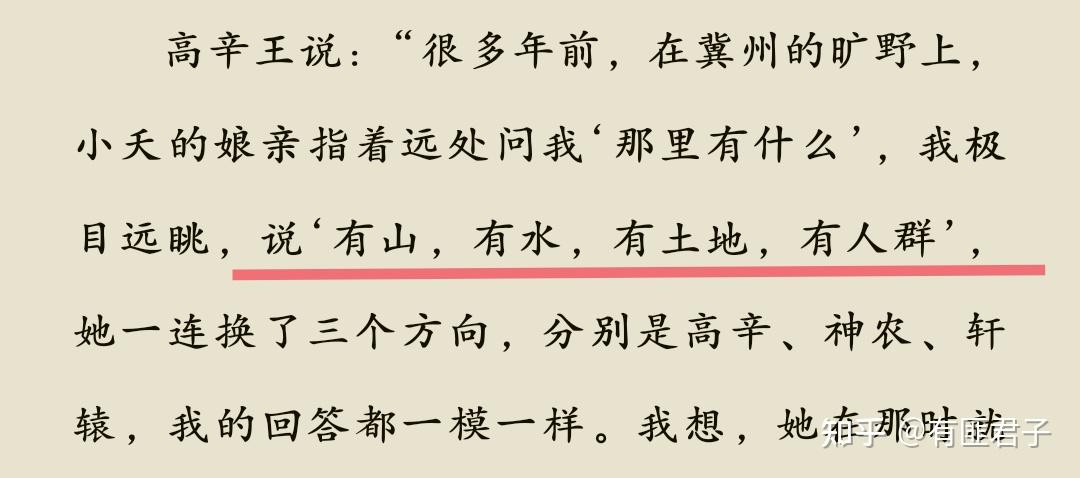
[King Gaoxin said: "Many years ago, on the wilderness of Jizhou, Xiaotian's mother pointed to the distance and asked me, 'What is there?' I looked far and said, 'There are mountains, water, land, and people.' She changed the direction three times, referring to Gaoxin, Shennong, and Xuanyuan respectively, and my answers were exactly the same.]
Mountain, water, and land literally correspond to the four clans:
Tushan, Chishui, Xiling (Ling, meaning earth mound).
The remaining “people” and the Guifang clan form a pair.
The Guifang clan is related to “people.”
From the above, we see Fuxi, Nuwa, and the Guifang clan as human-headed, snake-bodied beings who live in seclusion and stop wars.
The Guifang clan and Fuxi and Nuwa share the same form, similar personalities and habits, and their dedicated missions are passed down continuously.
The origin of the Guifang clan is obvious.
Nuwa molded humans from clay and gave them life. Her successors continue to bear the responsibility of “protecting humans.”
The emblem of the Guifang clan.
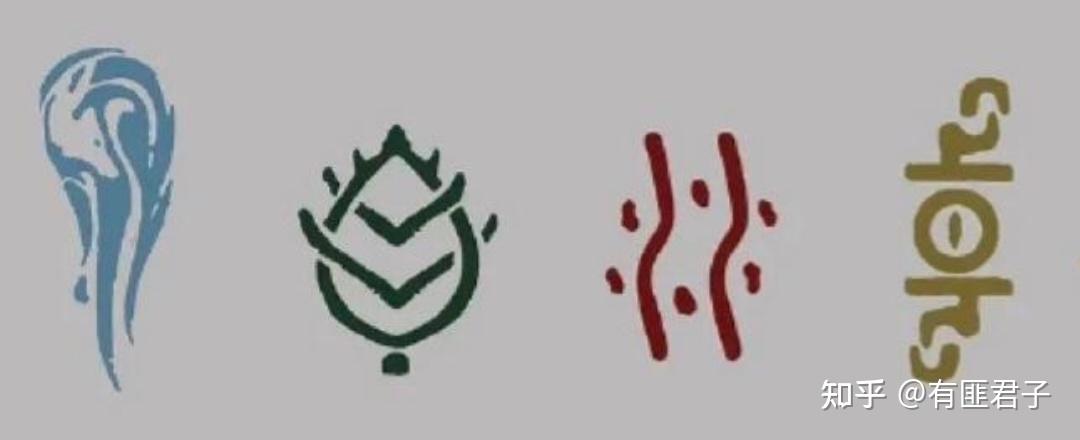
The emblems of the Tushan, Xiling, and Chishui clans are quite straightforward: a nine-tailed fox, agricultural crops, and water.
The Guifang emblem is hard to say what it resembles more.
It looks like a giant egg between heaven and earth (Pangu the Great Emperor's creation of the world).
It also resembles two "巳" (si) characters stacked vertically. "巳" represents a snake and also carries meanings of fetus and reproduction (ancestors Fuxi and Nuwa).
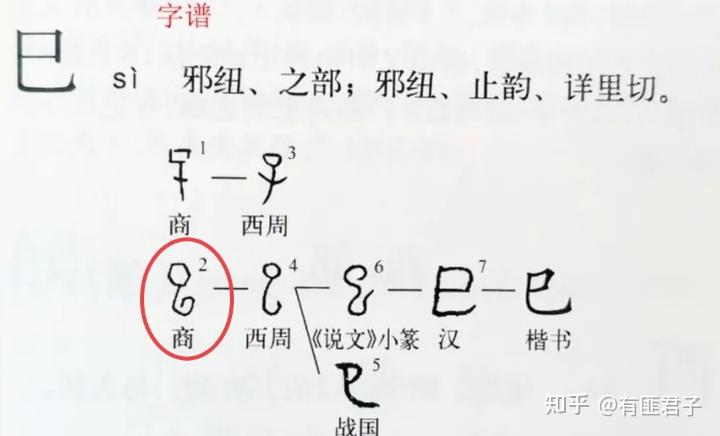
It also resembles an eye within shackles. The imagery of the "eye" in the book and drama refers to offspring, snake eggs (the child within the shackles).
Or all three meanings may be present.
Guifang Clan’s Secret Technique
Xiangliu’s whole body is wounded; Hongjiang teaches Xiangliu the healing technique.
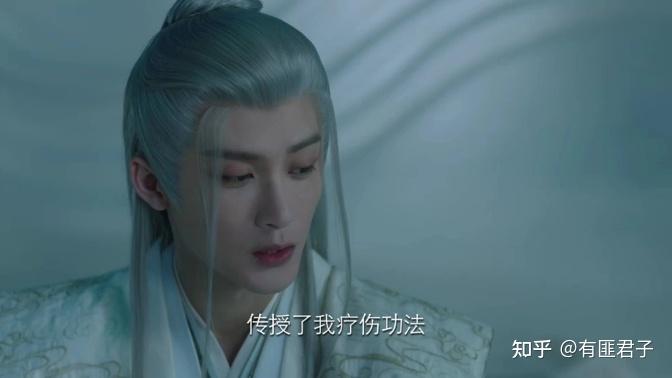
[He taught me the healing technique.]
Jun also said that when Xiangliu’s wounds healed, the term "secret technique" was used.
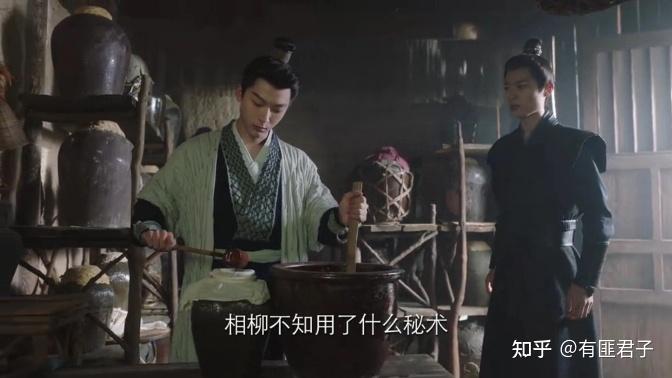
[Xiangliu doesn’t know what secret technique was used.]
Xiaoyao’s hands were gnawed by maggots, and fearing the audience might not see clearly, the production team deliberately released a "white bones" behind-the-scenes clip.
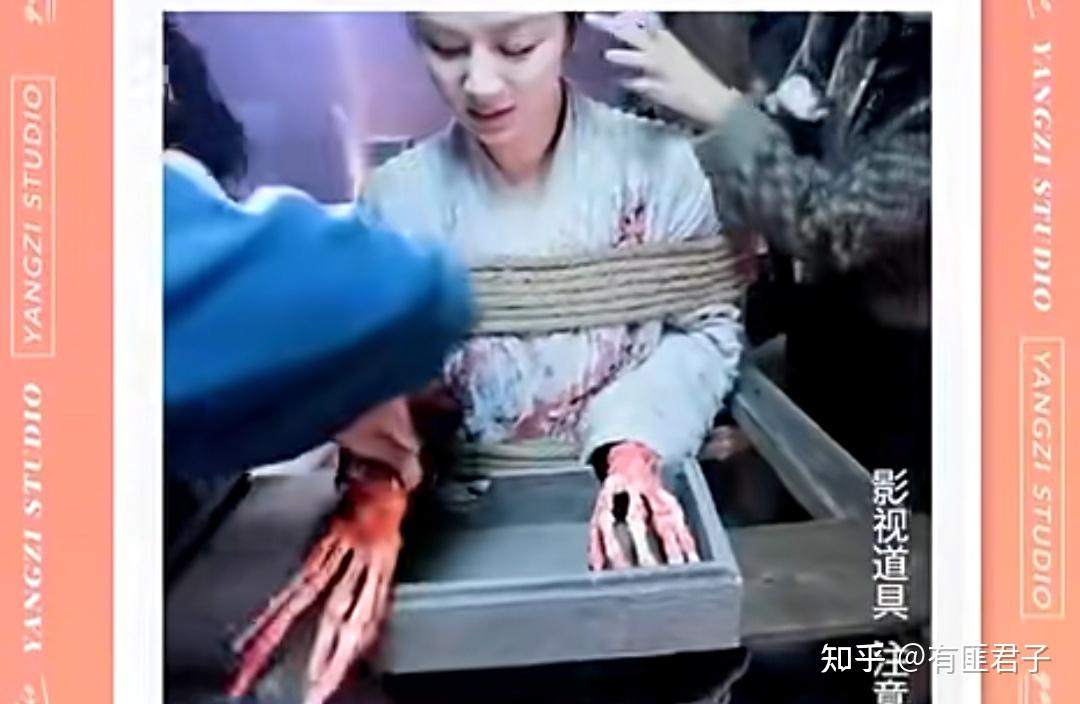
Who is it that gave flesh and blood to the white bones?
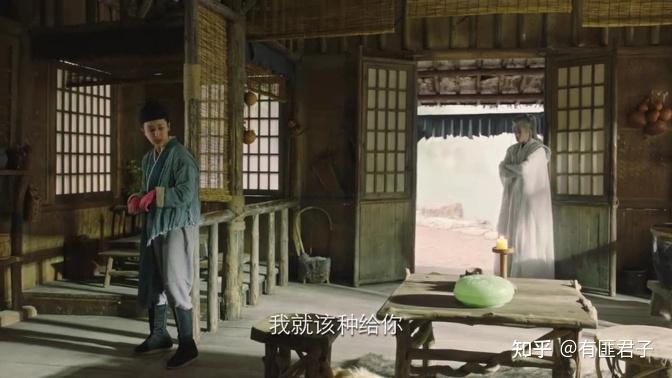
The miraculous medicine cannot make the wounds completely heal as before.

[Xiaoyao stepped out from behind an osmanthus tree, walked up to Jing, checked the water stab wounds on his arm, crushed two flowing light flying pills, and stopped the bleeding.]
The miraculous medicine can stop the bleeding.
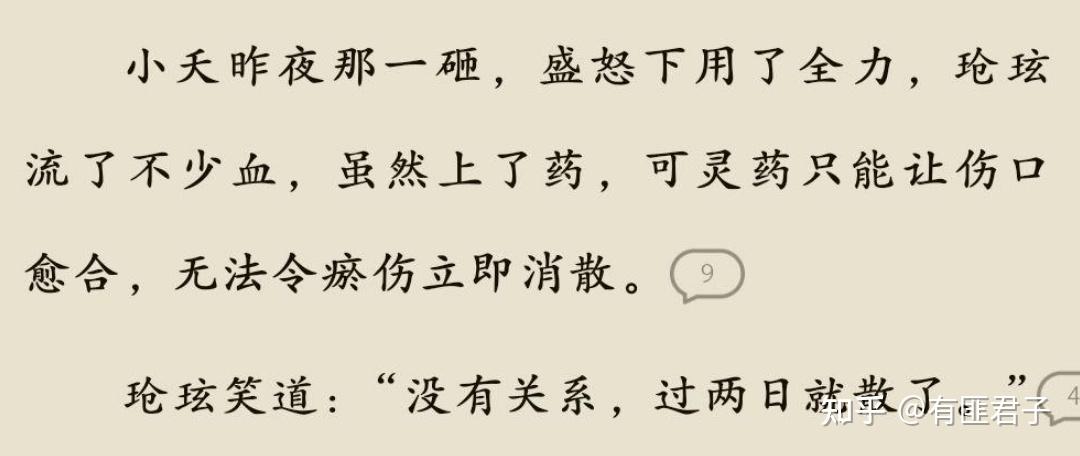
[Last night, Xiaoyao struck with full force in a fit of rage, and Cangxuan bled a lot. Although he was given medicine, the spiritual herbs could only heal the wounds and could not make the bruises disappear immediately.
Cangxuan smiled and said, “It’s okay, the bruises will fade in a couple of days.”]
Even emperors have to attend court bearing bruises.
But Xiangliu can.
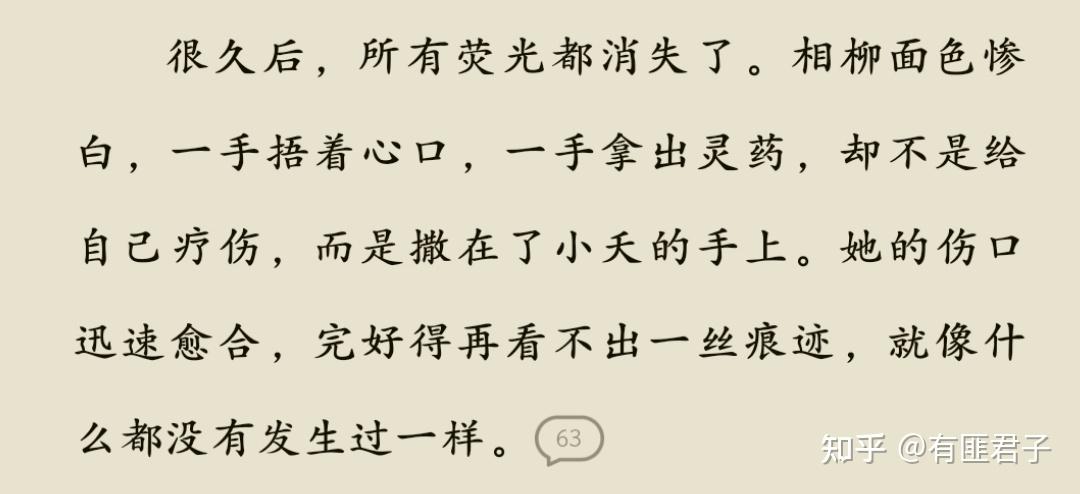
[A long time later, all the glowing lights disappeared. Xiangliu’s face was pale; one hand covered his chest, and the other took out a spiritual medicine. But it wasn’t to heal himself—instead, he sprinkled it on Xiaoyao’s hand. Her wound quickly healed, leaving no trace at all, as if nothing had ever happened.]
The demon pill is destroyed, the divine consciousness disperses, and the demon dies.
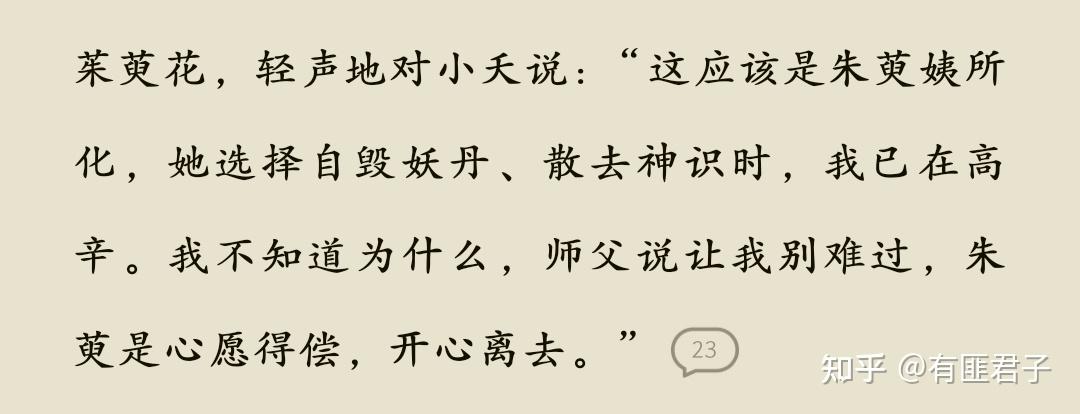
[Zhuyu Flower softly said to Xiaoyao, “This should be what Aunt Zhuyu transformed into. When she chose to destroy her demon pill and disperse her divine consciousness, I was already at Gaoxin. I don’t know why, but Master told me not to be sad; Zhuyu’s wish was fulfilled, and she left happily.”]
In the main hall of Huichuntang, a ginseng root as big as a person (with a human-like body) hangs, its thinnest root resembling a whip.
Counting carefully, there are five limbs—kind of embarrassing.
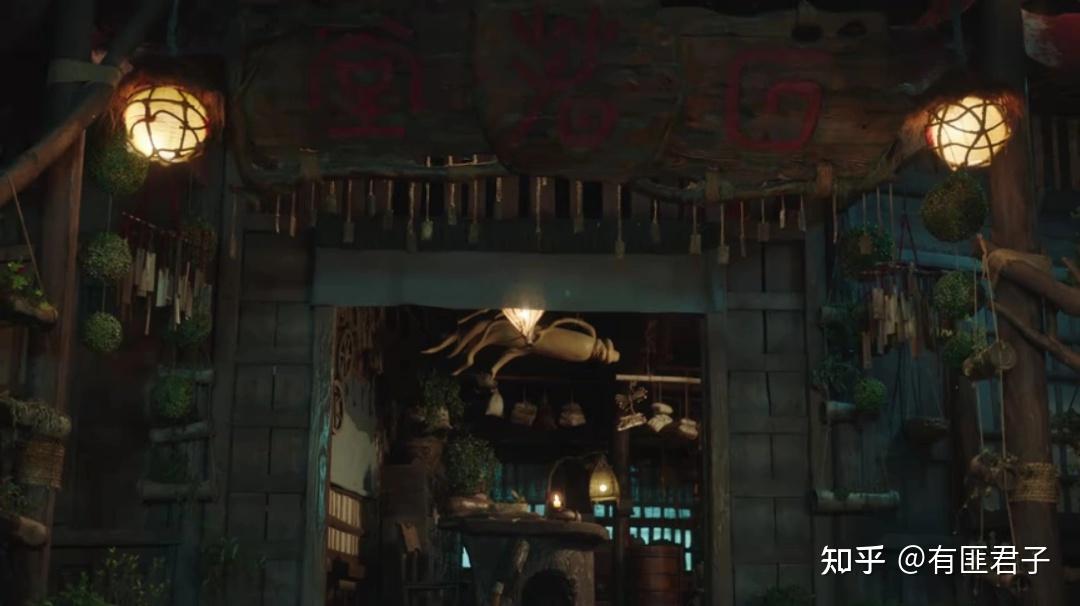
The answer has come out: Hongjiang saved him and taught him not to send him to his death. As a demon, Xiangliu has a way out.
The Guifang clan’s secret technique: the human body.
In the drama, the reason Xiangliu says "I will give you someone to rely on for a long time." and 注释:不负苍生不负卿 “Live up to the people, live up to you.” is because of this.
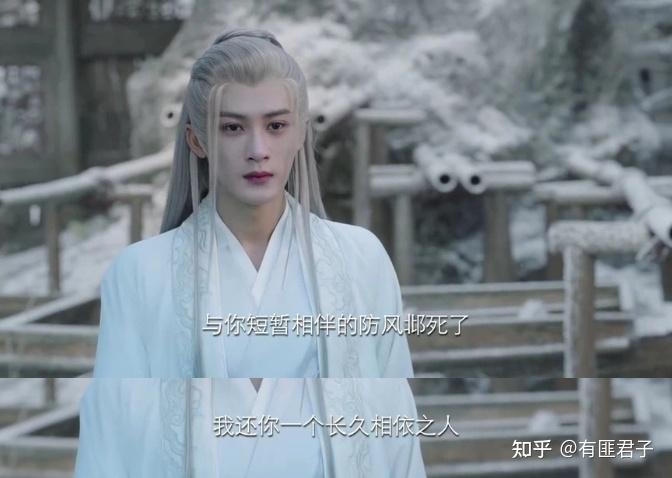
[The Fangfeng Bei who briefly accompanied you has died.
I will give you someone to rely on for a long time.]
“Rescuing Tushan Jing from the sea (life too short, too useless, unreliable, someone to depend on ❌)”
The Cooperation Between Xiangliu and Cangxuan
Earlier, we mentioned the "Mountain Peak Pact" between Xiangliu and Cangxuan. Xiangliu and Cangxuan established a cooperative relationship: seeking a burial place for the dead and a safe haven for the living.
Specifically, Xiangliu helps Cangxuan gain the world in exchange for a lifeline for the righteous army’s soldiers—his “family.”
Gaining the entire world in exchange for a group of soldiers who have laid down their armor to live—how could Cangxuan not benefit? He has no reason to refuse.
Below is a detailed explanation.
If Xiaoyao were not in their hands, the two emperors of Xiyan would not have dared to fight this unification war so confidently. After the destruction of Chenrong, the three armed forces stalemated for hundreds of years, with no side making a move. The Central Plains were not under the actual control of Xiyan, and once the two armies clashed, the third party would "take advantage of the chaos."
When Cangxuan firmly took control of the Central Plains and the Xiyan army marched south, the two emperors still trusted that Xiangliu would fully support them and that the righteous army would stay put.
The lovers’ Gu poison links their lives together; Xiangliu’s “life token,” Xiaoyao, was always held tightly in their hands.
Xiangliu also understood that since Yao-xuan was family by blood, as long as he did not threaten the core interests of the two emperors, they would not harm Xiaoyao—in fact, they would protect and cherish her.
From this perspective, Xiaoyao is a hostage.
The soldiers reunite with their wives and children.

[Your Majesty’s action not only calmed the soldiers’ hearts but also, invisibly, made them more careful while guarding and patrolling, because what they protect is not only others’ cities but also their own homes.]
The elder "Mao" who surrendered was changed in the drama to the elder "Feng," whose name means "a string of three generations."

[And when he saw Cangxuan’s approval, he relaxed and said, “Grandpa Mao, why have you come? Please, have a seat quickly!”]
Nowhere is Xiangliu explicitly mentioned, yet he is everywhere.
In the drama, this added scene shows Xiangliu explaining to Xiaoyao the concepts of "cooperation" and "hostage."
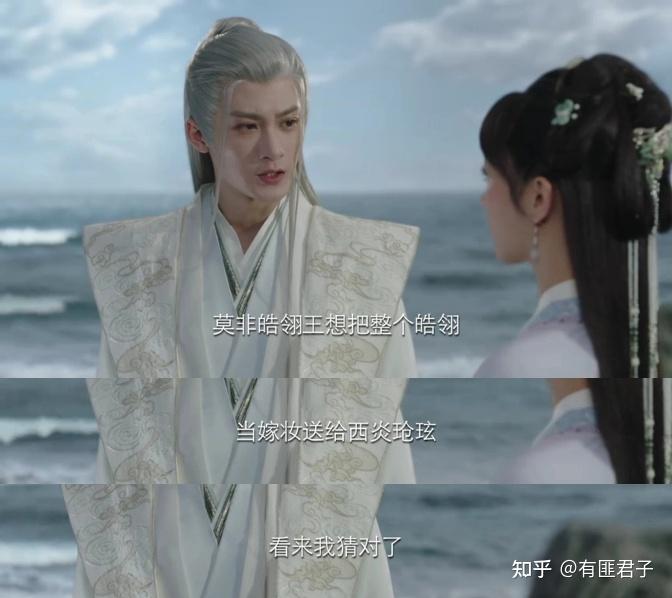
I already know. Guess how I know?
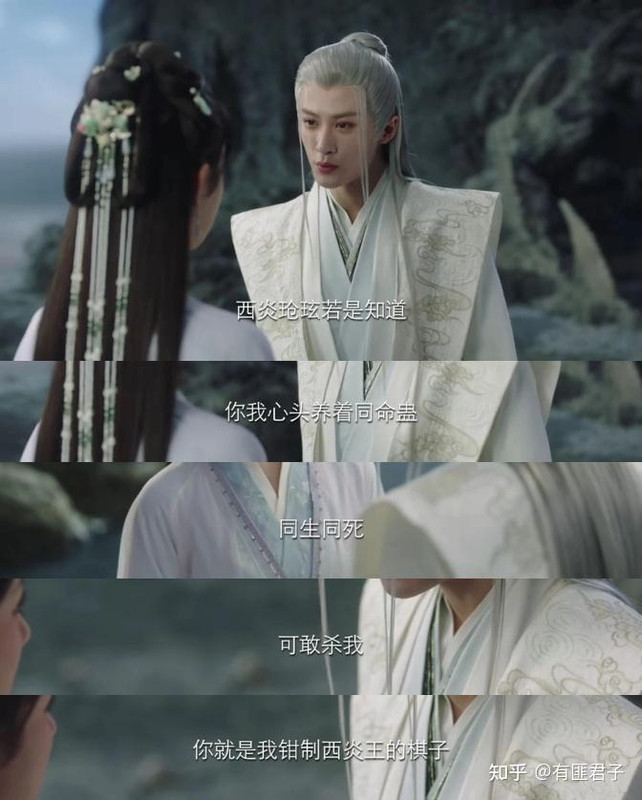
Cangxuan knows the Gu poison, but Xiangliu fears Xiaoyao’s death even more. So, who is whose hostage?
They’ve come clean with the audience, too lazy to even pretend anymore...
King Haoling, as we briefly mentioned before and as seen in the plot, is plotting the "unification of the world" through a son-in-law scheme. The unification of the Great Wilderness is not only beneficial to him personally but also a long-term benefit for all the people and future generations.
However, Haoling Kingdom does not belong to him alone; there are court officials and commoners, and he cannot explain it to them.
The truth can only be told to those who understand—it is a tacit understanding among the wise. Most people... even if told, won’t understand... Since it cannot be explained clearly anyway, it’s better to keep them in the dark; that way, it’s better for everyone.
Thus, the "live-in son-in-law" Xiangliu secretly made his appearance, moving between both sides, collaborating with Cangxuan. In front of most people, they used the world as a chessboard to play a grand game and perform a great drama.
Xiyan gradually encroached, waging a slow and steady war. Rushou was defeated by Fenglong, the two Haoling divisions surrendered, Xiyan continued to advance, and Anian bravely resisted...
The war ended with a wedding, peace prevailed, and everyone rejoiced. King Haoling not only subdued the White Tiger and Changxi divisions but also established prestige for Anian and Rushou. The wedding and abdication... he played a winning "son-in-law card" that earned applause throughout the court and among the common people, who still regarded him as noble and virtuous.
With the help of the “live-in son-in-law,” King Haoling achieved all his goals, while also giving the Haoling court officials and common people a perfect explanation.
Hongjiang knows everything.
Over more than ten years, Xiaoyao and Liu met every three to five days, practicing archery and enjoying worldly pleasures. Everyone in the Great Wilderness knows that Fangfeng Bei and King Haoling had a close relationship in the past.
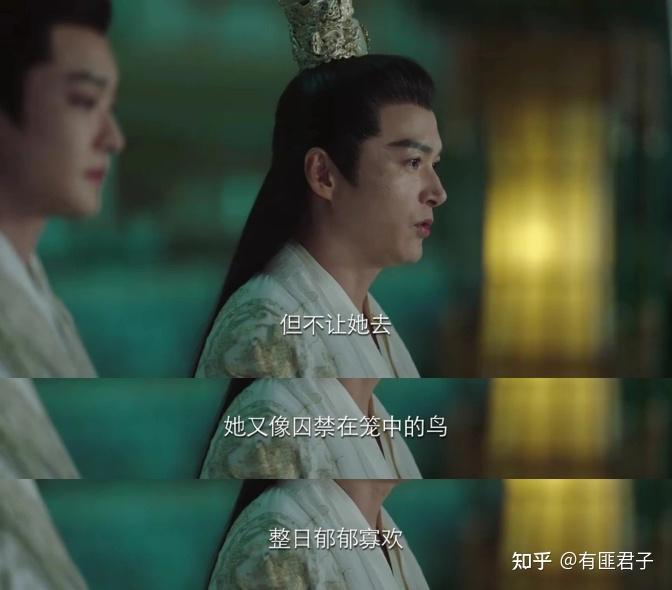
ANian represents the shadow of Liu. Here, Shaohao watching Anian sneak out of the palace is the shadow of Hongjiang.
After Fangfeng Bei’s rushed marriage, Hongjiang took the opportunity to pry for information, preparing to expel Xiangliu, but Xiangliu diverted his attention—prioritizing the bigger picture.
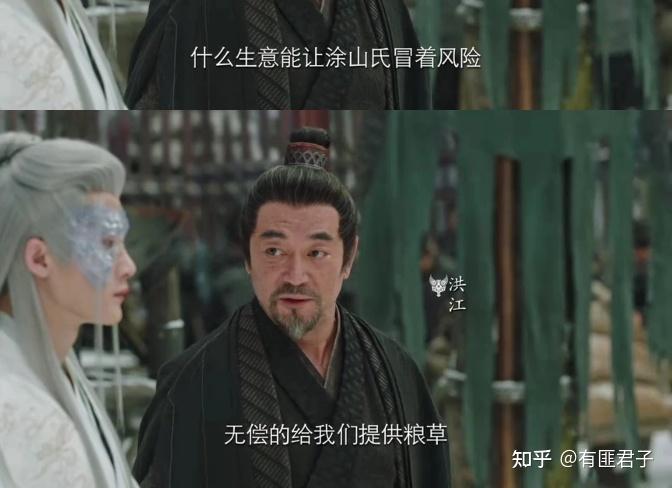
From Xiangliu’s daring rescue of Xiaoyao at Chenrong Mountain, to the Guifang clan taking sides, then to the rushed marriage and childbirth, and Xiangliu “living in the butcher Gao family” as a live-in son-in-law and “butcher Gao’s son,” moving between both sides to seek a “way to live” for the righteous army’s soldiers, Hongjiang knows it all.
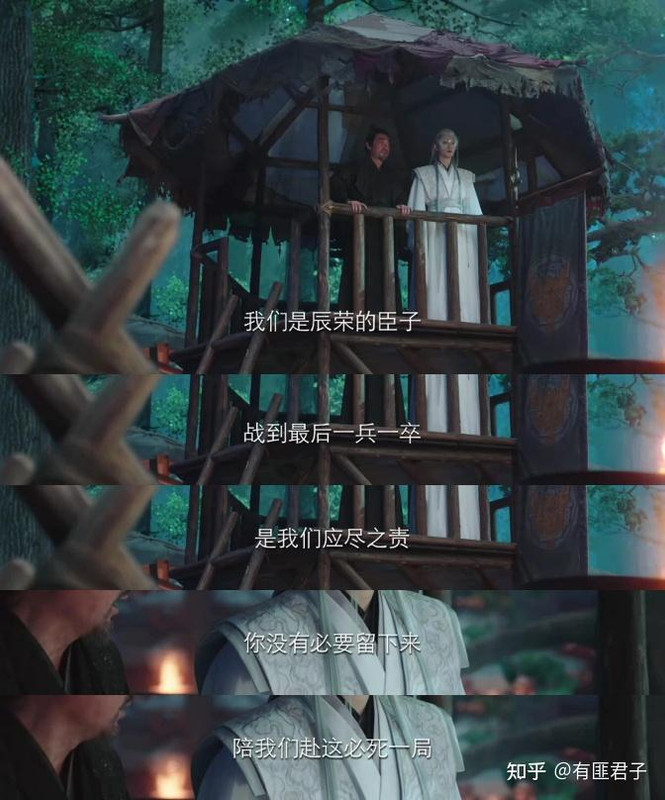
Here, let’s get straight to the point. If it doesn’t work out... never mind, there’s still the fallback of the “human body.”
Hongjiang and the Righteous Army
Earlier, we mentioned that Hongjiang led the righteous army in mountain hideouts, guarding the stability and prosperity of the Central Plains.
The raging fire illuminated Xiangliu’s white clothes and face, a scene that deeply moved Xiaoliu. Xiangliu in the firelight was more than just himself.
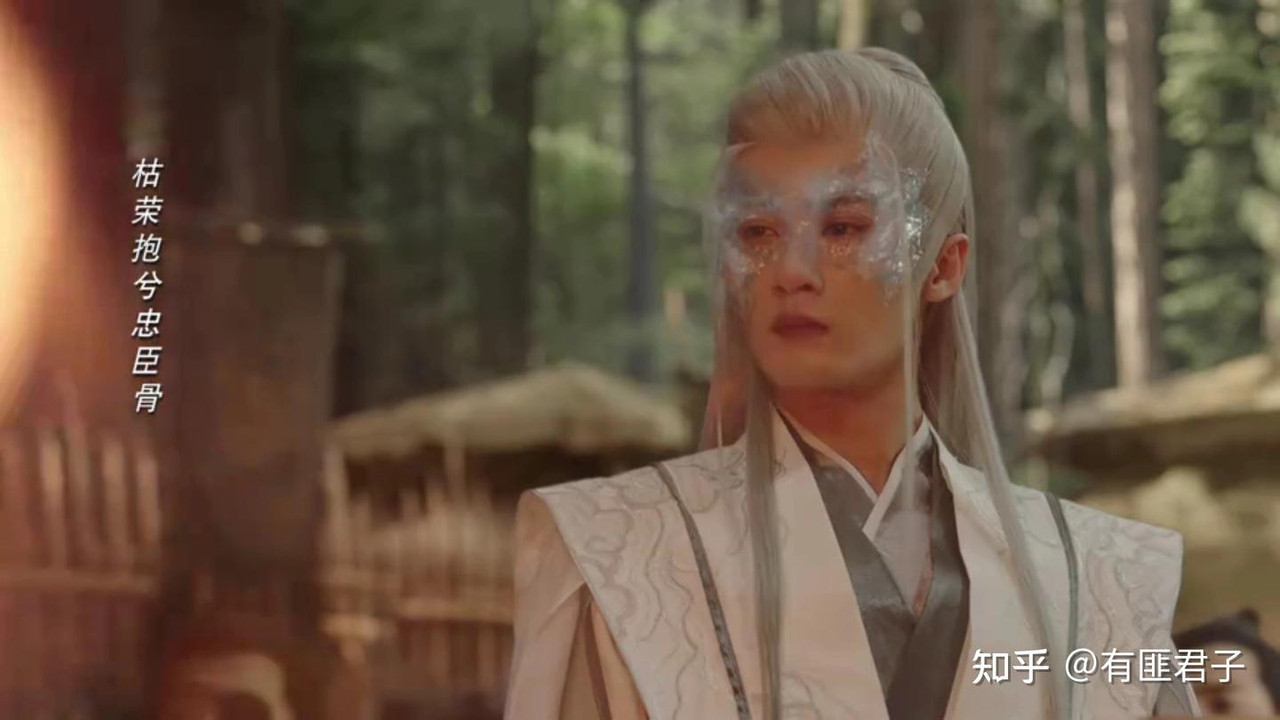
For three hundred years, the “group spirit” of the righteous army was: “Withered and flourishing, loyal bones, never surrendering, soldiers of Chenrong.”
Hongjiang led the soldiers to hold their ground for three hundred years, only to be abandoned by the “Fox-Dog Alliance.”
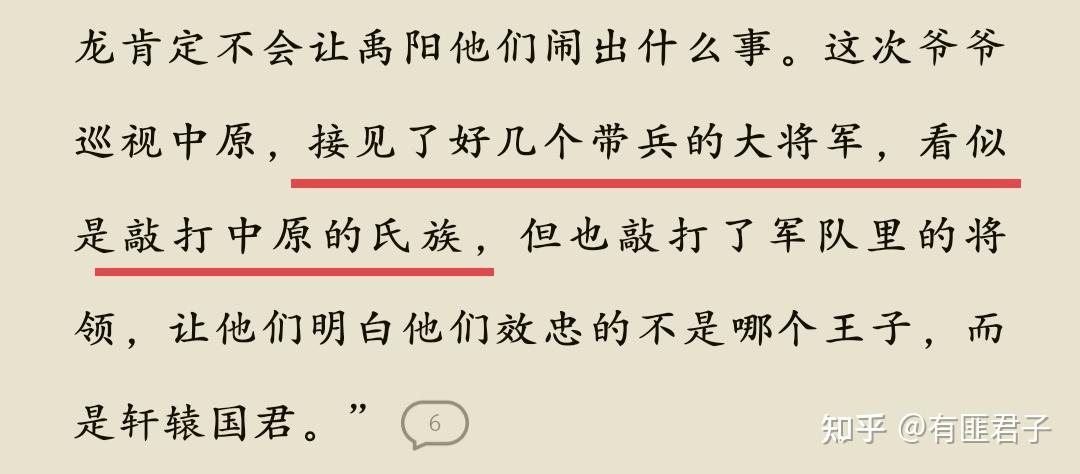
[Long definitely won't let Yuyang and the others cause any trouble. This time, Grandpa inspected the Central Plains and met with several generals leading troops. Although it seemed like he was reprimanding the clans of the Central Plains, he was also warning the commanders within the army, making them understand that their loyalty is not to any prince, but to the Sovereign of Xuanyuan.]
To control Cangxuan’s rebellion and usurpation, the Central Plains clans united the Five Kings and Seven Kings, mobilizing Central Plains forces, forcing the righteous army soldiers into bloody battles. The righteous army was betrayed and slaughtered by the royal families they were loyal to.
The core theme of Water Margin resurfaces, provoking reflection on "loyalty and righteousness."
When the situation is settled.
“Let those who leave, leave,” but no one leaves.

Whether the camera hides the face tells us which sentence is the truth and which is a lie.
The speaker’s name is "Blind General."
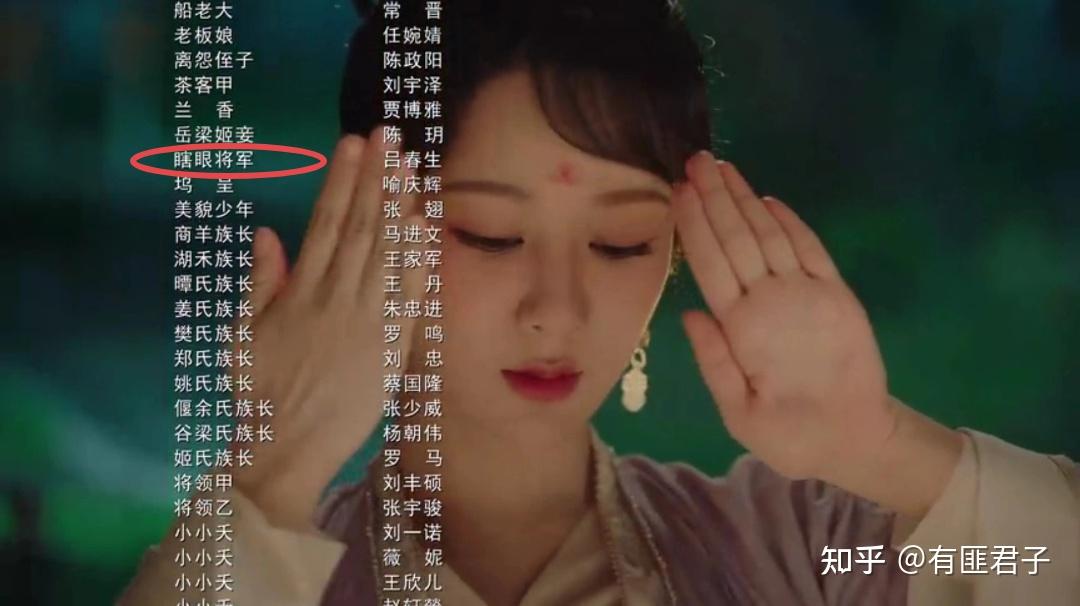
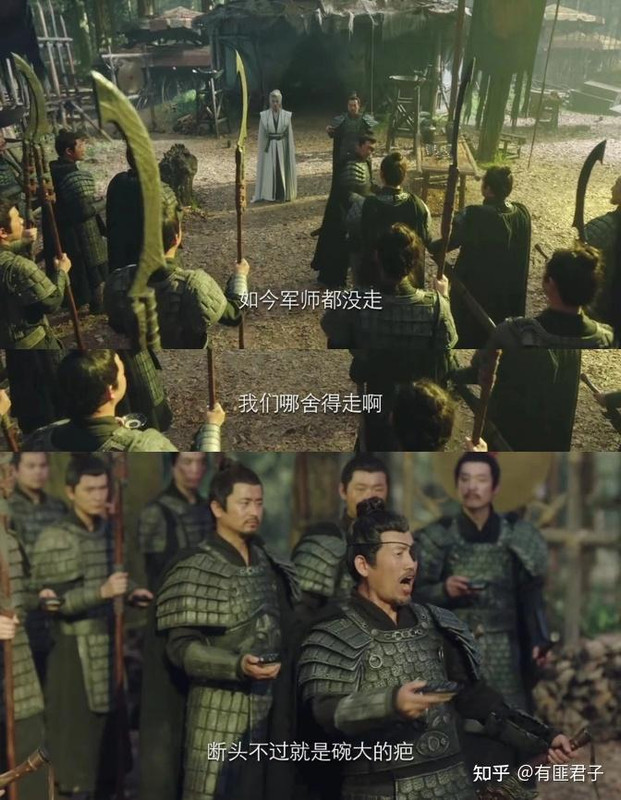
Let him unwittingly speak a prophecy.
Hongjiang is about to cry.
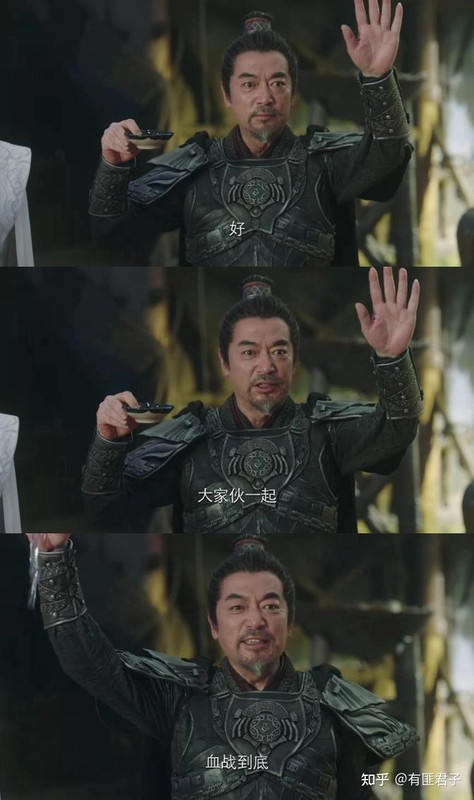
A group of shrimp soldiers and generals... calling them “shrimp” at the same time also tells us what kind of belief the righteous army relied on to endure three hundred years of living exposed to the wind and dew, fearlessly standing firm through life and death.
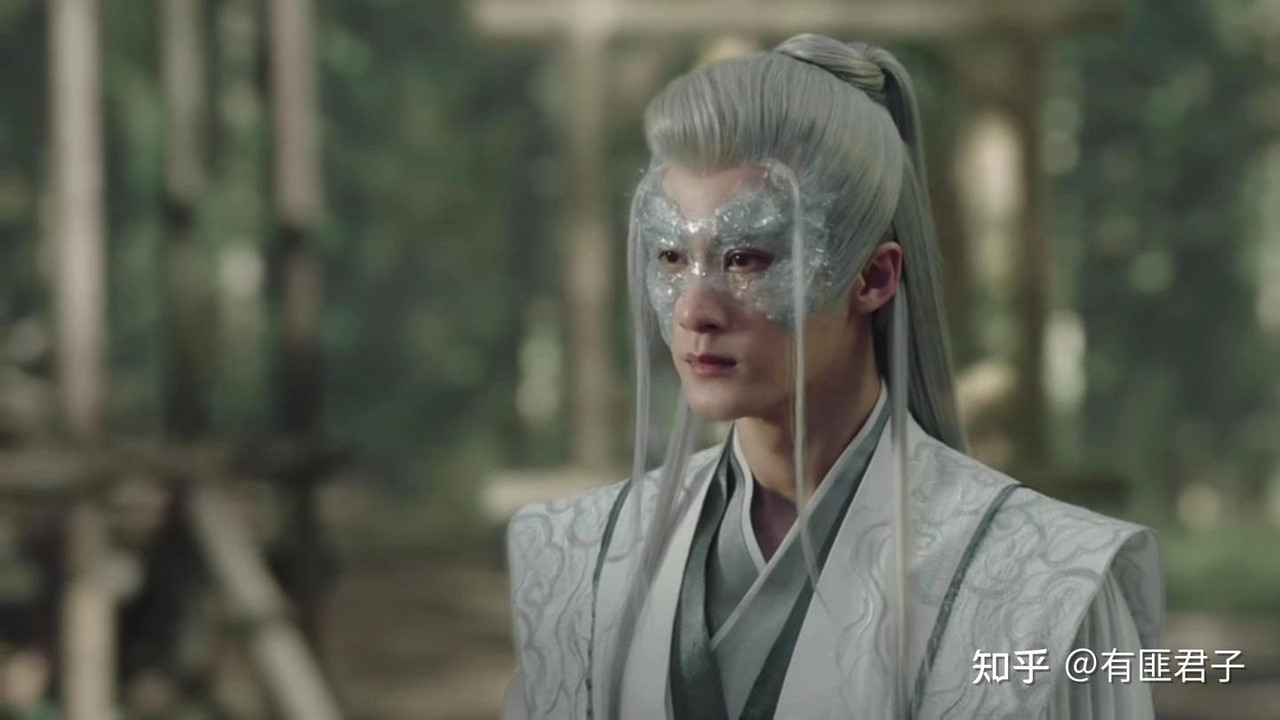
Hongjiang’s goal is the peace and stability of the entire realm. What keeps the soldiers steadfast is “loyalty and righteousness.” After three hundred years of perseverance, the army’s morale is as solid as a rock—even Hongjiang himself cannot break it apart.
This is why Xiangliu cooperates with Cangxuan and Shaohao.
“Loyalty and righteousness” have become a joke, yet the soldiers’ hearts are trapped by the “group spirit,” still willingly sacrificing their freedom and lives for “loyalty and righteousness.”
For Xiangliu, his comrades are family, always in his heart, and no matter what, he must honor them.
No matter who they are, the best outcome is survival.
Like the Haoling Kingdom, the righteous army is not Hongjiang’s alone. With so many soldiers, strong and unyielding, preferring death to surrender, he cannot explain it, nor can he betray them by surrendering himself.
The truth can only be told to those who understand—it is a tacit understanding among the wise. Most people… even if told, won’t understand… Since it cannot be clearly explained anyway, it’s better to keep them in the dark; that way, it’s better for everyone.
If the strategist does not die, they won’t leave...
If the strategist dies, the army’s morale collapses.
When that time comes, Hongjiang will cry, and Cangxuan will come to clean up the mess, giving the soldiers a way to live.
For Cangxuan, releasing or not releasing them makes no difference. Letting the soldiers live actually highlights his benevolence as a ruler.
Letting the righteous army’s soldiers live is what Xiangliu truly wants.
Cangxuan is the mastermind behind the assassination.
When Cangxuan appointed Fenglong as commander and approached Xiangliu to conspire in assassinating Fenglong, Xiangliu had no other choice.
The world was unified, yet the Mountain Peak Pact still awaited Cangxuan’s fulfillment.
Even though he knew Cangxuan’s goal was more than just using others to kill.
An emperor conspiring with bandits to assassinate a powerful minister—Cangxuan would never allow such a thing to leak out.
After the assassination, Cangxuan would definitely kill Xiangliu to silence him and eliminate all traces.
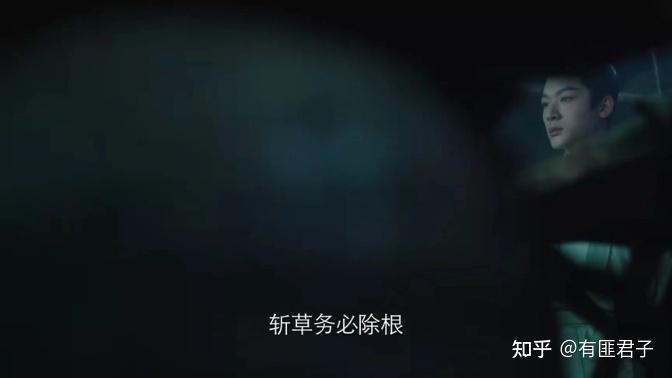
[When cutting grass, be sure to remove the roots.]
All escape routes for “human body death retreat” were blocked; Cangxuan wanted to completely destroy his body and spirit, making him disappear entirely.
But he still did it.
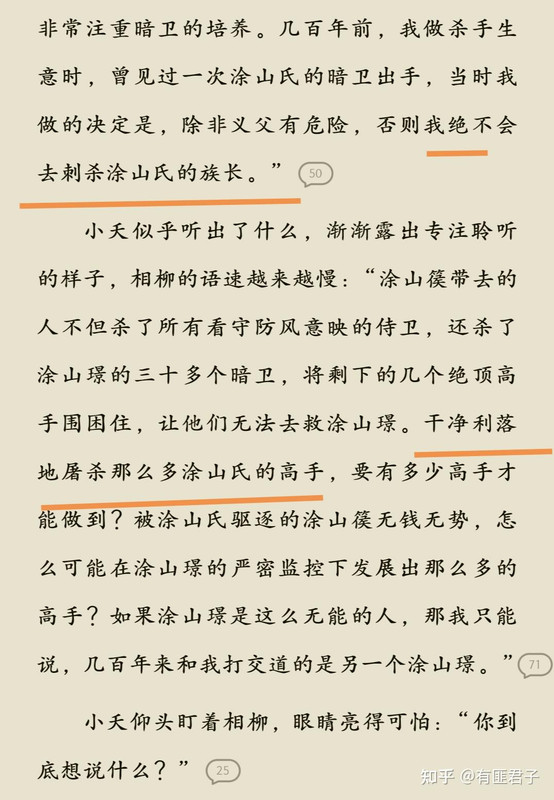
[Great emphasis is placed on the training of secret guards. Hundreds of years ago, when I was in the assassin business, I once saw a secret guard of the Tushan clan take action. At that time, I decided that unless my foster father was in danger, I would never assassinate the head of the Tushan clan."
Xiaoyao seemed to sense something and gradually showed a focused listening expression. Xiangliu's speaking pace slowed down more and more:
"Tushan Hou’s men not only killed all the guards watching over Fangfeng Yiying, but also slaughtered more than thirty secret guards of Tushan Jing, besieging the few remaining top experts, preventing them from rescuing Tushan Jing. To cleanly and efficiently kill so many elite members of the Tushan clan, how many masters would that require? Tushan Hou, who was expelled by the Tushan clan, had no money or power. How could he possibly develop so many experts under Tushan Jing’s strict surveillance? If Tushan Jing were such an incompetent person, then all I can say is that the Tushan Jing I dealt with over the past few hundred years must have been someone else."
Xiaoyao looked up at Xiangliu, eyes terrifyingly bright: "What exactly are you trying to say?"]
Xiangliu told Xiaoyao that Cangxuan was the mastermind behind the assassination.
Xiangliu said that if he wanted to assassinate Tushan Jing, it would be very difficult. But Tushan Jing was easily taken down by Cangxuan. Therefore, assassinating Cangxuan is much harder than assassinating Tushan Jing.
And just now, during the assassination attempt on Cangxuan, the two armies were engaged in battle and should have been on high alert, yet he moved as if there was no one around.
Think about it yourself—why?
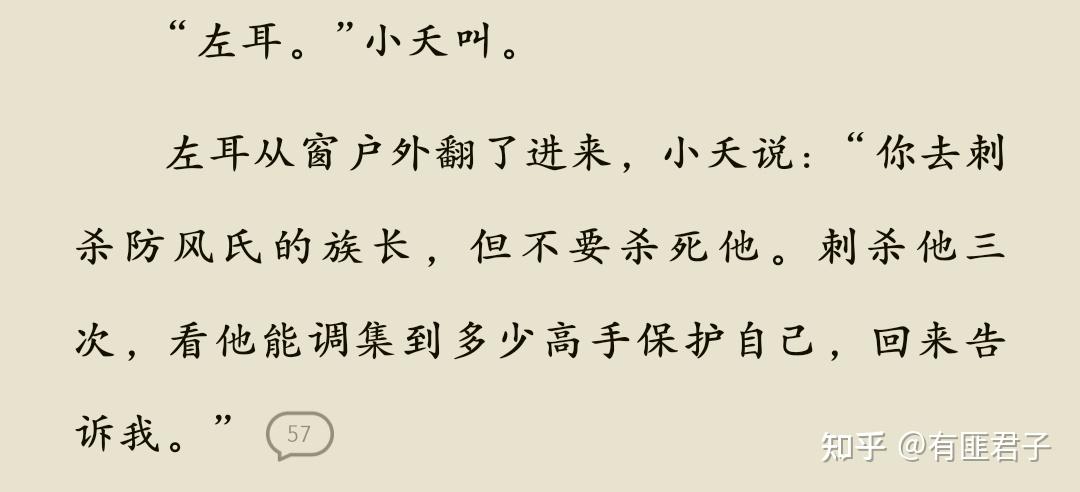
[“Left Ear,” Xiaoyao called.
Left Ear climbed in through the window. Xiaoyao said, “You are to assassinate the head of the Fangfeng clan, but do not kill him. Assassinate him three times and see how many experts he can gather to protect himself. Then come back and report to me.”]
Back home, Xiaoyao conducted an “assassination test” and came to the conclusion: it was indeed Cangxuan who masterminded it.
In the book, Xiaoyao thought for a long time and finally became convinced that Cangxuan, out of jealousy, wanted to eliminate Xiangliu to silence him. Moreover, to kill Xiangliu, he was willing to kill himself as well.
Well, this one about XL and Hong Jiang's relationship is one I'll definitely read.
I don't understand how the Chisui are supposed to be have a water emblem. They are fire users, aren't they? It's XL and Hong Jiang that are strongly associated with water, and flooding specifically, in the myths. Tong Hua has definitely taken liberties with them, but XL is definitely a water baby and still has ties to destruction. I mean, sort like of the elves in Tolkien, he dies to make way for the age of man.
“Chang Xiang Si” Unveiling the Fog, Searching for the Truth (Part Two) — What exactly is Hongjiang after?
Let’s first look at Hongjiang’s character.
When he first appeared, Chichen used the safety of the guards to threaten him, and Hongjiang was easily manipulated.
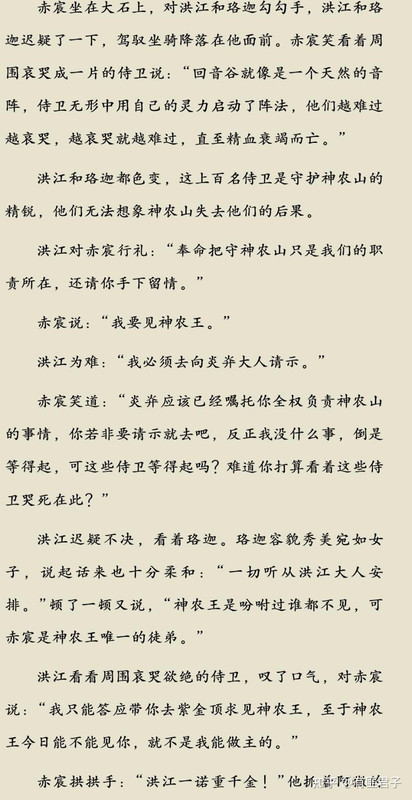
From Aheng’s perspective, it becomes clear why Hongjiang’s word is worth a thousand in gold.
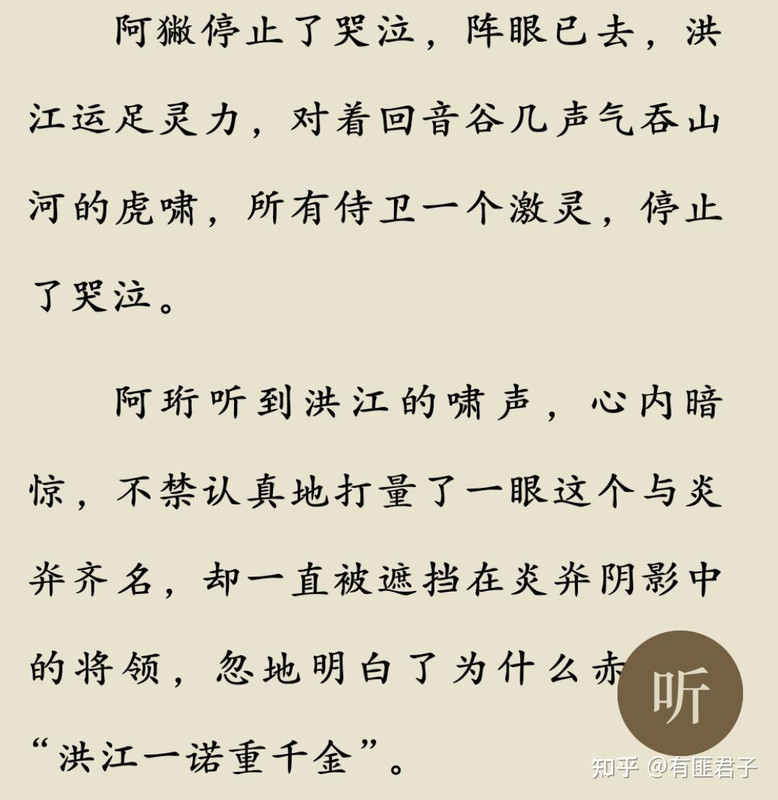
Why is a promise worth a thousand in gold? — A question for reflection.
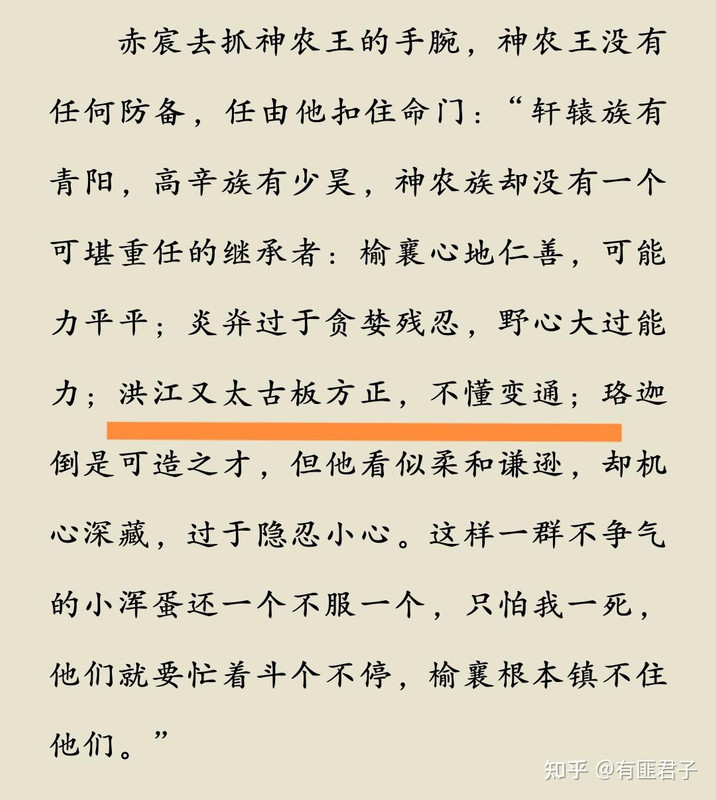
The Shennong King’s evaluation of Yuxiang, Yanzhuo, Luojia, and Hongjiang.
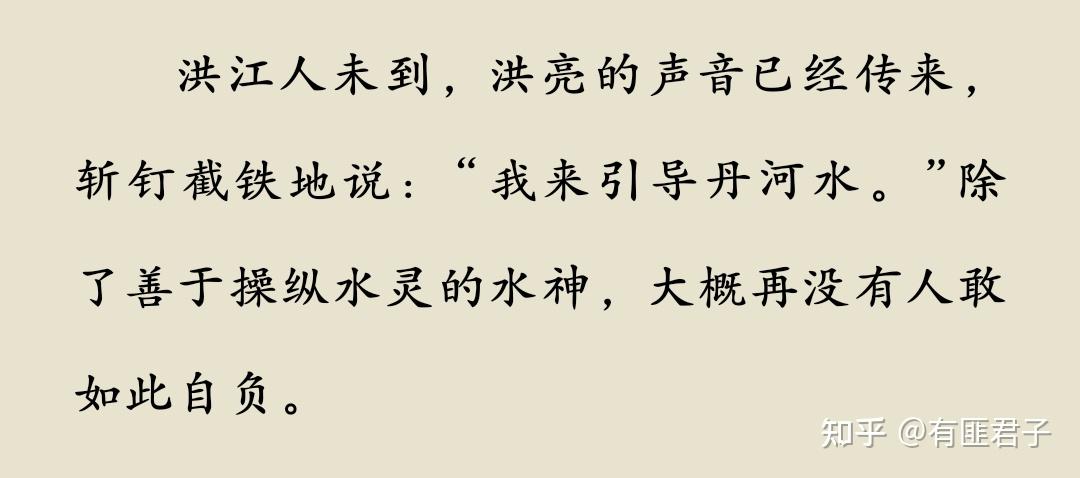
Hongjiang is the God of Water, showing both anxiety and confidence when diverting water to save the city.
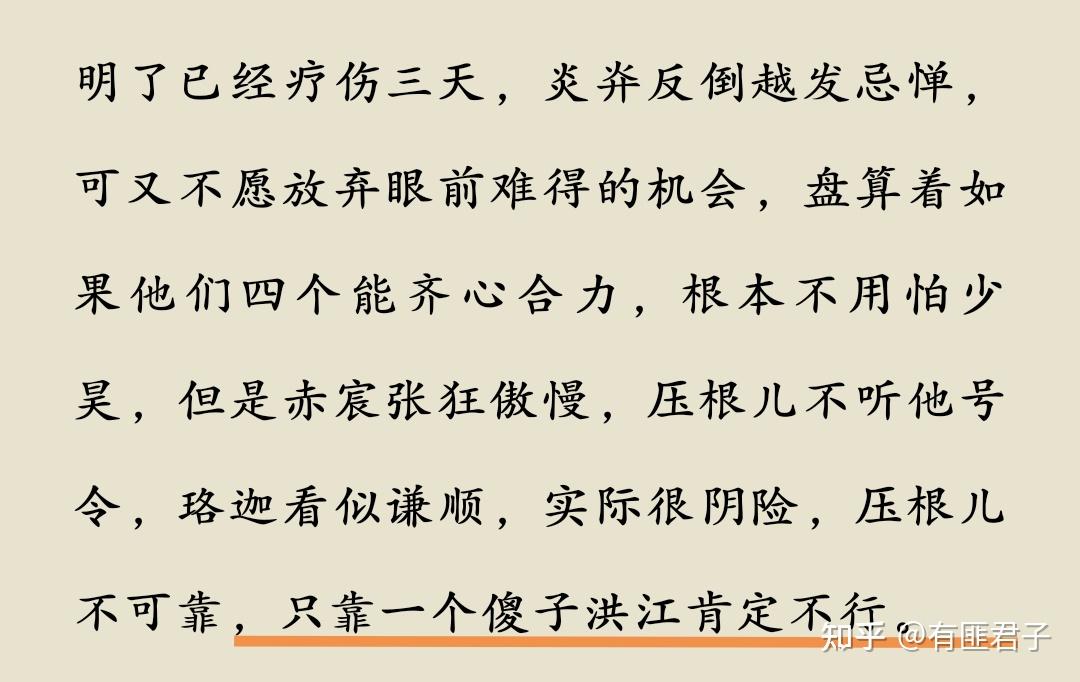
From Yanzhuo’s perspective, Hongjiang is a fool.
Now, let’s take another look at Hongjiang’s simple and straightforward nature—
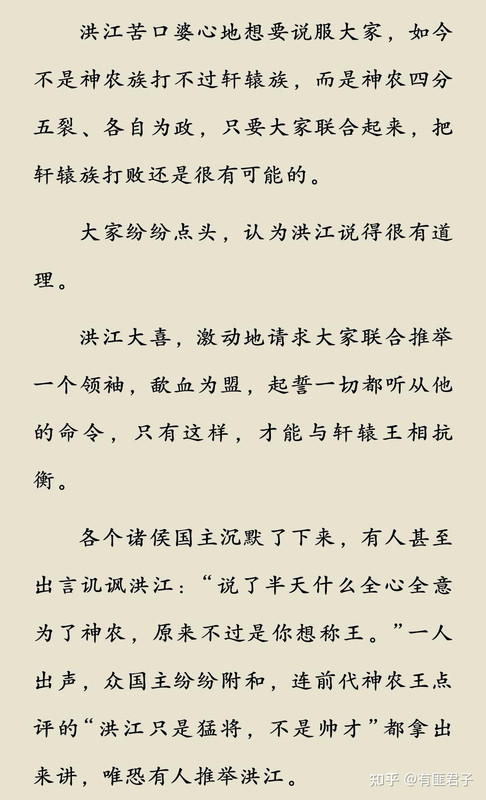
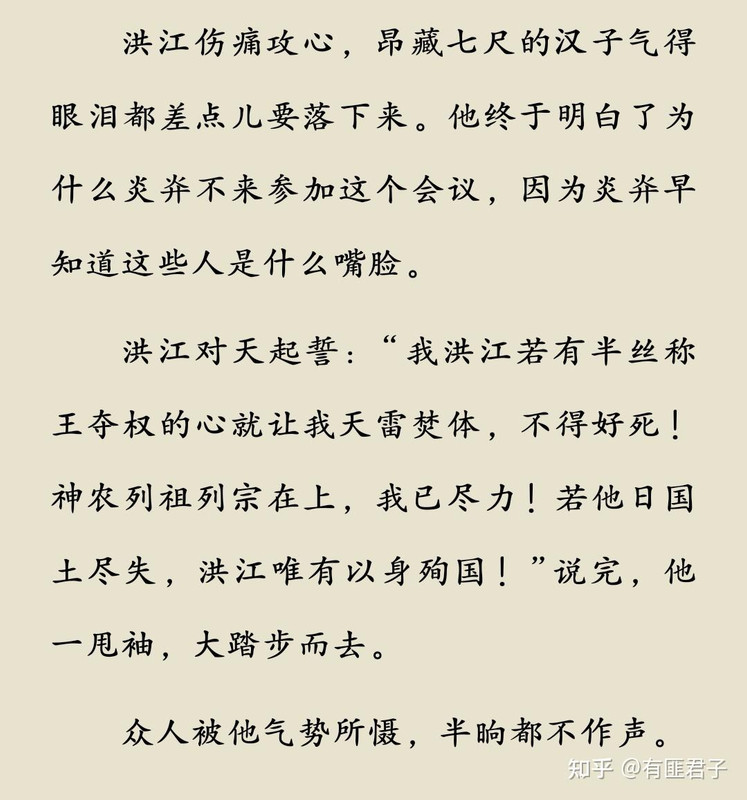
Directly pointing out the key issue, he was misunderstood as being ambitious.
As a result, he almost cried — though it’s unclear whether he was crying out of anger or because his own simple-mindedness made him cry.
At this point, the character image becomes clear.
— Hongjiang is a descendant of the Chenrong clan, a nobleman. His spiritual power cultivation and ability in military formation and command are not lacking. But he is not skilled in scheming, and has the fatal weaknesses of being benevolent, simple, old-fashioned, and rigid, making him easy to manipulate. Although he commands a powerful army, the emperor does not consider him much of a threat.
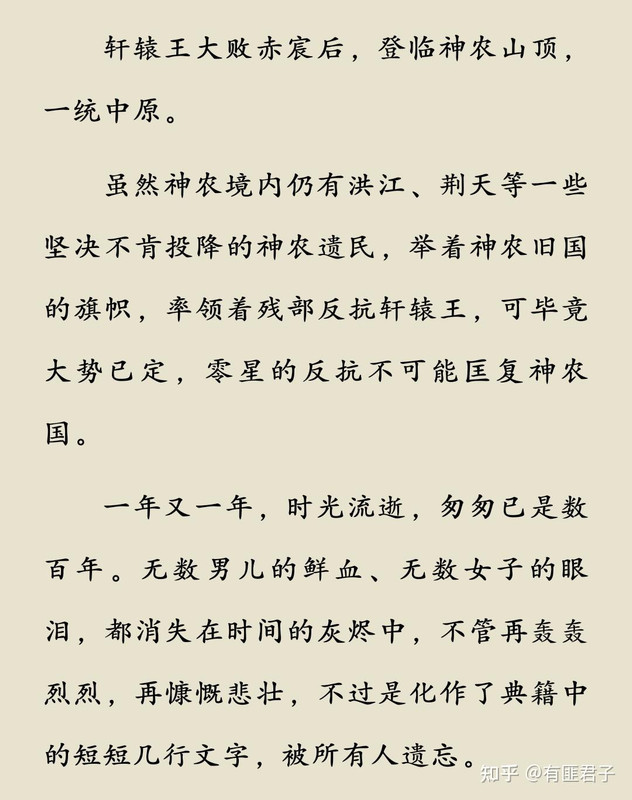
Xiyan mobilized the full strength of the nation to face Chichen in a decisive battle at Jizhou, but did not regard Hongjiang as a threat. Later, Hongjiang’s troops stayed curled up in Qingshui Town for hundreds of years, and Xiyan never launched a full-force assault.
In the drama, when it comes to decision-making and battle command, it is actually Xiangliu who fulfills the role of the commander. Hongjiang trusts Xiangliu one hundred percent. So much so that he says, "Whatever you ask me to do, I will do it; if you don’t explain, then don’t explain."
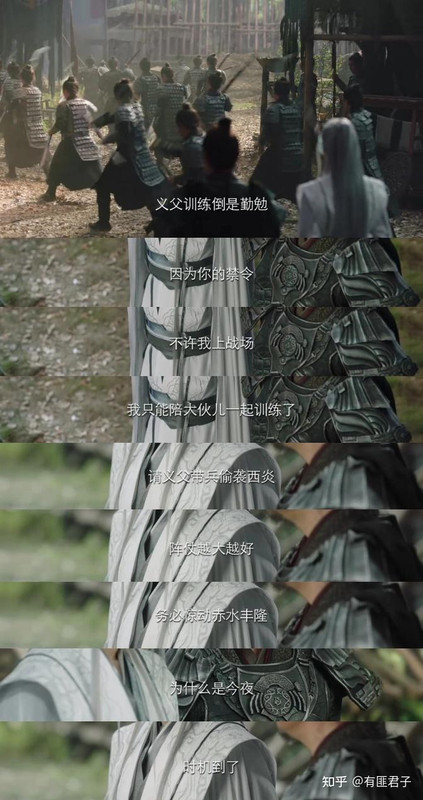
The character image is now clear, so back to the question — what is Hongjiang after?
What Hongjiang seeks is something that changes, yet also remains unchanged.
In the first three hundred years, the righteous army remained holed up in Qingshui Town, engaged in a tug-of-war with the three powers of Xiyan and Haoling. As long as the righteous army’s military force existed, Xiyan would not dare to aggressively move into the Central Plains, keeping the region stable. Therefore, in the early stage, influential figures and wealthy clans from the Central Plains, such as Chenrong Yi and Tushan Jing, all needed the Chenrong Righteous Army to survive. Because only with the Chenrong Righteous Army could they have stability and prosperity.
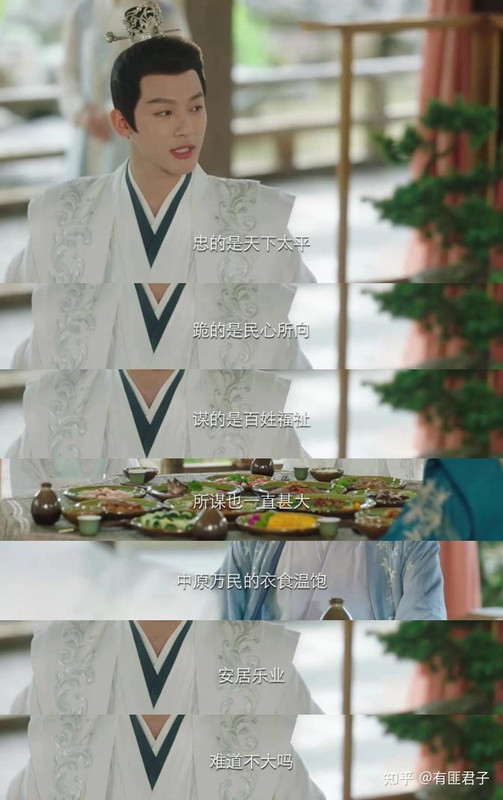
(Borrowing Cangxuan’s evaluation of Chenrong Yi to reveal what Hongjiang is after)
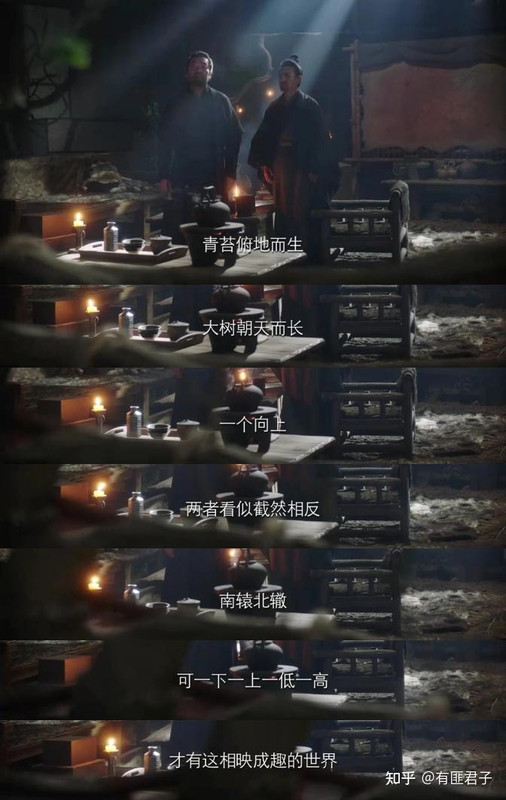
(Here it is stated directly: you are in the open, I am in the shadows).
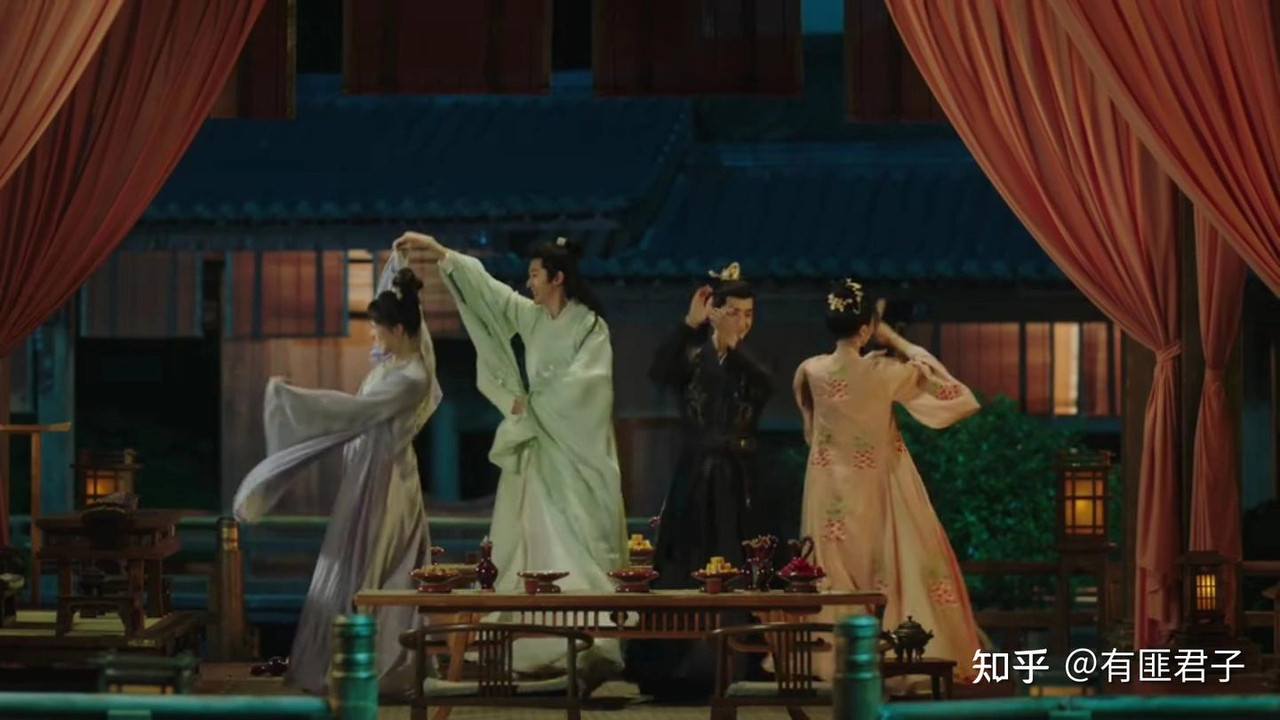
Songs and dances of the Chenrong princes, princesses, and nobility.
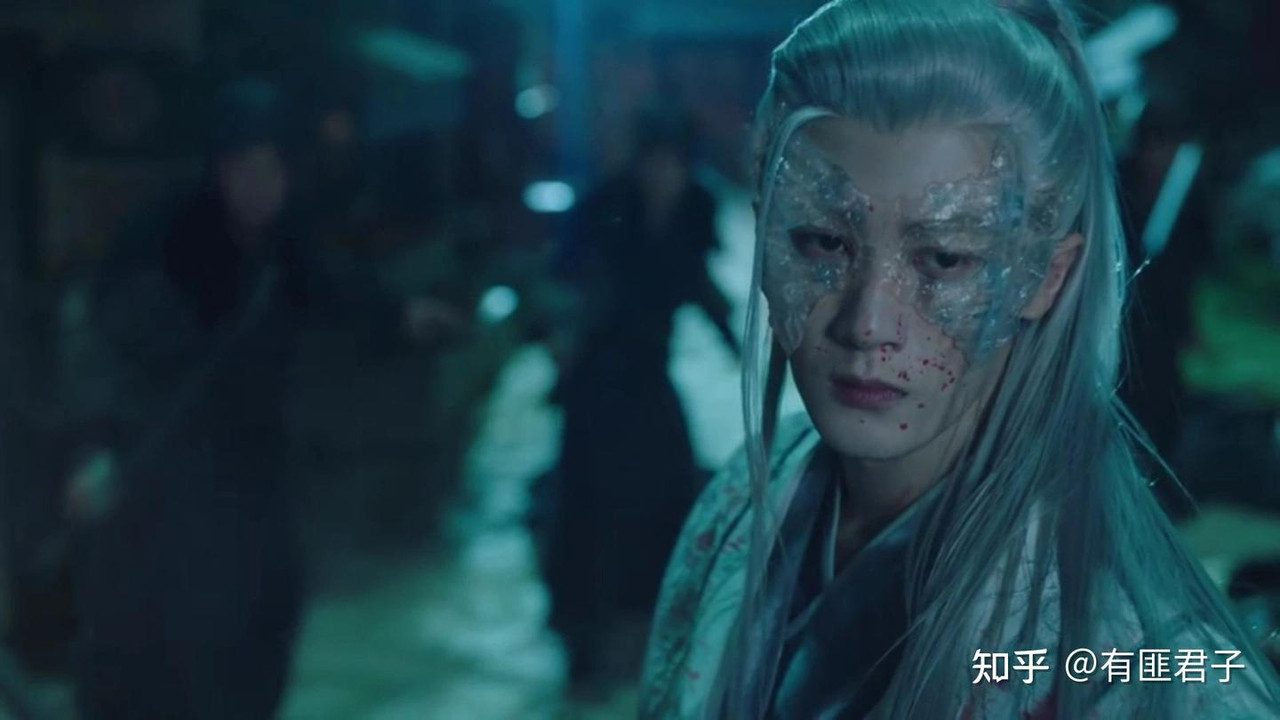
The Chenrong soldiers fought fiercely, drenched in blood.
(This scene transition creates a contrast — prosperity stained with blood.)
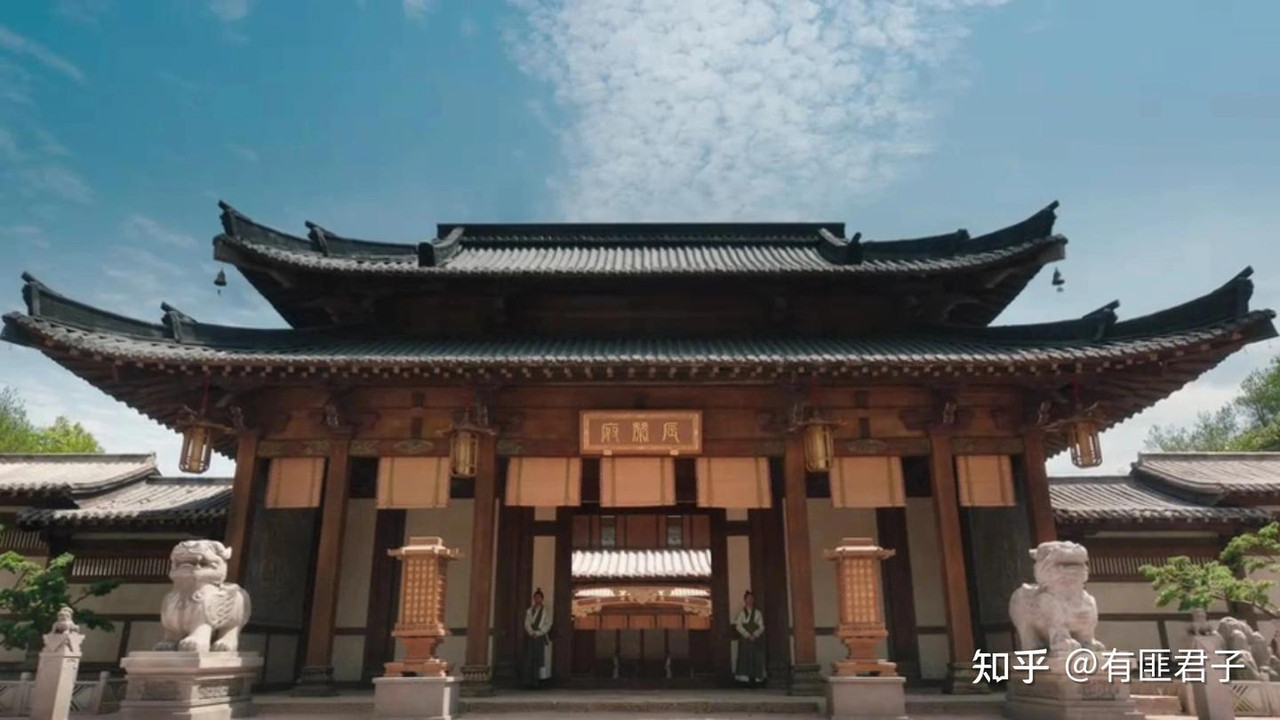
Chenrong Residence.
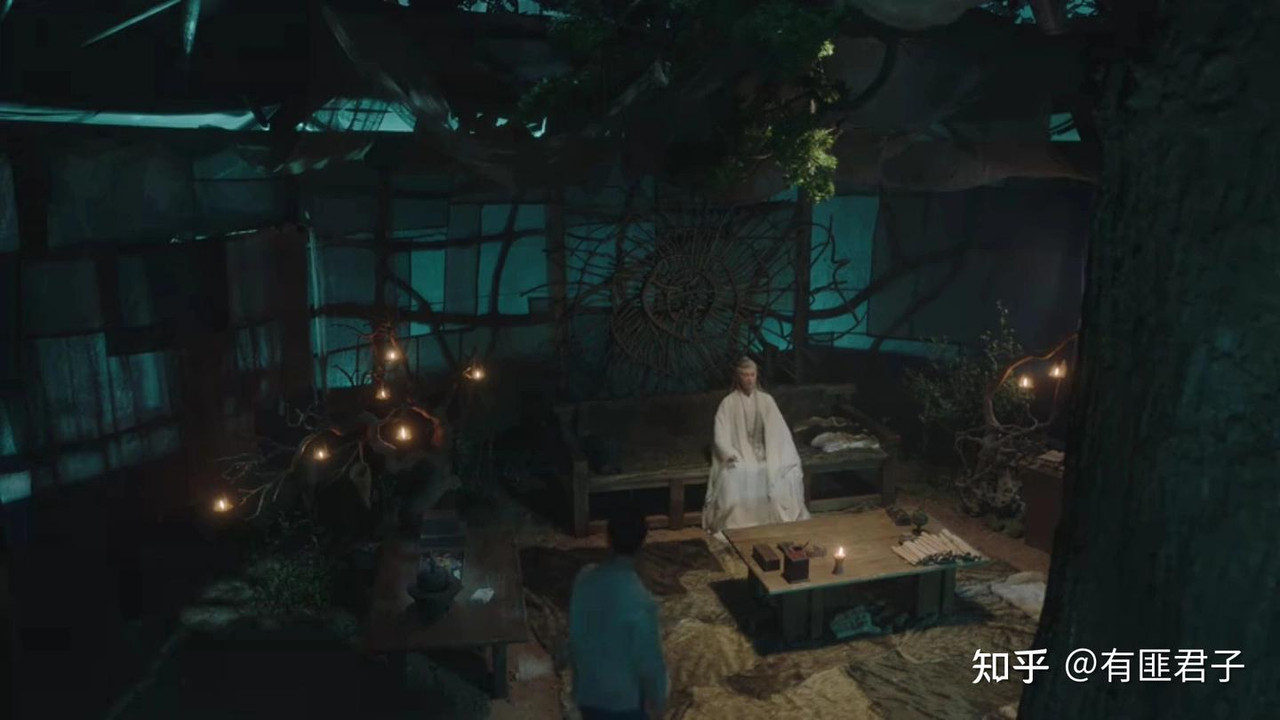
Chenrong Righteous Army’s camp.
Hongjiang’s perseverance is because he carries his homeland in his heart.
What he seeks is for the people of his native Central Plains to be free from war, living in stability and prosperity.
Now, looking at what Chishui Fenglong “helps” Cangxuan for — what is he after?
Chishui Fenglong’s political maneuvering is hidden and never stated outright.
Chishui Fenglong and Chenrong Xinyue have always regarded themselves as princes and princesses of the Central Plains.
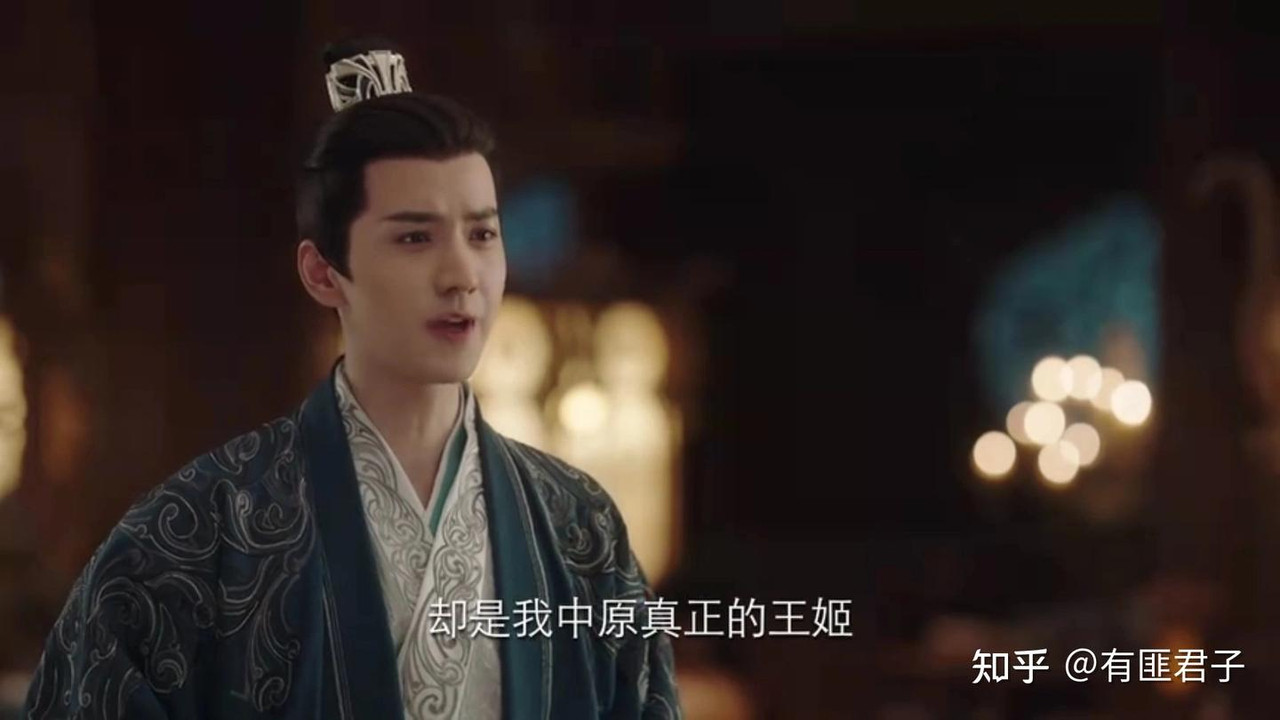
In the Central Plains, raising troops with Cangxuan carries the risk of having one’s entire family executed and clan exterminated.
What kind of expected reward could make Fenglong, who is already a “prince,” willingly take such a huge risk to support Cangxuan?
It is left unsaid, but easy to guess.
What the brother and sister have worked themselves to the bone for cannot possibly be just to serve as loyal subjects.
Xiaoyao affirms that this sole surviving “prince” of the Chenrong Kingdom is not a “sunny and cheerful big boy.”
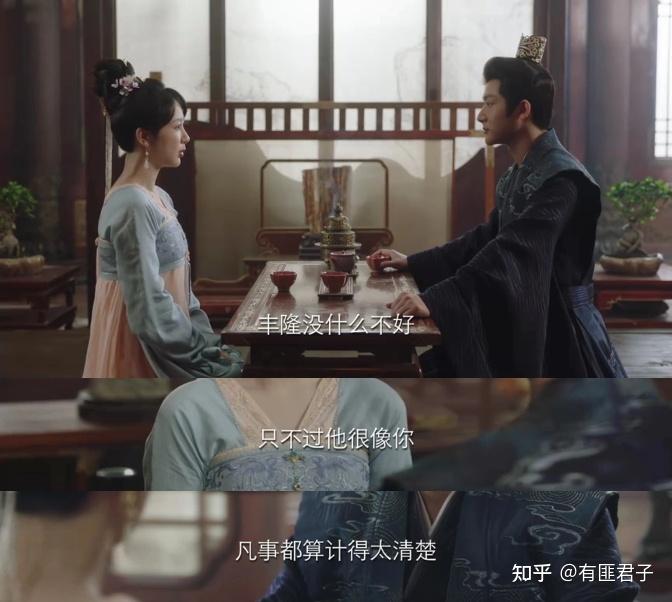
The Chishui Fenglong family’s “Sima Zhao’s heart” (obvious ambition), though never stated outright, is very clear in the logic.
Later on, Fenglong and Xinyue repeatedly touched Cangxuan’s reverse scale, and Cangxuan could only tolerate it. They could not be offended — their family’s power had grown far too great.
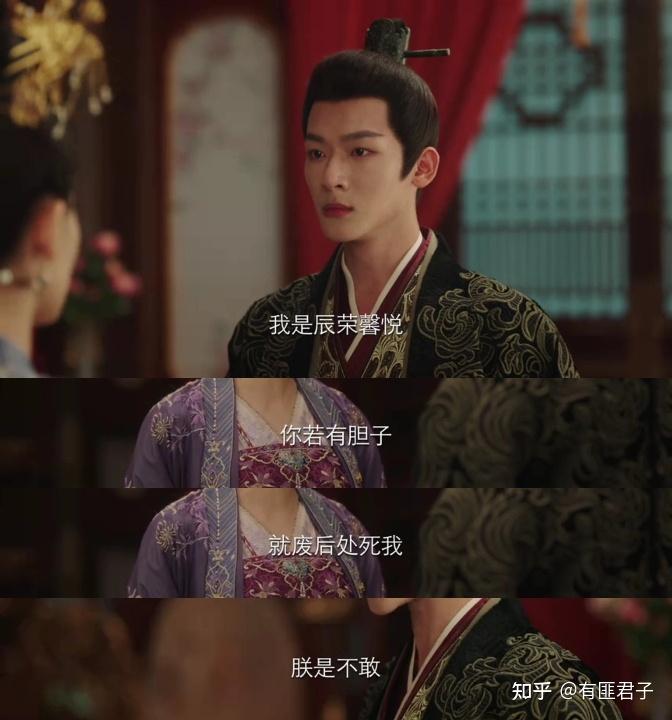
The Xiyan prince and his grandson lured the snake out of its hole, and Chishui Fenglong took the bait, proposing that Chenrong Yi persuade Hongjiang to surrender.
From Fenglong’s perspective: once Hongjiang accepted the surrender, the two forces of the former Chenrong Kingdom would unite, and the hope for Chenrong’s restoration and for Fenglong to proclaim himself emperor would become much greater.
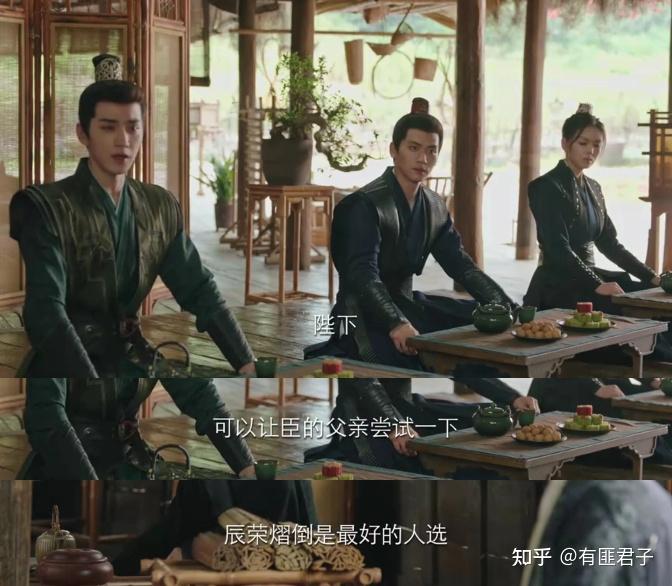
Why didn’t Hongjiang surrender?
According to Tong Hua’s logic, surrendering = being wrong. Not surrendering means that what he has done and is doing is right. (Explained through the words of Fengbo under Chichen’s command.)
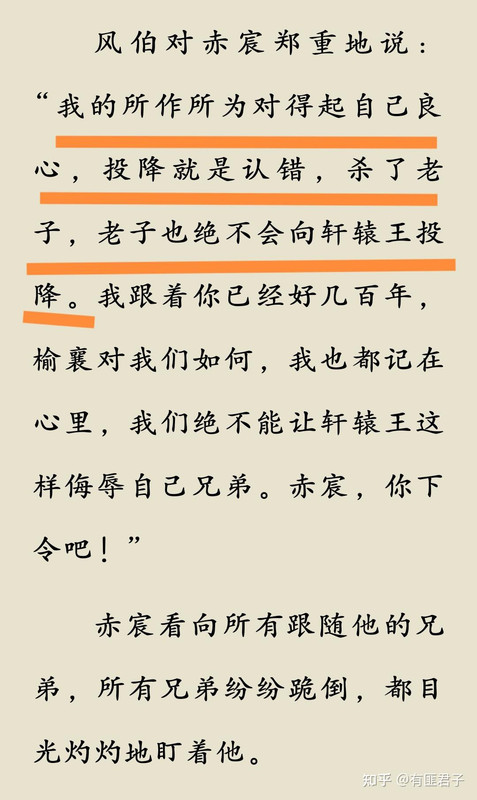
Xiangliu’s line, “Though there be ten million men, I will go.”
What it means is: as long as this matter is right, then go and do it.
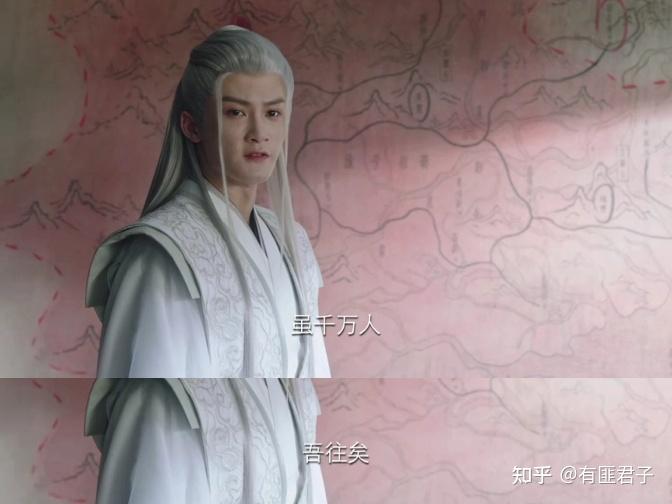
Hongjiang’s shadow character is Lao Mu, and Lao Mu’s hooked hairpin.
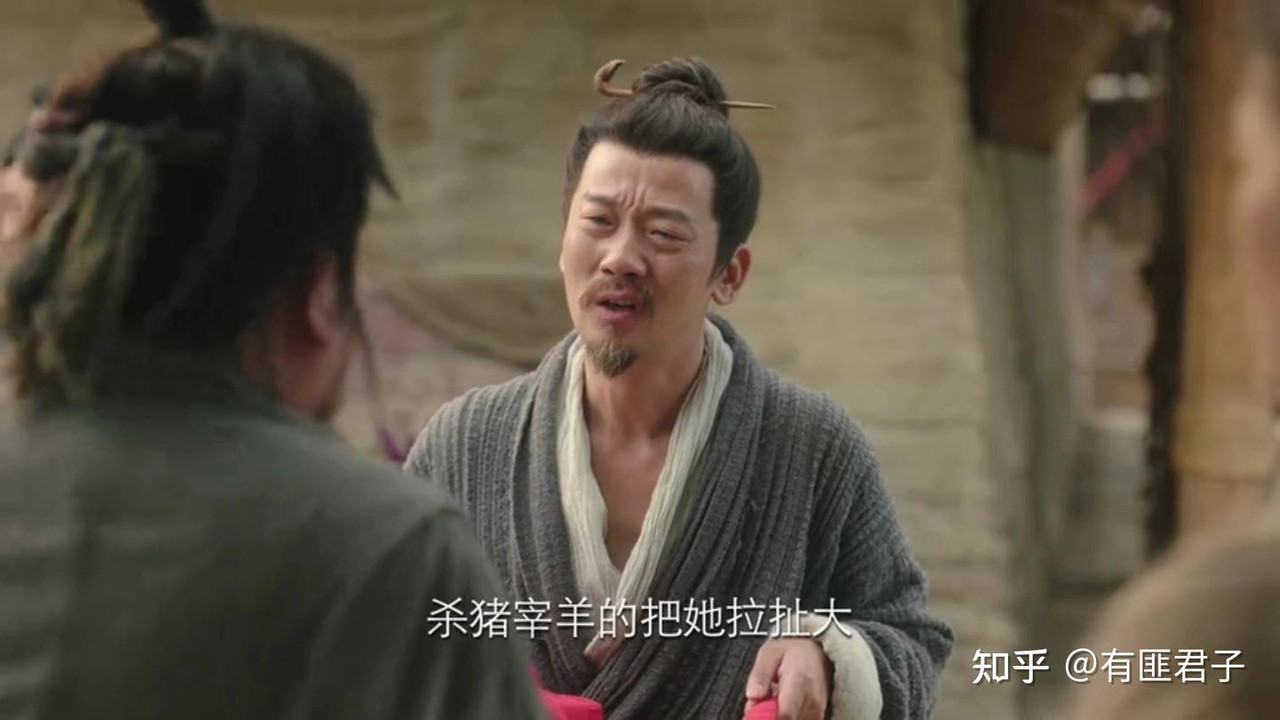
What is the right thing?
To give up restoring the kingdom, and instead achieve peace and stability throughout the land, so that the people can live and work in contentment.
Even if the cost is sacrificing oneself, he would rather die than surrender.
If besieged, then fight to the bitter end—because he is not wrong!
Hongjiang scolded Chenrong Yi, threw him out, and they parted ways.
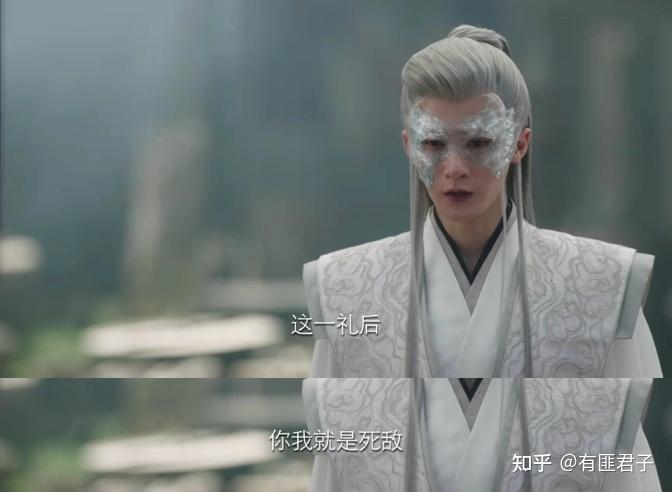
Why did Xiangliu kill Fenglong?
Fenglong led troops to suppress the righteous army — since he refused to be used by me, he must die by my hand and become a tool for me to gain merit and fame.
Xiangliu used Hongjiang as bait to decisively defeat Fenglong — this lured out Fenglong’s firm intention to eliminate Hongjiang and strengthened the resolve of the peace faction to oppose the restoration faction.
Xiangliu killed Fenglong — by killing the slave master, the sole heir of the Chenrong clan died, completely cutting off any possibility of restoring the Chenrong Kingdom.
The result — peace across the land was secured; removing the powerful minister was beneficial to Cangxuan.
According to the book, the elimination of Fenglong was a conspiracy between Cangxuan and Xiangliu. Cangxuan was tricked into revealing the truth by Yujiang, the “pig teammate,” and Xiaoyao quickly secured solid proof.
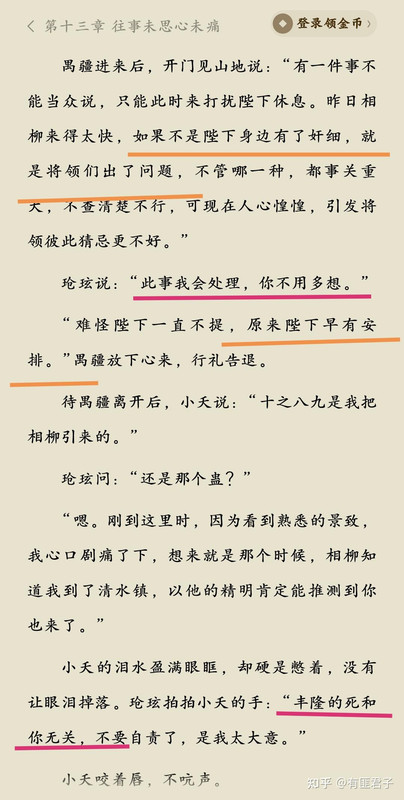
The drama also gave a shot where a weapon blocks the view as a hint.
(Cangxuan and Xiangliu’s long-term deep cooperation will be explained in detail later.)
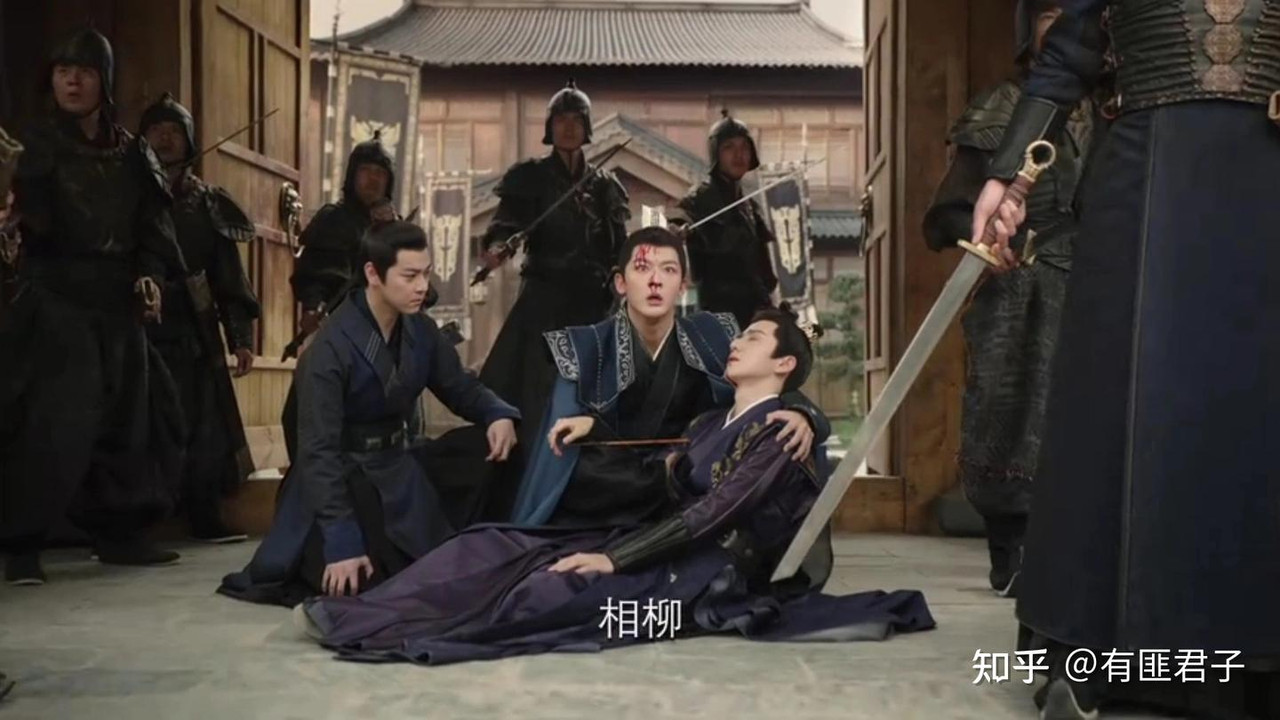
As for the righteous army, Cangxuan had no need to completely annihilate them. As long as Xiangliu was dead, everything could be negotiated. Scattering the remnants and allowing them to lay down their arms and return to farming was the solution with the least casualties.
The final battle in the book was clearly a deliberately restrained fight — more of a performance in nature.
Regardless of the process, the tactics are completely unreasonable.
Suspicion 1: Rushou set fire to the mountain, but Hongjiang and Xiangliu’s water control techniques were not used to put out the fire.
Suspicious point 2: Rushou used five times the troops to besiege. Such a difference in troop strength is insufficient to form a complete encirclement — Tong Hua could not possibly have never read The Art of War.
Suspicious point 3: Rushou drove the Water God and the sea monster into the sea, right into their own home territory.
Suspicious point 4: Tens of thousands surrounded a thousand, fighting continuously on a small island…
In the drama, the intention to deliberately ease up in the war is not obvious, but in the earlier plot, Rushou’s “Best Actor” persona was repeatedly emphasized — the “Best Actor” was the one commanding the final battle.
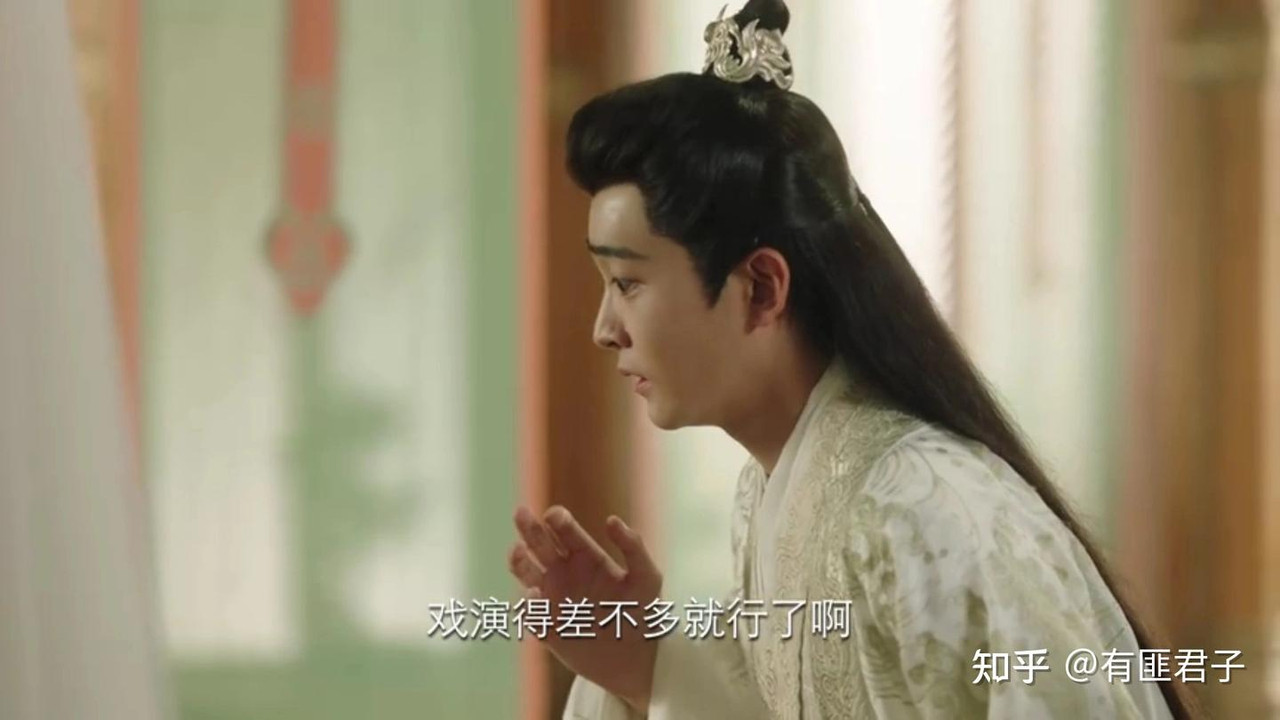
[As long as the performance is good enough, that’s all that matters.]
Xiangliu must die in front of the soldiers.
Only in this way can Cangxuan give the Central Plains an explanation to silence endless rumors, and create the room to let the majority of the troops escape.
The book’s extra chapters emphasize that Xiangliu was a general who protected his soldiers.
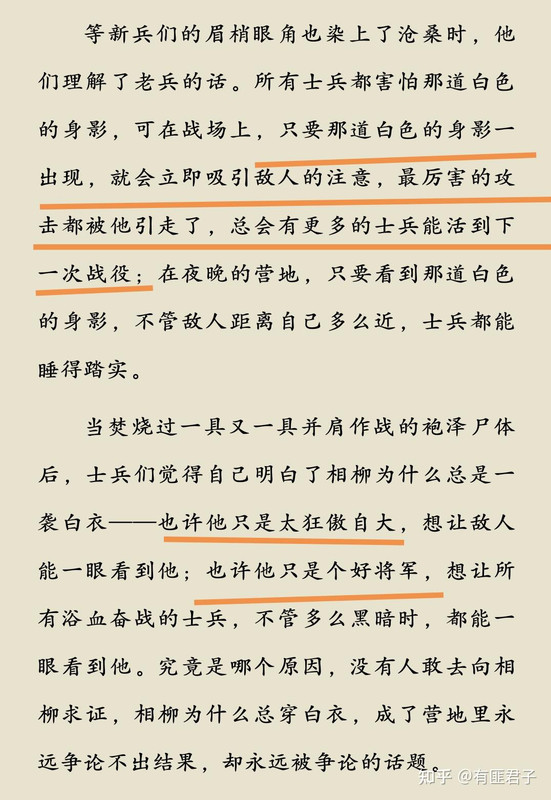
[When the new soldiers’ brows and eyes also showed signs of weariness, they understood the words of the veterans. All soldiers feared that white figure, but on the battlefield, whenever that white figure appeared, it immediately drew the enemy’s attention. The fiercest attacks were led away by him, so more soldiers could survive to fight another day; in the camp at night, as long as they saw that white figure, no matter how close the enemy was, the soldiers could sleep peacefully.
After burning one comrade’s body after another—fighting side by side— the soldiers felt they understood why Xiangliu always wore white—perhaps he was simply arrogant and wanted the enemy to see him at a glance; or perhaps he was just a good general who wanted all the bloodied soldiers, no matter how dark the times, to be able to see him clearly. Which reason was true, no one dared to ask Xiangliu to confirm. Why Xiangliu always wore white became a topic in the camp that was endlessly debated but never settled.]
The conspiracy between Xiangliu and Cangxuan: Xiangliu sacrificed himself as a pawn in exchange for peace throughout the land and the lives of the righteous army’s soldiers.
(More details will not be elaborated here but will be discussed later.)
Back to our question:
What does Hongjiang want? — Peace under heaven, and for the common people to live and work in contentment.
What do the three emperors want? — Peace under heaven, and for the common people to live and work in contentment.
Different paths lead to the same goal.
Hongjiang and Xiangliu insist on doing what is right, even if the risk is being shattered like jade — they absolutely persist.
All three kings understand that their goals are aligned.
Therefore, in the drama, the old Xiyan king and Cangxuan raise their cups from afar to honor Xiangliu.
Queen Chenrong Xinyue
Chenrong Xinyue is skilled at perceiving emotions.
She noticed that Fangfeng Yiying’s feelings toward Tushan Jing were insincere.
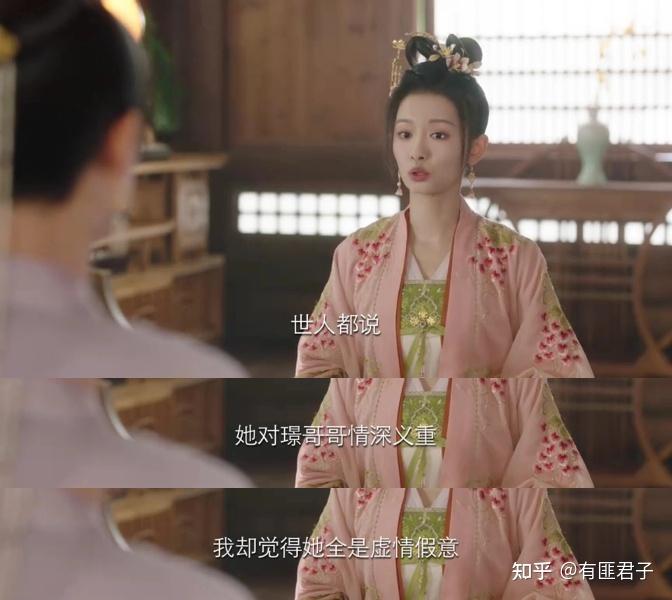
Seeing the phoenix tree, she guessed that Cangxuan had feelings for Xiaoyao.
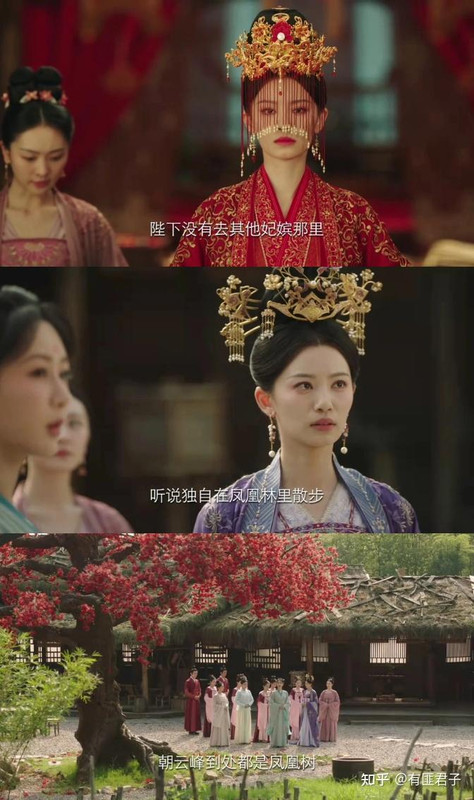
What Chenrong Xinyue saw and knew:
Xiaoyao admitted that she and Jing were mutually in love, which surprised Xinyue.
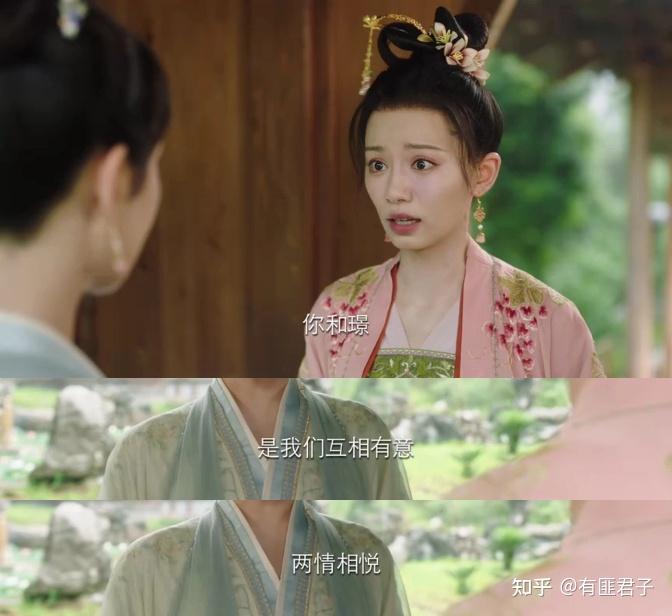
“Lost You”’s interesting mirror image — viewing the plot in reverse: “The fox bewitches his master” and “True feelings exchanged for true feelings.”
After that comes the fourth chapter of the book, “The hardest is joyful meeting, the easiest is parting.”
The original text describes an old friend setting off for war, with willows broken as a farewell gift.
“Sighing over life — the hardest is joyful meeting, the easiest is parting.”
“Thinking of an old friend — though a thousand miles apart, we share the same bright moon.”
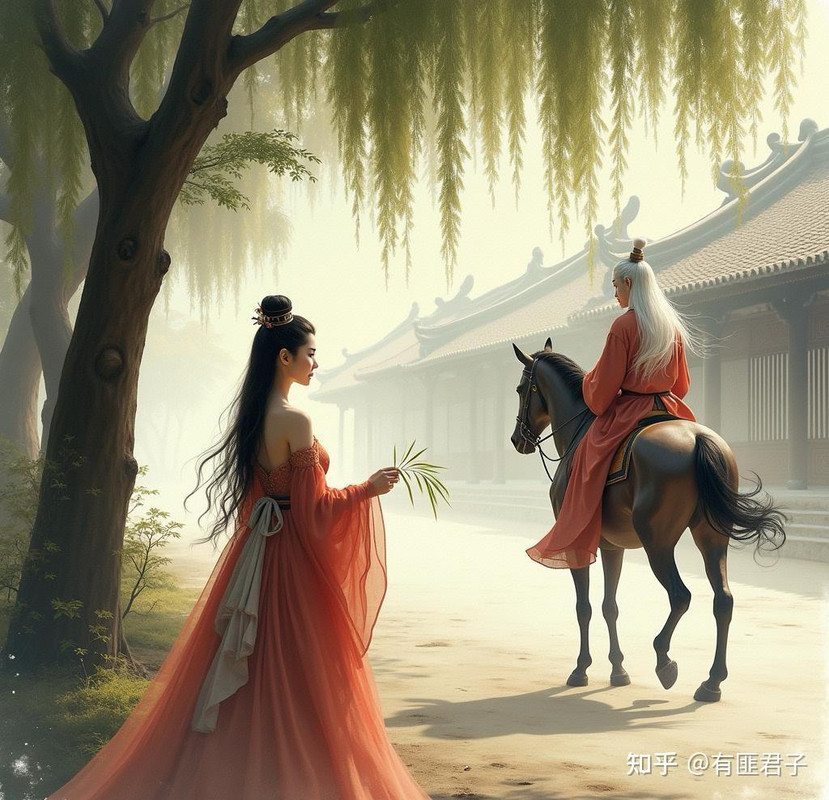
Wishing to stay, yet the sounds of the frontier rise together with the horns.
Turning away, not knowing when we will meet again.
It carries both the parting sorrow of farewell poems and the desolate grief of frontier garrison verses.
First, let’s cut in with a segment about the fox, showing another side of Xiao Liu.
Characters are three-dimensional — within the heart there is both Buddha and demon.
Earlier, in “The Battle of Two Hearts,” we analyzed Yao Jing’s relationship — Tu Shan Jing is Xiao Yao’s “monkey,” meaning evil thoughts, Inner demon.
The previous chapter corresponded to the dog — desire.
— Neither are flattering terms.
Xiao Liu’s attitude ladder toward the little fox
Step One
Xiao Liu picked up the beggar, brought him back, saved his life, and took care of him.
As the beggar’s injuries gradually healed, Xiao Liu seemed to become a different person — no longer listless and careless.
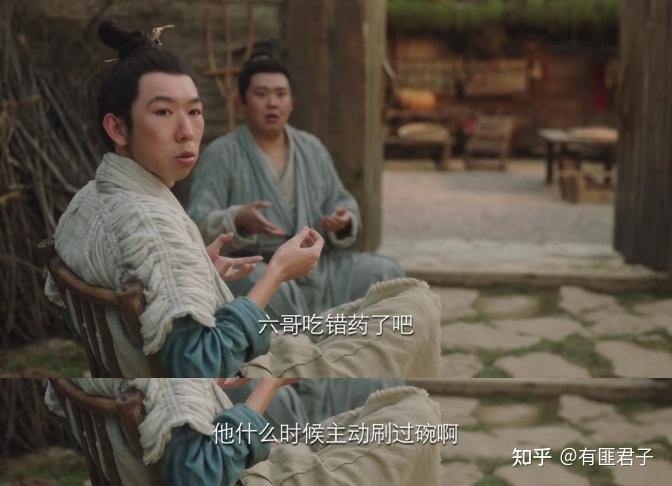
Mutual healing.
Stage Two
When the beggar could move again, Xiao Liu became cautious.
The beggar concealed his identity; Xiao Liu disliked him but still kept him.
Strong, clever, capable of work — there was an expectation of repayment.
The green robe reminded him of his mother. After Xiao Liu was injured, he used the fox as a pain reliever, and then felt somewhat guilty.
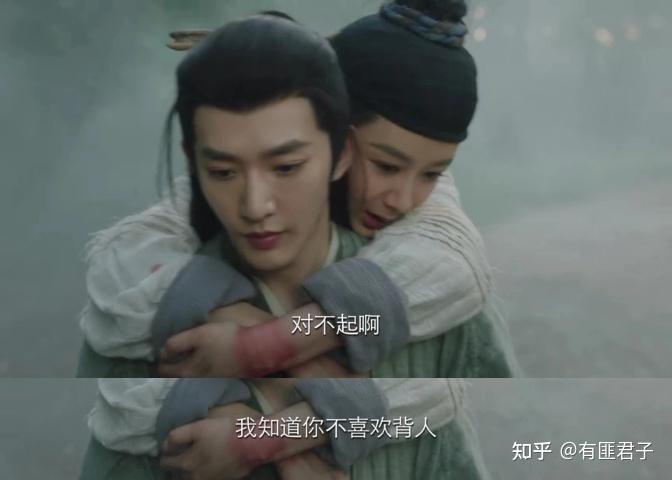
⏫ Here, I once saw an official on-screen comment saying the fox is like endorphins or ibuprofen — it doesn’t cure the illness, but it relieves the pain.
Xiangliu drank the poisoned wine, left behind a few venomous remarks, and left. Xiao Liu took out his anger on the fox, then later felt regret and shame.
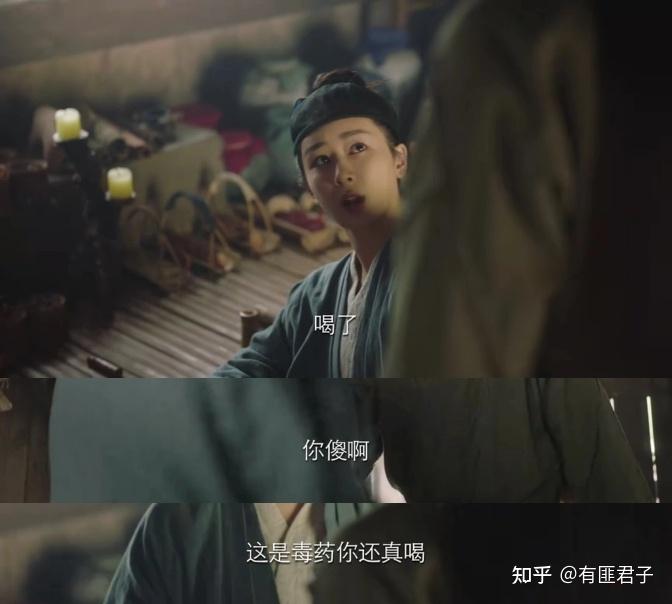
The fox really drank it, completely having Xiao Liu in the palm of his hand.
Stage Three
After the “running man” incident — angry, unable to drive him away, and even more expectant of a return.
From then on, Xiao Liu’s evil and darkness were thrown onto the little fox without reservation (see subsequent events).
Conversely, the fox succeeded in drawing out the “evil” within Xiao Liu’s human nature.
XiaoLiu and the fox shifted from “mutually healing” to “rotting together.”
The XiaoLiu–fox relationship explained from Cang Xuan’s perspective:
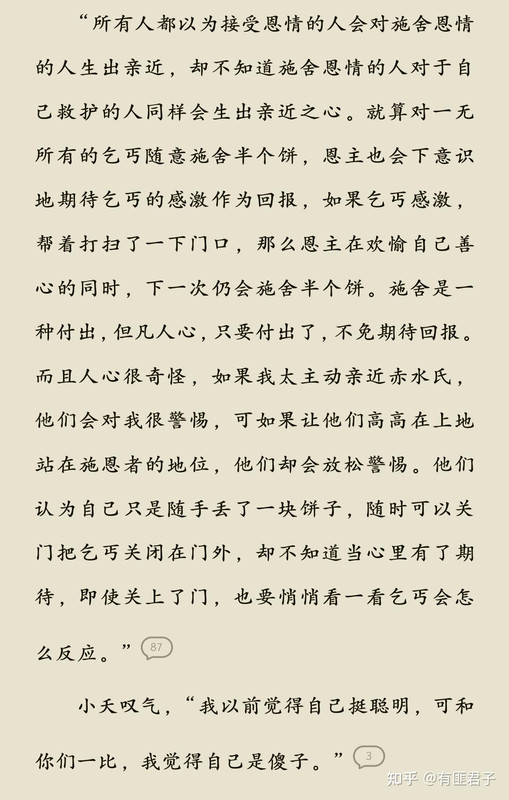
A benefactor tends to relax their guard and expect repayment, which the “beggar” takes advantage of.
Xiao Yao sighed, saying she was a fool.
Indeed, Cangxuan disguised himself as a beggar to make use of Fenglong, just as Tushan Jing disguised himself as a beggar to make use of her — but Xiao Liu only realized it later.
Continuing from the previous text.
From this point on, pay attention to the fox’s eyes.
In the book, Xiao Liu is basking in the sun.
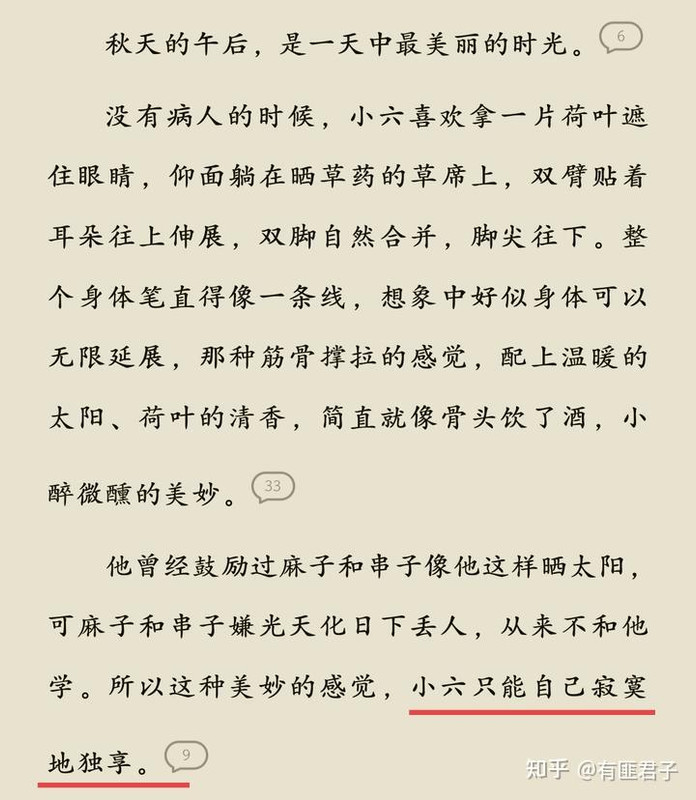
Like a cold-blooded animal, stretching out fully in the sun — lonely.
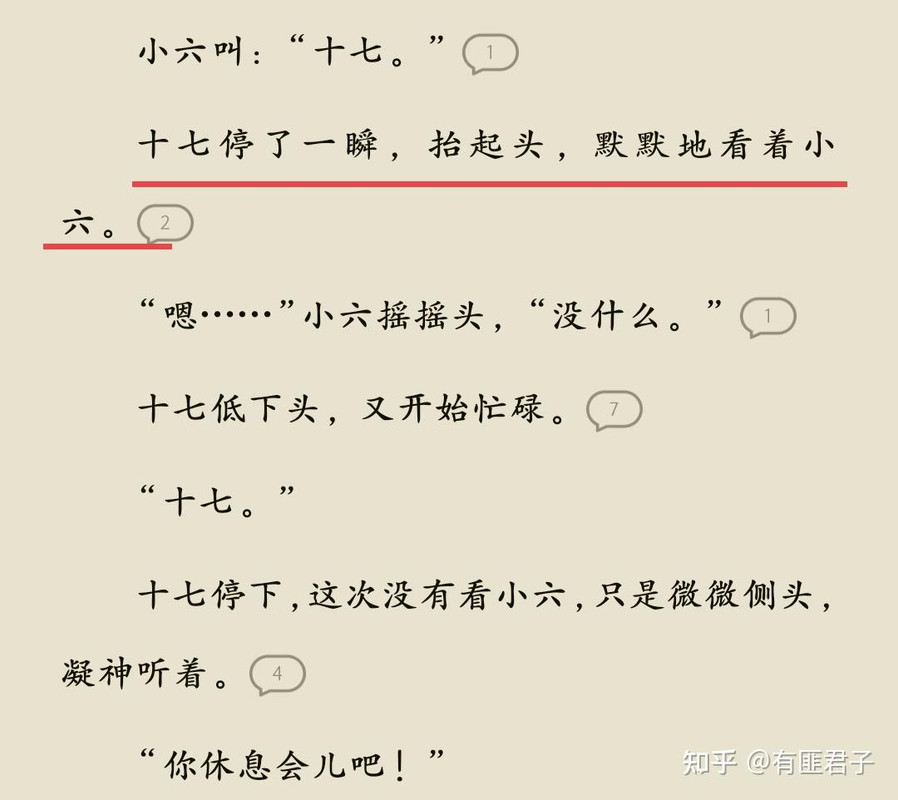
After being “silently watched” by the fox, he called him over to lie down.
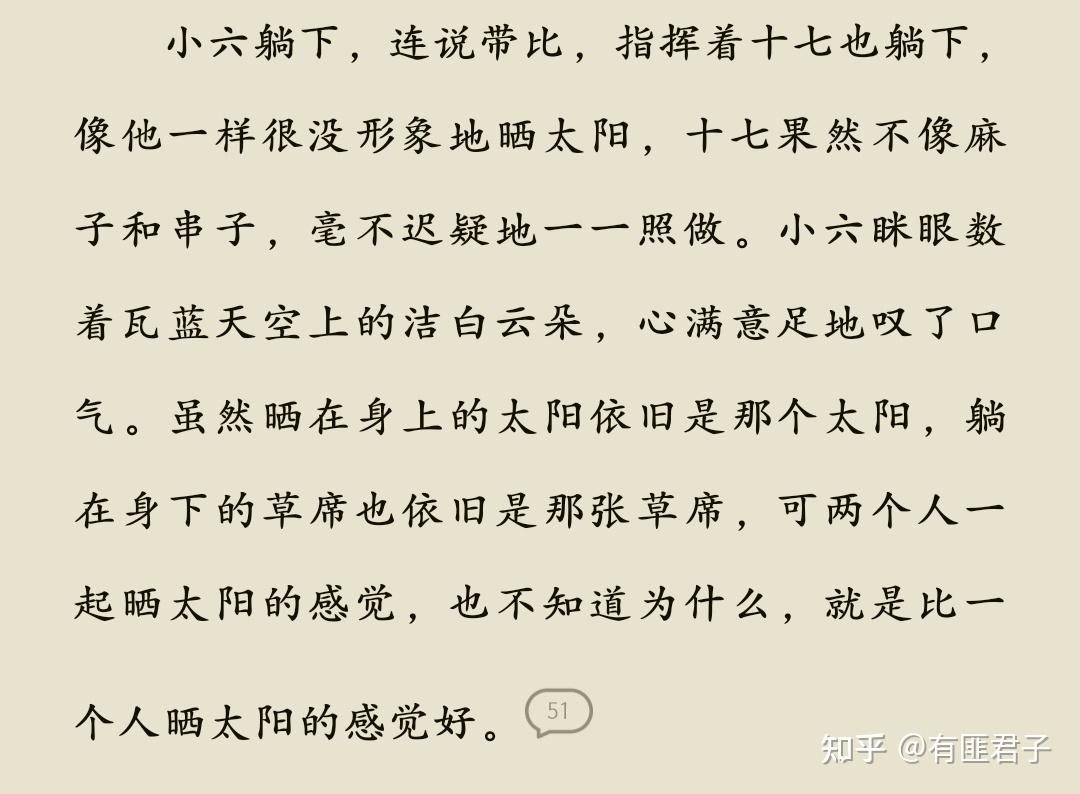
Gazing at the clouds in the sky, longing for companionship, with the fox lying beside him.
Shiqi took the chance to admit fault and make a promise.
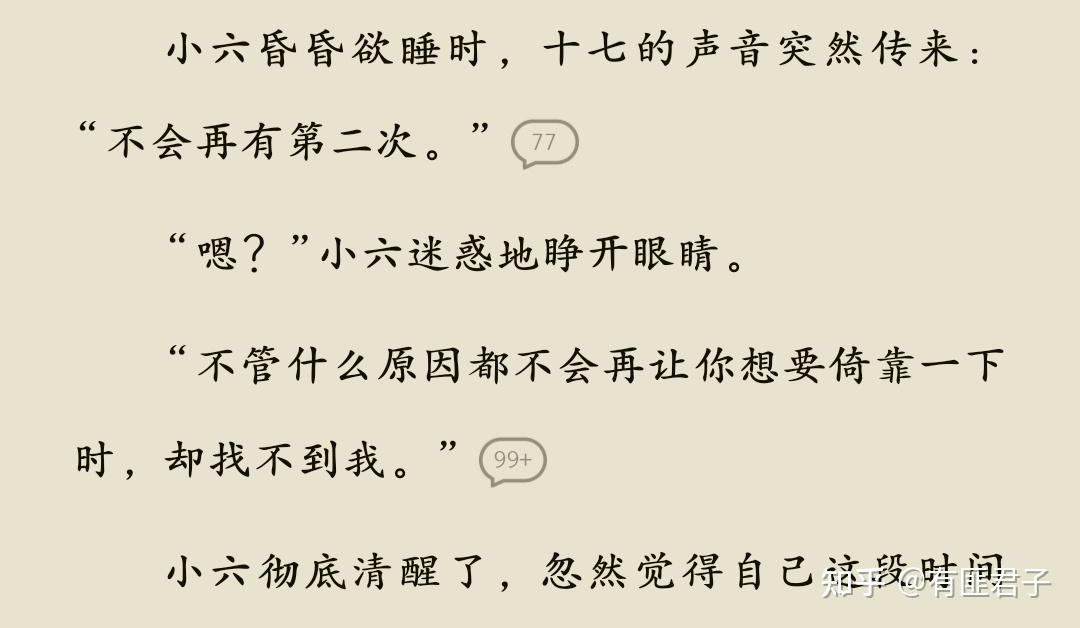
The fox’s promise completely woke the drowsy, confused Xiao Liu.
It’s written a bit dark.
In the drama, it was changed.
Faced with Cangxuan’s coldness and his fishing-for-information surveillance, Xiao Liu was resentful.
When Xiangliu appeared, he felt he had reached the end of his life.
When Xiangliu didn’t appear, there was loneliness and worry.
He took out his anger on the little fox.
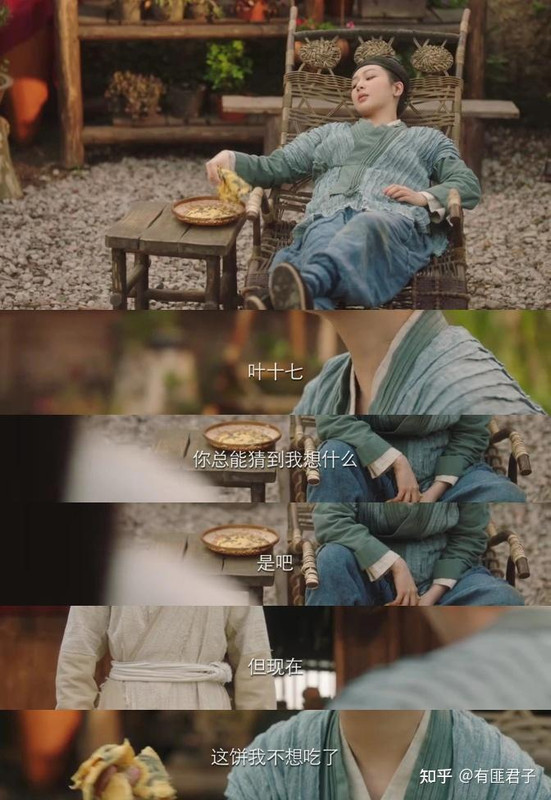
Wisteria blossom egg pancake — a hidden pun on “zi teng ji dan” (“the son aches, the consort’s egg”).
Xiao Liu, in the posture of a master, lounged half-reclined like a lord.
The little fox was in charge of cooking, while she was in charge of finding fault.
After Xiao Liu finished picking faults, the little fox admitted fault and made a promise.
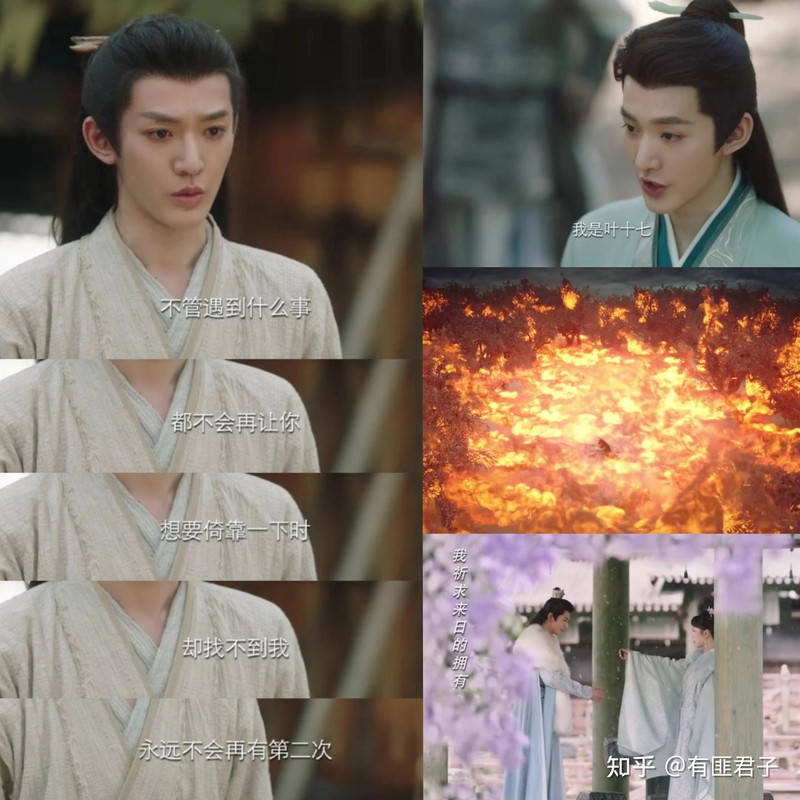
There will never be a second time.
Did Xiao Liu believe the little fox’s promise? She didn’t say.
However, a minute earlier, she had said she didn’t want to eat the pancake.
— This part was changed in a very interesting way.
Xuan and Old Mu were as close as sworn brothers, getting along very well.
Old Mu hurried home, calling Xiao Liu to go see Chuanzi.
Following the earlier plot, it’s easy to guess that this was Cangxuan once again “fishing” for information about Xiangliu and Xiaoliu
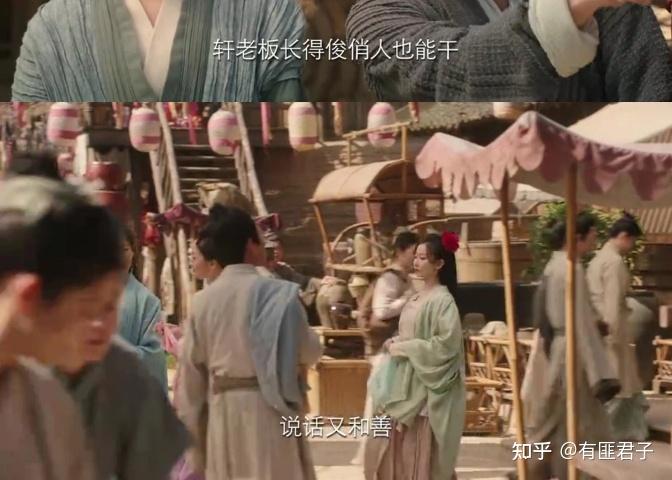 Chuanzi and Sang Tian’er had a secret rendezvous near the wine shop.
Chuanzi and Sang Tian’er had a secret rendezvous near the wine shop.
Inside were murmurs and flirtations, while outside were Xiao Liu and Shiqi.
Xiao Liu guessed it was Xuan’s doing, and vented both her anger at Xuan and her voyeuristic desire from watching Chuanzi onto the little fox.
Inserted is a scene of Old Mu and Xuan “making lewd jokes,” showing the little fox’s reaction.
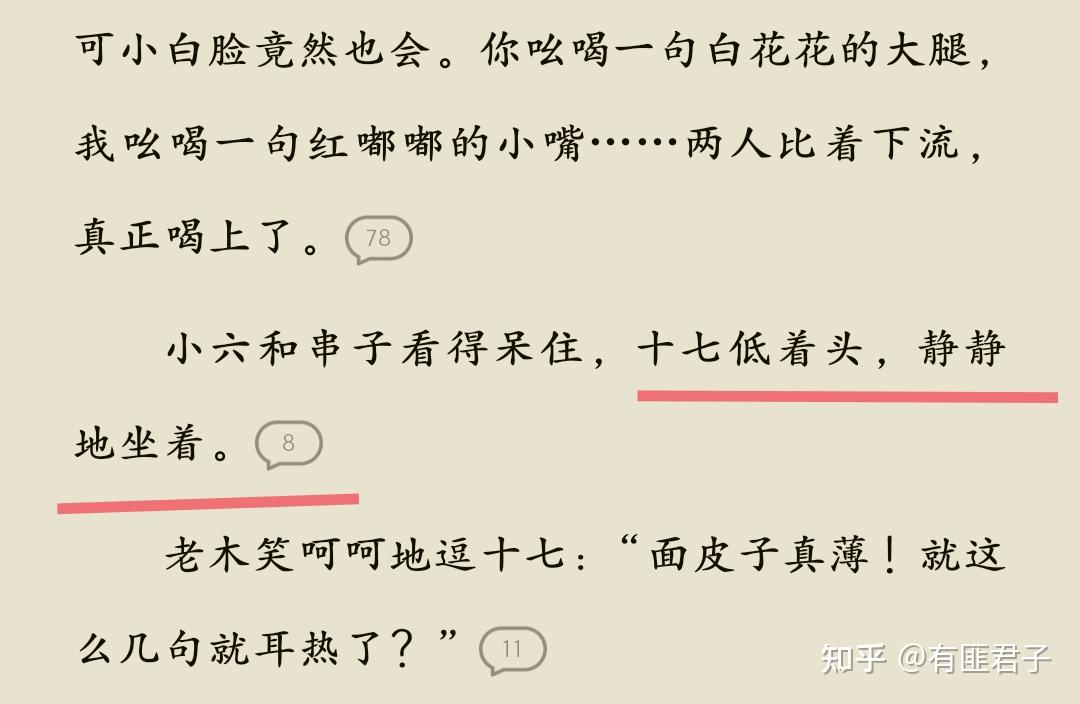
Xiao Liu is truly evil.
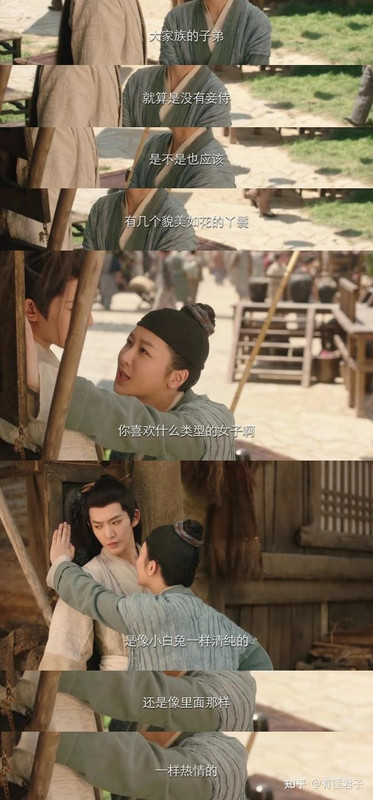
Xiao Liu: “You’ve had quite a few women before, haven’t you? So now… do you want a woman?”
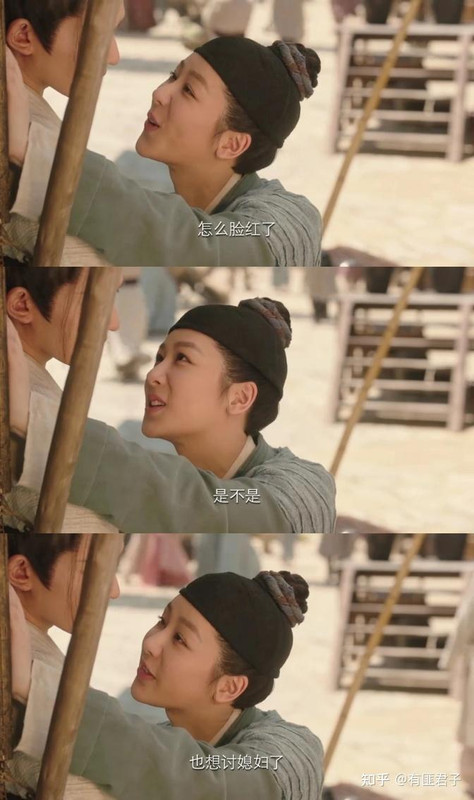
So greasy, so sleazy — a direct strike at the fox’s sore spot.
In the book: “Do you want it?”

The special description of the fox’s gaze appears again.
The fox turned defense into offense, once more using his foxy charm to bewitch the master.
Xiao Liu lost and walked away.
Having lost, she took out all her anger on Chuanzi (a double meaning, also referring to the earlier anger at Xuan that she had vented on the fox).

According to her own “view on marriage and relationships,” Xiao Liu sealed Chuanzi and Sang Tian’er’s engagement with one sentence: “Are you willing to sleep with him for a lifetime?” — leaving Sang Tian’er stunned.
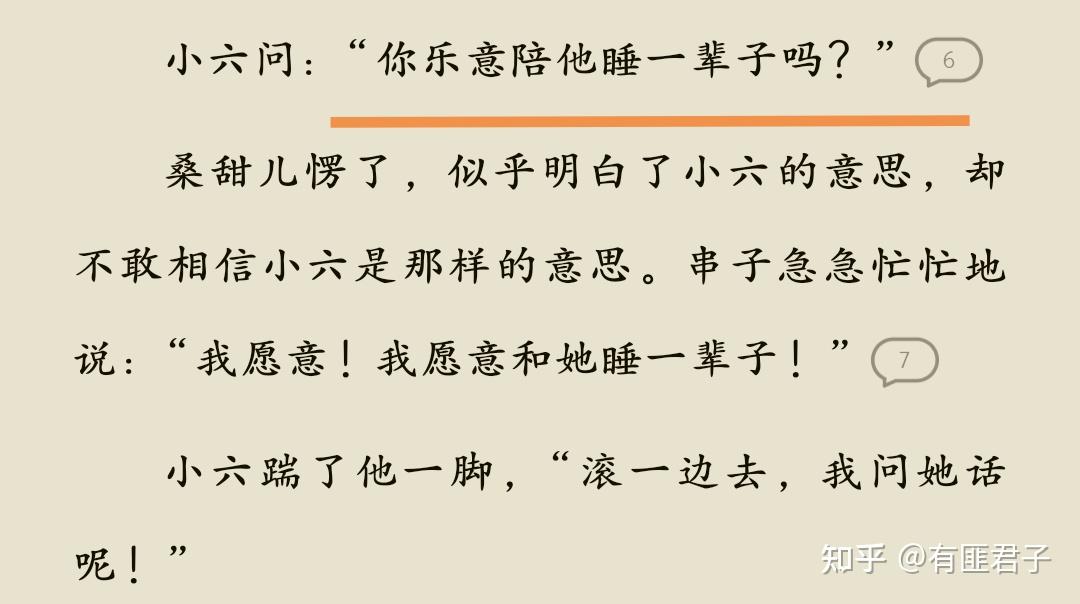
On the way home, she thanked Xuan (a provocation — letting him know she knew it was his doing).

Insert a segment about Xiao Liu’s “view on marriage and relationships.”
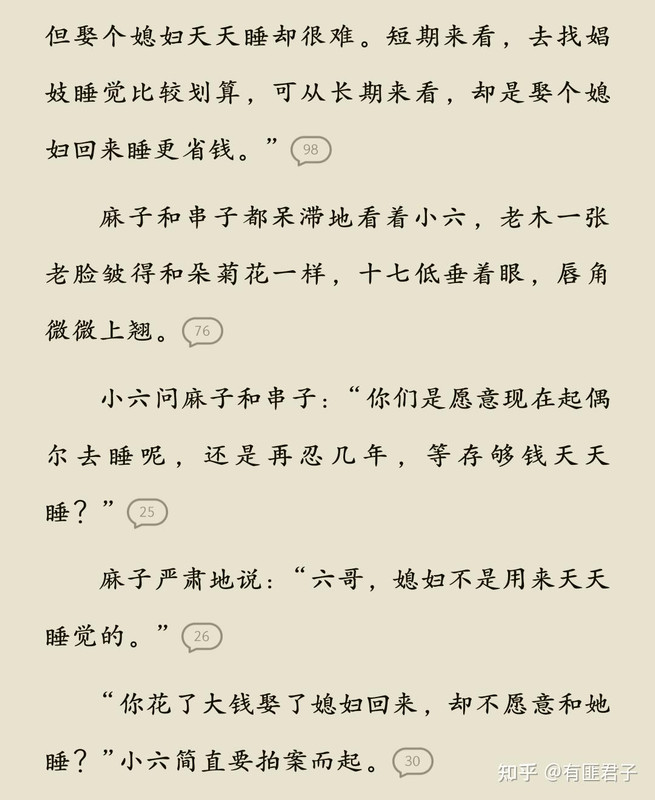
Marry a wife and sleep with her — it saves money.
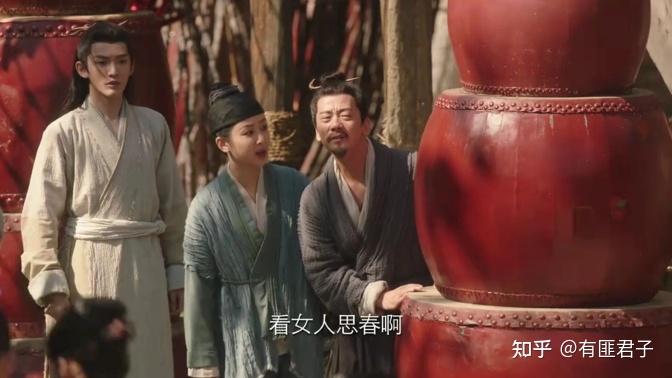
Looking at women = feeling lustful.
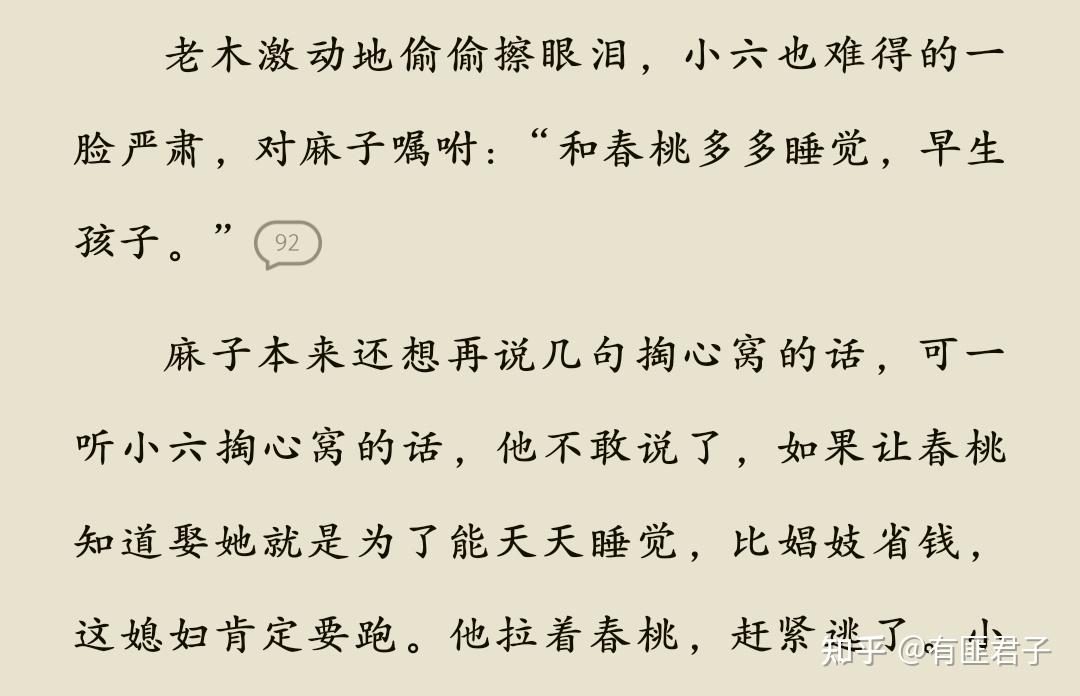
The heartfelt words were to advise Mazi Cuntao to “sleep more.”
"——Xiao Liu’s primitive view on marriage and romance, ‘sleep first, have a baby later,’ coincides perfectly with the monster who wants to consummate immediately upon meeting; they are a match made in heaven."
As the Liu–Fox relationship progressed, Xiao Liu realized: marriage wasn’t just for sleeping and companionship, but also for talking.
Perhaps Xiao Liu had her realization when being pinned to a tree and bitten on the neck. After this awakening, her “ferocious words” toward Liu disappeared.
Xiangliu soon followed and had his own awakening.
Thus, two beings with extremely high IQs but perversely low emotional intelligence began exploring and learning how to love.
Before understanding longing, they caused longing.
Xiao Liu’s “trading small for big.”
After Cangxuan bribed Sang Tian’er to seduce Chuanzi, he also bribed the madam to hold her back, planning to fish for information about XiaoLiu and XiangLiu
Xiao Liu saw through it.
She muttered an excuse and went to find Xiangliu.
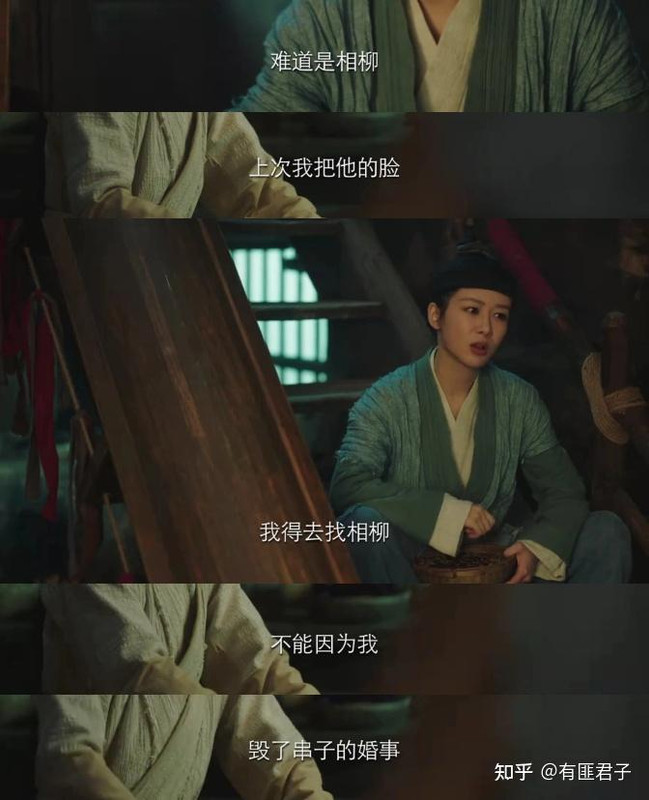
She missed him, and she also truly had an important matter.
The “important matter” was to inform Xiangliu: Xuan was fishing for information on the two of us.
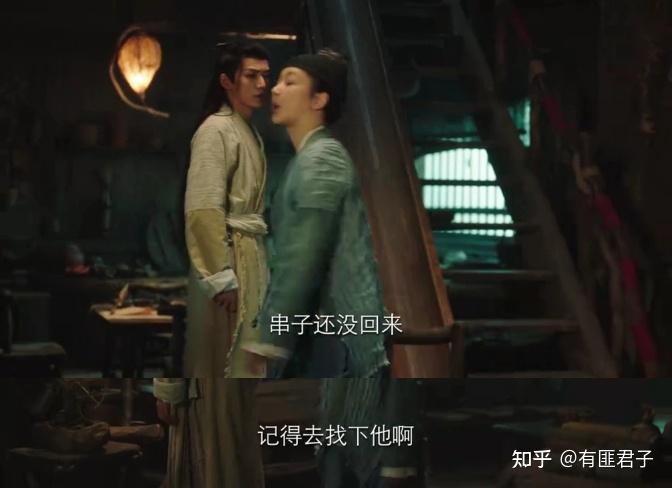
She sent the fox away, went to find Xiangliu, and aimed to “trade small for big.”
After all, compared to Xuan, angering Xiangliu was nothing.
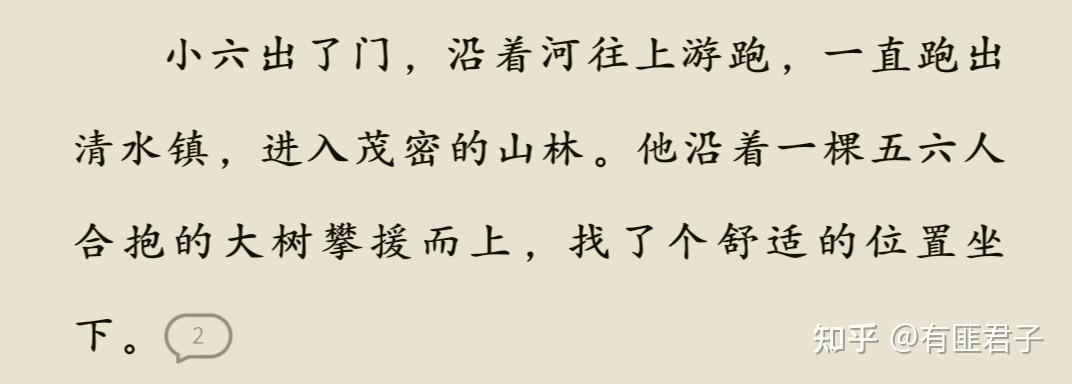
Running upstream all the way, she ran into the forest; the deep mountains were the territory of the righteous army, so others wouldn’t easily find her.
Climbing the tallest tree, Xiangliu was easy to spot atop the furball.
The “elementary-school-level dating” began again.
The drama added two segments of “drama queen Xiao Liu” performing solo.
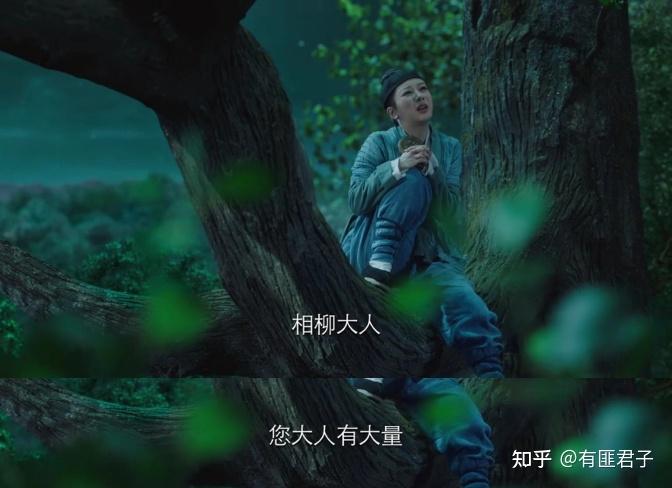
Begging for mercy, “admitting defeat and apologizing.”
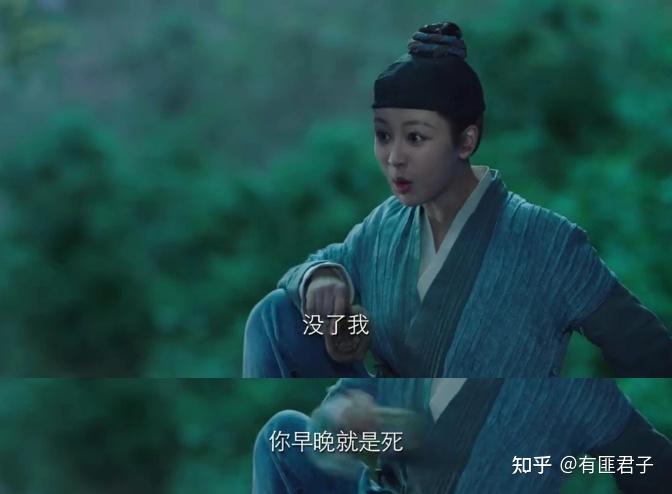
Lesson, “healing and protection.”
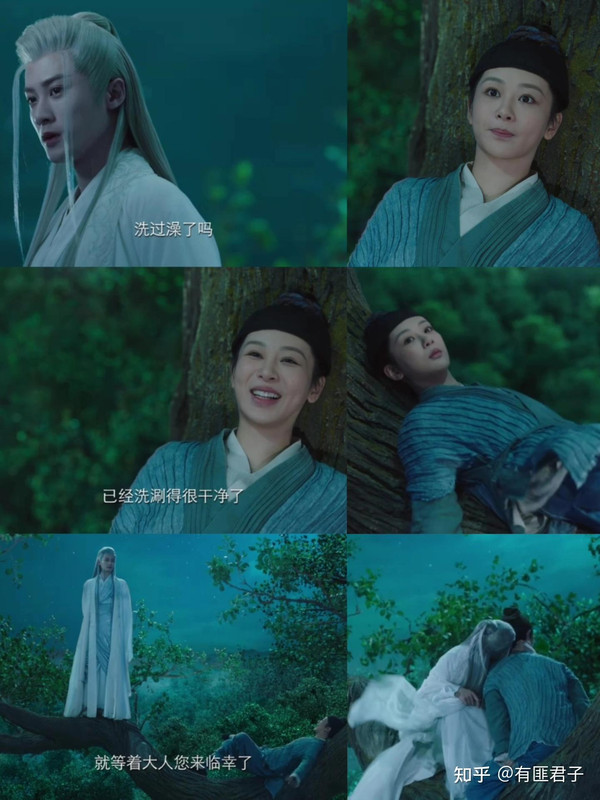
Here, Xiao Liu’s lovestruck expression, the speeding ahead, and the stirring of feelings are shown quite plainly. As the wind blows, the desires of both are lifted along with their sleeves.
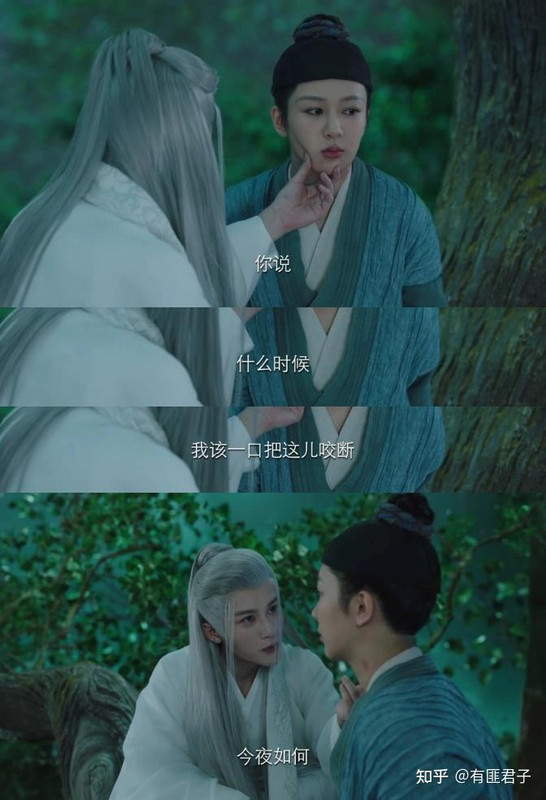
Xiangliu sought intimacy, his aim directly at the target — “eat” here is a euphemism for “sleep with,” which everyone understands.
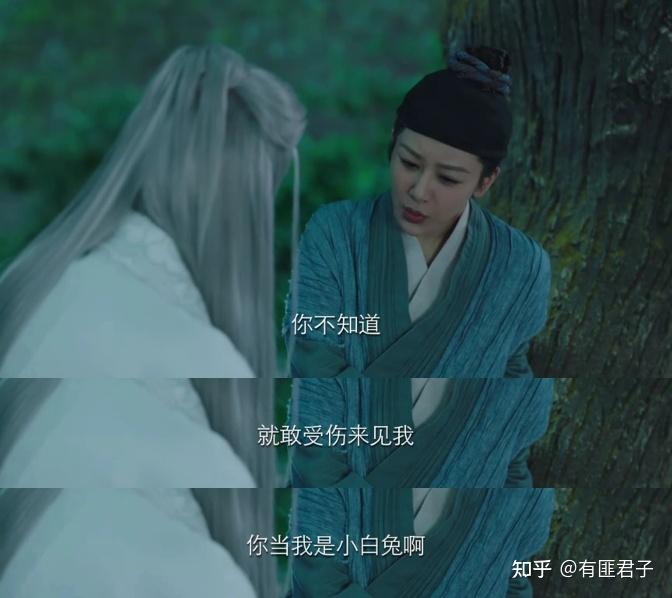
Xiao Liu pretended not to understand and changed the subject. Xiangliu, having been rejected, flew into a rage out of embarrassment.
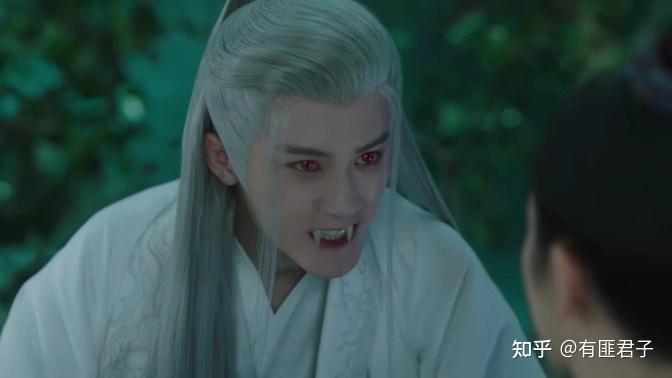
Showing a big smile—how could a girl not be charmed?
Xiao Liu was the first to “have an awakening,” expressing her newly realized “truth of love”: “Let’s talk, just the two of us.”
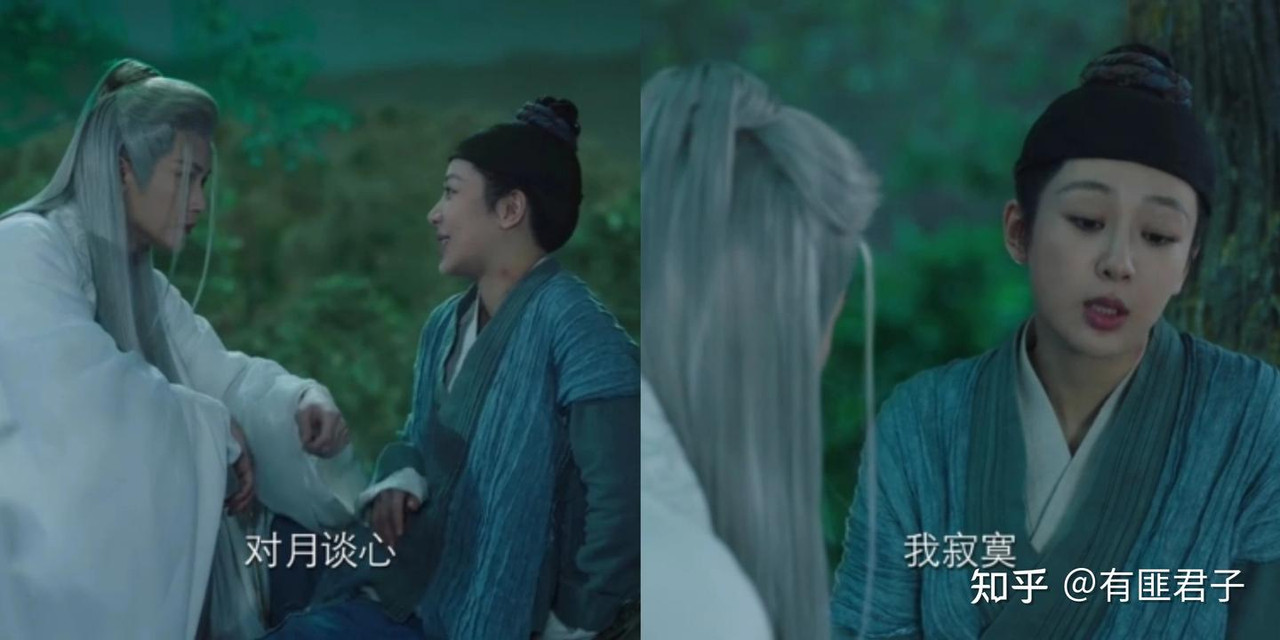
The two keywords: “heart-to-heart under the moon” and “loneliness.”
The senior sister teaches her junior brother about romance — one teaches seriously, the other learns seriously.
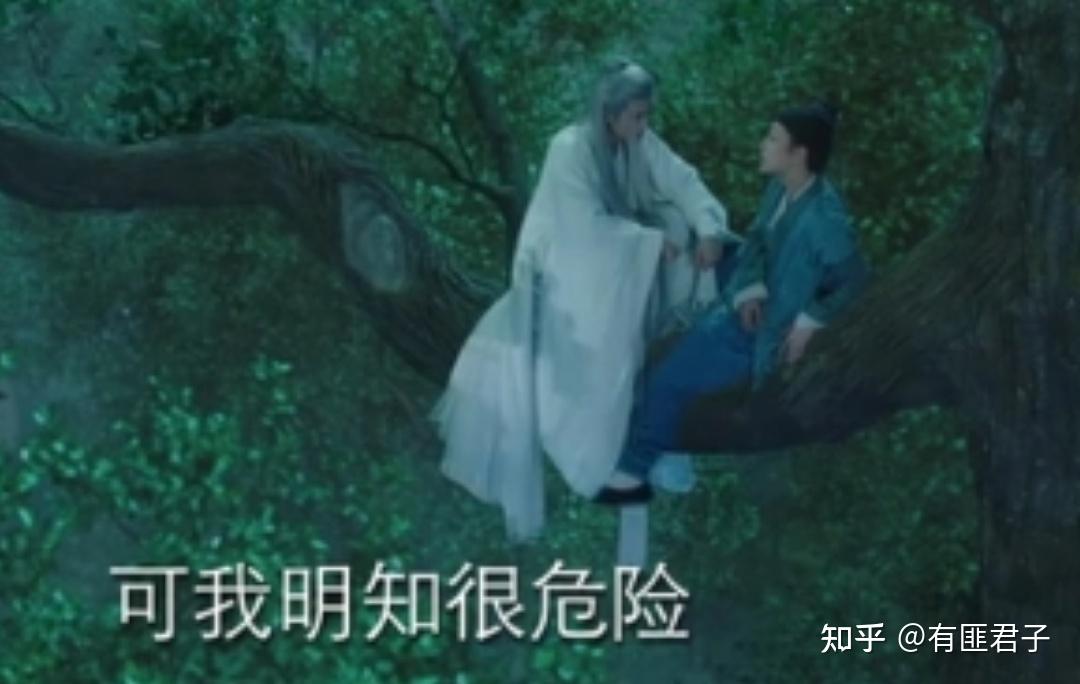
"Xiao Liu kicked Xiang Liu’s white clothes: Serves you right for being obsessed with cleanliness!"
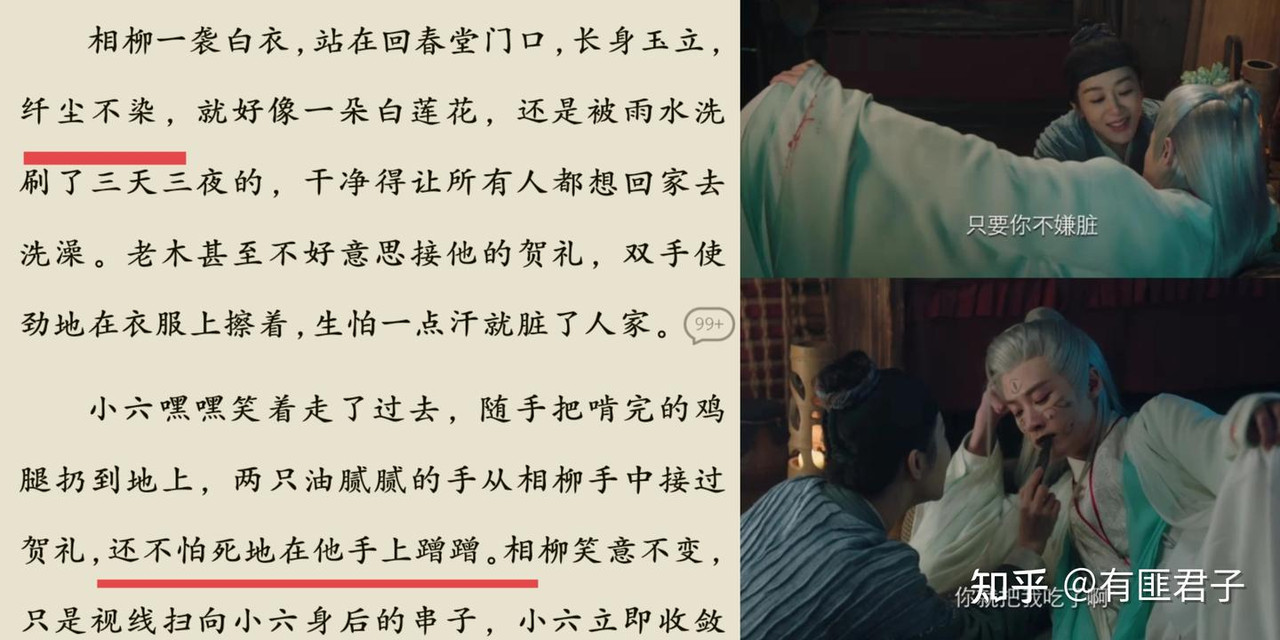 Greasy hands rubbing about, drawing on his face, kicking at his clothes — letting the clean and pure him be tainted with a touch of murkiness, so that he wouldn’t truly turn into a white cloud and drift away with the wind.
Greasy hands rubbing about, drawing on his face, kicking at his clothes — letting the clean and pure him be tainted with a touch of murkiness, so that he wouldn’t truly turn into a white cloud and drift away with the wind.
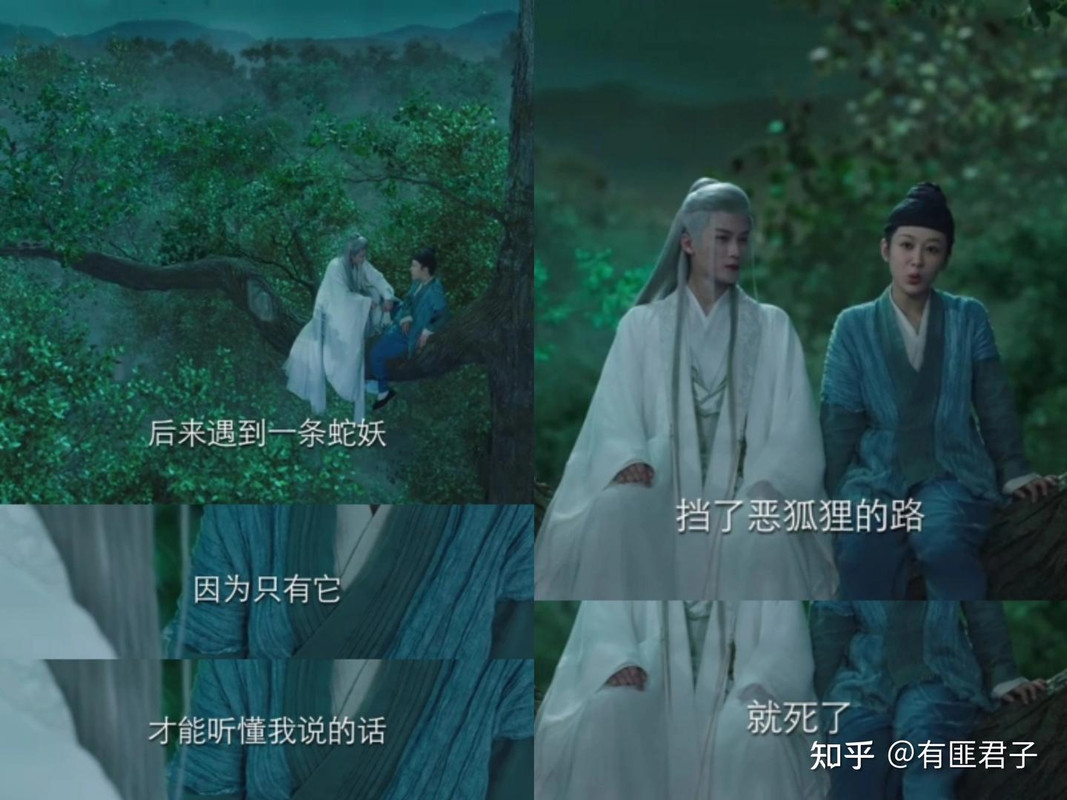
Xiao Liu told the story of the snake and the fox — the fox killed the snake.
Setting aside the metaphor and looking only at the plot, this is about “soulmates,” and also indirectly about “serious matters” — delivering a message, giving a warning. In the plot, the fox stands in for Xuan.
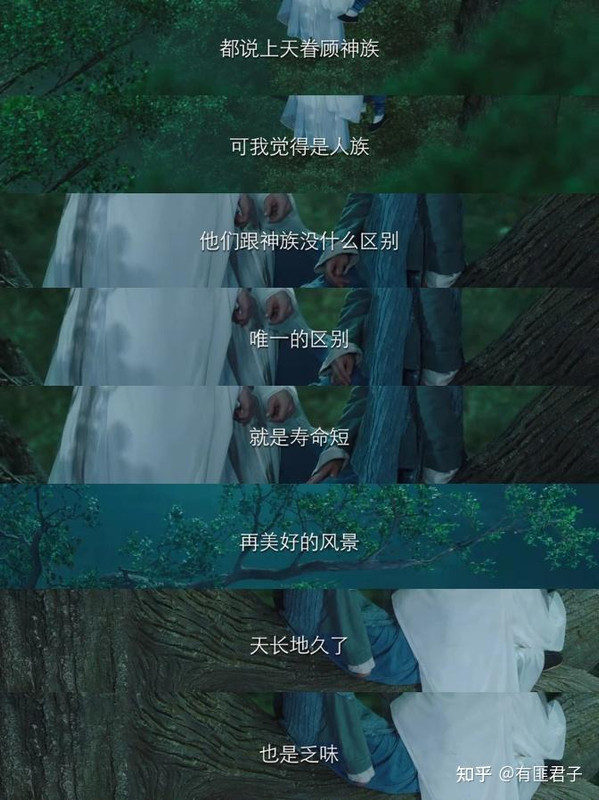
Xiao Liu said that the human race is favored by Heaven, only their lives are short. — She knew their relationship was dangerous, with the threat of death at any moment, yet even fleeting joy was still beautiful.
If lasting companionship cannot be found, then even brief togetherness is still good.
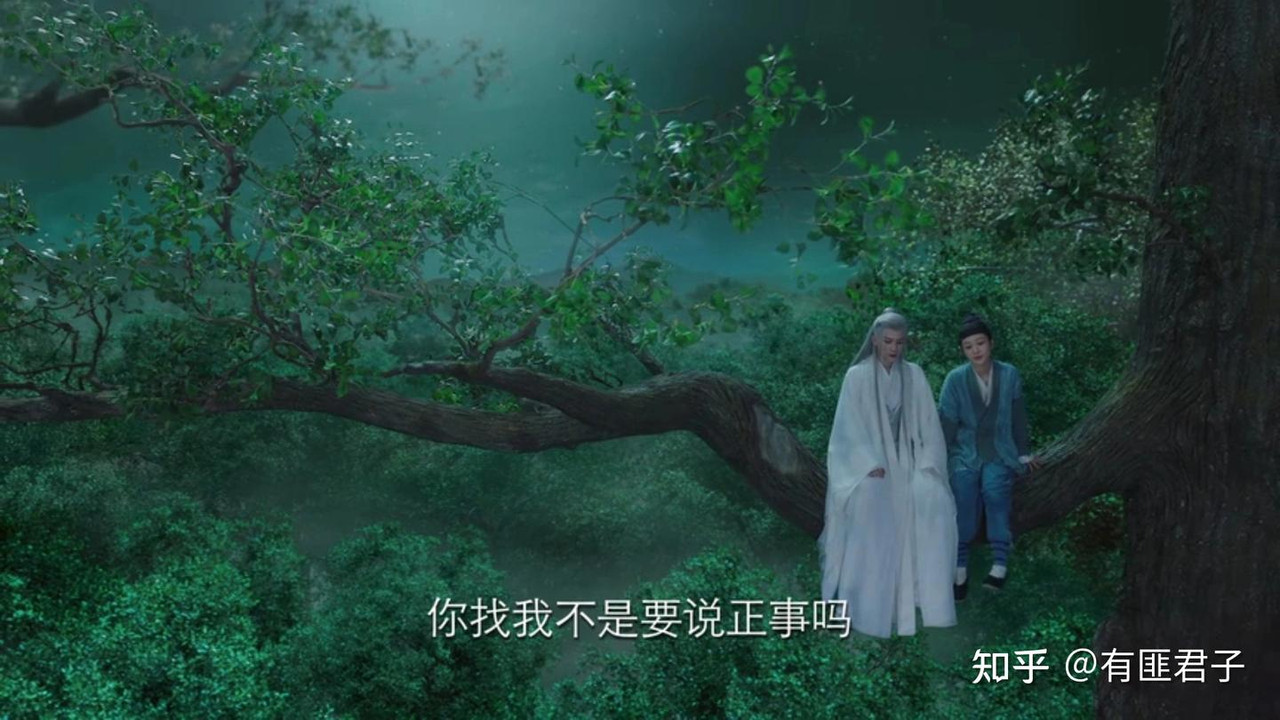
Xiangliu wanted her to speak directly about the “serious matter,” perhaps still thinking about “striking straight at the heart of the enemy.”
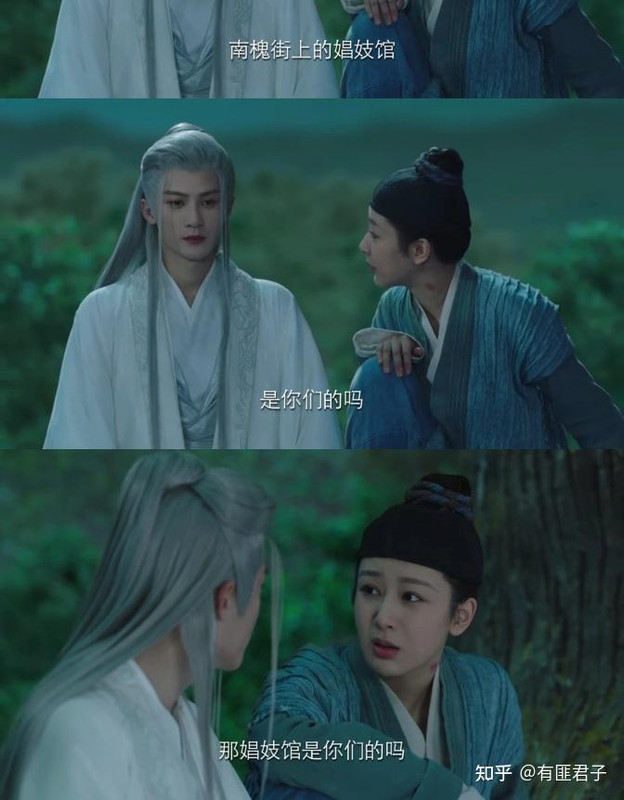
Xiao Liu asked twice in a row, “Is the brothel yours?” — simultaneously confirming that Xuan was setting a trap and testing Xiangliu’s wariness toward her.
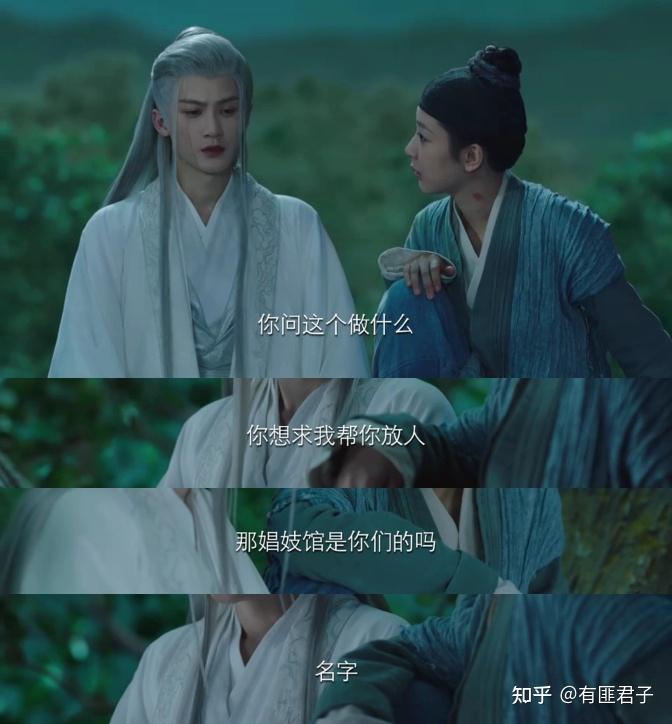
Xiangliu let down his guard toward Xiao Liu. Asking for the prostitute’s name was tantamount to admitting it — indeed, the beauty trap worked on him.
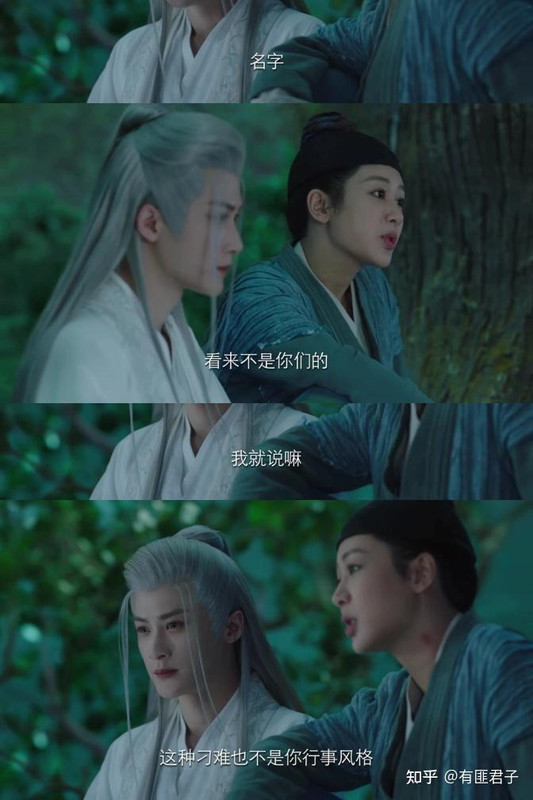
After asking for help, Xiao Liu immediately refused.
(In fact, she was telling Xiangliu the “serious matter”: someone set a trap using “trouble” to lure me into seeking your help. Our relationship must be kept hidden, and there can be no more public contact.)
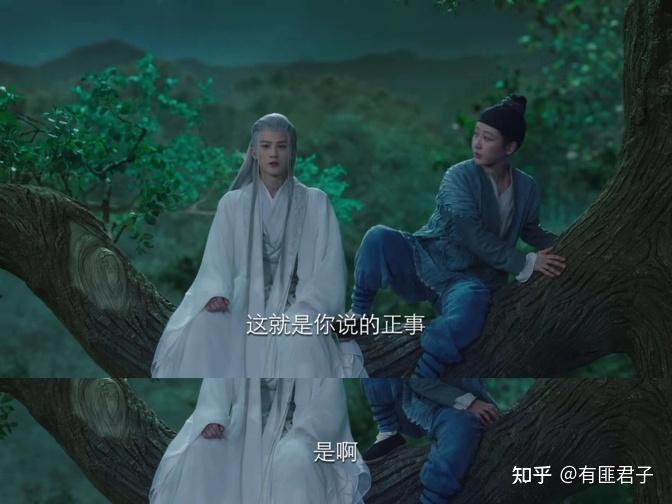
Xiangliu understood, but he was suspicious and didn’t fully believe her.
And he was angry:
Refusing intimacy, yet not letting me see the light, making me hide — is your heart sincere or is this a game?
Are you colluding with Cang Xuan to trap me into saying something?
— Xiangliu was annoyed by Xiao Liu’s “heartlessness” and doubted her sincerity. (Love giving rise to “anger,” anxious and possessive)
“Do you take me for a snake to relieve your loneliness?”
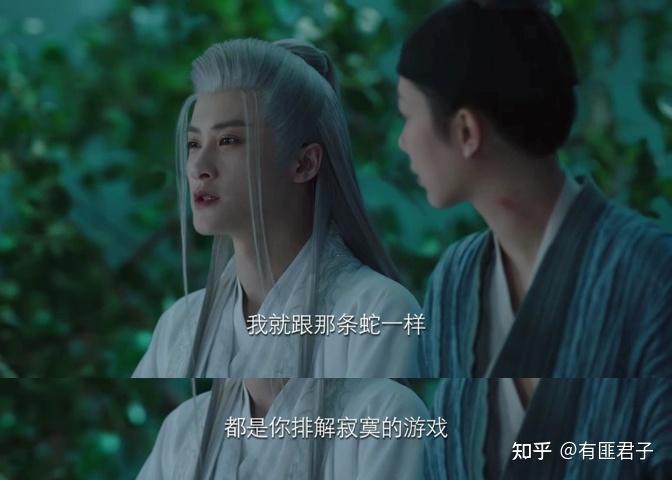
Xiao Liu: But I’m also trying to make you happy.
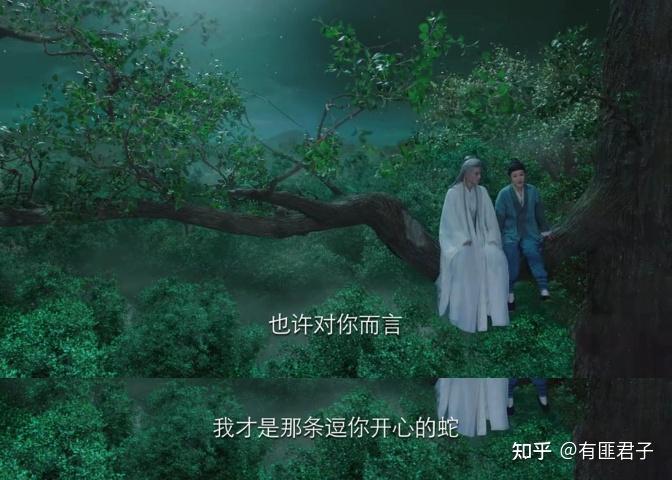
You’re that egg — I’ll snatch you over and eat you…
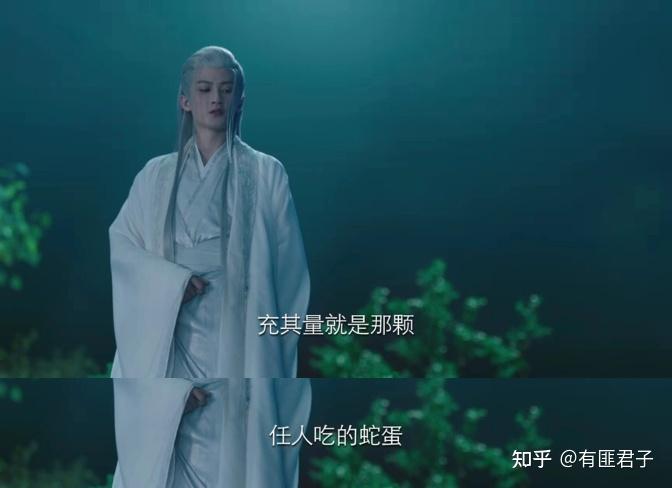
In the book, Xiao Liu broke her leg but lay on the ground laughing.
Xiao Liu knew that Xiangliu’s anger was born from love. Her “giving a little to gain a lot” had succeeded.
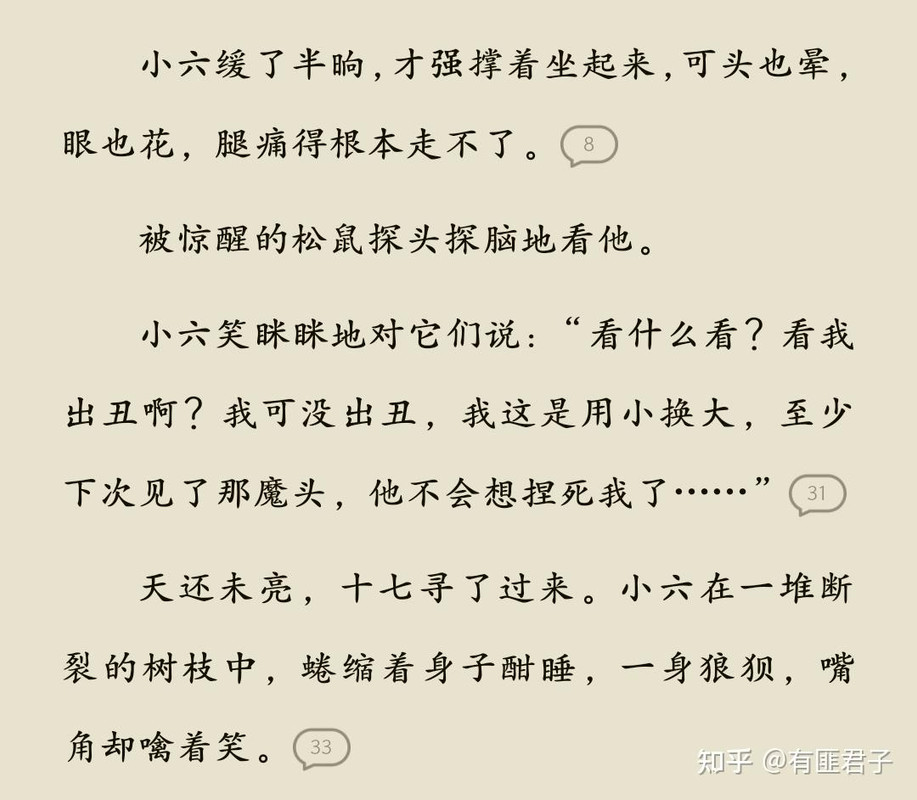
Xiao Liu, caught between two “villains,” is in a difficult spot.
In the drama, Xiao Liu grumbled: “Just so you won’t show up next time, just to save you, yet you refuse to be grateful…”
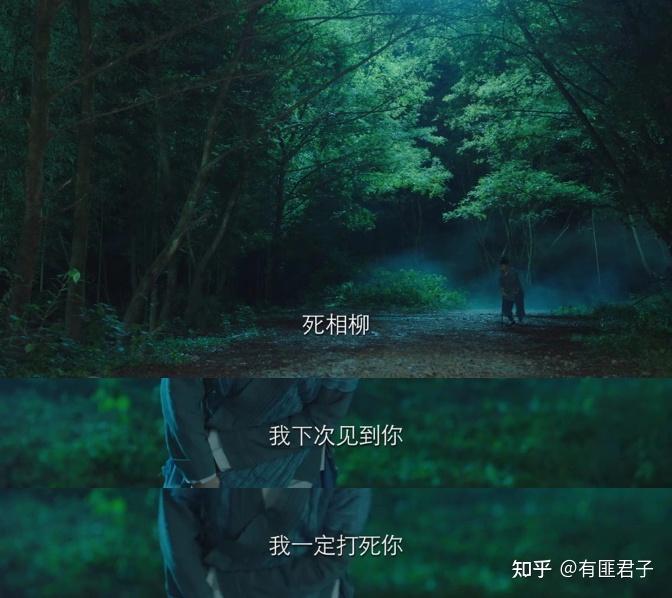
A side note — a flashback to the night of secretly visiting a woman’s private chamber.
After Xiao Yao recalled the scene of “throwing down the tree,” her expression shifted from gentle to worried, and she coldly drove Xiangliu away.
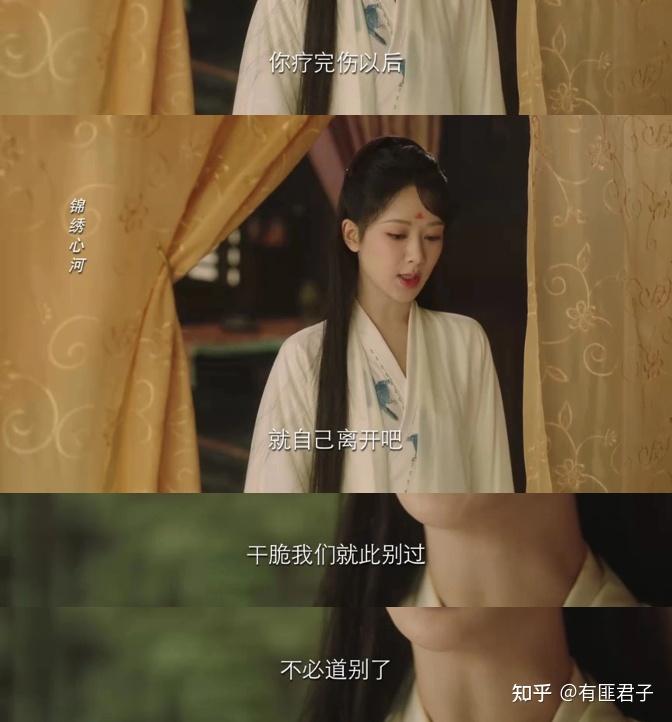
"Pulled back to reality by memories: for safety, must hide."
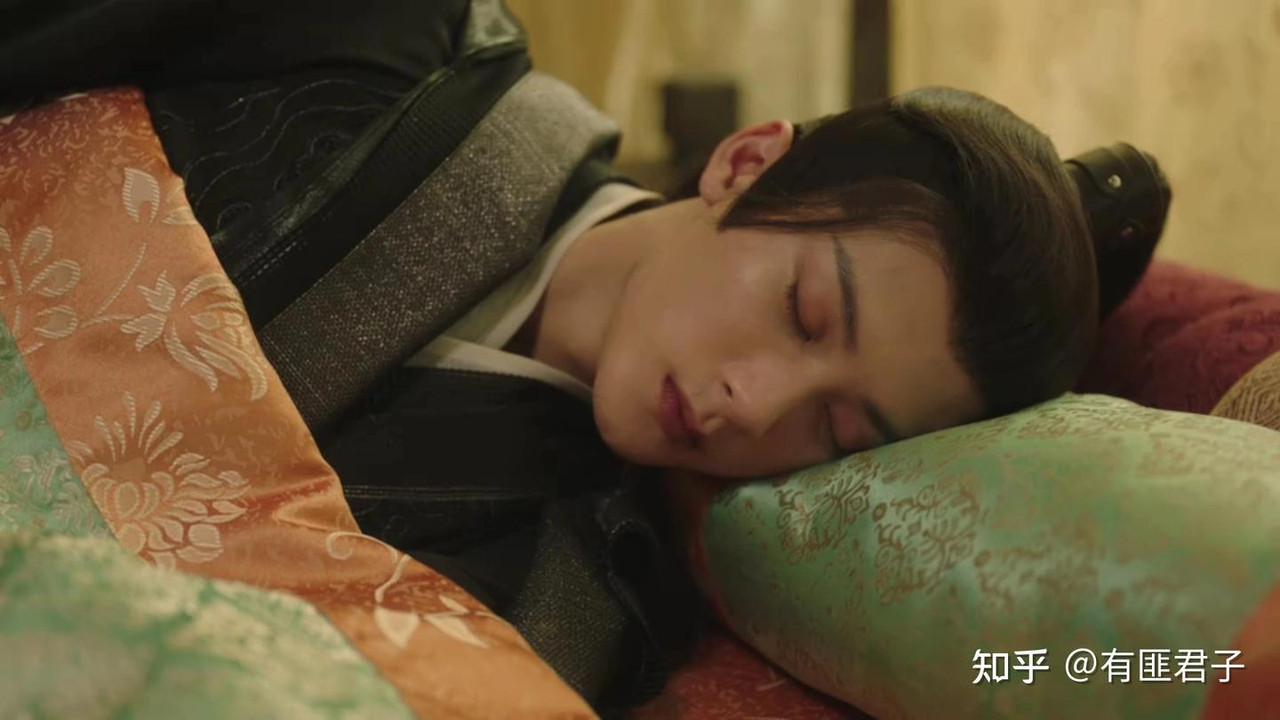
"The Xiangliu, connected in spirit, had tears glistening at the corners of his eyes."
The fox enters the scene.
The fox continues to act as “endorphins” and “ibuprofen.”
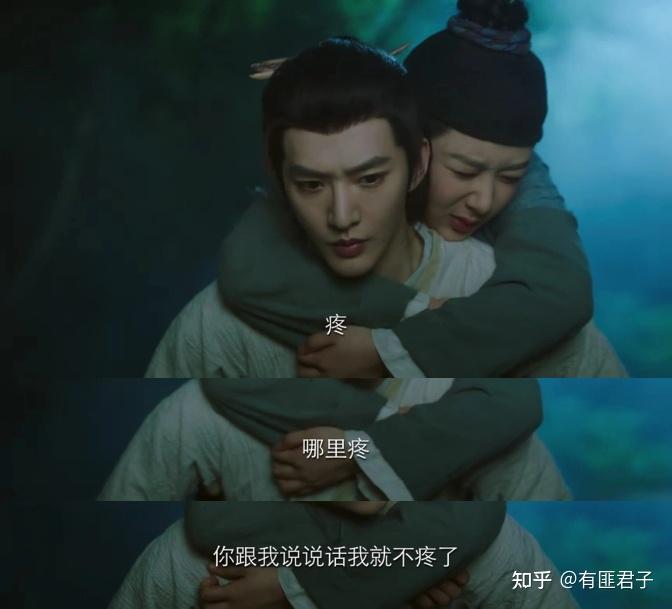
Plaster bro, come help me with the pain!
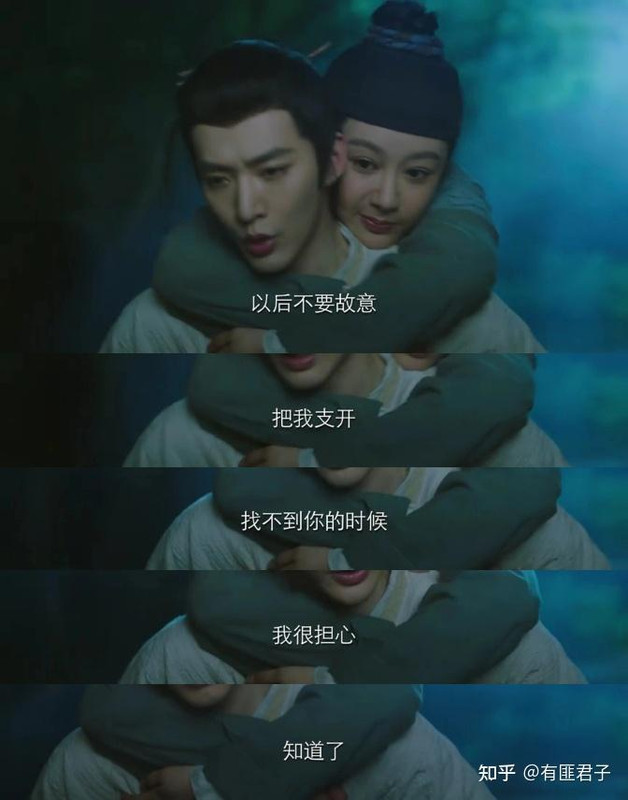
These two can never seem to talk about the same topic.
Ignoring Xiao Liu’s leg injury, he wiped away the kiss marks.
(The injury doesn’t matter; the kiss marks do.)
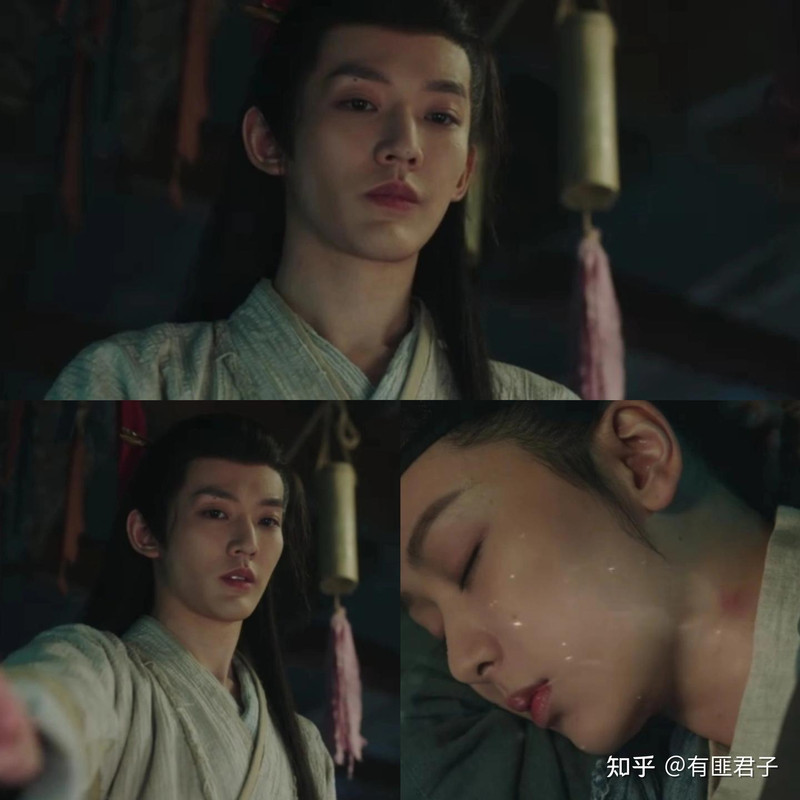
Xiao Liu, Xiangliu, and Xuan clashed, the fox watching, seeing through everything.
Blowing out the lamp, getting ready to enter the scene.
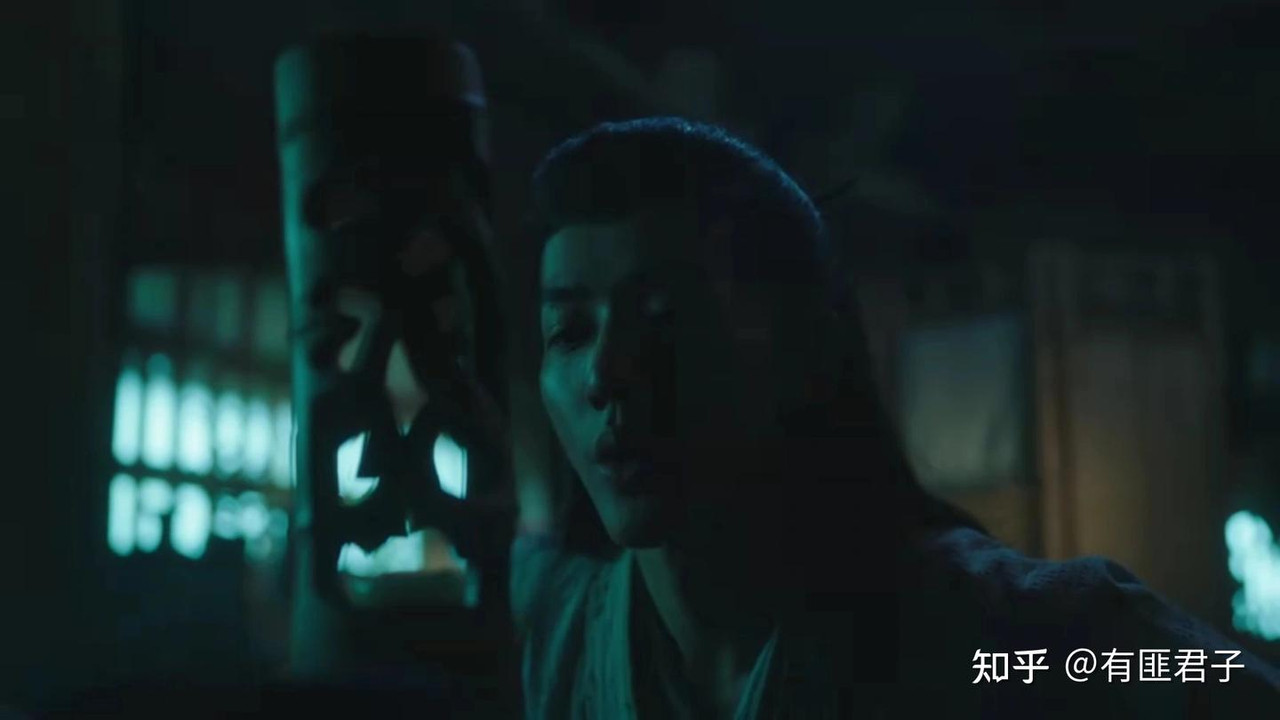
"The lamp is light, life. The fox wants Cang Xuan’s life.
(As mentioned earlier, the fox pretended to help Cang Xuan, but in fact sought to intensify the conflict between Xuan and Liu, using Xiao Liu as bait to plot a ‘kill with a borrowed knife’ and avenge the ‘severed tail grudge.’)
Holding Xuan’s hand, for the first time hinting: “You come to interrogate me.”
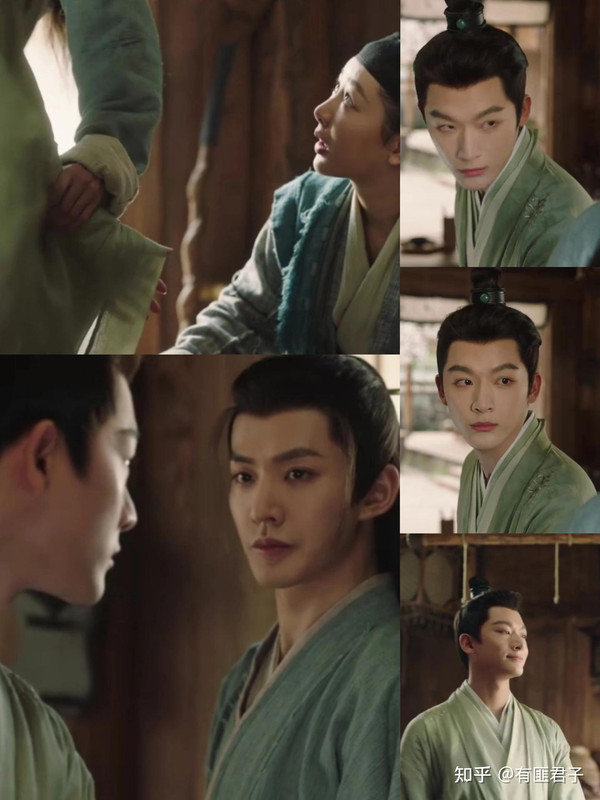
Expressions on the right: guarded, relaxed, understood.
Yao and Xuan did not acknowledge each other.
Xiao Liu went to find Xuan, asking for Sang Tian’er and pleading for her to be spared.
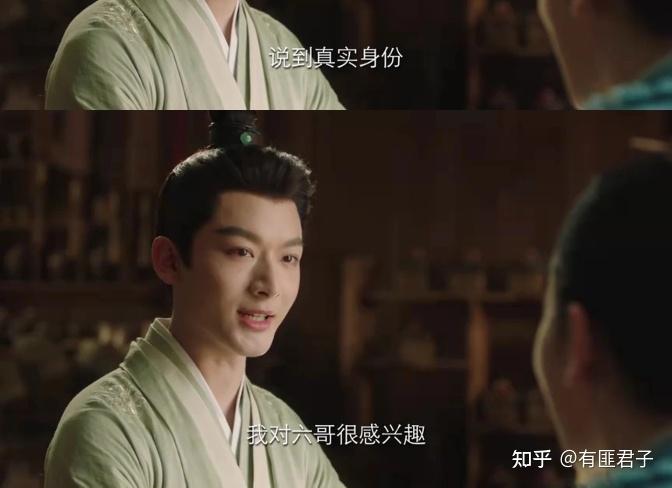
The drama went straight to it: Cangxuan directly asked her identity. (“Do you acknowledge me or not?”)
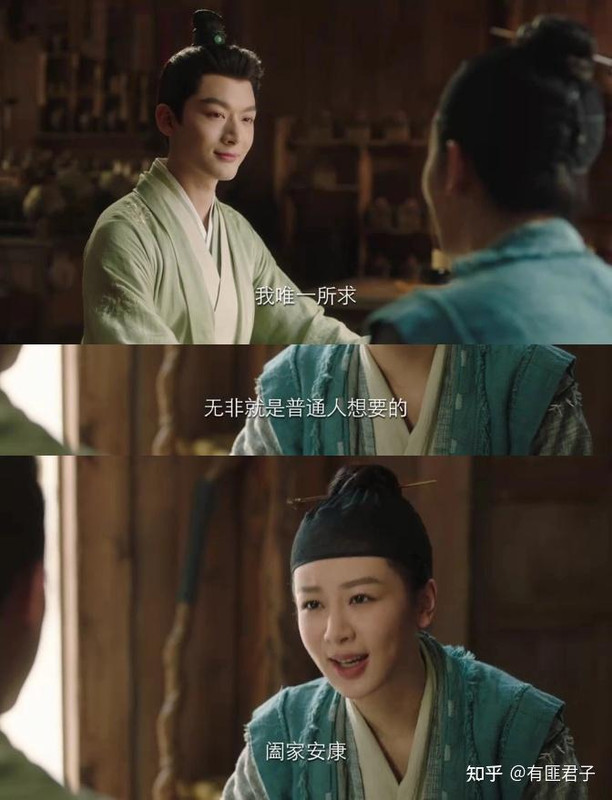
Xiao Liu refused to acknowledge her identity — “All I ask is for the family’s well-being. I want you to live well, and you let me live well too, okay?”
"No matter whether Cangxuan is Cangxuan or not, she got tired of waiting, left, felt disheartened, had grown used to freedom, and didn’t want to be tied down."
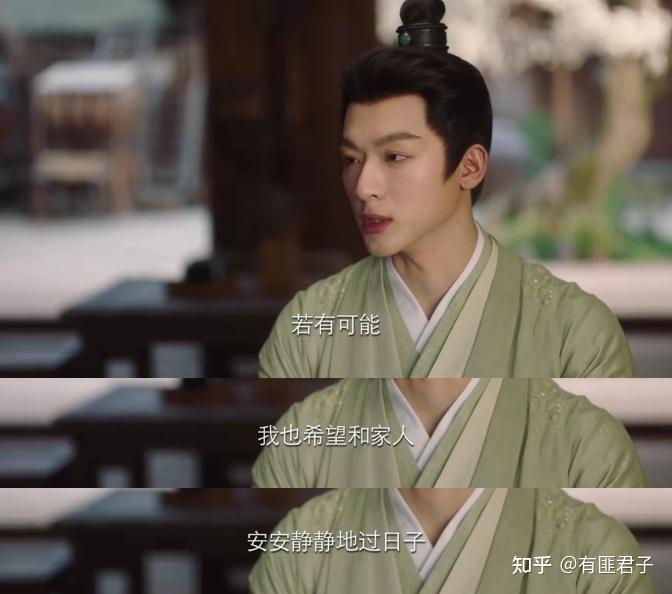
"I believe what he said is also what he truly feels in his heart.
It’s just that the bond of blood is inescapable; he has no ordinary, smooth path to walk."
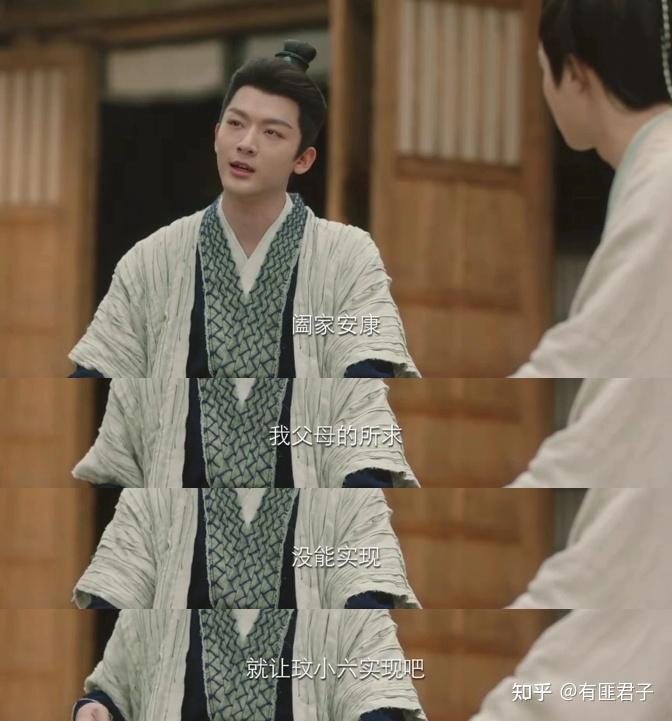
"Cang Xuan spared Sang Tian’er: ‘You want your whole family safe and sound — I’ll give that to you.’ (A double meaning, also directly pointing to the ending.)
But he did not leave Qingshui Town."
How Tushan Jing became a “substitute.”
Earlier, we saw Xiao Liu’s attitude toward the fox.
The fox, to Xiao Liu, was a painkiller, a punching bag.
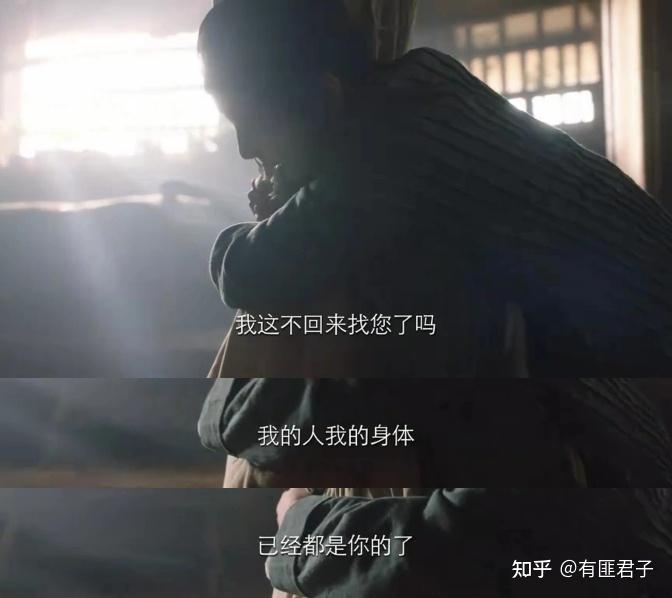
The “hugging the leg” scene is a foreshadowing of the “stand-in” role, and also a prophecy of returning to the fox’s side after the wedding snatching.
The fox’s “stand-in” function is about to officially begin.
The key turning point lies in this “heart-to-heart talk by the river.”
This “fox” is actually Xiangliu in disguise.
This “fox” is actually Xiangliu in disguise.
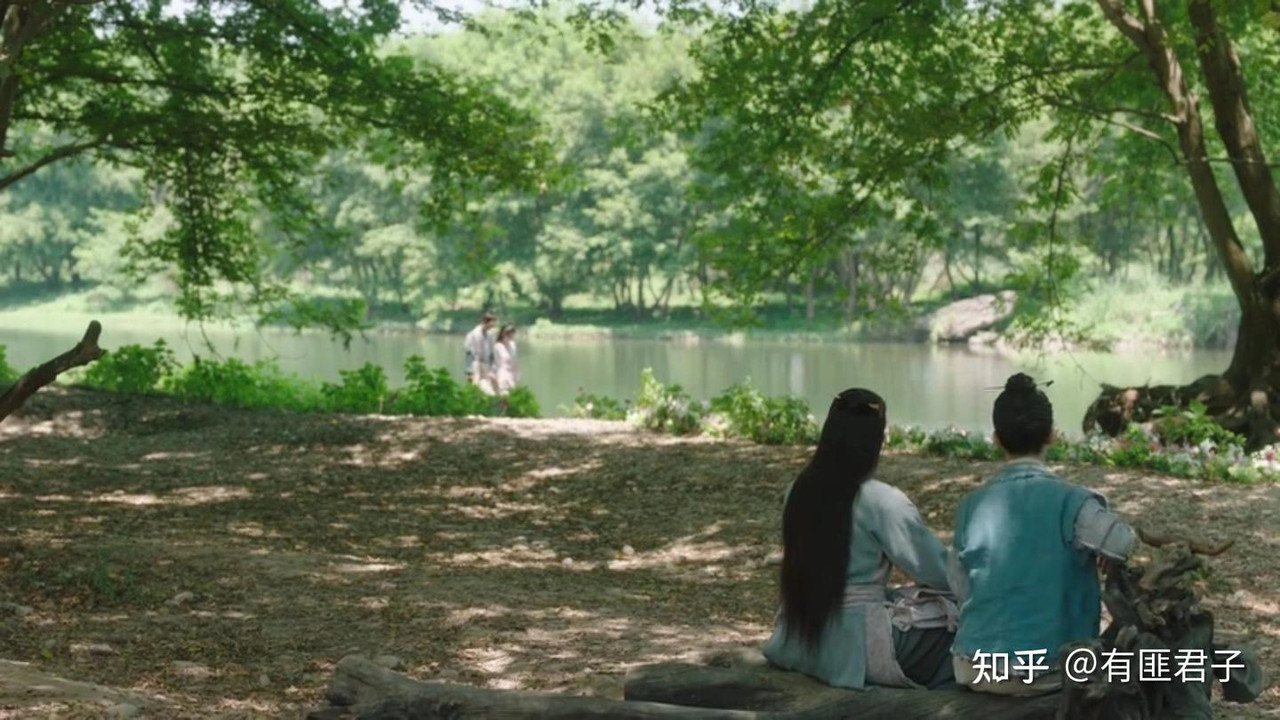 (Episode 6, 37 minutes)
(Episode 6, 37 minutes)
First, look for surface flaws aside from the plot and dialogue.

In the book, it’s “walking by the side.” Previously, the fox had never walked shoulder to shoulder with Xiao Liu; it always followed behind.
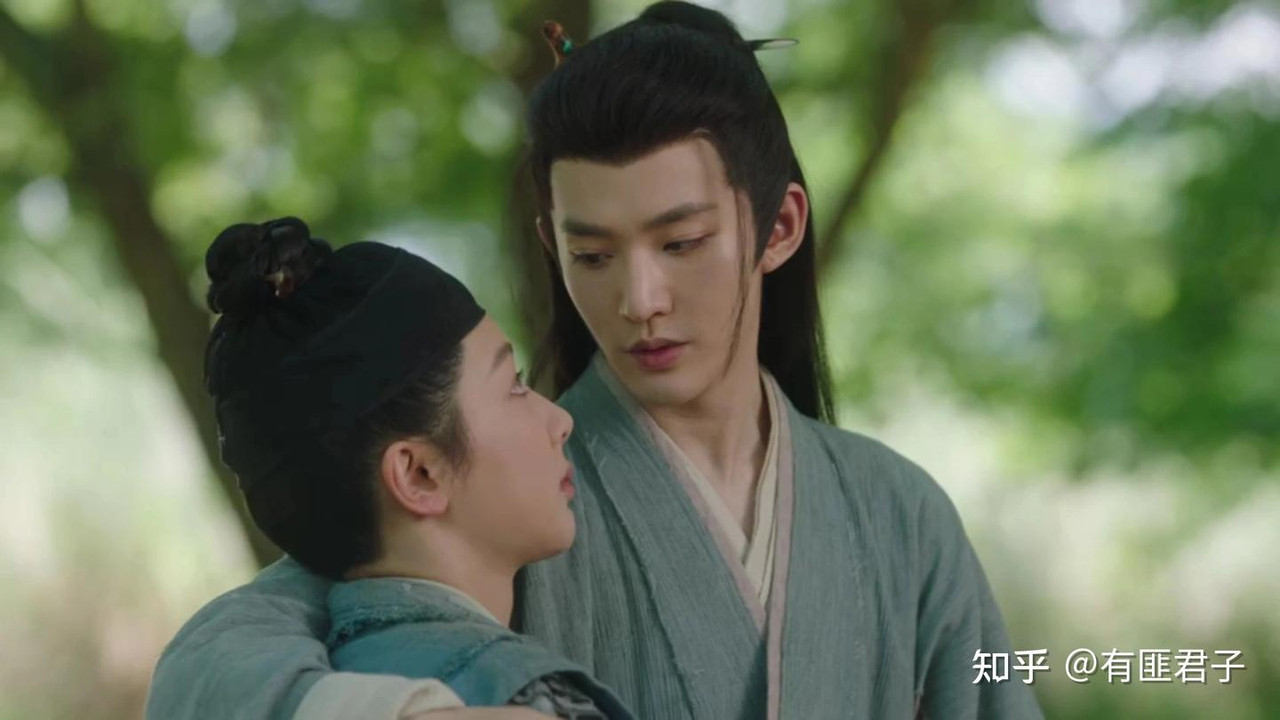
"The suddenly appearing 'domineering CEO fox'."

"'Slippery floor!' The suddenly booming bass from the voice actor."
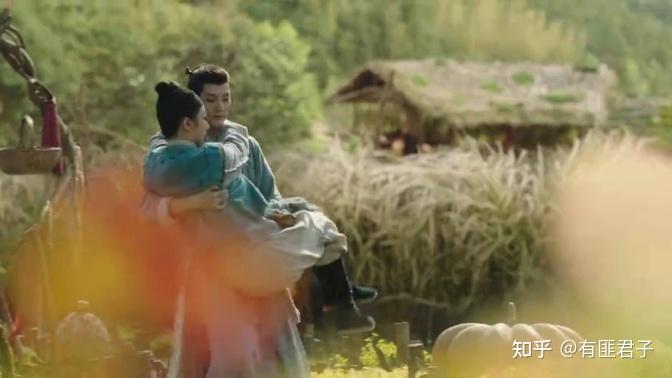
"The red-yellow halo of light blocked the view while passing through the nursery."
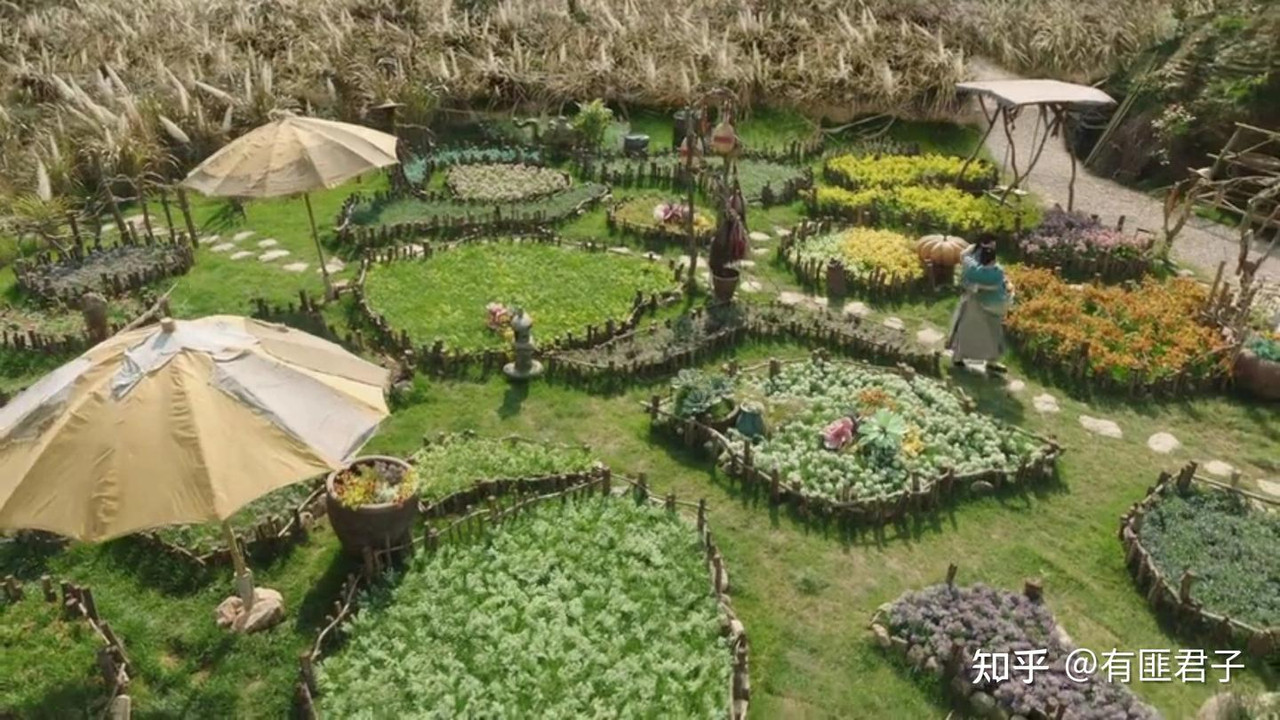
The camera showed a long shot — the “fox’s” leg was no longer lame!
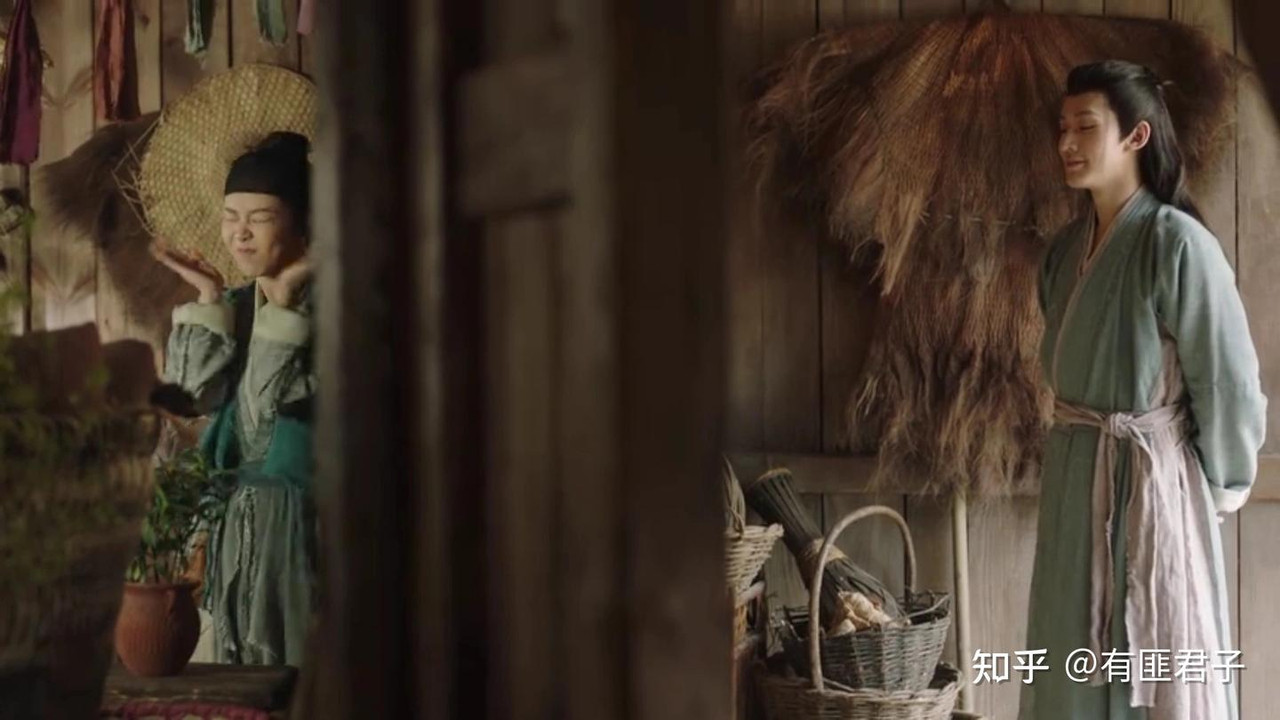
Background straw hats and raincoats conceal the face and body.
One blushed with a racing heart, the other smiled, hands behind their back.
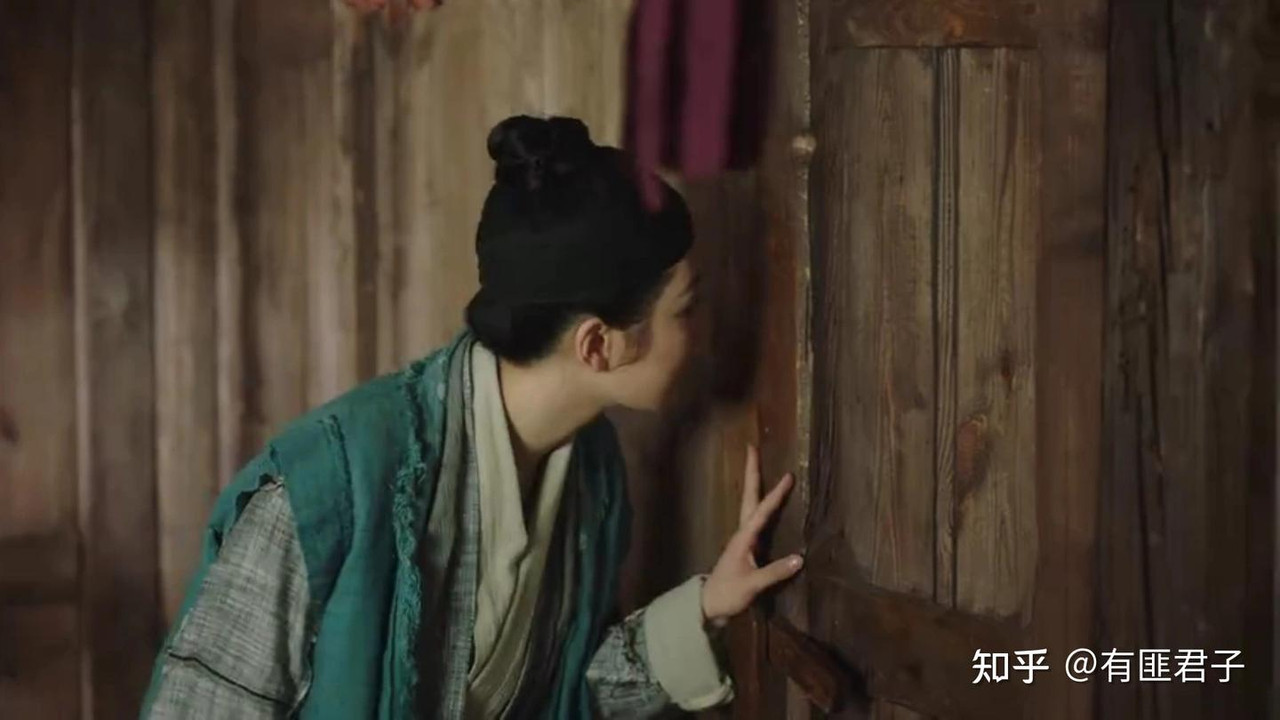
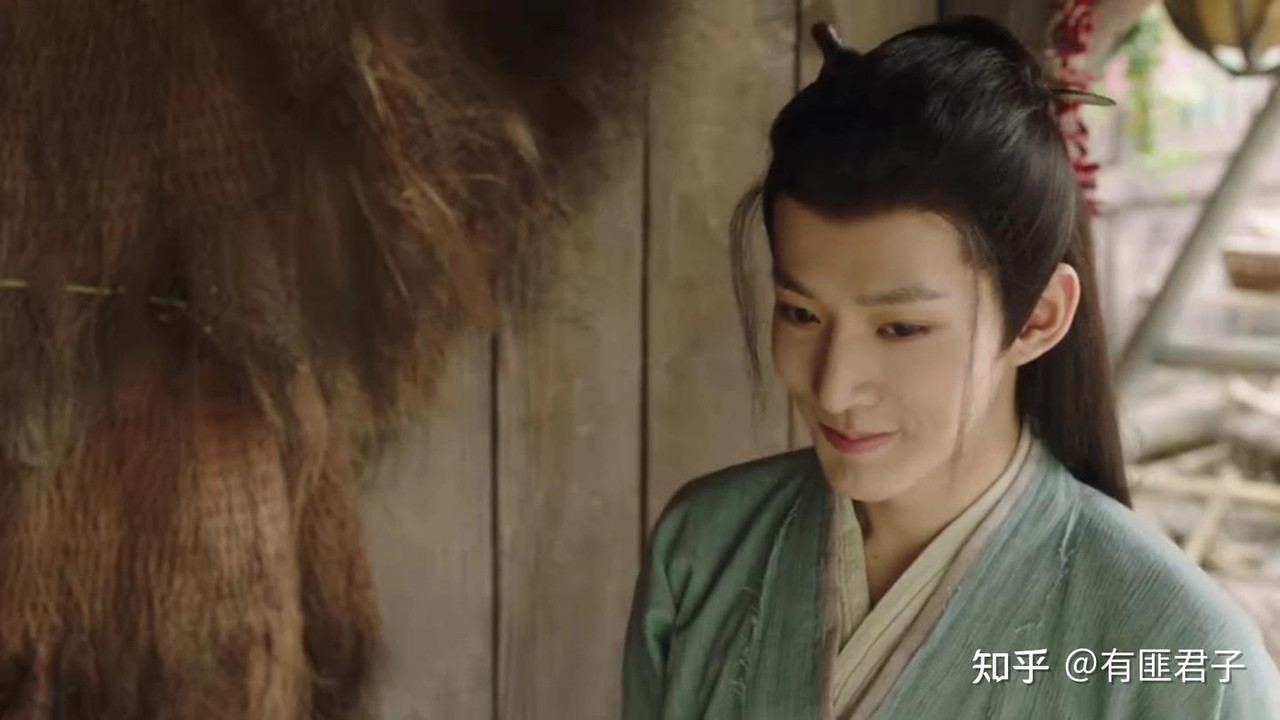
Xiao Liu’s peeking-through-the-door perspective.
What’s she looking at? She lives and eats with the fox every day.
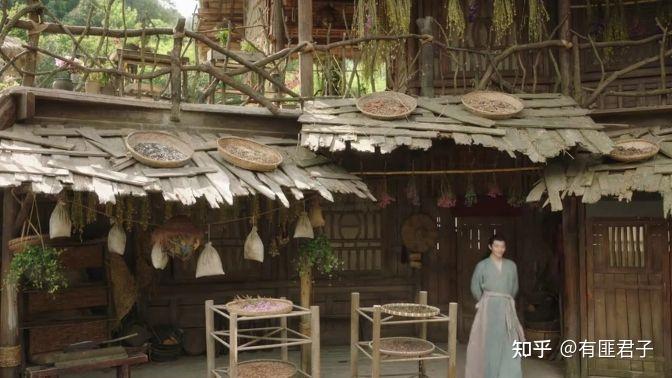
Why did the fox turn and walk away? Not going to the kitchen to cook?
Not only was the leg no longer lame, but it also walked with the posture of a master.
Looking at the plot again:
Earlier, Liu and Xiangliu parted unhappily; Xiangliu threw Xiao Liu from the tree, and her leg broke.
"The blank part"
Xiang Liu
The brothel belonged to the volunteer army. When Cang Xuan found Sang Tian’er again, Sang Tian’er had been redeemed, and Xiang Liu realized that Xiao Liu sought him for “serious business,” indeed to protect him.
At the same time, he had been ungrateful before and even broke Xiao Liu’s leg.
He needed to admit his mistake and apologize, but he couldn’t appear openly. So, while the fox was being taken out, he transformed into a fox.
Was Xiang Liu willing to secretly turn into a fox? Of course not. But since it was his fault in the first place, he endured it for the sake of not wronging his wife.
Xiao Liu
Many people can use the shapeshifting technique; even Lao Mu always has to be on guard, wondering if someone around is someone else in disguise.
Xiao Liu knew that this “fox” was not that fox.
Did she use poison to confirm the identity?
It’s also possible that she recognized it just by the scent.
It wasn’t written—left blank. Anything is possible.
Plot section:
Xiao Liu explained her emotional journey, expressed her feelings, and even mentioned the lover’s gu — speaking openly and clearly.
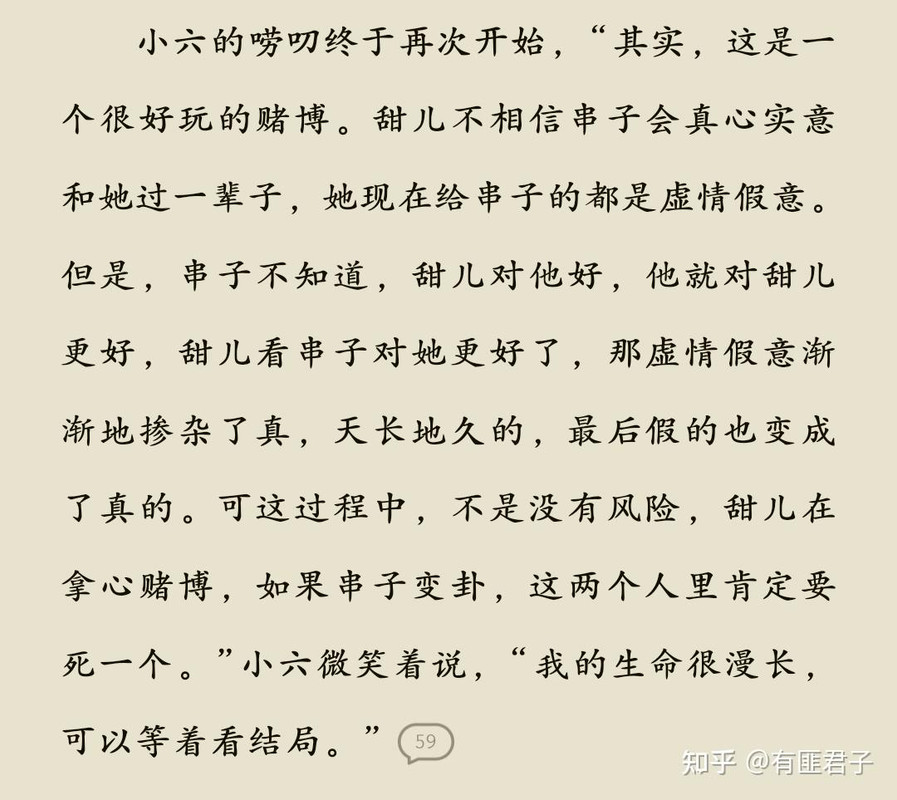
The book and the drama are basically consistent. The dialogue is too long; it’s more convenient to read in the book.
Actually, as discussed earlier, Xiao Liu reviewed her feelings for Xiangliu, from the insincere pretenses full of lies to genuine sincerity.
Thinking of the lover’s gu, she had to risk her own heart. Even if losing the gamble meant death, she was still willing to use her long life to bet on an outcome. (This is likely when she began cultivating the gu.)
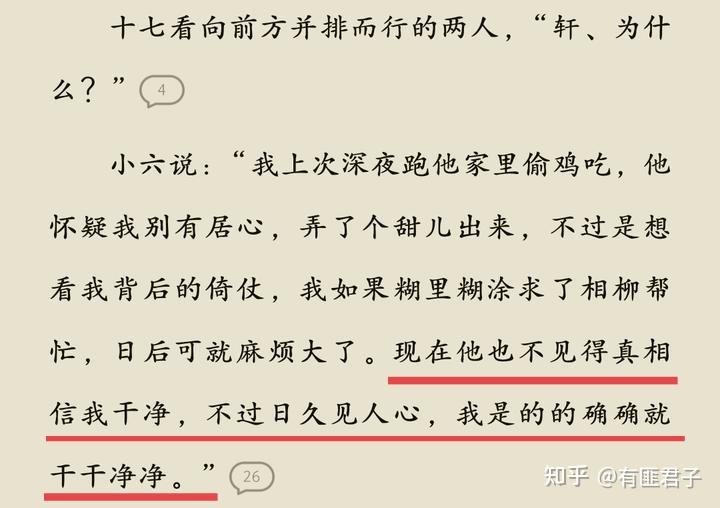
Xiao Liu explained the reason Xuan was testing her: he suspected I had ulterior motives and wanted to lure you out.
Although you may not fully believe I’m clean now, time reveals a person’s heart — Xuan and I truly are completely innocent.
“的的确确” (“de de què què”) and “干干净净” (“gān gān jìng jìng”) — using two reduplicated words in a row to express emphasis and certainty.
The drama presents it basically the same, but adds a few more lines ⏬
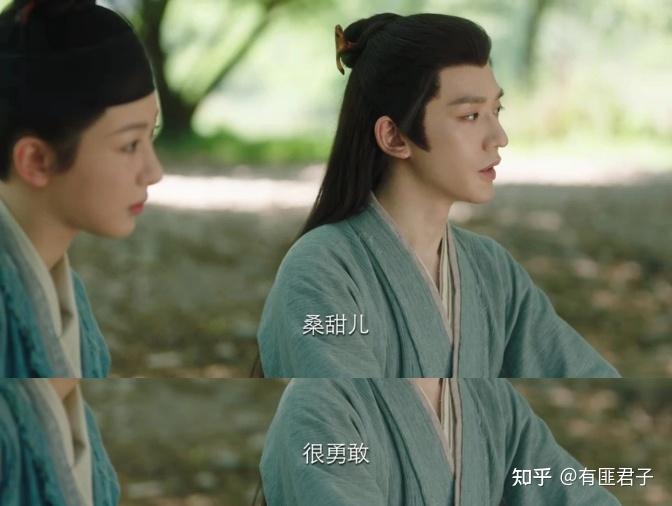
Praise for the girl he admires.
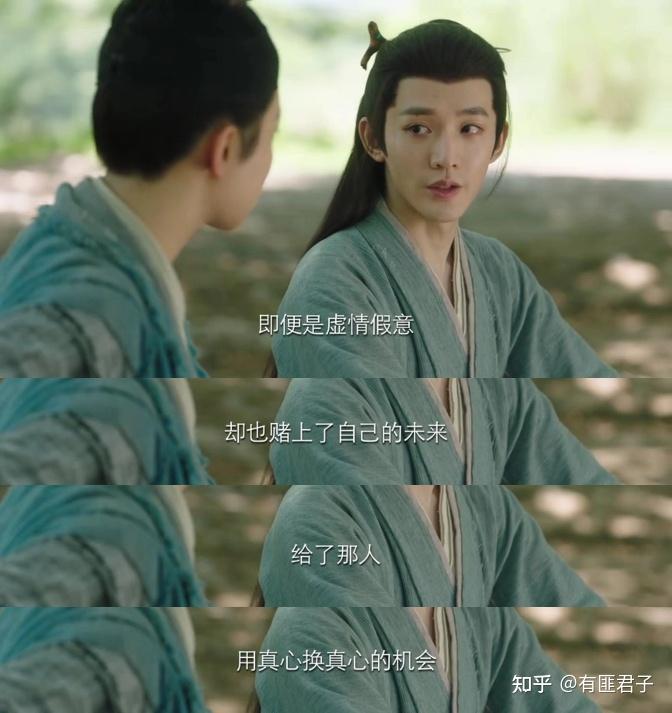
At first meeting, Xiangliu knew Xiao Yao’s mouth was full of lies; only the line “powerless to protect myself, with no one to rely on, nowhere to go” — a vow to gamble on the future — was true.
Sincerity exchanged for sincerity, which led to their later shared fate and connected hearts.
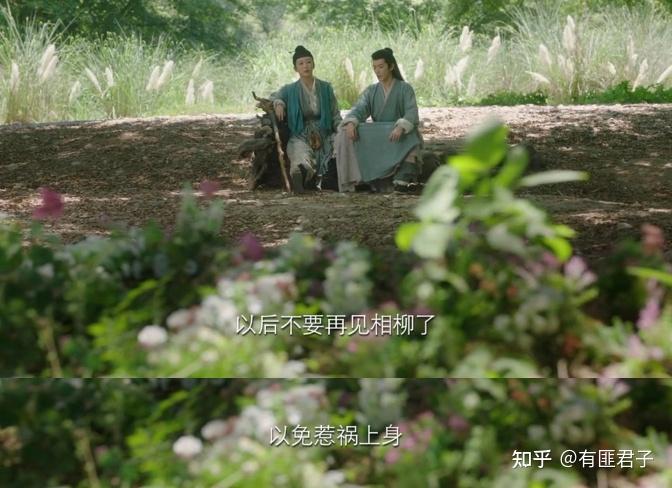
"Xiangliu said: I’ll be careful, I won’t trick you, I won’t cause trouble.
Princess carry, back home.
Lacking romantic intelligence, Xiangliu had dug himself a big hole.
From then on, under the fox’s enchantment, Xiao Liu gave up resisting and officially started playing the “stand-in romance” game.
“Ye Shiqi” in Xiao Liu’s heart, became two people — no longer just “mud on the ground,” that ragged beggar.
Here, the soldiers’ dialogue should be viewed on both light and dark lines.
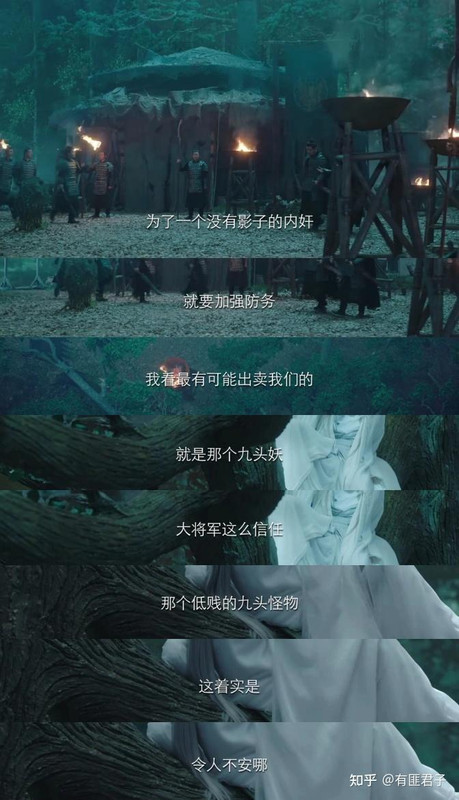
Surface plot: Xiangliu, misunderstood and spoken ill of, felt wronged and pitifully came to Xiao Liu seeking comfort.
Hidden plot: On one hand, it hints at Liu and Xiao Liu’s foresight and cautious behavior; on another, it shows the low status of the demon race; and on yet another, it hints that the one who received kindness betrayed the one who gave it — the fox betrayed Xiao Liu.
The fox’s second “signal to join the game.”
From the start, Mr. Shi said that the young royal grandson spent every day accompanying Princess Hao Ling’s second daughter to go sightseeing… Then, at Chuanzi’s wedding, A Nian once again showed off her innocent yet willful nature — untouched by worldly smoke, unaware of worldly hardships.
Xiao Liu had already guessed who A Nian was.
At Chuanzi’s wedding, as soon as A Nian arrived, Ye Shiqi left. Linking it to the first time — A Nian arrived, and he left — it was equivalent to telling Cang Xuan that he knew A Nian and was the young master of an extremely wealthy, noble family.
(In reality, A Nian didn’t know the fox at all; the fox did it on purpose.)
This was already the second time the fox hinted to Cang Xuan to investigate him.
“Brother Xuan” even deliberately pointed something out to Xiao Liu.
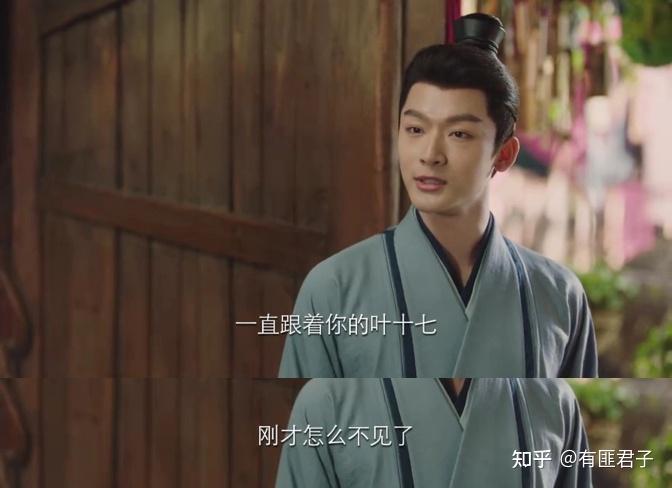 Xiao Liu’s expression changed.
Xiao Liu’s expression changed.
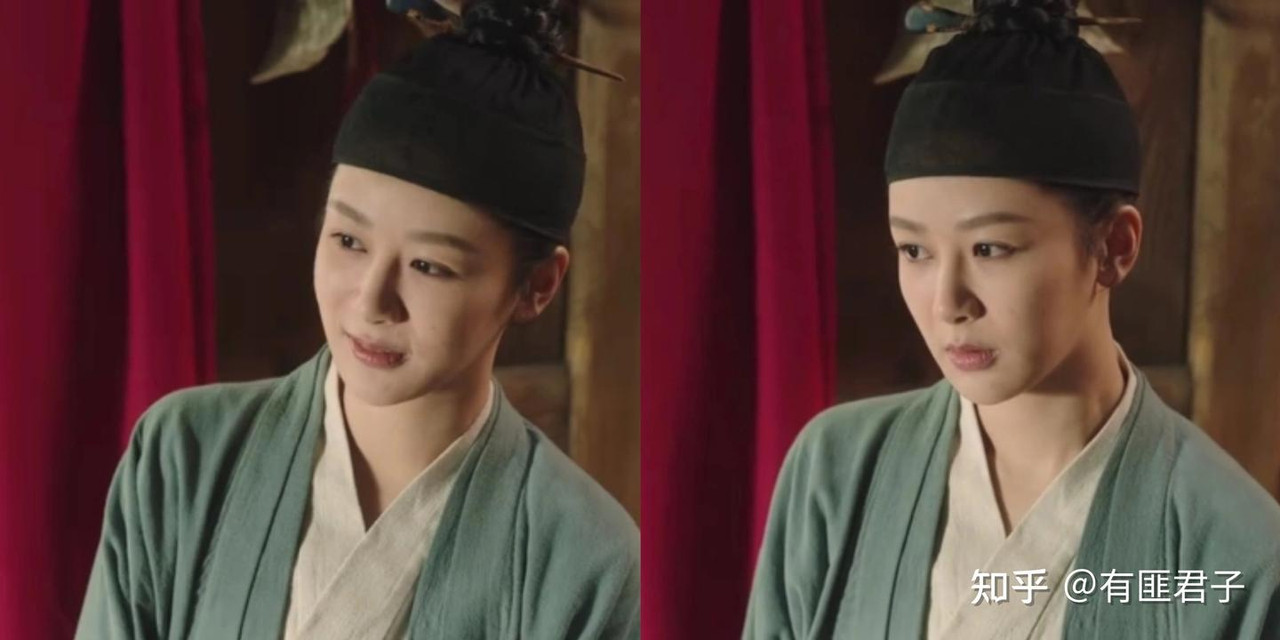
Avoiding Old Mu and Sang Tian’er, she went to the river to question the fox.
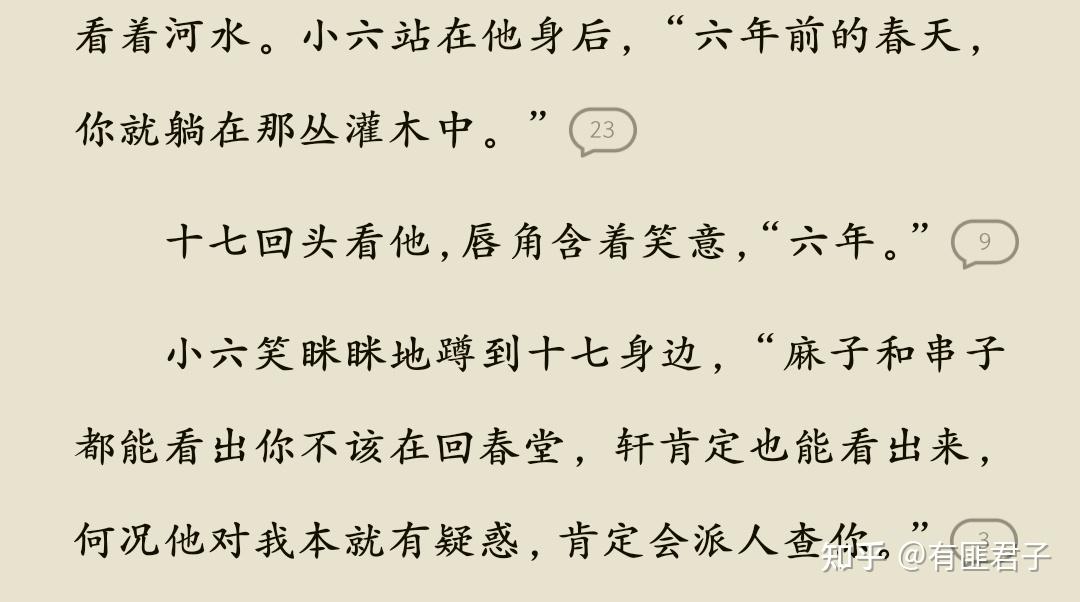
"I saved you and took you in for six years.
Yet you’ve always hidden your true identity, and now you’re deliberately drawing Xuan to investigate you. Even Ma Zi and Chuan Zi can see you’re no ordinary person — do you think I don’t know you’ve been doing things behind my back?"
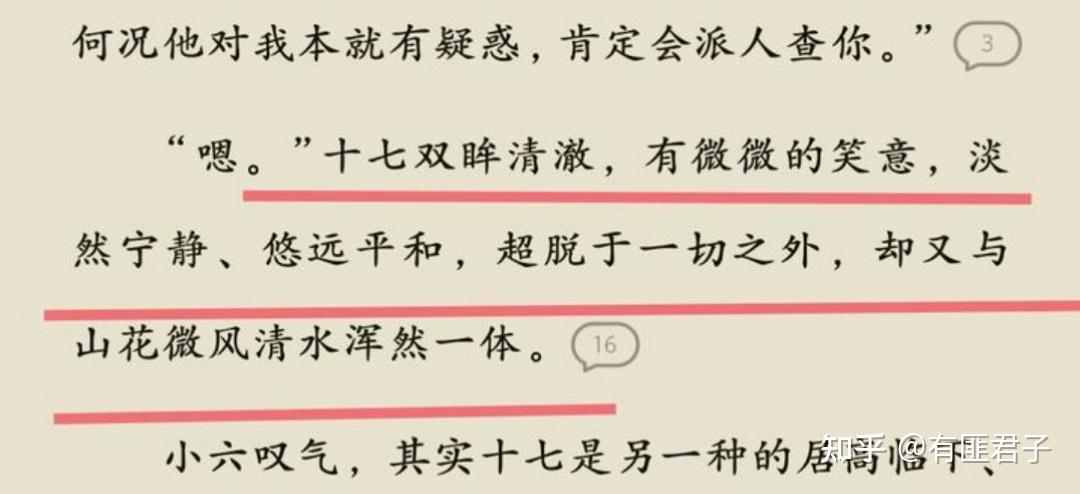
Facing Xiao Liu’s questioning, the original novel devoted a large section to describing the fox’s gaze.
Once again, the fox used his charms to bewitch his master.
(I included a screenshot from the book because the drama toned down this part. If, in the drama, they had given the fox’s gaze a long close-up, followed by Xiao Liu’s change in attitude… it’s possible the main storyline could have collapsed right from the start.)
But this time, Xiao Liu did not avoid the fox’s gaze and directly entered the state of “seeing the fox as not a fox.”
Xiao Liu’s thoughts after looking into the fox’s eyes:
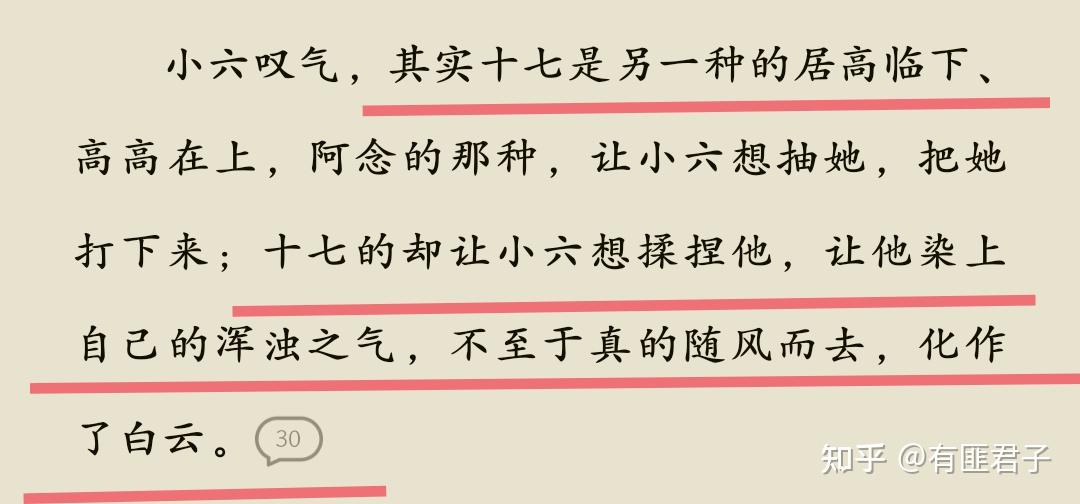
Ye Shiqi is the “cloud in the sky,” and Xiao Liu wants to pull him into the mortal world.
Xiao Liu’s actions:
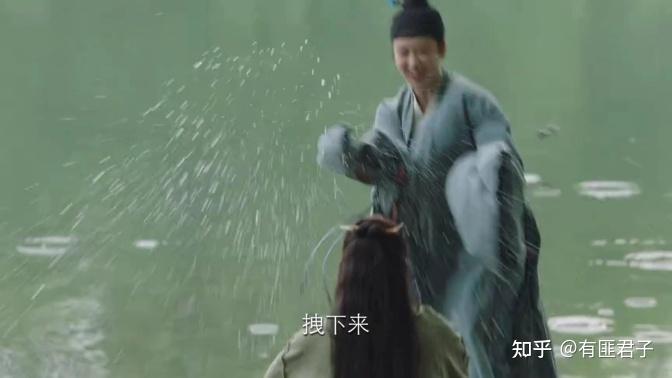
Splashing water, no wiping allowed. Be a little water fox!
Playing around, and then the main character arrived.
The dramatic conflict appeared, the excitement arrived!
Xiangliu could no longer hide his anger; it showed on his face!
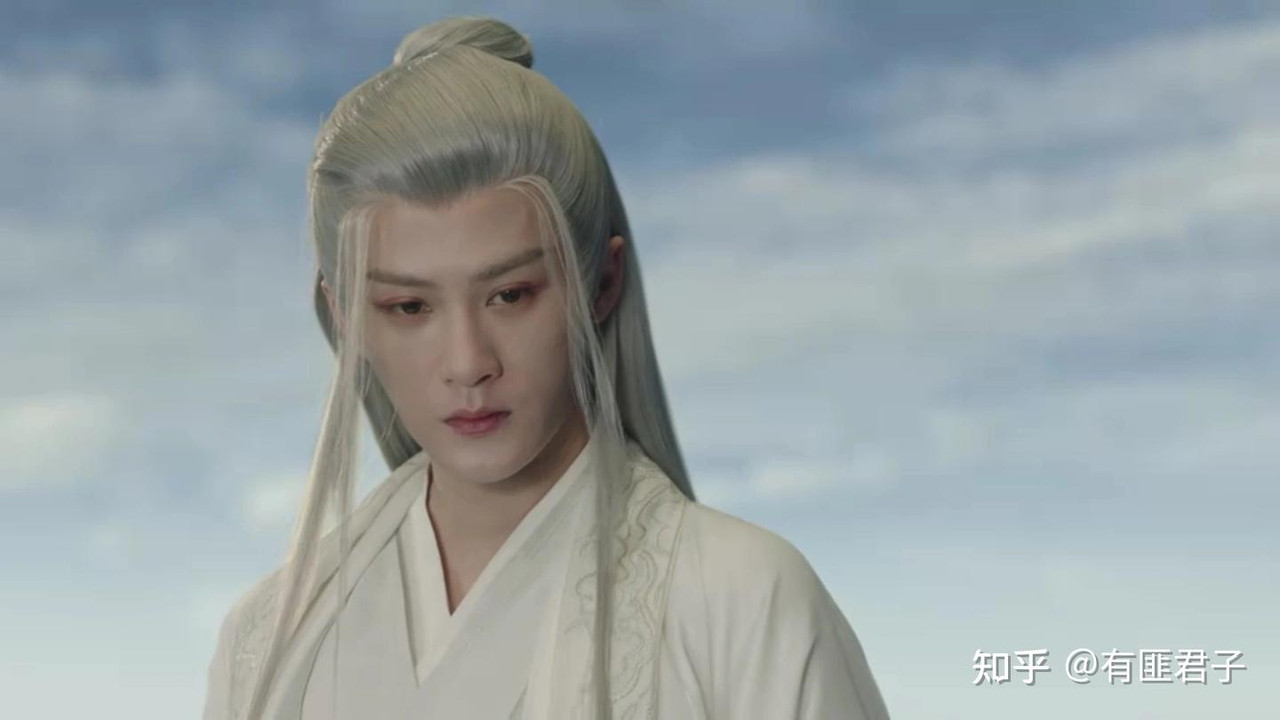
Xiao Liu’s smile carries both guilt and flattery.
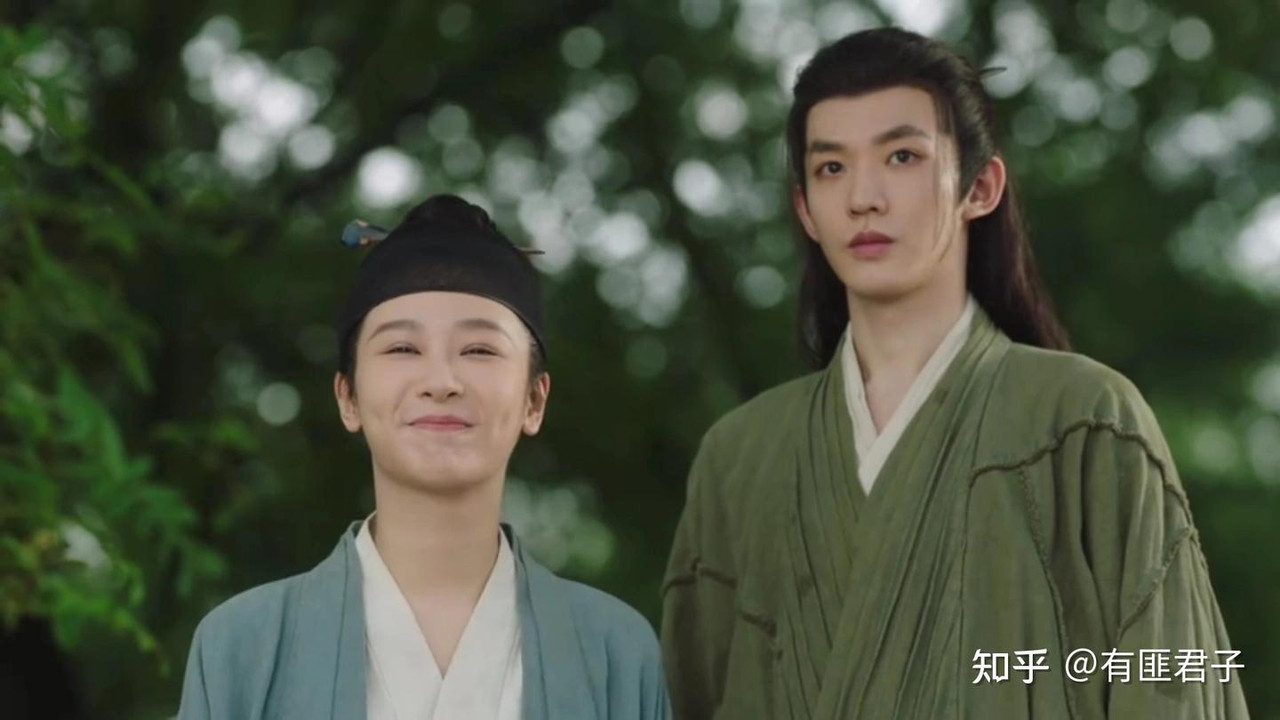
The drama is really lively.
The fox is only tough with Xiangliu: “I’m nobility, you’re a security guard!”
Xiao Liu looked at the Fox’s defiant little paws.
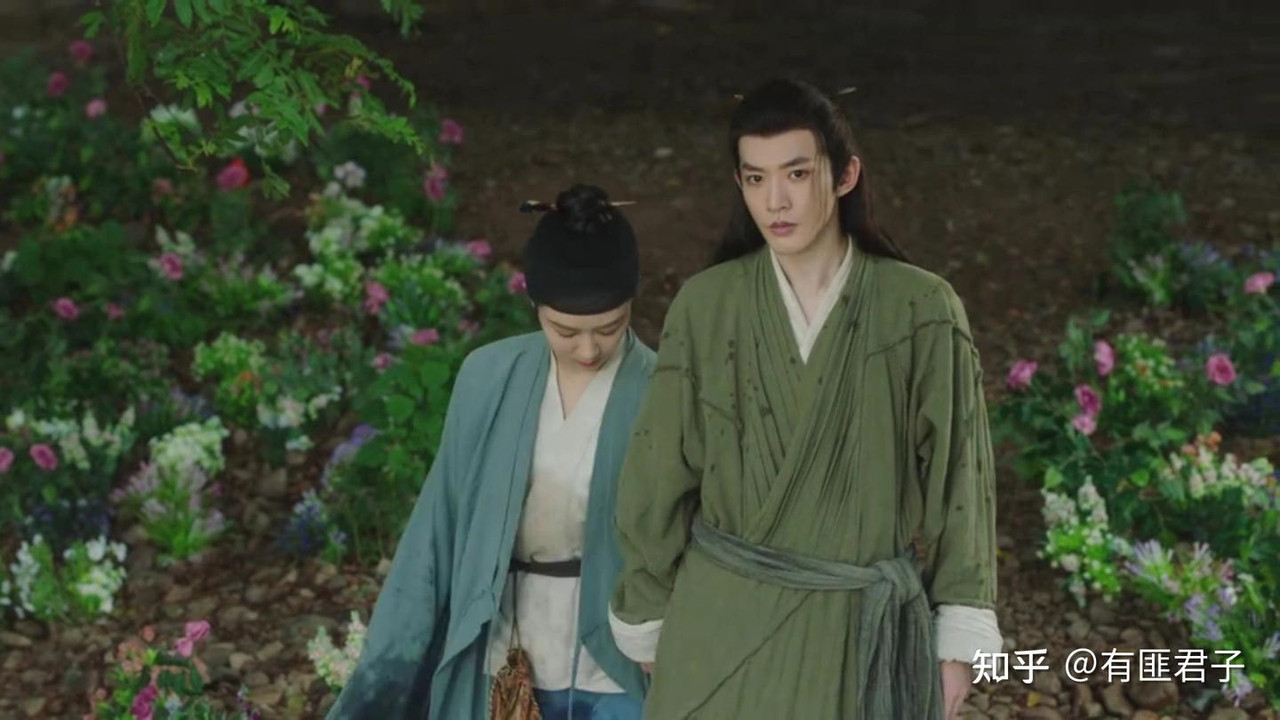
Is this still the timid Ye Shiqi?
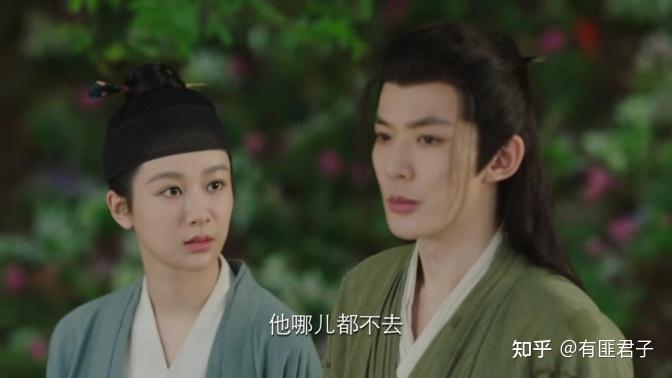
Swords drawn and bows bent.
(Meaning: a tense, confrontational situation.)
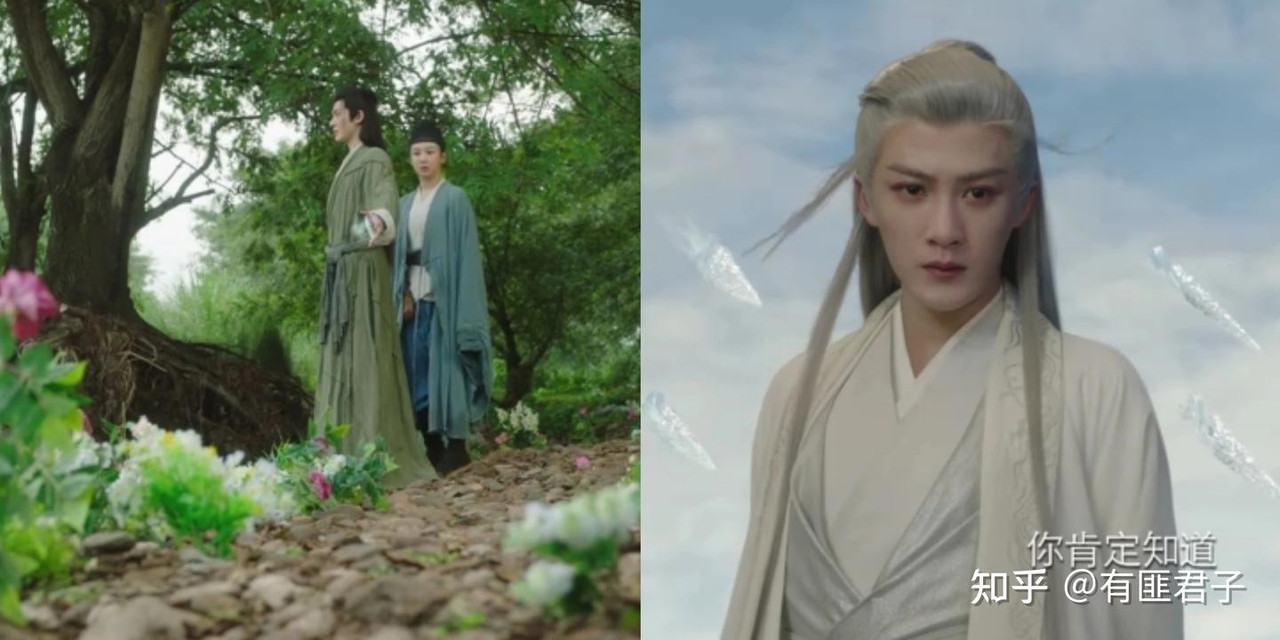
Xiao Liu: Whoa, you want to possess me, and you’re stopping me from going on a date…
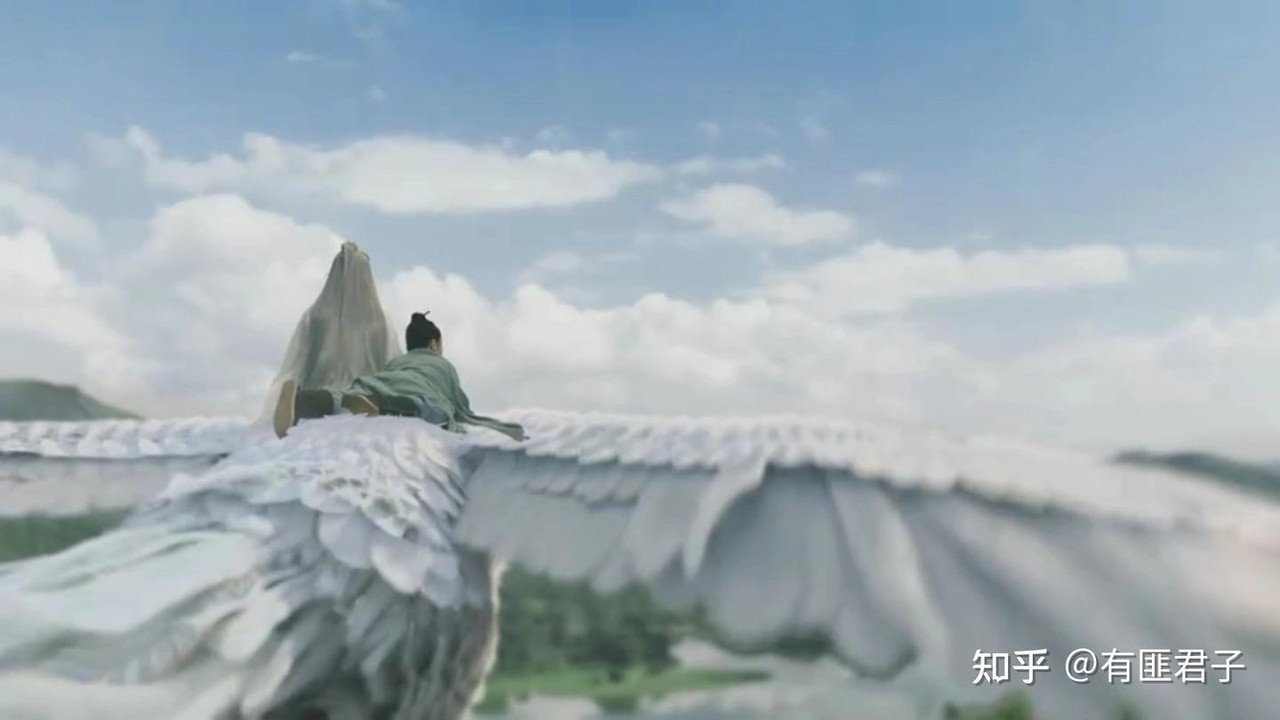
Lying down, proud, satisfied, relaxed.
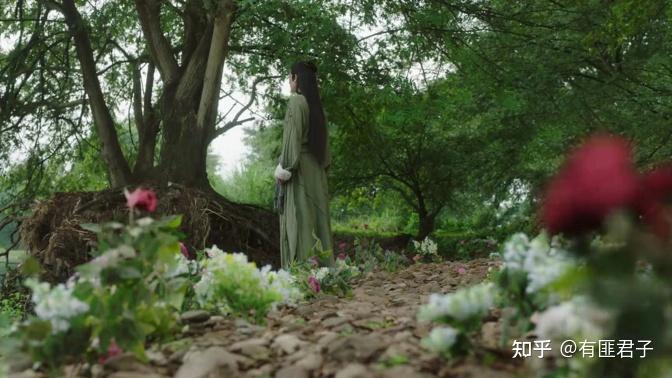
Flowers and plants wither, murderous intent arises.
Xiangliu “racing through the air.”
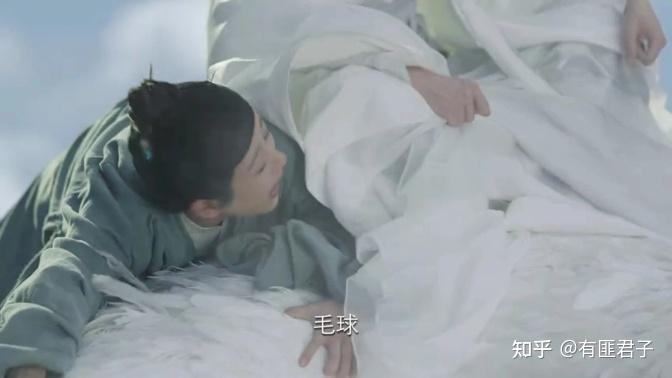
There is the grievance of being “hidden away,” the frustration over his own low romantic intelligence, and resentment toward Xiao Liu.
There is also the questioning verification of, “You’re a divine being, and you can break your leg so easily?”
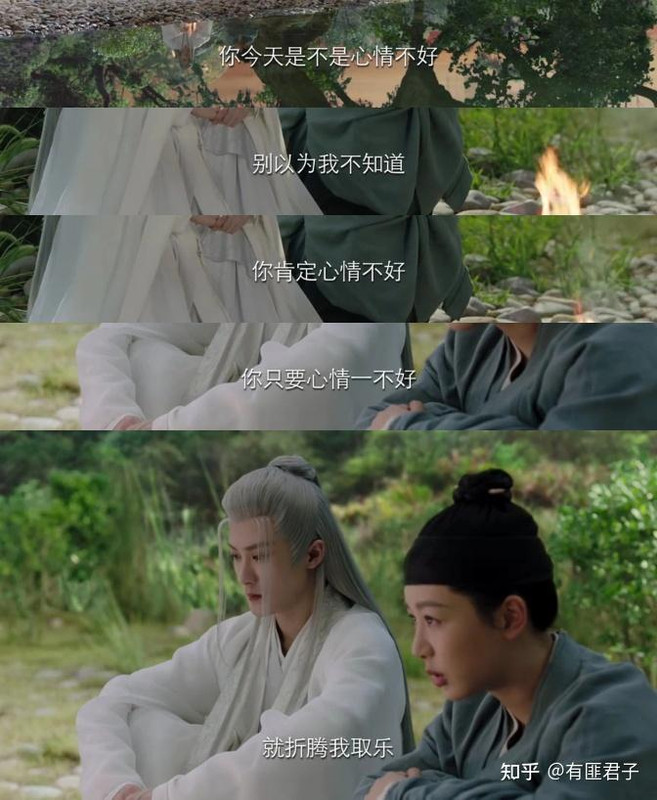
“The ‘servant’ is competing with you, and you’re tormenting me — don’t think I don’t know.”
Xiao Liu “turned the tables” on him.
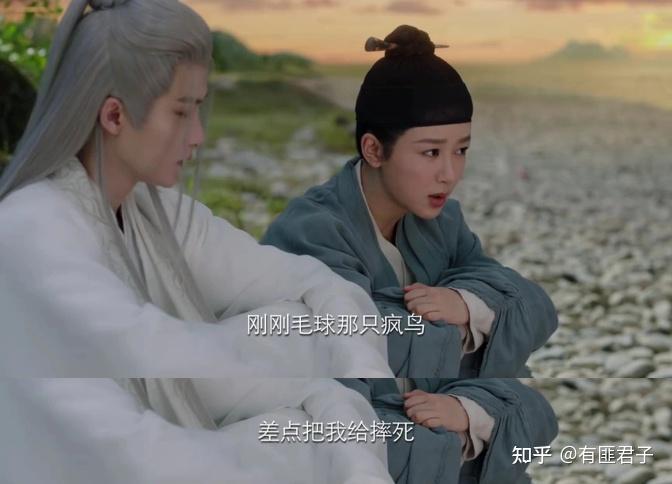
Xiao Liu acted coquettishly and complained.
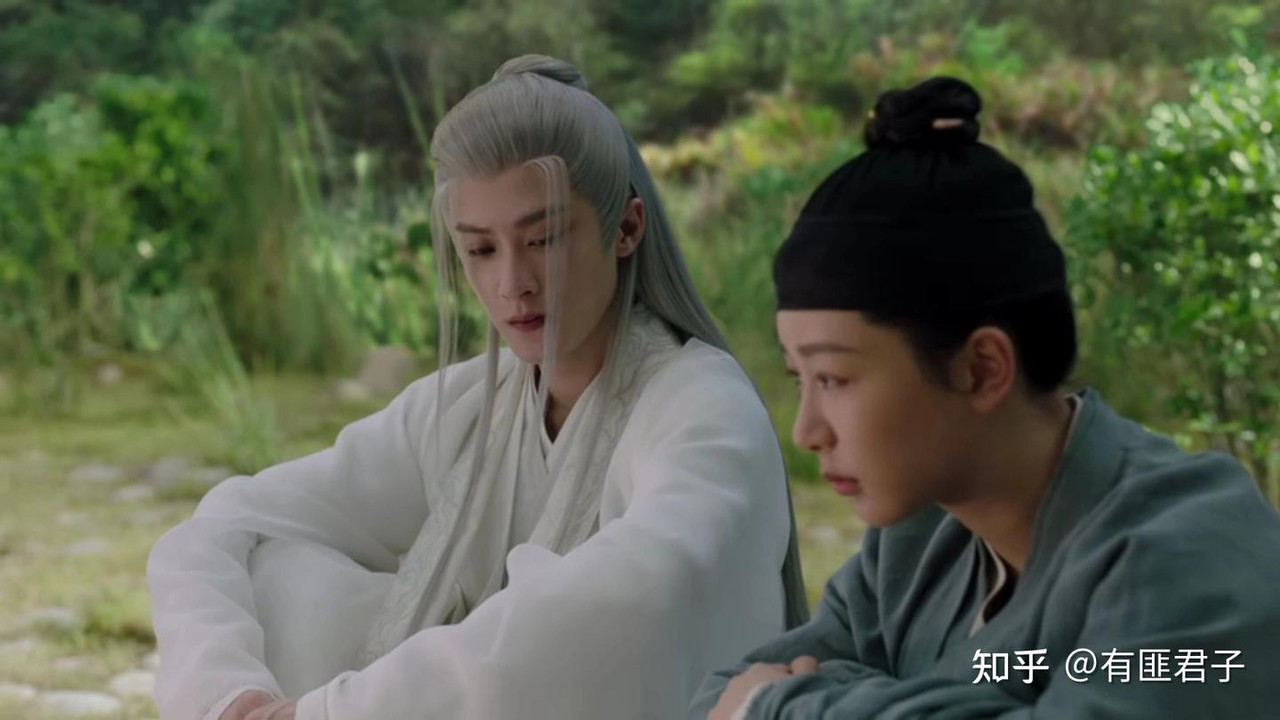
Xiangliu gave a slight expression, a mix of lingering anger and a hint of “serves you right.”
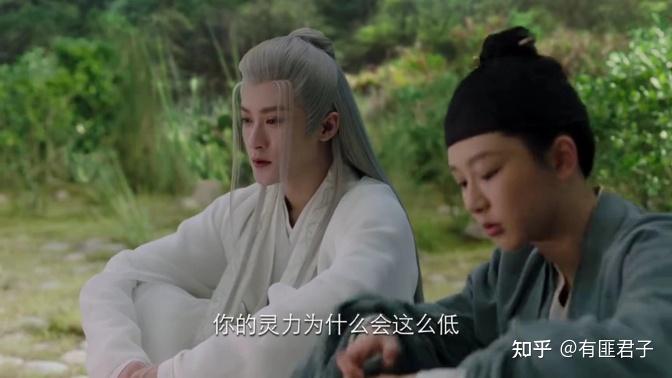
Asking why her spiritual power is weak — there’s doubt, there’s testing, and it also serves to explain the “knocking down the tree” incident.
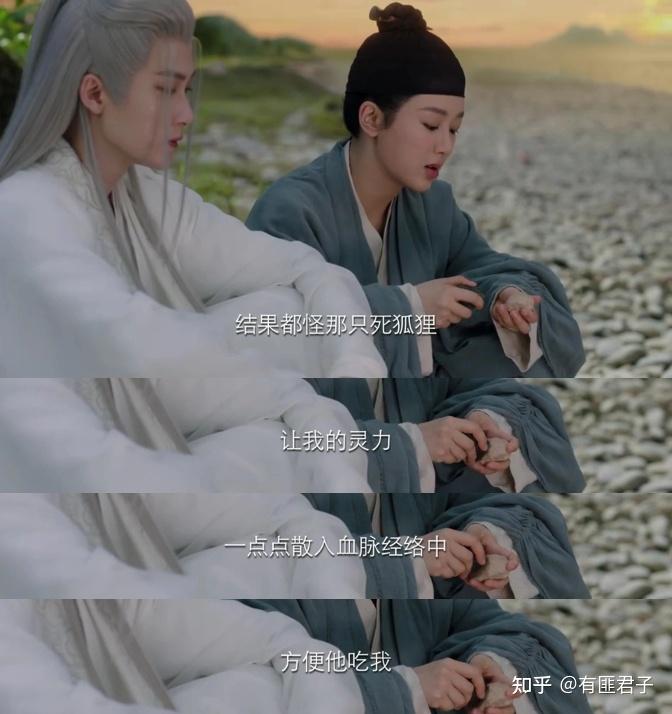
Xuan would hurt her, the fox would hurt her, but Xiao Liu firmly believed Xiangliu would not hurt her.
The divine race was originally a remedy for demons. Having grown up on Pan Tao jade marrow, she had become a “special elixir” coveted by demons for hundreds of years. The nine-tailed fox then let her spiritual power disperse through her blood and meridians, turning her into a “super elixir.”
She told Xiangliu every single secret of her body in full detail.
— She herself was food, a top-tier temptation for demons.
The lover in front of her was also a demon, yet Xiao Liu spoke freely, completely unguarded.
Xiangliu didn’t think, “Wow! You must be so delicious!”
What he thought was, “Damn fox, making you suffer so much.”
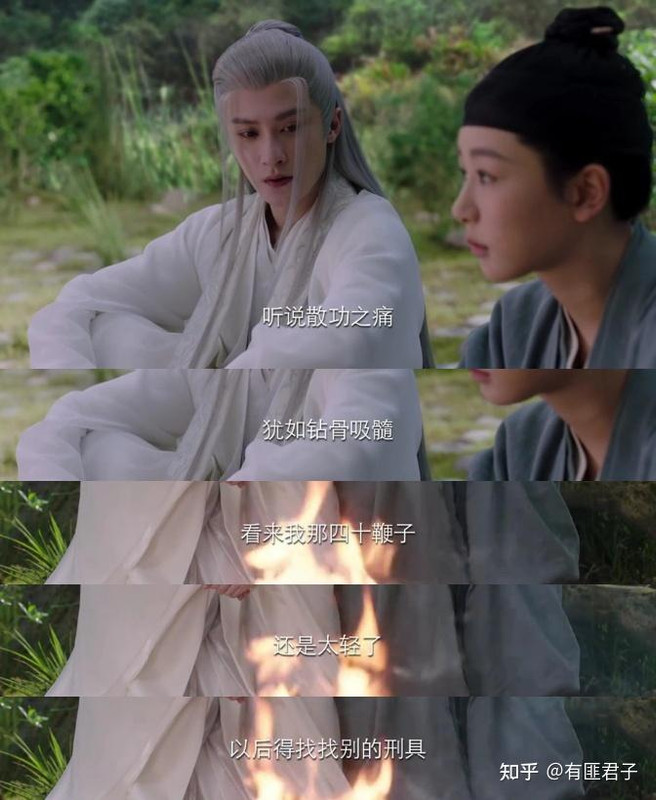
Xiangliu used the term “drain someone to the bone.” He immediately added: “I still want to take more from you.”
“Knocking on the bone to extract marrow” is a term exclusive to the capitalist. Xiangliu was pointing it at Xiao Liu, with the key words: fox, capitalist, exploitation.
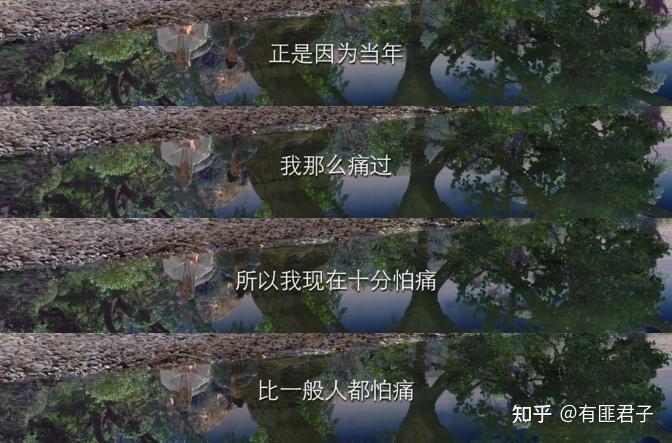
The reflection — “afraid of pain” is not meant in its literal sense.
It’s unclear whether Xiao Liu understood the capitalist’s hint.
She said she was “afraid of pain,” blaming Xiangliu for being “heartless,” and explaining the effect of the “fox-shaped ibuprofen” medicine.
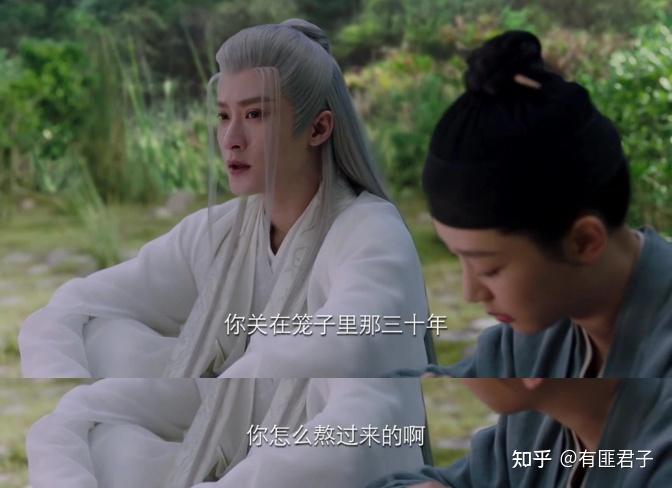
The rebel army’s cause is a cage, and being “hidden away” by Xiao Liu is also a cage. Xiangliu also explains his own “irritability.”
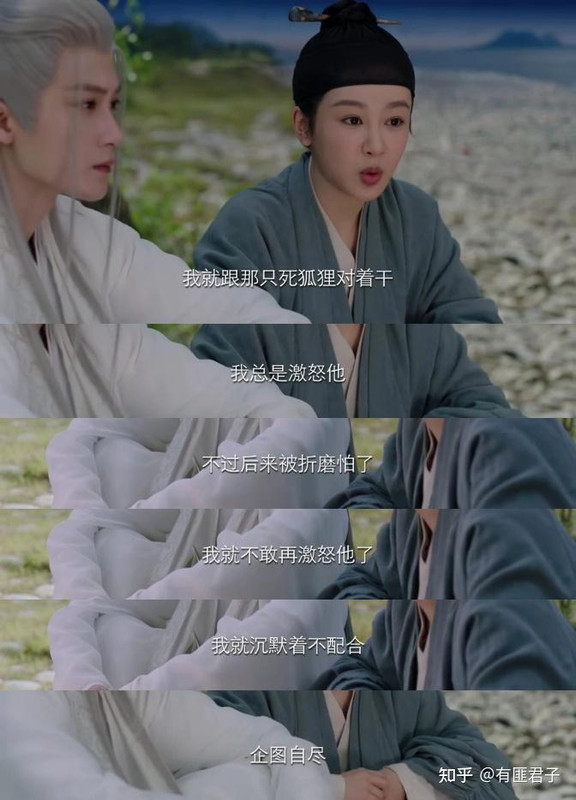
Bringing out the nine-tailed fox metaphor and the subsequent plot allusions.
The meaning of the plot, perhaps, is to explain the “mutual wickedness” between Liu and the fox?
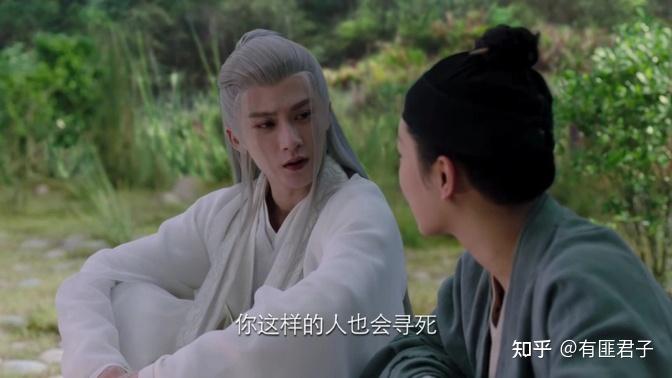
Getting sentimental again — the “human heart” of the demon is gradually growing.
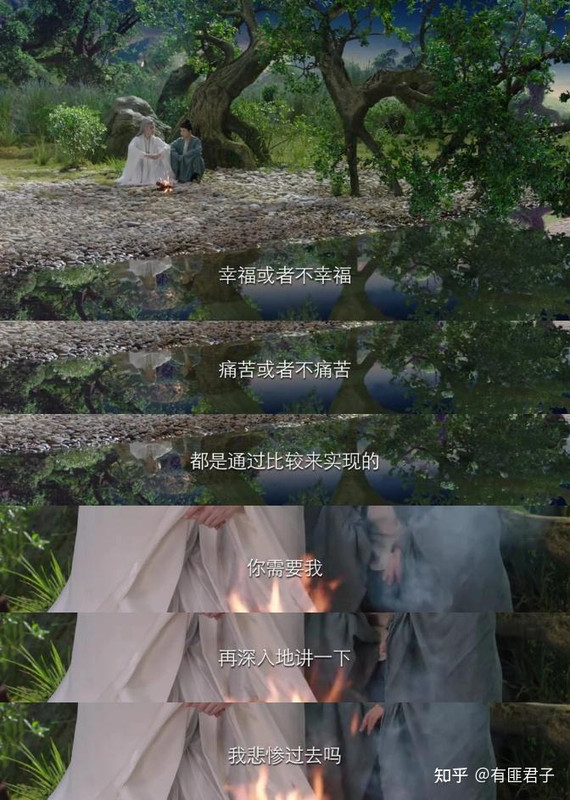
Hiding you away is painful for me too.
I’m being pulled back and forth between you and Xuan, so compared to you, I’m in even more pain.
This passage carries several meanings — it’s also talking about “the servant Ye Shiqi,” which is even more obvious in the novel.
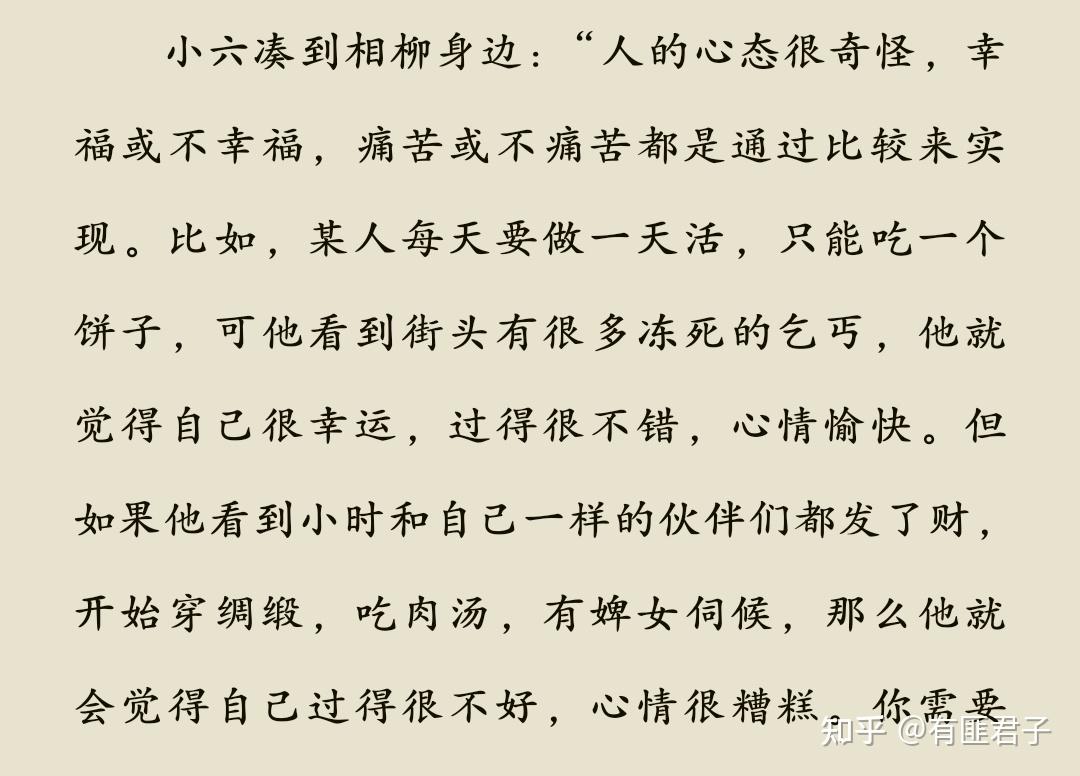
When I first saved him, I pulled him back from the brink of death. From being abused every day to living a simple but safe life, he felt he was doing pretty well.
Now, seeing his former acquaintance A Nian being arrogant and domineering, dressed in silk, eating meat soup, and attended by maids — while he himself had to be meek and work hard — he felt mentally unbalanced and thought of finding a way to leave.
He was indeed already preparing to leave
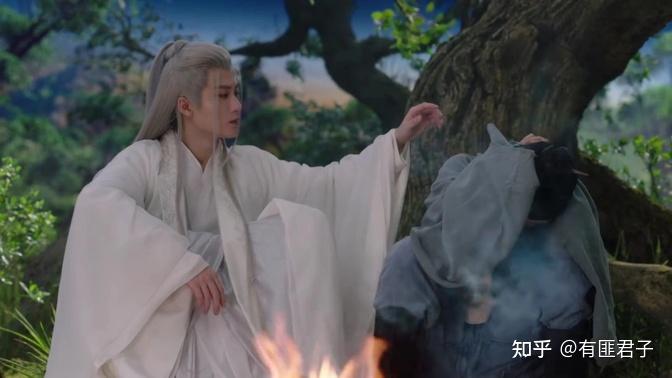
Xiangliu raised his hand, and Xiao Liu thought: he’s really going to hit me.
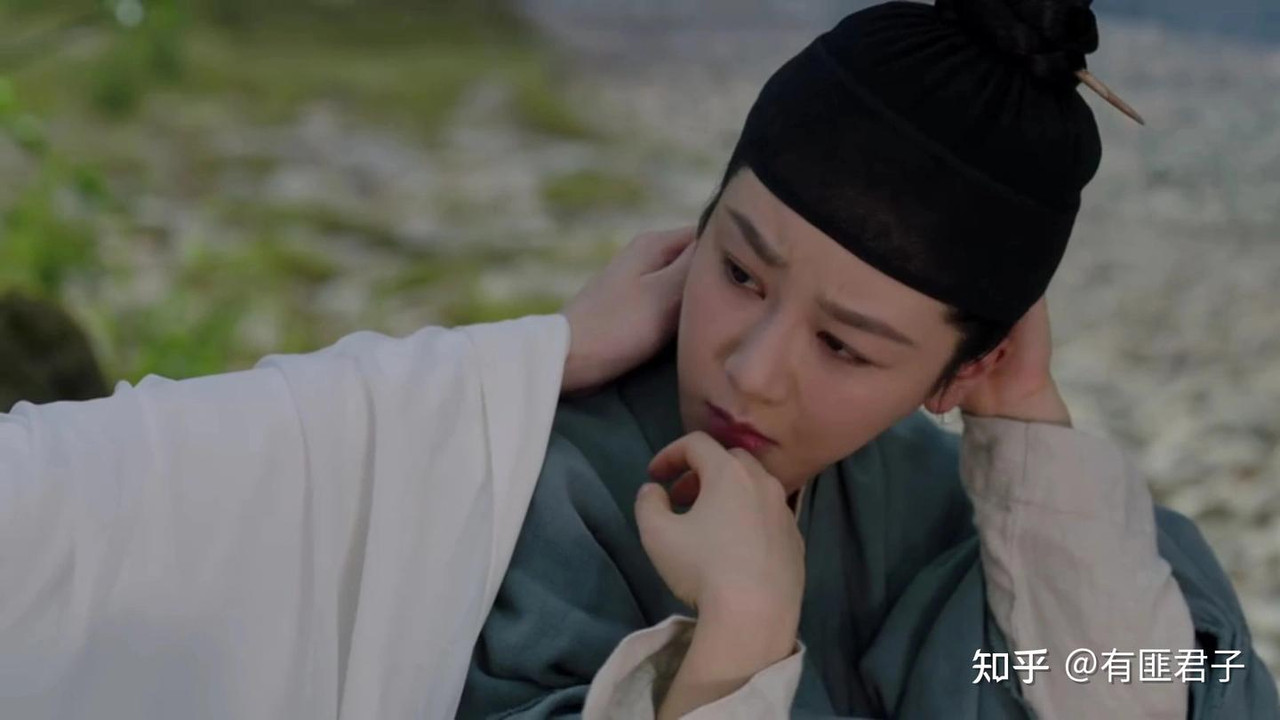
His hand gently rested on the back of her neck: he understands her and cares for her.
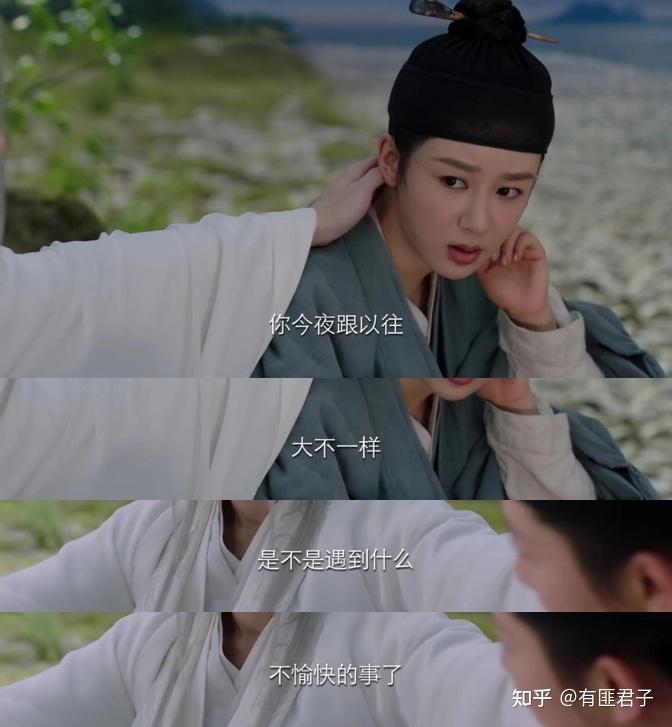
Xiao Liu could hardly believe it: You… a monster, have developed a human heart?
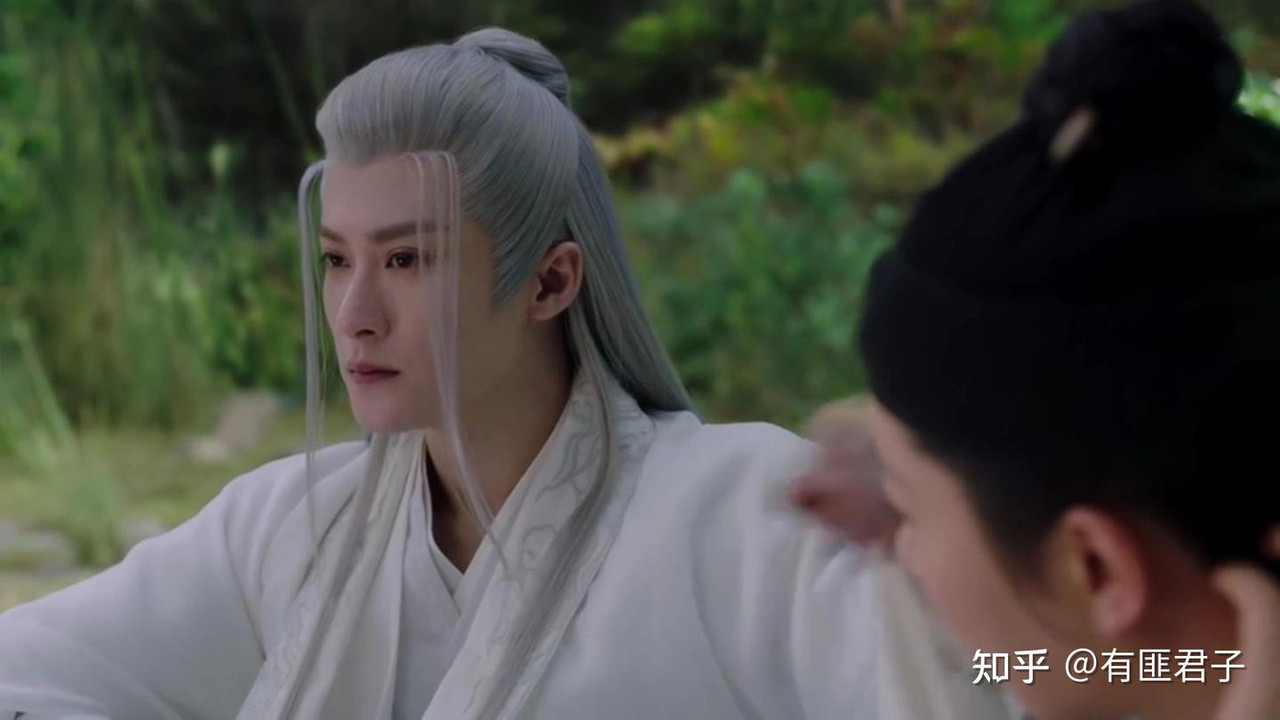
Xiangliu rolled his eyes at him and withdrew his hand.
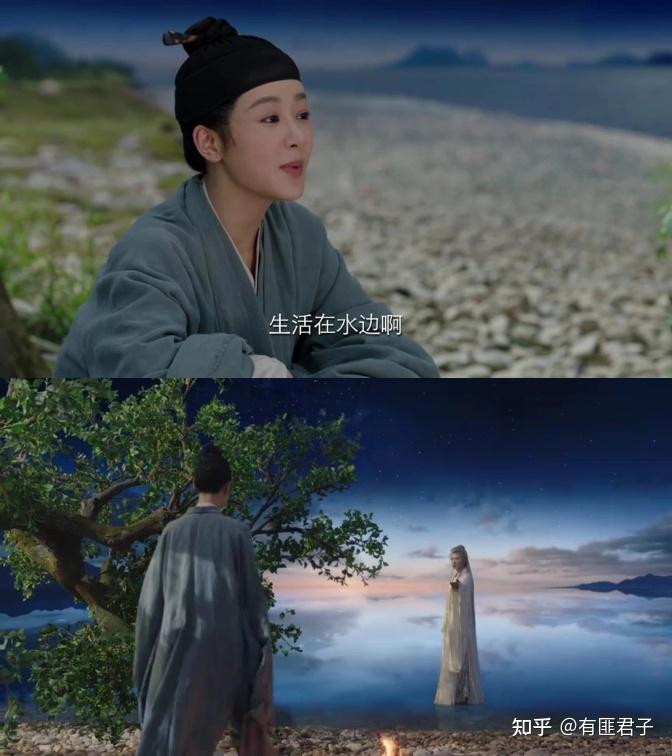
"Take me back to your home?" — "Yes, come."
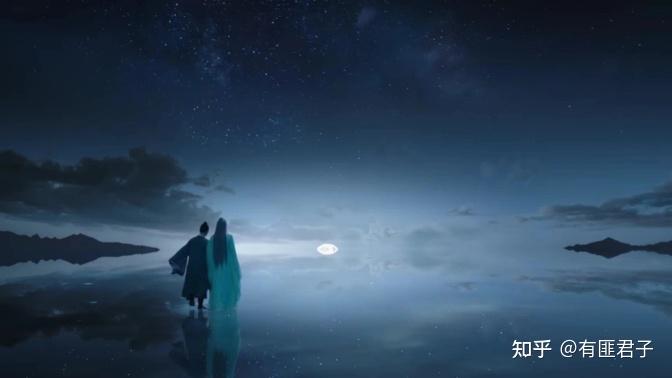
Hopping and jumping, sincere heart for sincere heart, Liu Brother finally has a home.
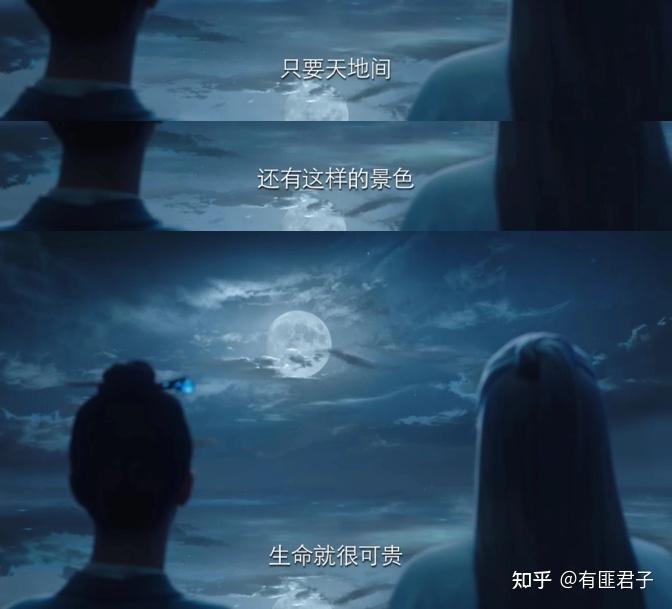
Love, home, reunion, hope—things that make life even more precious.
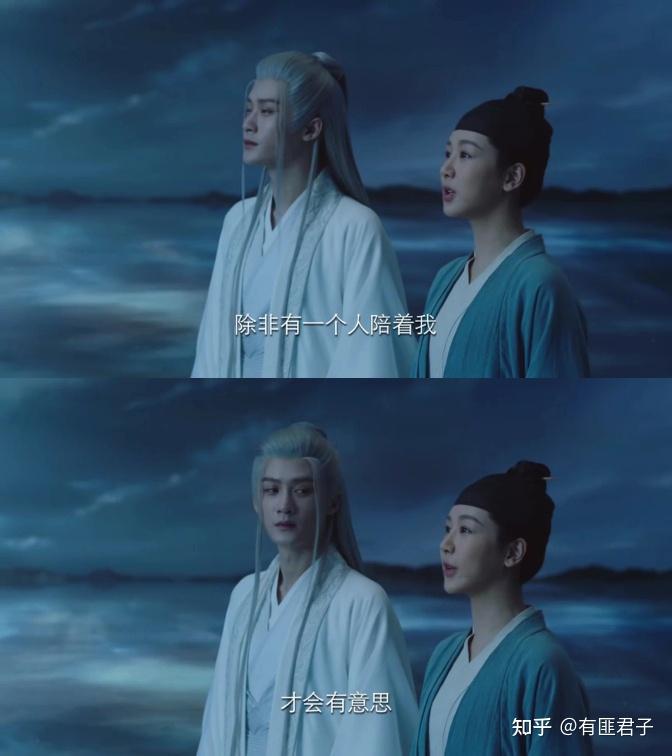
"I want you to stay with me. To be together for a long time."
Xiangliu understood, but did not answer.

He also didn’t know how to walk the path of “long-lasting togetherness.”
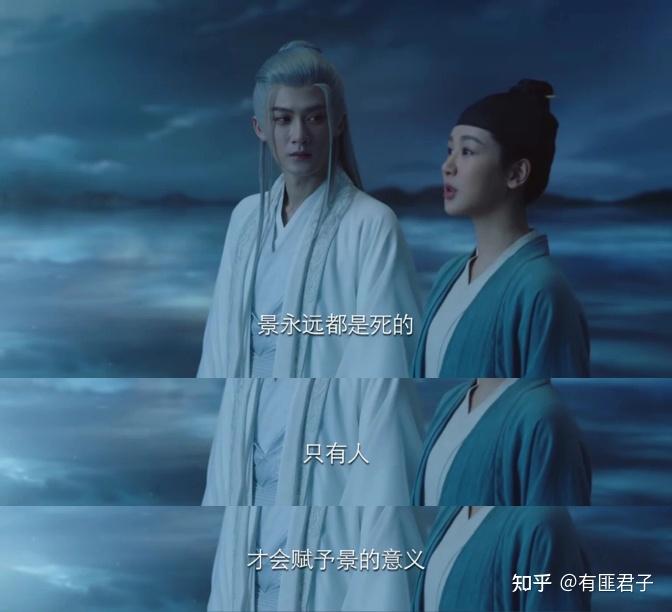
⏫ This line of monologue highlights “Eternal Longing”—longing sent to the moon.
It also echoes the title of the chapter:
The hardest is joyful meeting, the easiest is parting; though a thousand miles apart, we share the same bright moon.
It is also a prophecy — Jing’s “verdict” in Xiao Yao’s heart.
When watching the drama, don’t skip the opening. The last part of the opening contains the answer.
Eternal Longing has three stages—Xiao Yao and Cangxuan’s childhood longing, Xiao Yao and Xiangliu’s adult longing, and Cangxuan’s adult, solitary longing.
After that, the opening ends, and three characters pop up: Eternal Longing.
Xiao Yao’s family connections in Qingshui Town:
Mazi, Chuntao, Chuanzi, Sang Tian’er, and Laomu are members of Xiao Liu’s household.
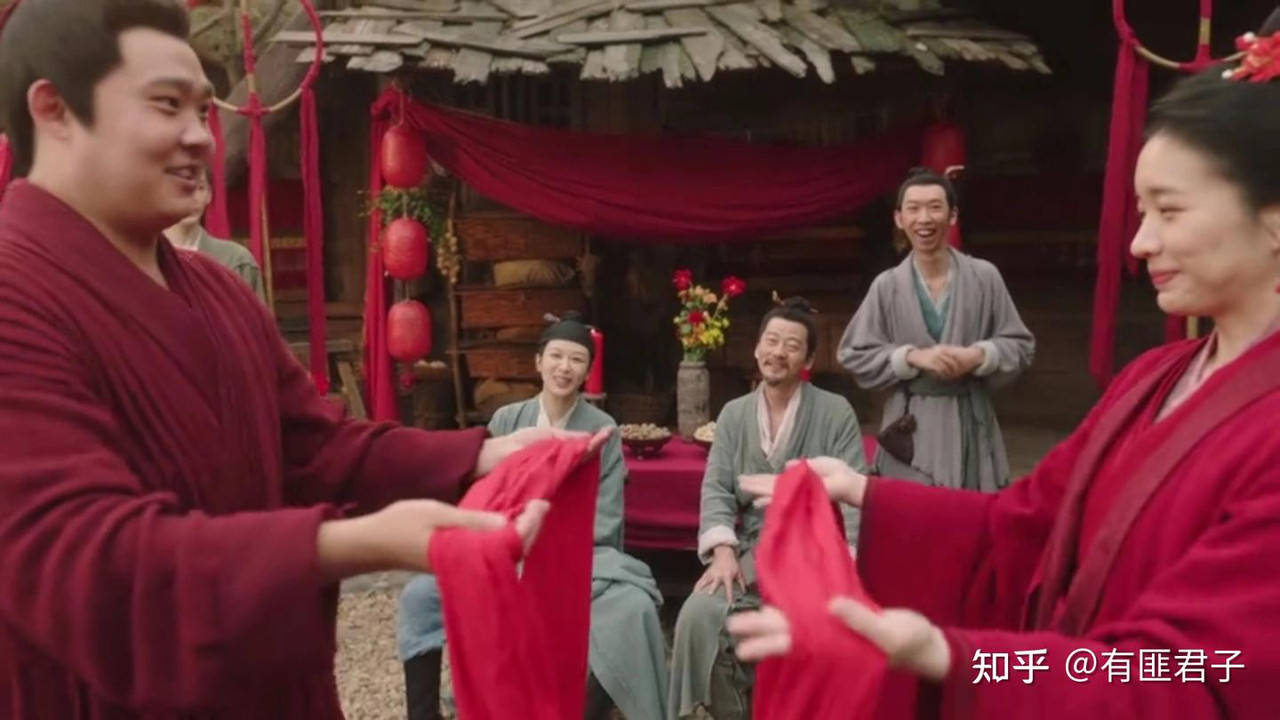
Mazi and Chuntao
In the story, Mazi and Chuntao correspond to Yaoliu as a married couple. One is Shuangmu in armor, the other is the butcher’s daughter.
In the story, Mazi and Chuntao have two children.
When Chuanzi got married, Chuntao was pregnant with their second child.
[Revealed]: Mazi and Chuntao correspond to Yaoliu
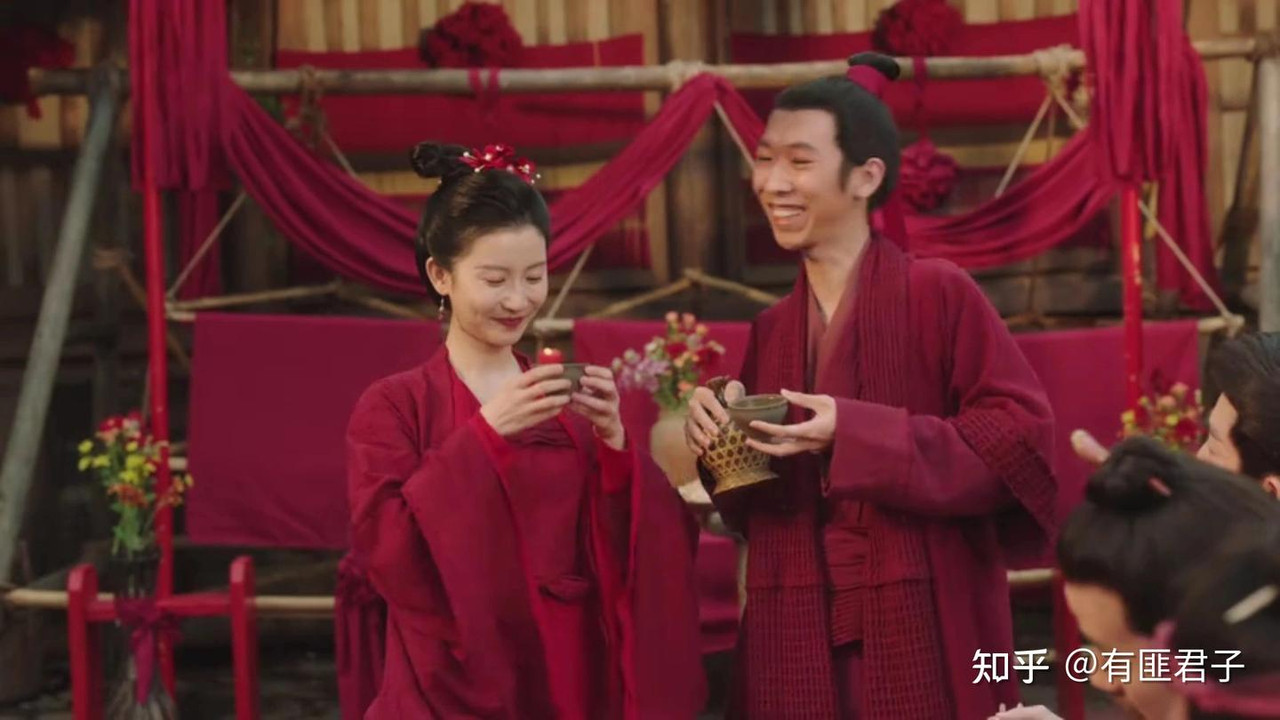
Chuanzi and Sang Tian’er
Sang Tian’er is a courtesan. Cangxuan bribed Sang Tian’er to seduce Chuanzi. Chuanzi pressed Sang Tian’er while twisting sugar threads. (Chuanzi corresponds to Tushan Jing)
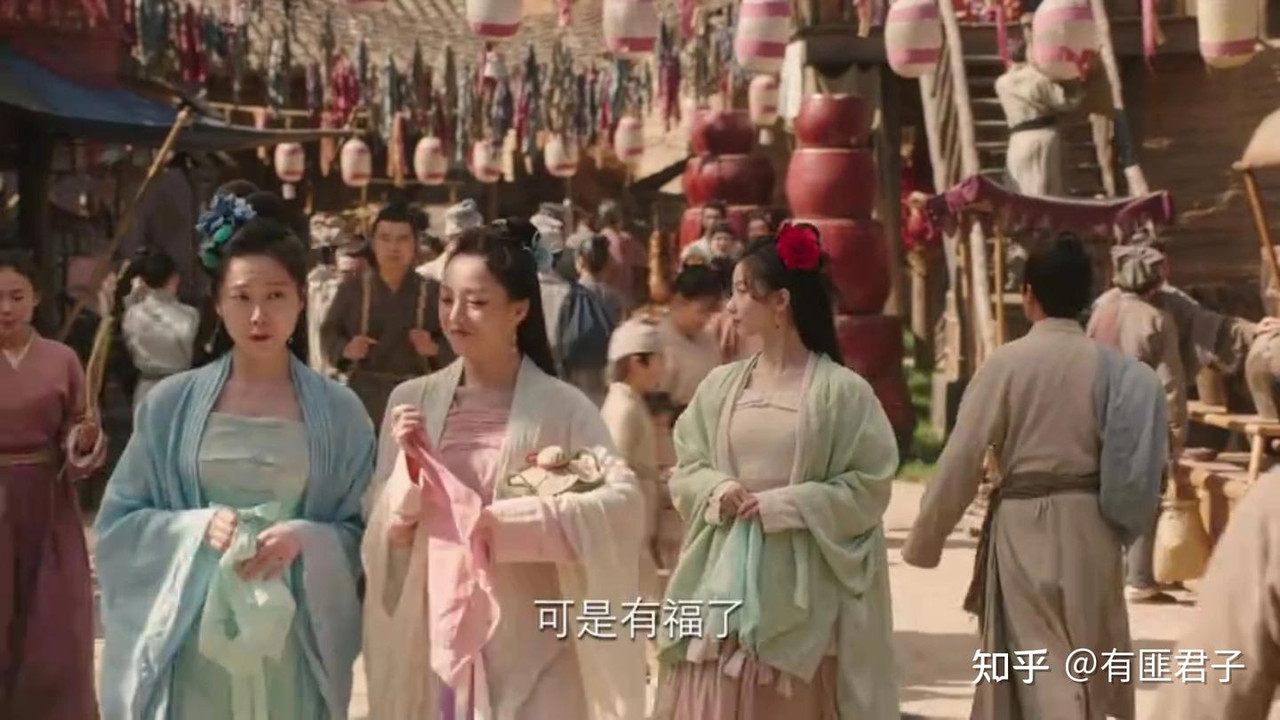
When Sang Tian’er appeared, two sets of drums (gu) appeared as props. At Chuanzi’s wedding, Mazi said, “I will definitely see it through to the end.” After Chuanzi’s wedding, Xiangliu took Xiao Liu away.
Sang Tian’er’s feigned affection for Chuanzi turned into genuine love after the wedding. The two had five children and a group of grandchildren and great-grandchildren. (Chuanzi corresponds to Xiangliu)
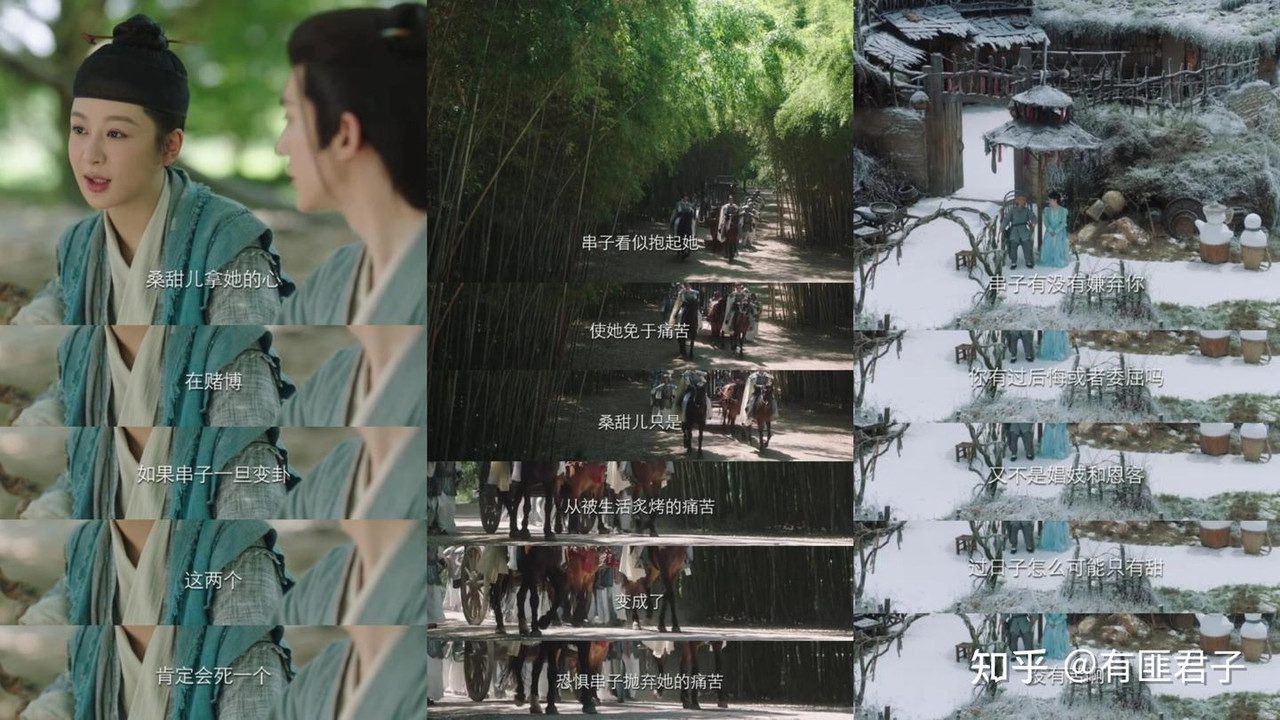
These three dialogues and monologues: first, Chuanzi and Sang Tian’er think of her lover Gu; second, fear of Xiangliu abandoning him, self-reassurance; third, believing Xiangliu despises her, she talks with Sang Tian’er.
[Inference]: Chuanzi is two people.
Analyzing the characters, “two mouths form ‘Chuan’ (串),” representing Tushan Jing and Xiangliu. In Xiao Yao’s mind, Chuanzi is Xiangliu.
Before the wedding, Chuanzi and Sang Tian’er correspond to Tushan Jing and Xiao Yao: courtesan and patron, monetary and sexual transactions, feigned affection.
After the wedding, Chuanzi and Sang Tian’er correspond to the reclusive Xiangliu and Xiao Yao: husband and wife, genuine affection, growing old together.
“Lost You Forever” Unveiling the Fog, Searching for the Truth (XIV) — Tu Shan Jing’s Grand Chess Game
In the previous section, the “left ear” and the “right ear” referred to Yao Liu’s reunion and separation. When together, they are mixed with “joy, anger, and love”; when apart, the heart and eyes are filled with “longing, desire, and sorrow.”
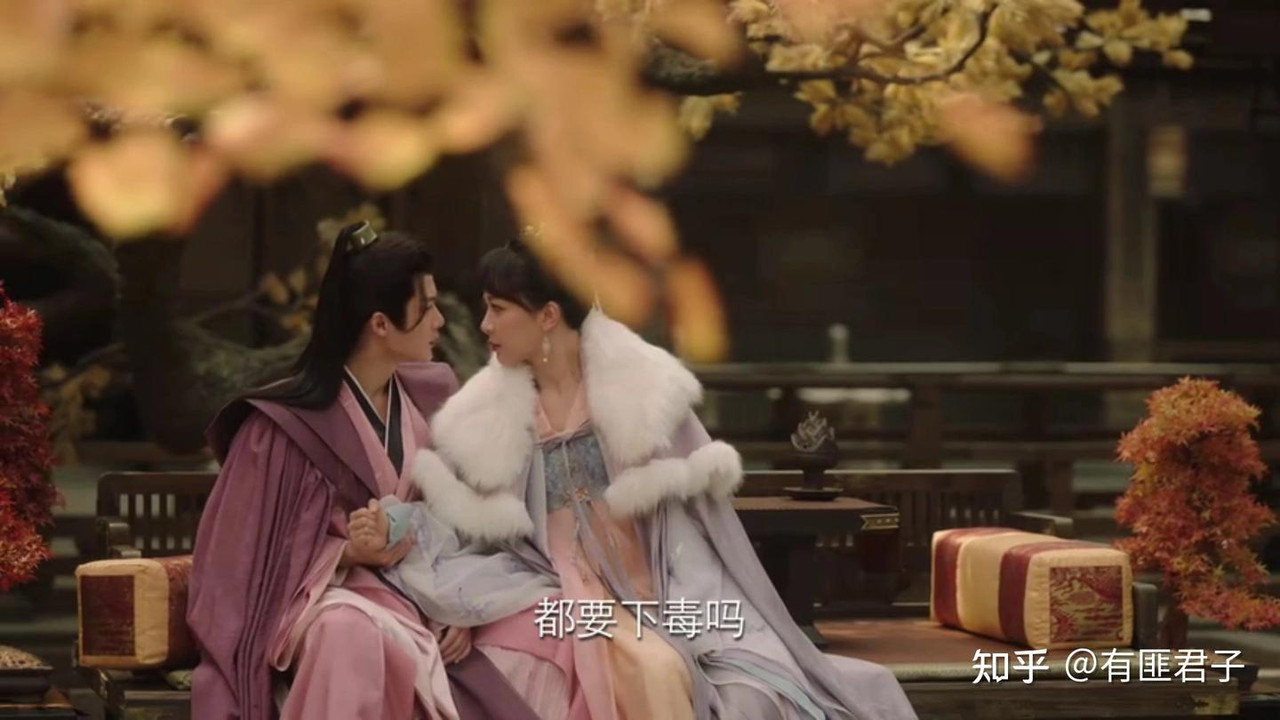
Xiao Yao has always been tormented by the shadows of her childhood. Although the Lover’s Gu is deeply planted, she has always lived in fear, afraid that Xiang Liu, like her mother, would “abandon” her for the sake of greater duty. (She fears falling into dreams — more precisely, she fears nightmares.)
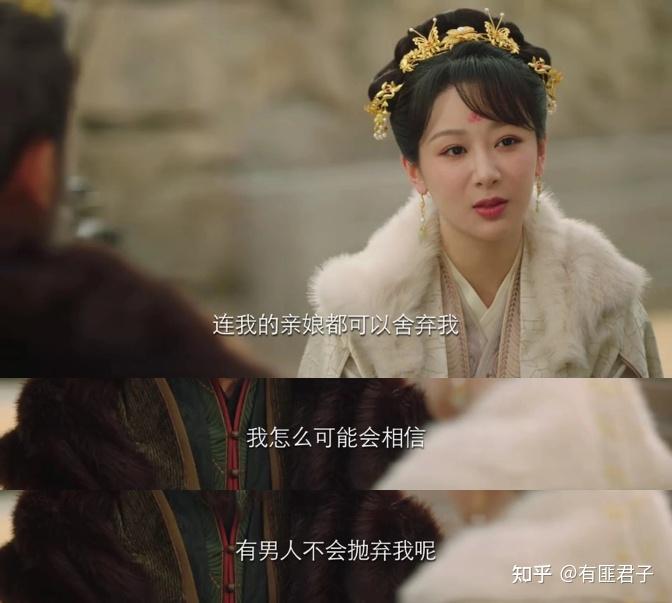
Whenever they part, the “longing, desire, and sorrow” in her heart have nowhere to rest. Just then, there is a “free-contract” partner, Tu Shan Jing. And so, the “model couple” of Yao and Jing — who “see only honey but not the salt and oil” — comes into play.
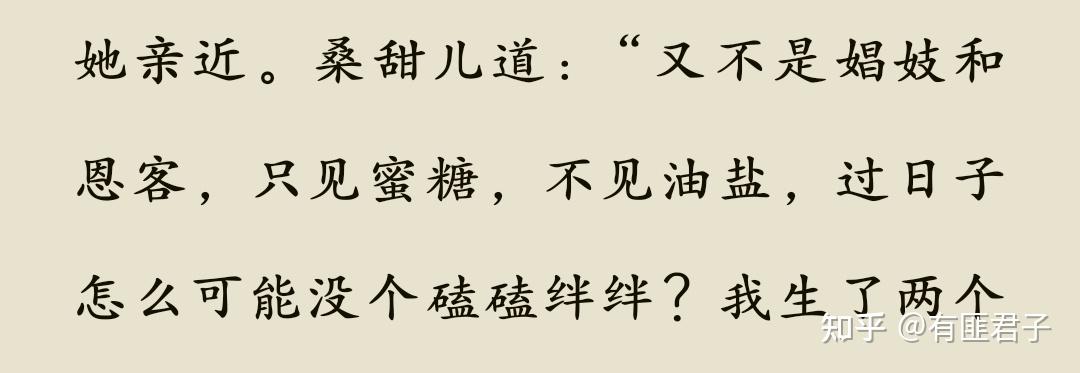
The resolution of longing, desire, and sorrow.
By stroking the fox, Xiao Yao can ease her yearning, satisfy her private desires, soothe her sorrows, and at the same time fulfill the contract, winning “support” for Cang Xuan. Tu Shan Jing repeatedly betrays her, yet feels no guilt when they deceive each other. Moreover, being castrated, not a man, he poses no danger
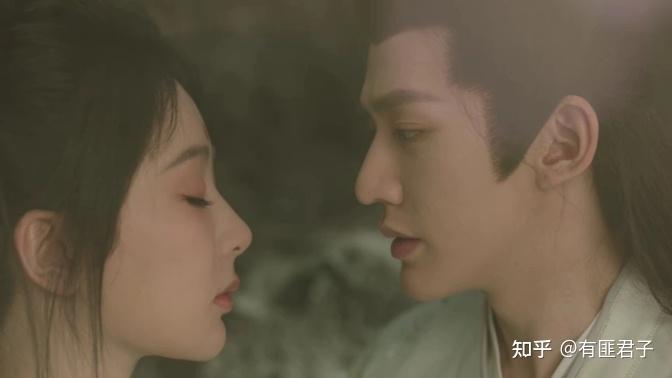
The intimate scenes between Yao and Jing are always veiled by a halo.
Dragon Bone Prison date (the setting creates a sense of discomfort).
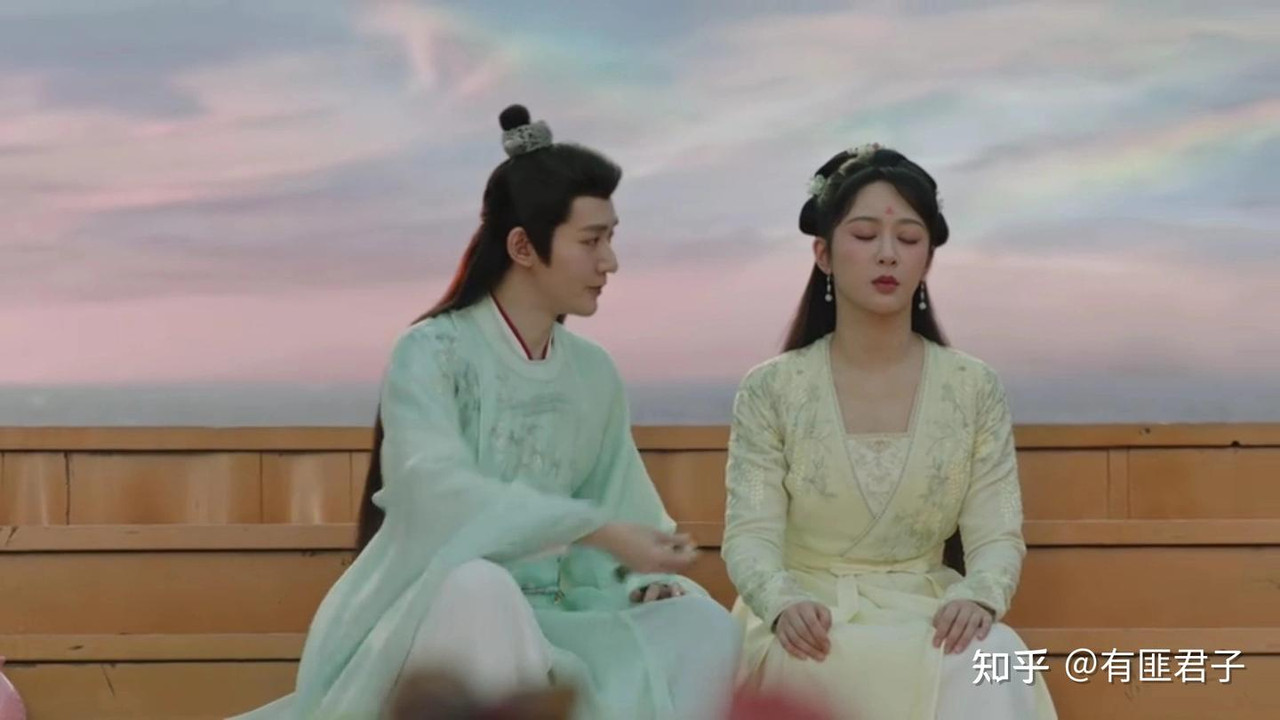
At the bottom of the scene, half a red heart runs, while a black heart closely chases after it.
Feasting with his wife, while secretly meeting Yao (the occasion creates a sense of discomfort).
The screenwriter keeps coming up with new ways to bully the fox.
On one hand, making the audience uncomfortable, while on the other hand portraying the interactions between the two as sweet and loving, putting on a façade of “true love conquers all.”
At the same time, Tu Shan Jing is shaped as a “victim” who resolves hatred, a selfless “giver,” while beneath it all the cruelest scheme is hidden.
The companionship of joy, anger, and love —
Yao and Liu’s feelings are mutually understood.
Come and appreciate Xiang Liu’s “never at a loss.”
First set:
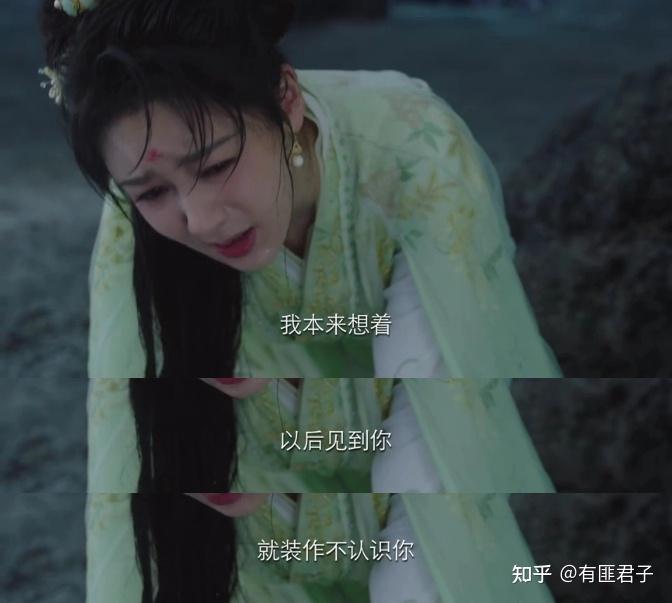
Even if I change my appearance, I will still pretend not to know you.
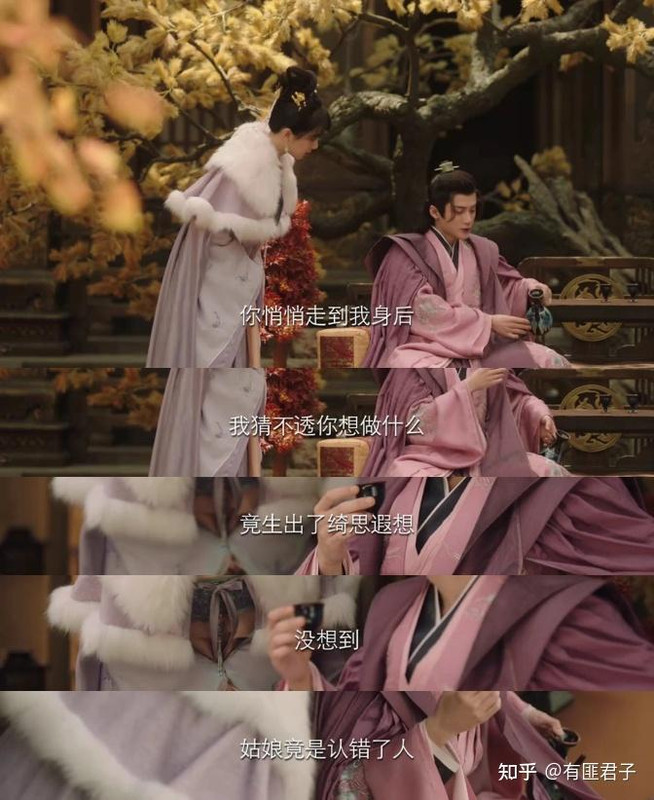
Xiang Liu: So you want to pretend not to know me, huh? Even without changing my appearance, I can still pretend not to know you.
Second set:
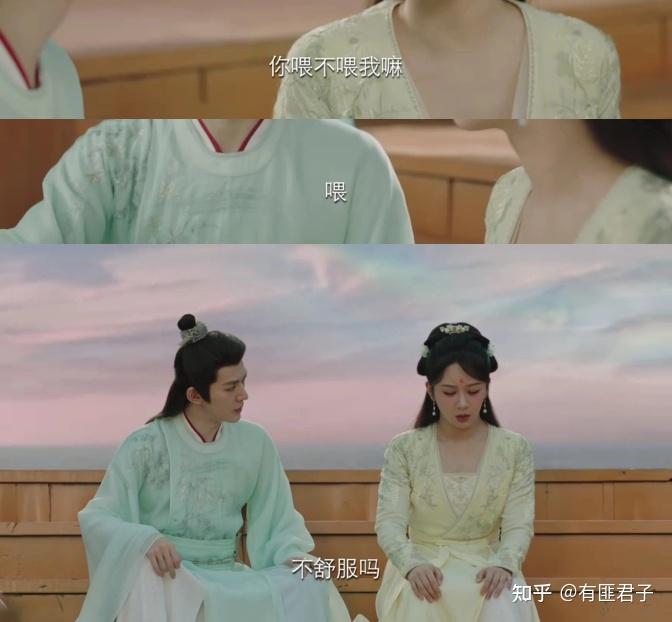
Xiang Liu: You let a servant feed you? Ugh!
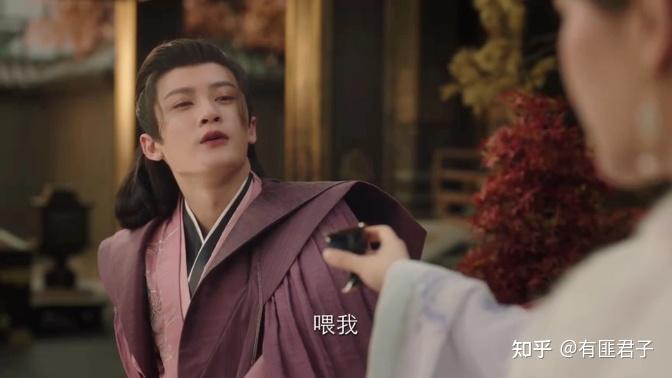
You feed me!
Third set:
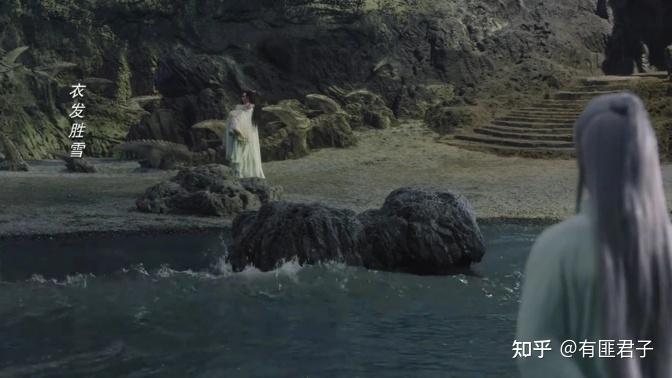
Letting the fox hold you, a case of “substitute literature”?
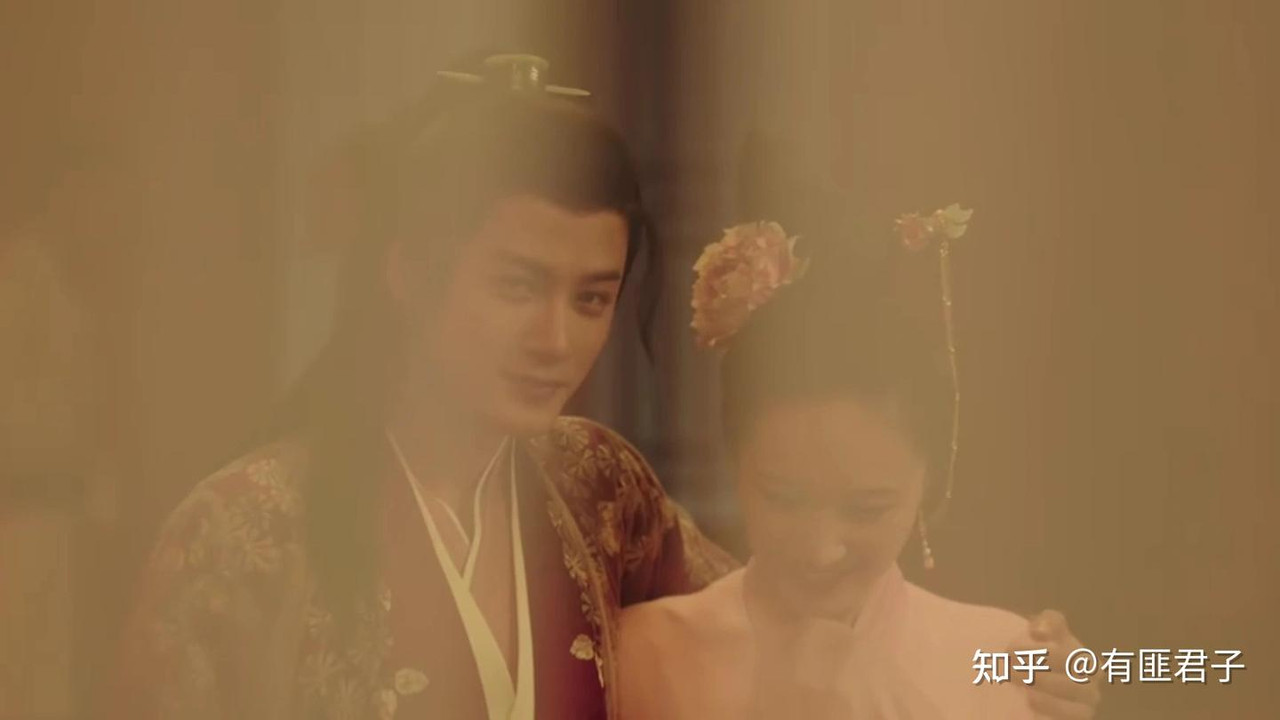
Then I’ll also put my arm around a girl — little… Man Yao.
Two “CP” pairs.
On one side: you have a fiancée, you set me up; you have someone you love, you deceive me — it’s fine! I only fear you breaking the contract!
So magnanimous!
On the other side: “not willing to suffer even the slightest loss,” not even a tiny bit is acceptable.
So petty!
Comparing Jing and XiangLiu is always interesting.
Such remarkable tactics!
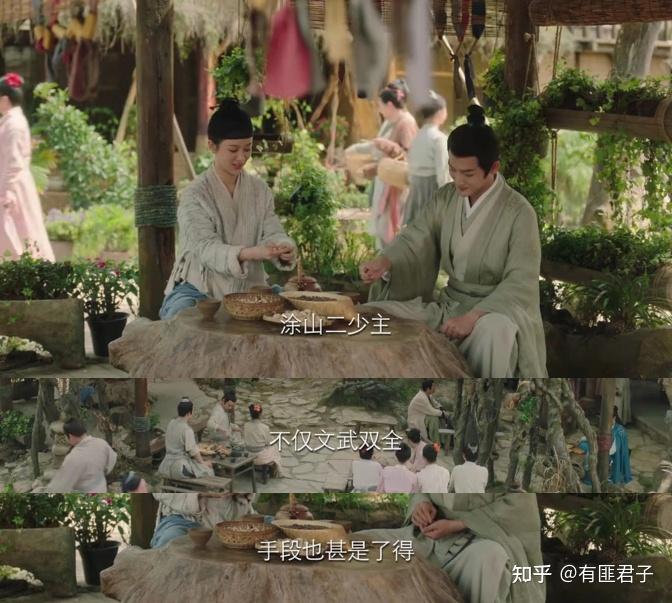
[The Second Young Master of Tushan
is not only accomplished in both literature and martial arts,
but his methods are also exceptionally skillful.]
Tu Shan Jing’s Two Boats
The Tu Shan family, while claiming “not to participate in the struggle for royal power,” has always had a foot in two boats. Following the principle of “if the East is dark, the West will be bright,” even in turbulent times, they have managed to remain firmly in the position of the richest clan.
At the start, the Tu Shan family’s two boats were the Five Kings and the Rebel Army. With one hand, they clung to the future powerholders; with the other, they kept control of the military force that secured stability in the Central Plains.
Tu Shan Hou aligned with the Fangfeng family to support the Fifth and Seventh Kings.
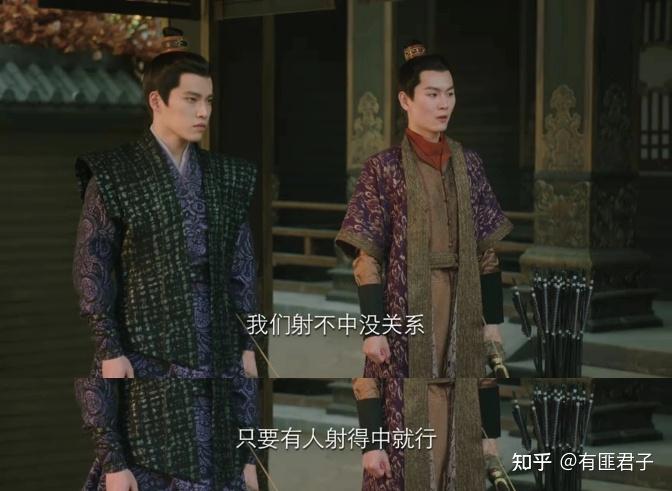
Tu Shan Jing controls the lifeline of grain and supply transport for the Rebel Army.
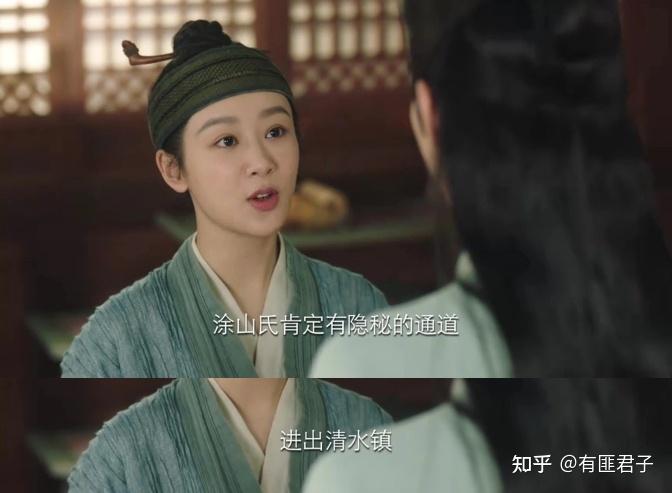
Merchants controlling the army don’t need to spend money — they can even make money. The transport of military supplies is the business of the Central Plains financiers.
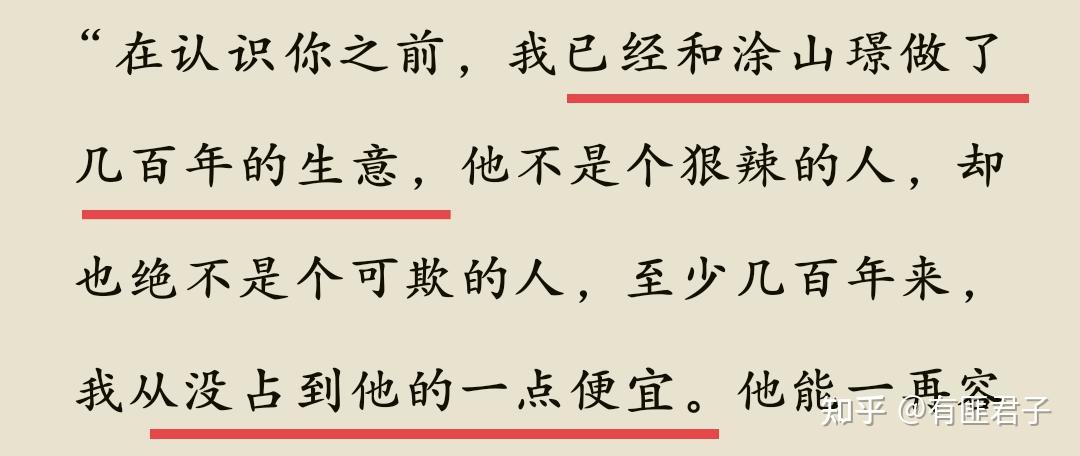
The “Central Plains” Highlight
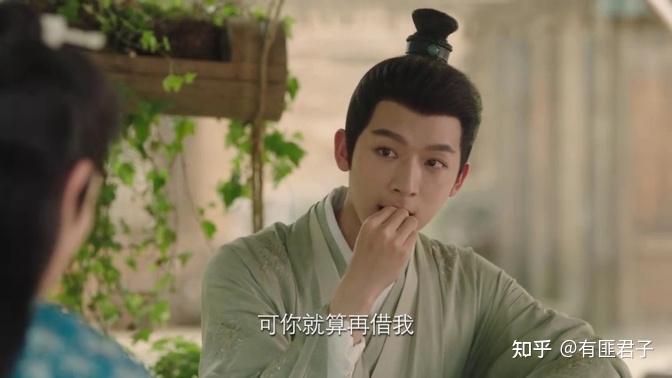 In Qingshui Town, Jing and Liu cross wits, while the “tool man” Cang Xuan roams the marketplace in disguise, acting as a “blind man” the entire time. The aristocratic young master Tu Shan Jing concludes that Cang Xuan is weak, powerless, and somewhat of a “blockhead.”
In Qingshui Town, Jing and Liu cross wits, while the “tool man” Cang Xuan roams the marketplace in disguise, acting as a “blind man” the entire time. The aristocratic young master Tu Shan Jing concludes that Cang Xuan is weak, powerless, and somewhat of a “blockhead.”
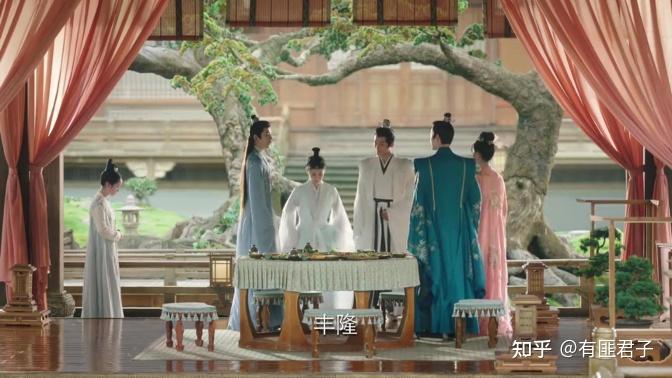
With the guidance of the King of Haoling, Tu Shan Jing introduced Cang Xuan to Feng Long, deciding to support Cang Xuan, stir up Western Xiyan politics, and cultivate a “puppet king” in the Central Plains. (In fact, the King of Haoling calculated two paths: if retreating, then to disrupt the court politics; if advancing, then to play the son-in-law card.)
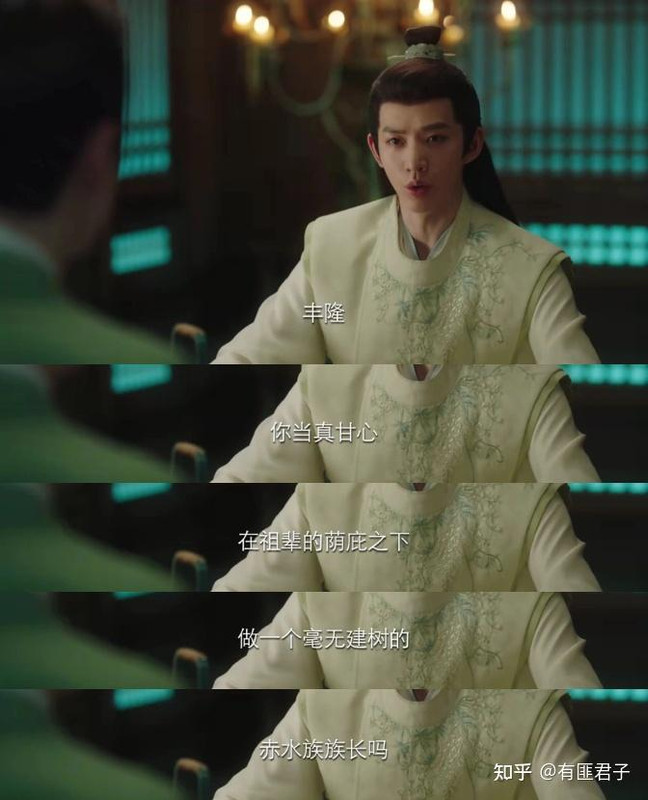
Cang Xuan was chosen because he was weak and powerless. Are you content to be just a clan leader?
By persuading Feng Long and using Cang Xuan as a leverage point, they aim to restore the kingdom indirectly. As for himself, he avoids risks, retreating to the background to observe.
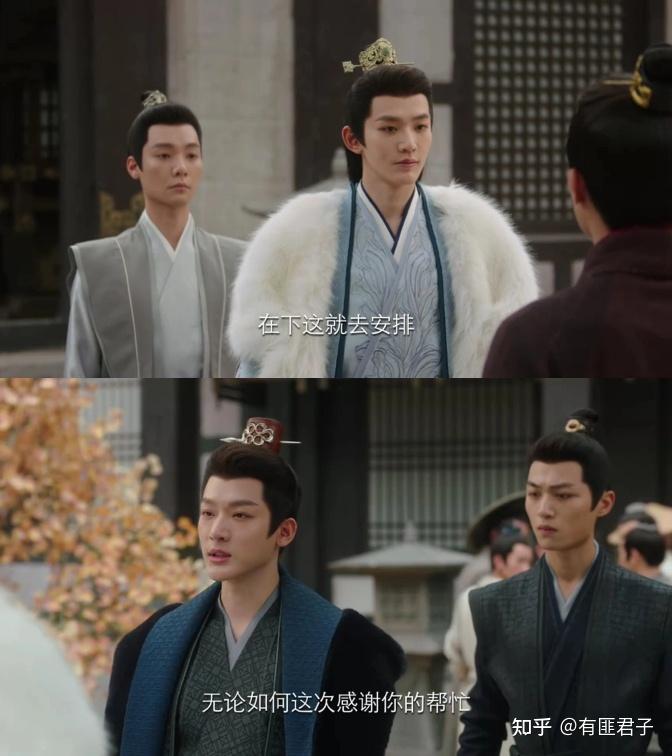
Speculation: Tu Shan Jing has planted important figures at the side of the Fifth King, because he is always able to profit from the Fifth King’s schemes.
In the river transport incident, he dug a pit and waited for Cang Xuan to fall into it and ask for help.
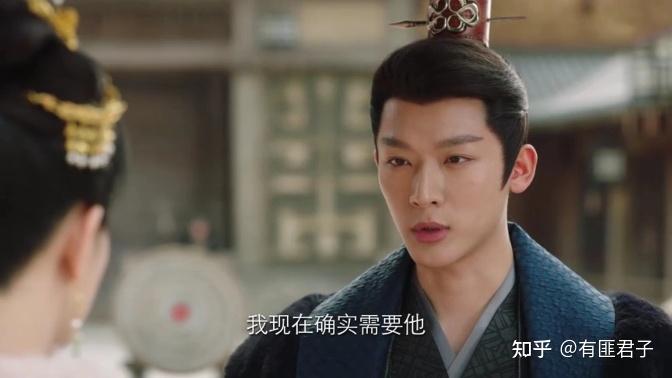
Fox: If you want to gain my support, let your sister keep me company.
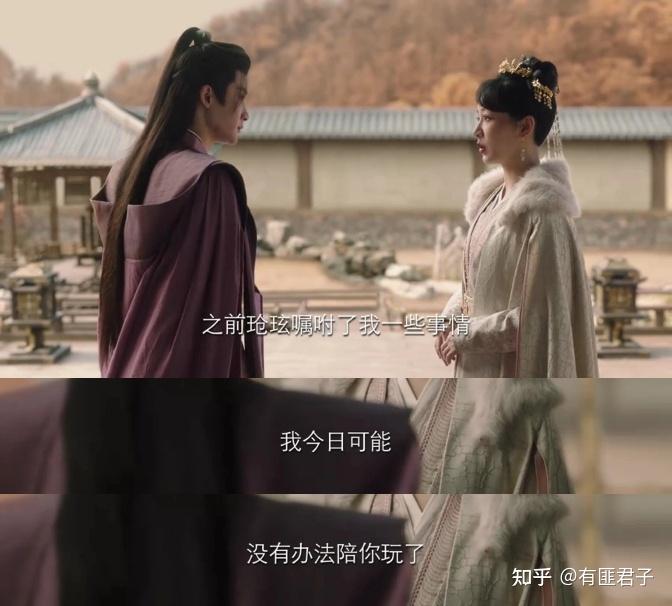
Xiao Yao pulled Xiang Liu aside and said: I promised Cang Xuan to accompany Tu Shan Jing — now they are bound by common interests.
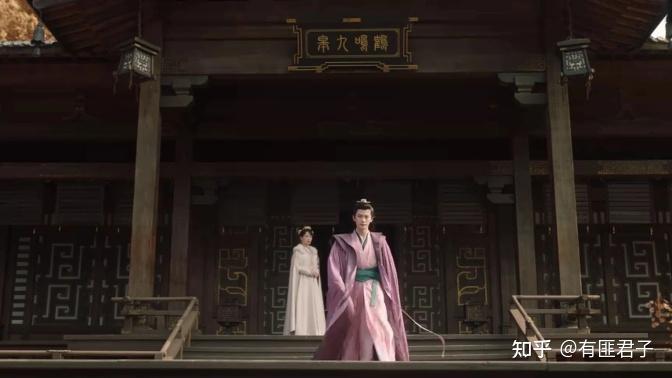
Xiang Liu foresaw that the Rebel Army would be abandoned by the Central Plains.
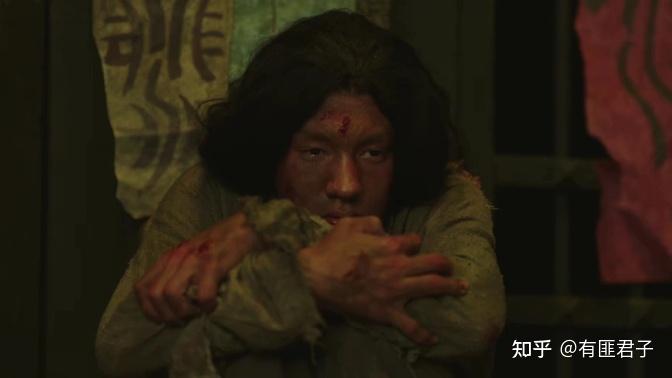
The Despair of the Left Ear.
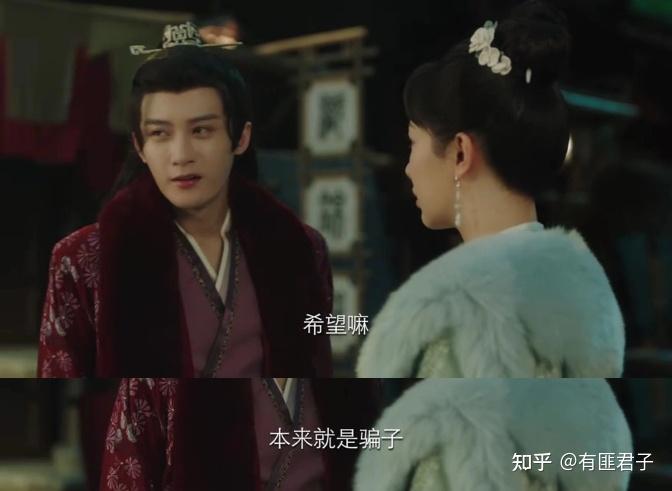
“Hope is a liar.”
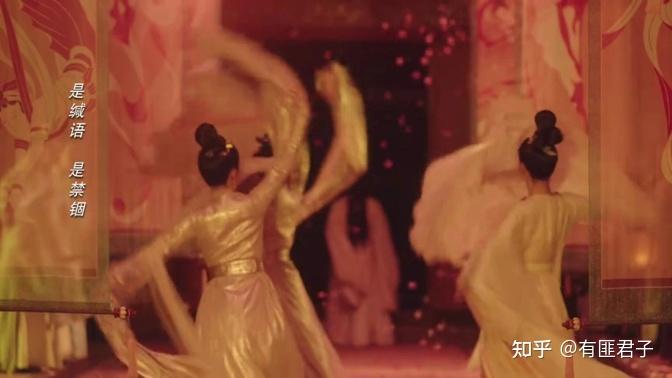
Fangfeng Bei walks toward boundless darkness.
Through fragmented scenes, the audience is shown that this stage is both passionate love and also the “darkest moment,” where Yao and Liu see no future…
However, Xiao Yao’s embrace and Xiang Liu’s encouragement ignite hope within the despair of the “Left Ear.”
— Love gives hope to staying together.
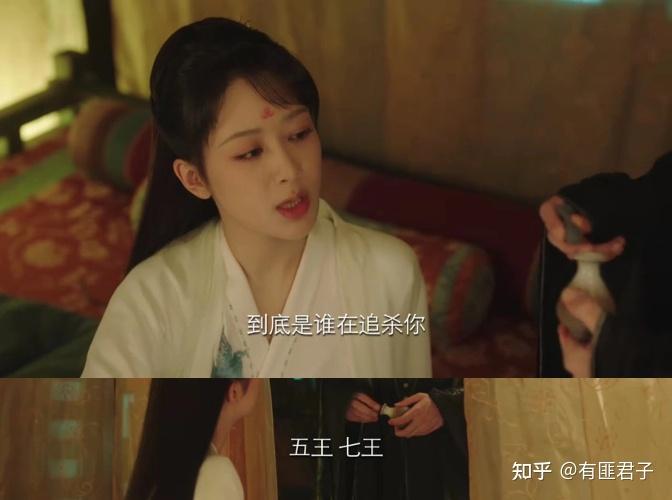
About to be abandoned by the Central Plains and with the Rebel Army short on supplies, Xiang Liu knew it was a trap, yet still had no choice but to jump into the game, pushing Cang Xuan into the Central Plains. (Going home, resting on the heated bed, healing wounds, reporting work.)
Cang Xuan entered the Central Plains, seeking a slim chance of survival from the two orphans of Chaoyun Peak, and at the same time, it was like a sheep entering a tiger’s den.
After Cang Xuan arrived in the Central Plains, the Tu Shan family’s two boats became the Fifth King and Cang Xuan. With one hand, they held onto the established power of Western Xiyan, and with the other, they cultivated a puppet king in the Central Plains.
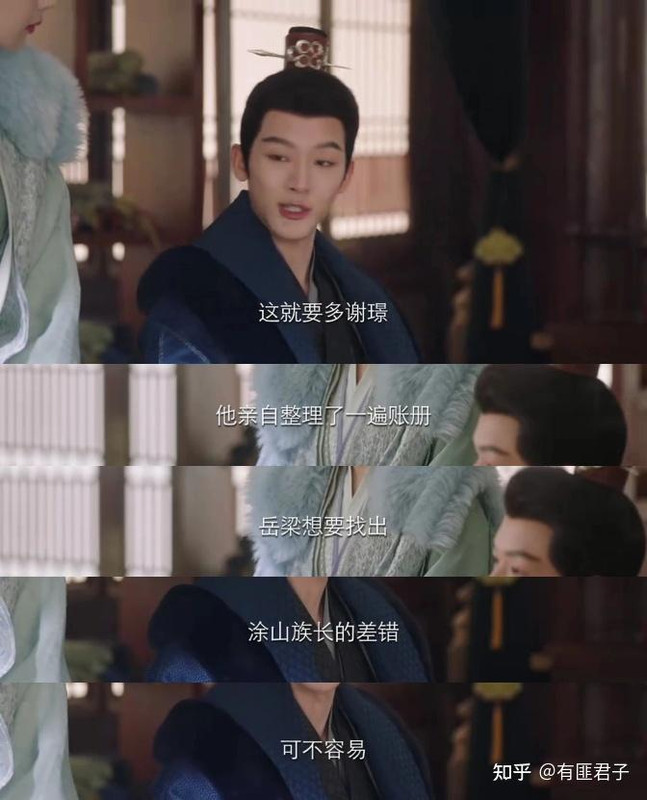
Embezzling public funds, making a profit with empty hands.
During this major period, the Rebel Army was abandoned by the Central Plains. Jing and Liu also had several darkly written “passionate mutual strikes,” where Xiang Liu had none of the advantages of time, place, or people. Tu Shan Jing leveraged their strength to always stay on top, triumphantly.
The first time: the trap for stealing the map.
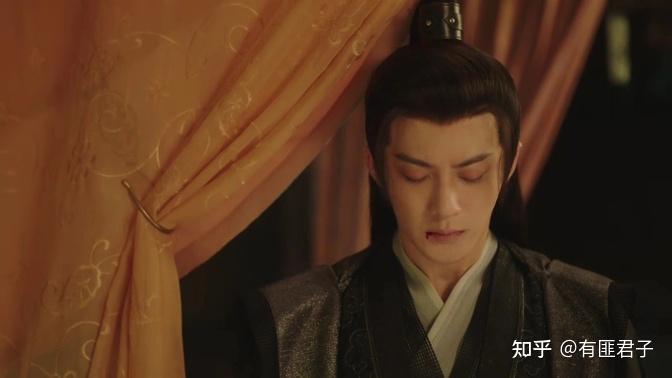
Tu Shan Jing’s trap — Xiang Liu had no choice but to fall into it.
“The second time: the Xiangliu clan leader’s banquet was targeted in an assassination attempt.”
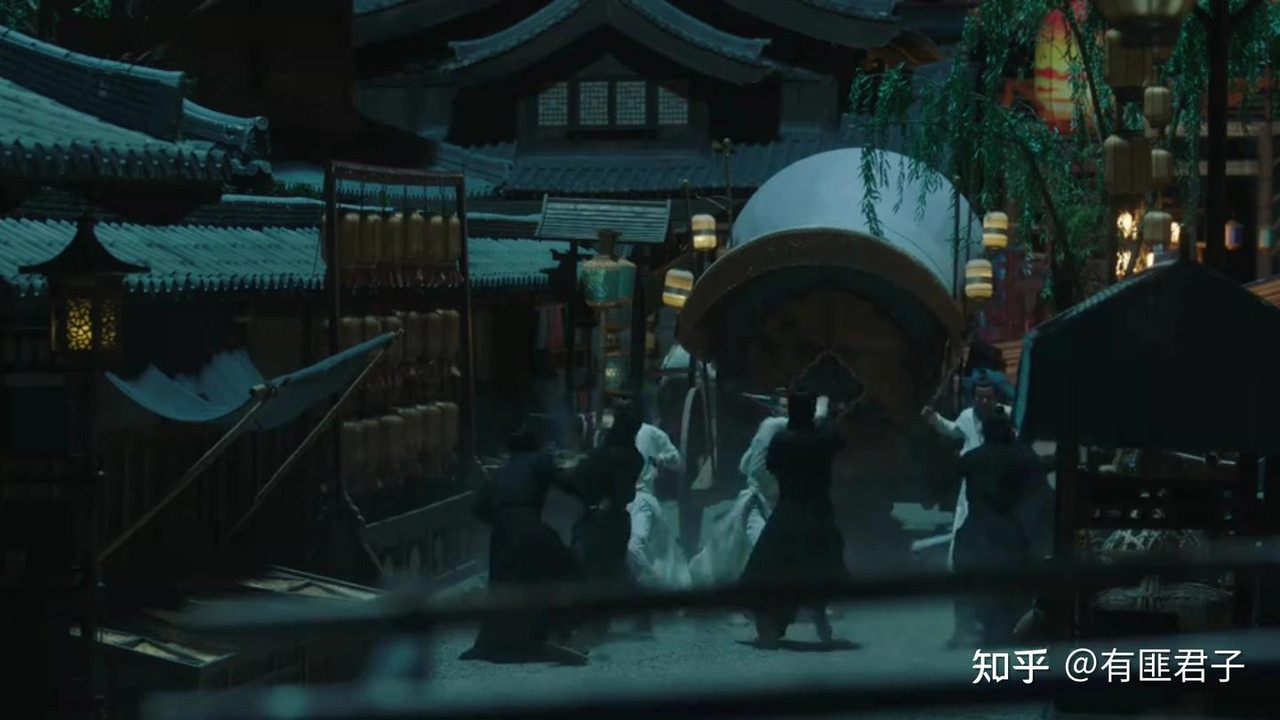
Clues such as the dark blue sunshade and camera obstructions indicate that Xiang Liu was involved in the assassination.
The third time: Merlin’s brutal slaughter. (To be elaborated later)
The fourth time: participating in the Fifth and Seventh Kings’ siege of the Rebel Army.
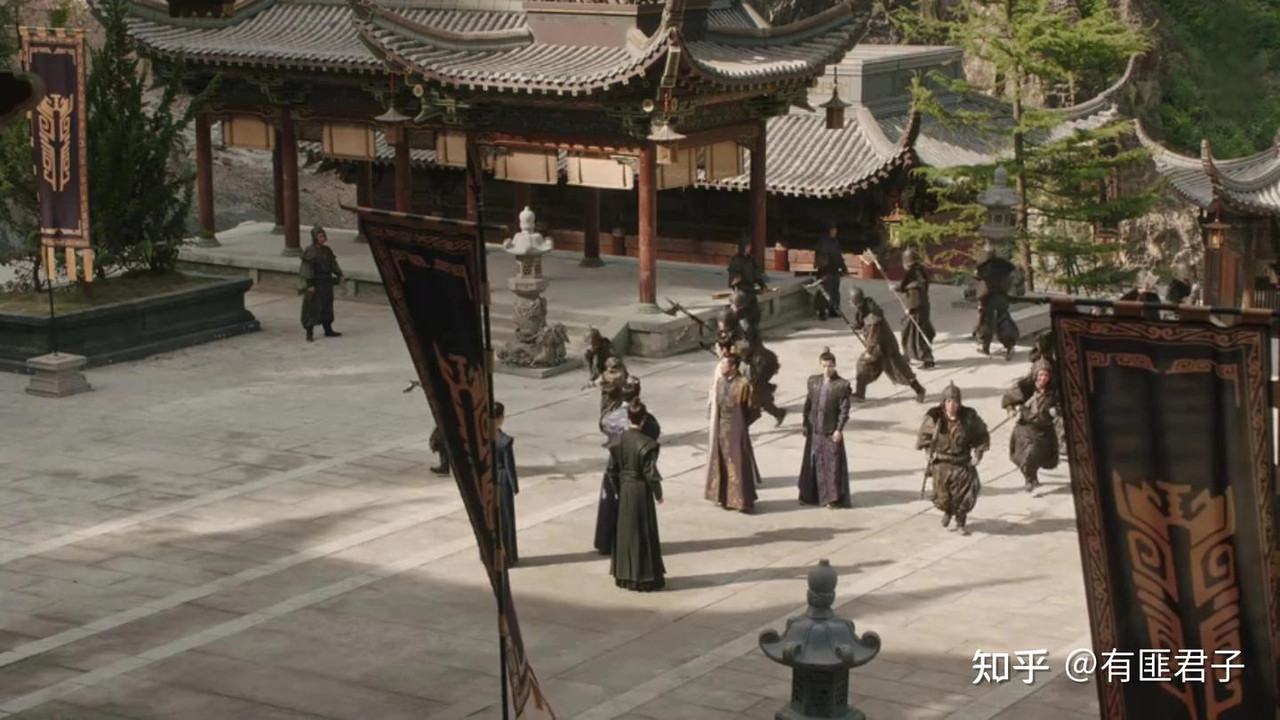
The drama presents it by showing soldiers surrounding the couple, Cang Xuan and Yao.
The collapse of the Chenrong Mountain Palace involved both Jing and Liu.
Jing forced Cang Xuan to hold onto him in order to survive.
Liu aimed to establish deep cooperation with Cang Xuan and to disrupt the Xiao–Jing marriage.
(Pengshan, a friend from the mountains. Termites raised on jadeite.).
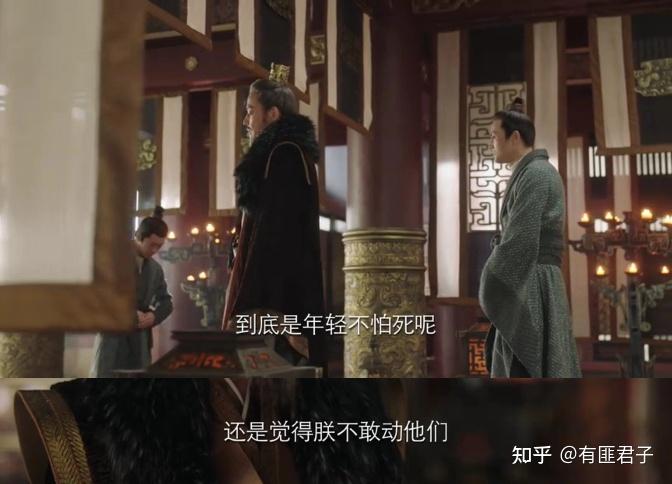
Tushan Jing helped push the Five Kings to encircle and crush the rebel army, while at the same time visiting the Old King of Xiyan with Fenglong to force a palace coup!
—The main Xiyan army was driven by the Five and Seven Kings to Qingshui Town. The Central Plain still has Fenglong and Cangxuan’s heavy troops stationed. Now, if you enter the tiger’s den alone, all is lost. Your grandson will kill you. Old man, just admit defeat!
Tushan Jing played a grand game of chess, calculating everyone into his plan!
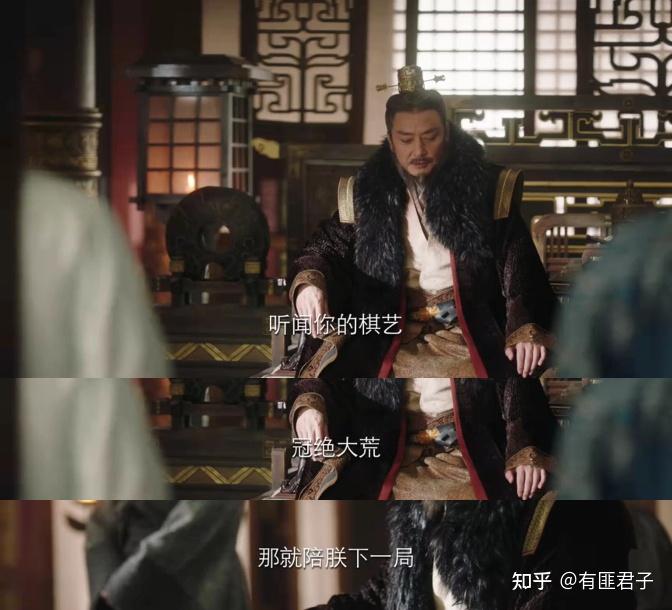
The double-edged “invitation to a game of chess.”
Cang Xuan insisted on not staging a mutiny.
Giving medicine to Xiao Yao was both to protect her safety and to prevent her from interfering.
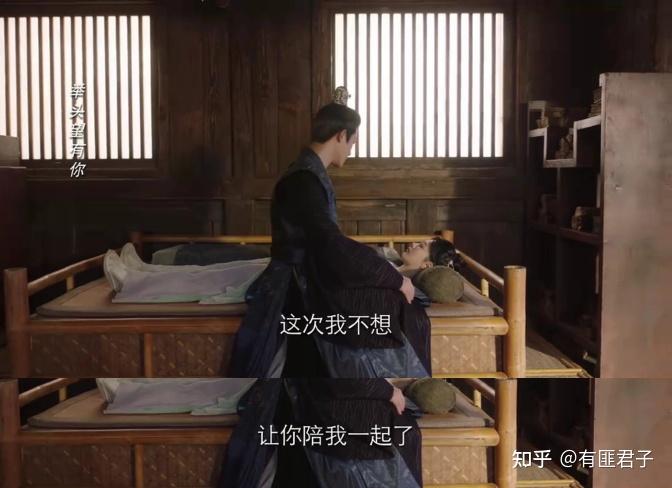
Refusing to stage a mutiny
Because he knew that since childhood he had been secretly trained and groomed as the heir apparent. Therefore, he always spoke directly in front of his grandfather, addressing the topics that princes and royal heirs most avoided — expressing his desire for the throne.
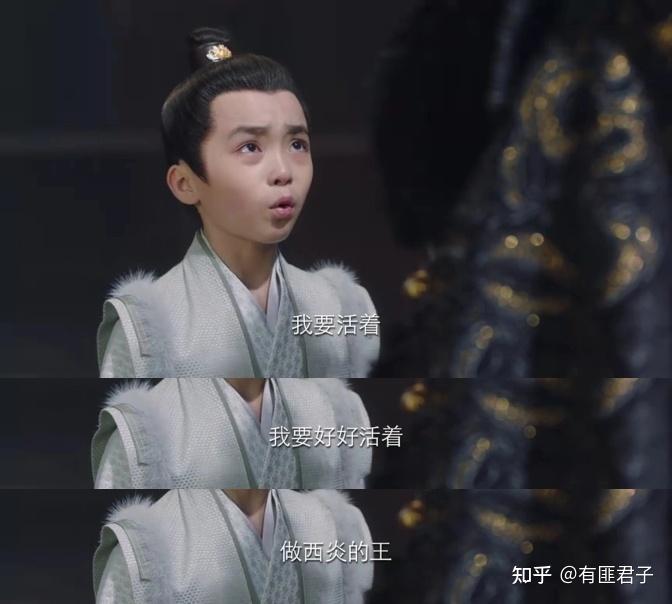
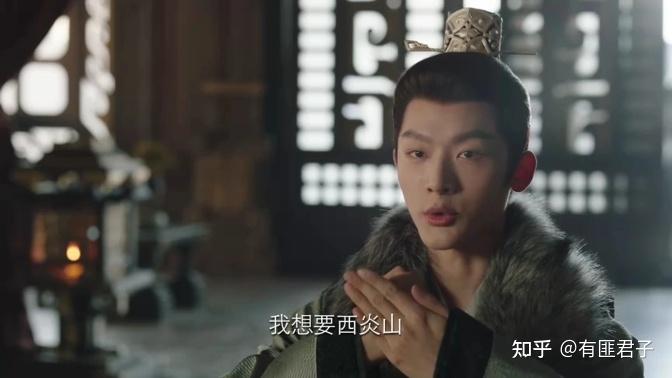
Also because he knew that once he launched a mutiny and assassinated the king to usurp the throne, if he failed, he would die; if he succeeded, Western Xiyan would split into two factions, and he would lose most of his support there. At that point, a tripartite situation with the Fifth and Seventh Kings, himself, and the King of Haoling would emerge, and he would truly become a puppet of the Central Plains!
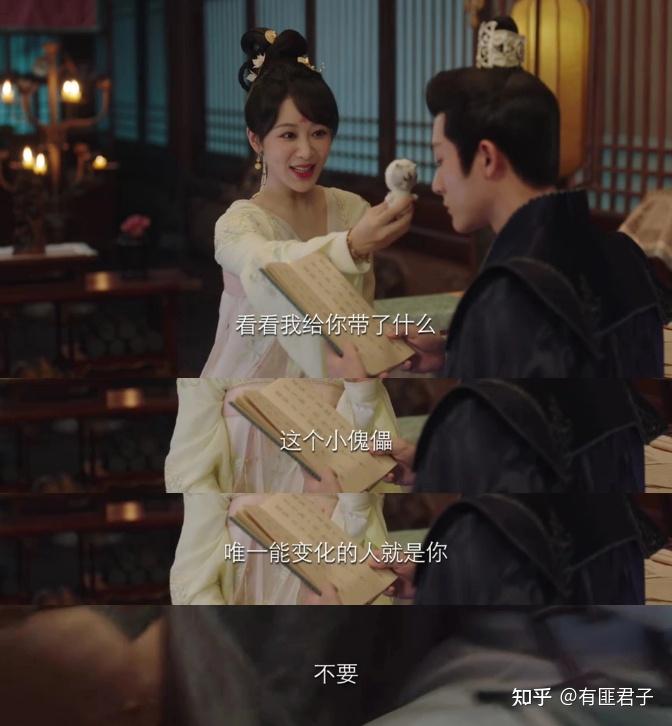
The puppet Tu Shan Jing created corresponds to Cang Xuan.
Exactly! This ending is Tu Shan Jing’s scheme!
At that time, the world will be divided into three. Political power is chaotic, the Central Plains remain stable, benefiting the Tu Shan family. The old Western Xiyan King dies, the great grudge is avenged! The puppet Cang Xuan can be easily controlled, Xiao Yao becomes a concubine — nice!
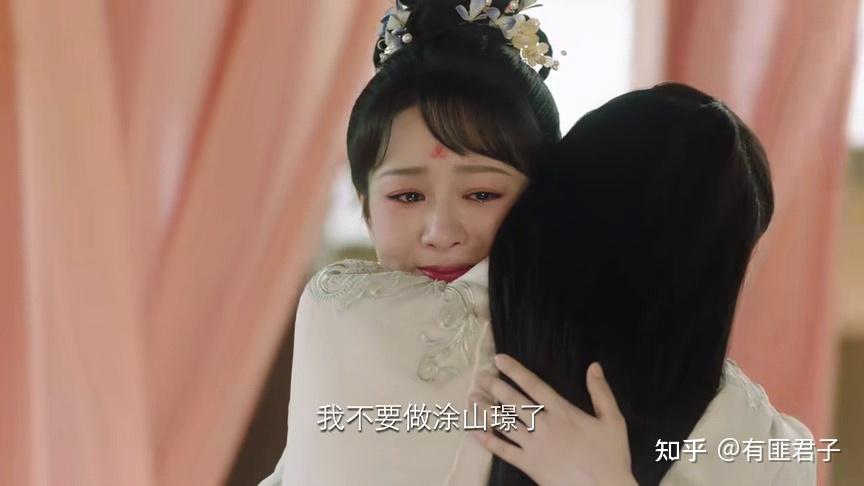
“He said he doesn’t want to be Tu Shan Jing anymore.”
After Cang Xuan ascended the throne, Tu Shan Jing realized his judgment had been wrong — Cang Xuan was not without support; he had always relied on the highest mountain behind him.
The little fox could not fathom the old fox’s heart, unable to understand that the grandson, whom the old fox had casually tossed aside, was actually the carefully trained heir apparent! In the end, all the scheming backfired, and he ended up making a wedding dress for the old fox!
The puppet became the true king, and the houses of the Fifth and Seventh Kings also collapsed.
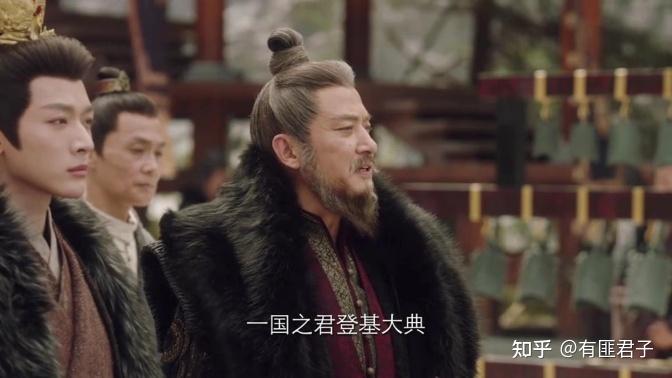
Tu Shan Jing suddenly lost all of his “boats,” and with the life of the ritual-cultivated spiritual consciousness in jeopardy, his “medicine” and “contract girlfriend” Xiao Yao also abandoned him…
The author bullies the fox once again!
—“The fox gentleman’s brilliant plan to pacify the world, losing both his lady and his troops” is once again dedicated to the Qingqiu young master.
So, before Xiao Yao’s marriage, in order to save his life and preserve the “chaotic era” situation, Tu Shan Jing had no choice but to spend real gold and silver, paying the price of thirty-seven years’ worth of grain, to have Xiang Liu seize the marriage.
This was both to have Xiao Yao treat him and extend his life, and to target Haoling and bind the Rebel Army.
This article discusses Tu Shan Jing’s “grand chain-trap strategy,” and at the same time, it also serves to explain why the King of Western Xiyan tortured, humiliated, and castrated him.
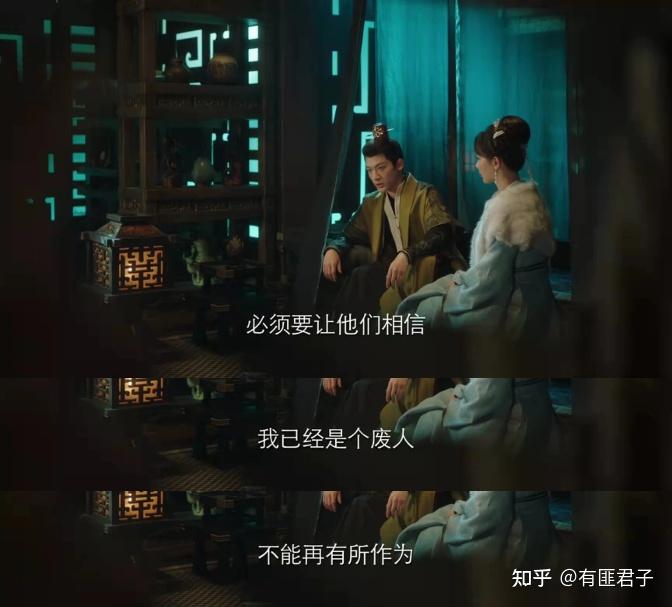
The Tu Shan fox is too clever, making the emperor wary, so he had to be eliminated.
Merlin’s brutal slaughter is skipped here, as it will be discussed separately.
Thank you for the new additions! Still absorbing the Hong Jiang one... the drama differs from the book, in that XL's last stand was in part to allow Hong Jiang to escape Ru Shou's trap. It wasn't that Ru Shou drove him into the sea, but that XL and his men chose that path, so he could draw them away from Hong Jiang.
What do you think about Cangxuan’s attack on Haoling in Season 2 of Lost You Forever? Do you think his reasons are justified?
Actually, this is a joke—a satirical one.
Tong Hua habitually speaks the opposite of what she means, and writes events in reverse.
She always sticks to one approach: “Believe it if you want.”
Cangxuan attacks Haoling.
War, since ancient times, has always needed an excuse.
Official excuses are just excuses, and excuses for one’s own people are also just excuses.
If you write an excuse, it must be written to look like an excuse.
— The more unreasonable and unprovable it is, the more it resembles an excuse.
- Cangxuan’s grudge traces back to Xiling Heng; it’s an open-ended question, very satirical.
Obviously, it is a mutual-destruction situation. Zhongyi does not flee and wants to advance and retreat together with the soldiers. Zhongyi is fine. (Reasonable)
Xilingheng cuts off his finger to force Shaohao to lend troops, insisting on using the neutral side Gaoxin’s forces to accompany Zhongyi into danger. (Do readers find this reasonable or not?)
Can Shaohao’s troops stop a volcanic eruption? The answer is unknown. Shaohao refuses to lend troops, and Zhongyi’s death is blamed on Shaohao. (Do readers find this reasonable or not?)
- Does Cangxuan care about avenging his father’s murder? Here is another set of contrasting satire.
The one who killed Cangxuan’s father was Fenglong’s grandfather, Yanqi.
The Central Plains used Cangxuan to seek the restoration of their kingdom—a brief, mutually beneficial relationship.
Yueliang went to investigate the matter of raising troops, and Fenglong used the excuse of honoring Yanqi, the enemy who killed Cangxuan’s father, to spare the lives of Cangxuan and the Central Plains faction.
Cangxuan did not feel insulted and became good friends with Fenglong.
Story Two
The one who killed Cangxuan’s father was not Shaohao.
Shaohao used Cangxuan to seek unification—a long-term, mutually beneficial relationship.
Shaohao protected Cangxuan completely, raised and taught him, and gave Xiaoyao an identity as Cangxuan’s protective charm.
Cangxuan felt insulted and bullied, holding grudges—holding grudges for a great grievance.
Think about that carefully.
The unification of the world was a chess game planned for hundreds of years by King Haoling and King Xiyan, reaching a consensus for different interests.
War is very complex, opening up many perspectives. From different perspectives, one can see the ungrateful repaying kindness with enmity, and one can see greed and invasion causing rivers of blood.
One can also see Fenglong using the war to strengthen his wings and accumulate power.
One can also see Xiangliu fanning the flames and going along with the trend.
There is much more—everything exists; whatever you see, that is what it is.
In Lost You Forever, can Xiangliu be considered to have committed suicide?
A story has two sides: one side kills, the other side heals.
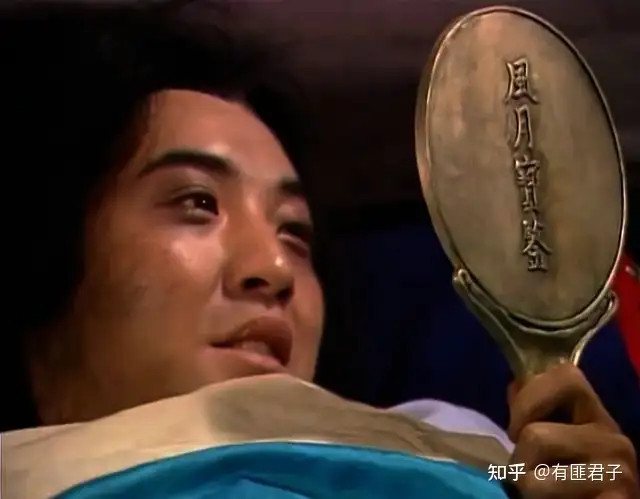
From the story’s straightforward perspective, Xiangliu committed suicide.
Xiangliu really wasn’t very smart. For a fleeting and illusory affection, he lost three lives, several times gave up killing Cangxuan, and drove the Chenrong rebel army into an irretrievable dead end.
He chose loyalty and righteousness, dying on the battlefield alongside his comrades, handing over the remaining six lives. His foolish loyalty, however, met a proper end.
The audience feels unsettled, because the Fengyue Baojian in its straightforward account is naturally deadly.
What the audience sees is a belief—they must firmly believe that Xiaoyao and Tushan Jing are in love. Tushan Jing is a beautiful love letter written for girls, and Xiangliu embodies the unresolved emotions.
“Suicide” is the central theme of the work: Tushan Jing’s act of dying for love, Xiangliu’s suicide—it moves heaven and earth!
Truly deadly.
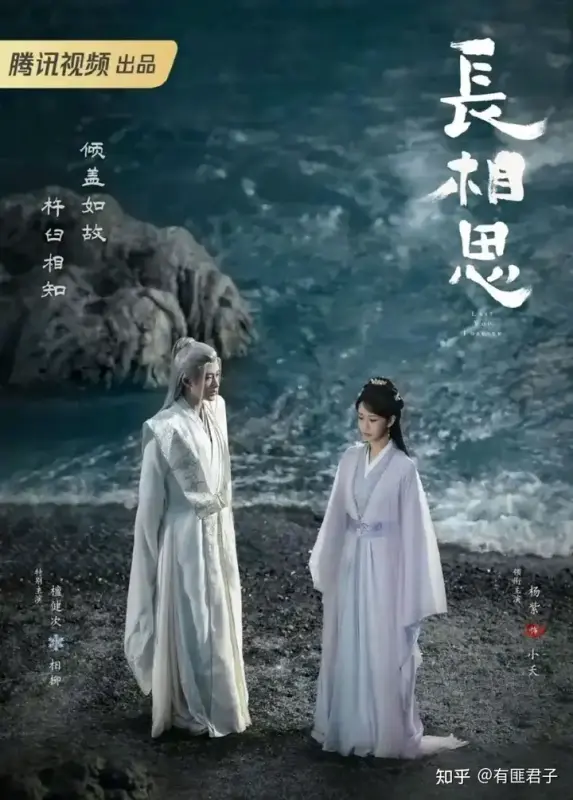 From the perspective of the reverse story, it is not suicide.
From the perspective of the reverse story, it is not suicide.
The ending is the character’s own choice, but to understand the character, one must first understand the hidden storyline.
If you don’t understand the plot, what I’m saying is nonsense.
Yaoliu is a couple deeply in love for a hundred years across lifetimes.
Xiangliu’s outlook is determined by the bonds of blood. Born a strong one, protecting all living beings and his family is a responsibility he cannot shirk, no matter how his wife acts out.
In the ending, the strategist Xiangliu, through careful planning, protected all living beings, safeguarded tens of thousands of soldiers, looked after Hongjiang, and took care of his wife and two children.
Do not fail the people, do not fail you.
Family reunions can wait.
What matters is that everyone is alive.
But the nine-headed demon Xiangliu must die; he is not a person, he is a demon, a cold-blooded monster.
This is the character’s inner demon.
At the moment when a thousand arrows pierce his heart, his inner demon is shattered, Xiangliu’s growth arc is complete, and the image of a man who stands tall and upright is established.
Facing death, he truly lives.
Only by dying clearly and openly in front of the people can Xiangliu ensure the stability of the world, the peace of all living beings, and the safety and happiness of his family.
Peaceful and worry-free, I love you.
From now on, his wife no longer has to live in fear day and night—peace.
After a hundred, a thousand years of longing, the whole family is reunited—joy.
The Buddha was born under the Worry-Free Tree; being free of worry is life.
The main theme of the work is “life.” It is being alive, and it is the endless continuity of life.
In Lost You Forever, did Xiaoyao really achieve the ending that Aheng never did?
The appeal of Lost You Forever lies in its technique of “one left, nine withheld,” with large areas of blank space; the writing style is intricate and exquisite, which makes the plot open-ended and the ending also open.
In terms of writing technique, the author created several contrasts for Xiaoyao and Xiangliu’s relationship, each prefiguring different possible outcomes for Xiaoyao.
At different points in time, there is a series of multiple “what ifs.”
Possibility One: Xiangliu or Xiaoyao is passionate on one side only.
Their relationship then mirrors that of Cangxuan and Anian. Even if they forget each other or are separated, it doesn’t matter. Even if they are together, one of them is still fickle, and there is no happiness.
Conclusion:
Xiaoyao chose Jing; Xiaoyao reached the ending that Aheng never did.
Possibility Two: Xiaoyao and Xiangliu are husband and wife.
Their relationship then mirrors…
Mu Fei and Liu’er
Mu Fei, Shuimu Fei Wen. If Xiangliu, following Hongjiang, had not been as written in the text.
If Xiaoliu had not been taken away by Cangxuan and had stayed in Qingshui Town to live together with Xiangliu,
then the unification of the Great Wilderness might have taken several hundred or even thousands of years longer.
The ending for Xiaoyao and Xiangliu and their children would have been Mu Fei and Liu’er and their children.
2. Fangfeng Yiying and Tushan Hou
If Xiaoyao and Xiangliu had not had complete trust in each other, if Xiangliu had not felt deep affection for Xiaoyao and had not put her first, and had taken Xiaoyao away the second time outside the Dragon Bone Prison, then perhaps they would have ended up like Fangfeng Yiying and Tushan Hou. Once provoked or manipulated, they would lose their composure. Xiaoyao would, like Fangfeng Yiying, bear alone the accusations of betrayal, adultery, and debauchery, enduring all the suffering by herself. The ending for Xiaoyao, Xiangliu, and their children would then be like that of Fangfeng Yiying, Tushan Hou, and Tushan Zhen.
3. Aheng and Chichen
4. Yujiang and Chishui Xian
If Xiangliu had been recruited by Cangxuan, then, like Yujiang being appointed to lead troops against Haoling, he would have been sent to the front lines to suppress the righteous army. “Yujiang, you great traitor!”
In terms of the romantic storyline, it would be a happy ending (HE).
But would Xiaoyao and Xiangliu be truly happy this way?
5. Male and Female Merfolk
If Xiangliu and Xiaoyao had abandoned everything, seeking only their love, and eloped, they could only live far away from the bustling mortal world, hiding beneath the sea.
In terms of their relationship, it would be a happy ending (HE).
But would Xiaoyao and Xiangliu truly be happy this way?
Conclusion:
The above are many possibilities, but they are merely “what ifs.” Xiaoyao and Xiangliu are not any of those versions.
They avoided the chain of wrong choices above because they are Xiaoyao, whose mind is unusually resilient, and Xiangliu, who plans a hundred steps ahead with every move.
So, even if we set aside the political plotline, set aside the logic line, and even set aside the emotional trajectory, looking only at the contrast groups, in the second possibility, what is the true ending? Did Xiaoyao reach the ending that Aheng never did?
I think I don’t need to say it—you have probably already guessed.
“Lost You Forever: Piercing the Mist to Seek the Truth (Part One) — This is a ‘Zhen Shiyin’ Story”
King Haoling said to Xiaoyao: “Since ancient times, it has always been easy to conceal the truth, but difficult to reveal it.”
Xiaoyao: “I know, but I don’t want to be deceived by others.”
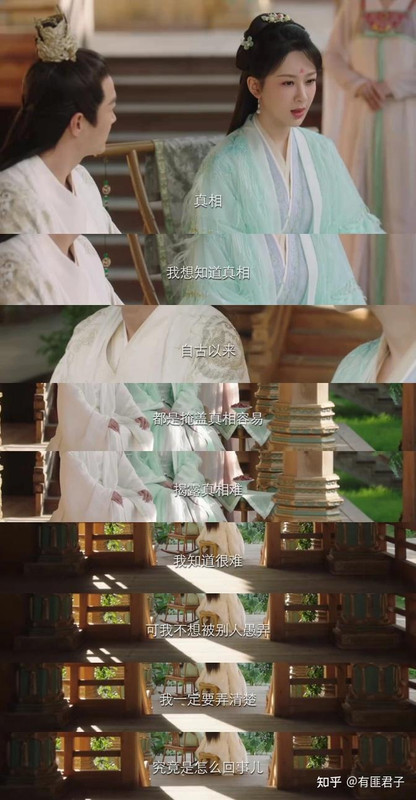
—The drama is a guessing game. It’s hard to clearly explain the trick of “deception.”
I’ll try to tell it, and you can watch and see.
In fact, Lost You Forever draws on many classic works. To avoid being too tedious, I will, for now, only discuss the most important ones.
If you have carefully studied Zhiying’s commentaries on Dream of the Red Chamber, you will easily notice that from writing techniques to the spiritual core, Tong Hua is imitating Cao Gong.
A detailed analysis would be very intricate, so here I will briefly explain a few points.
Writing Techniques
The writing techniques of Dream of the Red Chamber are imitated quite faithfully in Lost You Forever. For example: the subtle foreshadowing that stretches over thousands of miles, the Spring and Autumn style, the use of split or merged identities, puns, and character deconstruction.
I won’t elaborate on these for now, as they will all be mentioned later.
The Work Has Two Sides
Many scholars have also analyzed the idea of “two uses of one fish.” Tong Hua tells two stories at the same time; neither is a tragedy, and both have warm developments and satisfying endings. One side is overt, while the other is hidden.
Here, we are analyzing the hidden side.
The Truth Is Hidden, False Words Remain
The truth is concealed, leaving only false words and village talk.
“When the false is taken as true, the true also becomes false; where nothing is assumed to exist, what exists is treated as nothing.” — When you regard the false as true, the true also becomes false. If you insist that something does not exist, then what exists is treated as nonexistent.
The Truth Is Here
Tong Hua cleverly embeds the “hidden truths” of Lost You Forever into Zhen Shiyin’s commentary on the Song of Completion.
From a god’s-eye view, don’t be in the mountains; otherwise, you won’t recognize the true face of Mount Lu.
A humble room, an empty hall; back then, the bed was piled with officials’ tablets.
Withered grass and dead poplars, once a place of song and dance.
Cobwebs fill the carved beams, green gauze now pasted over the shabby windows.
They speak of thick rouge and fragrant powder, yet how have the temples turned to frost?
Yesterday, at the yellow earth mounds, white bones were sent away;
Tonight, beneath the red lanterns, the mandarin ducks lie together.
Chests full of gold, chests full of silver, yet upon opening one’s eyes, even beggars revile.
Lamenting that others’ lives are short, little knowing one would return to grief!
Even with proper guidance, it cannot be guaranteed they won’t become tyrants later;
Choosing wealth and status, who could have expected to end up in the alleys of pleasure!
Because he despised the small gauze hat, he came to bear the cangue;
Yesterday, pitying the cold of a tattered coat, today, disliking the length of the purple robe.
Chaotic and noisy, When you have just finished your performance, I come onto the stage, mistaking a foreign land for home;
How absurd— in the end, it all amounts to making wedding clothes for others!
Analyze line by line:
A humble room, an empty hall; in former days, official tablets filled the bed.
Withered grass and decayed poplars, once a place of song and dance.
Cobwebs now cover the carved beams, green gauze once again pasted on the shabby windows.
Story Background
The stories of Once Promised and Lost You Forever are connected; both depict class struggles, the conflict between the common people and the nobility.
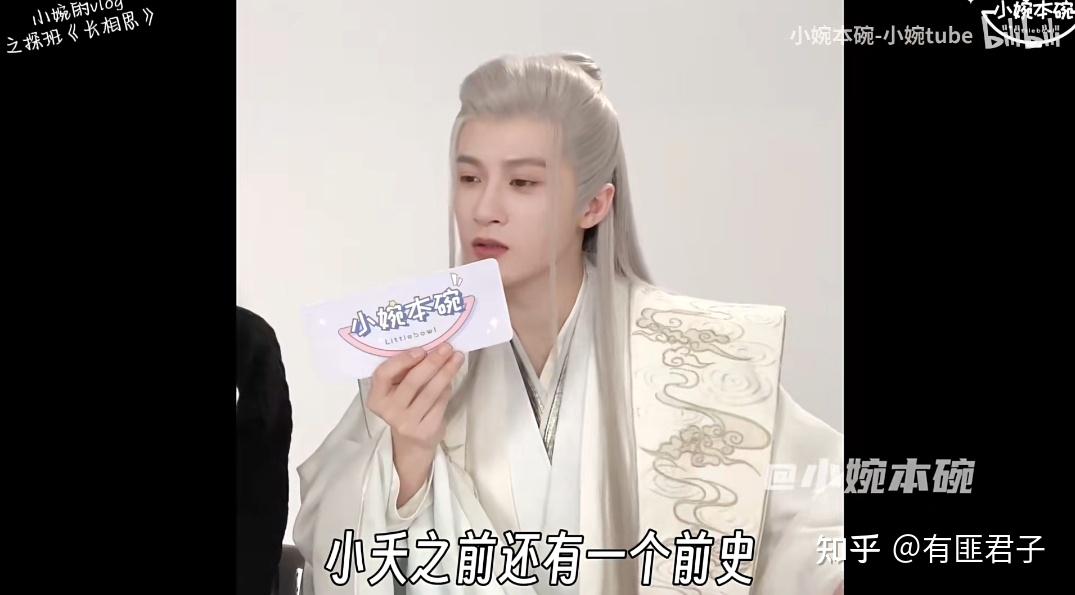
After Yuxiang ascended the throne, he placed great trust in Chichen. Standing at the forefront of reform, Chichen initiated a series of changes in the Chenrong Kingdom, favoring commoner families over the aristocracy. The class conflicts triggered by these reforms were exploited by the Xiyan Kingdom, leading to Chenrong’s downfall amid internal and external crises. From then on, this “people-benefiting” reform failed.
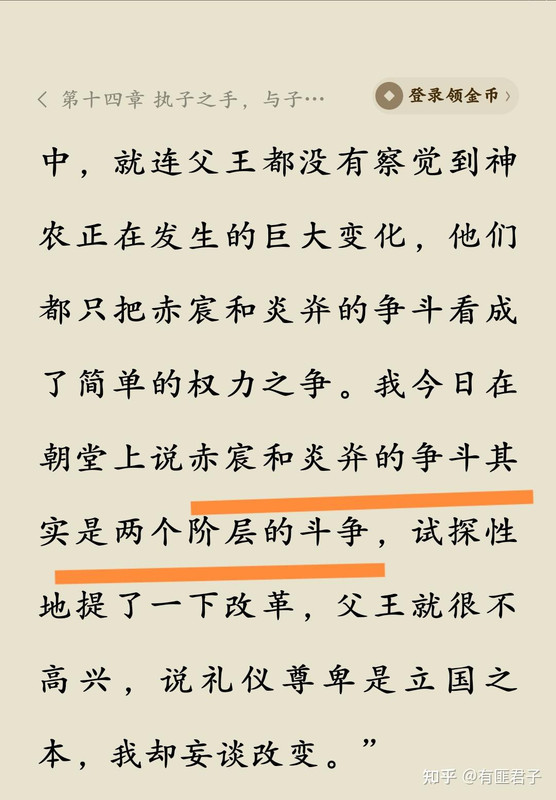
At the beginning of Lost You Forever, the Chenrong kingdom has long fallen, and the various noble forces control the situation in the Central Plains.
The Chenrong mountain palace is in decline.
When Cangxuan restores the Chenrong mountain palace, the story in the Central Plains begins anew.
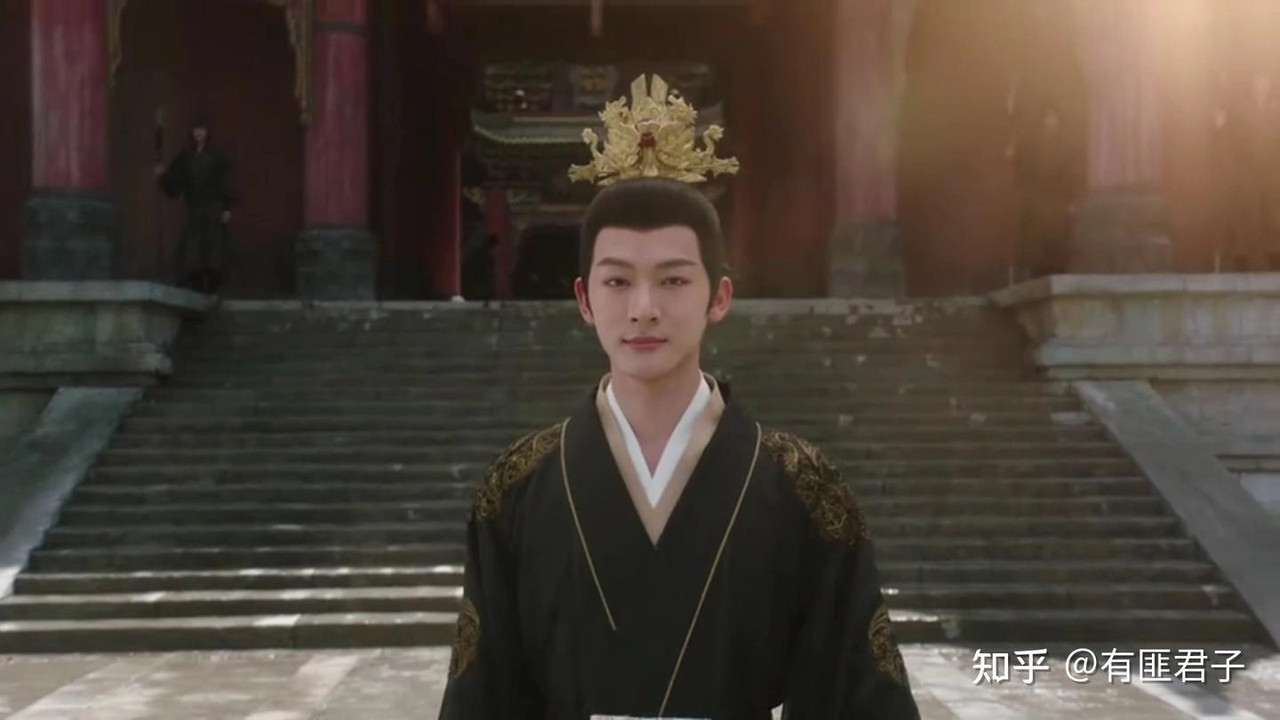
In the new story, can the common people live in peace and prosperity? Can humans, gods, and demons be equal? Is it possible for the son of the “Lowly person” or “disdained/commoner” to become a great hero?
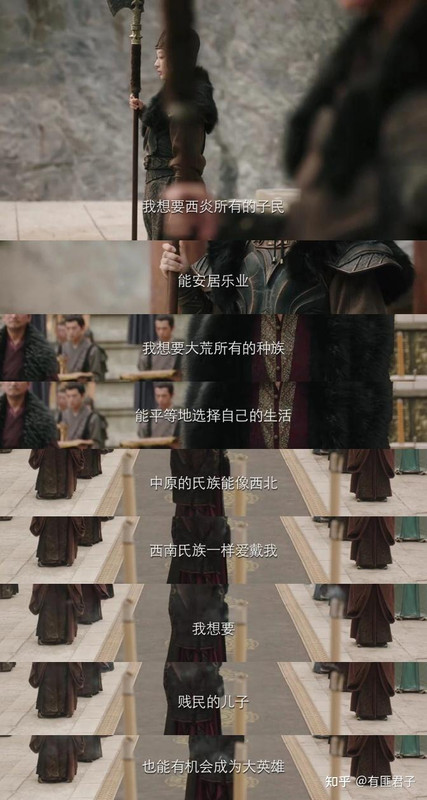
There’s an Easter egg hidden in this picture — who is the “ untouchables " person?
They speak of thick rouge and fragrant powder, yet how have the temples turned to frost?
Yesterday, at the yellow earth mounds, white bones were sent away;
Tonight, beneath the red lanterns, the mandarin ducks lie together.
—Xiaoyao’s Emotional Story
Lost You Forever: longing for love, unable to attain it, unable to forget it. Her beauty could clearly have lasted forever, yet her temples are stained with the frost of yearning. Blood-stained battlefields and the bridal chamber lit by candlelight — this is Xiaoyao’s longing.
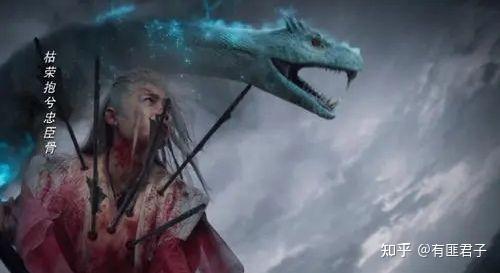
White bones were sent from the yellow earth mounds.
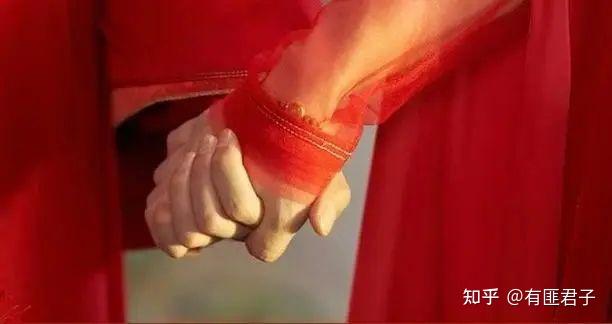
Beneath the red lanterns in the bridal chamber, the mandarin ducks lie together.
Chests full of gold, chests full of silver, yet upon opening one’s eyes, even beggars revile.
Lamenting that others’ lives are short, little knowing one would return to grief!
—Tushan Jing’s Story
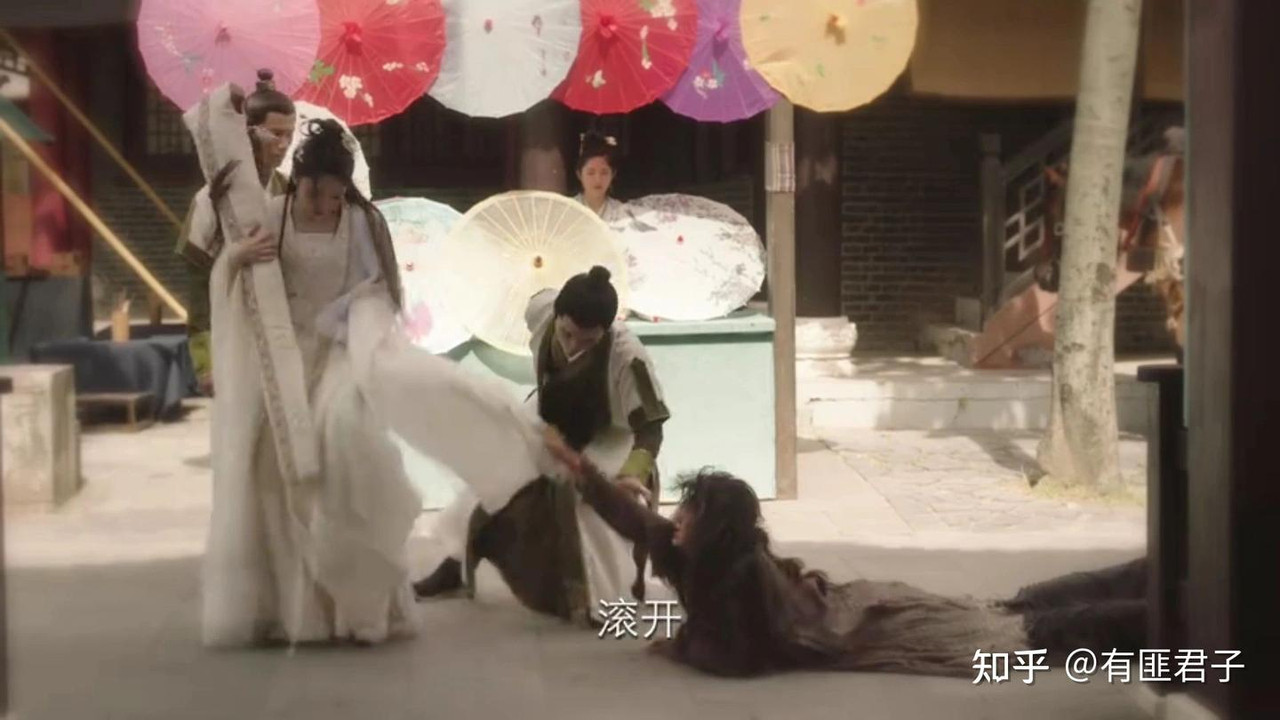
Chests full of gold, chests full of silver; open your eyes, and even beggars curse.
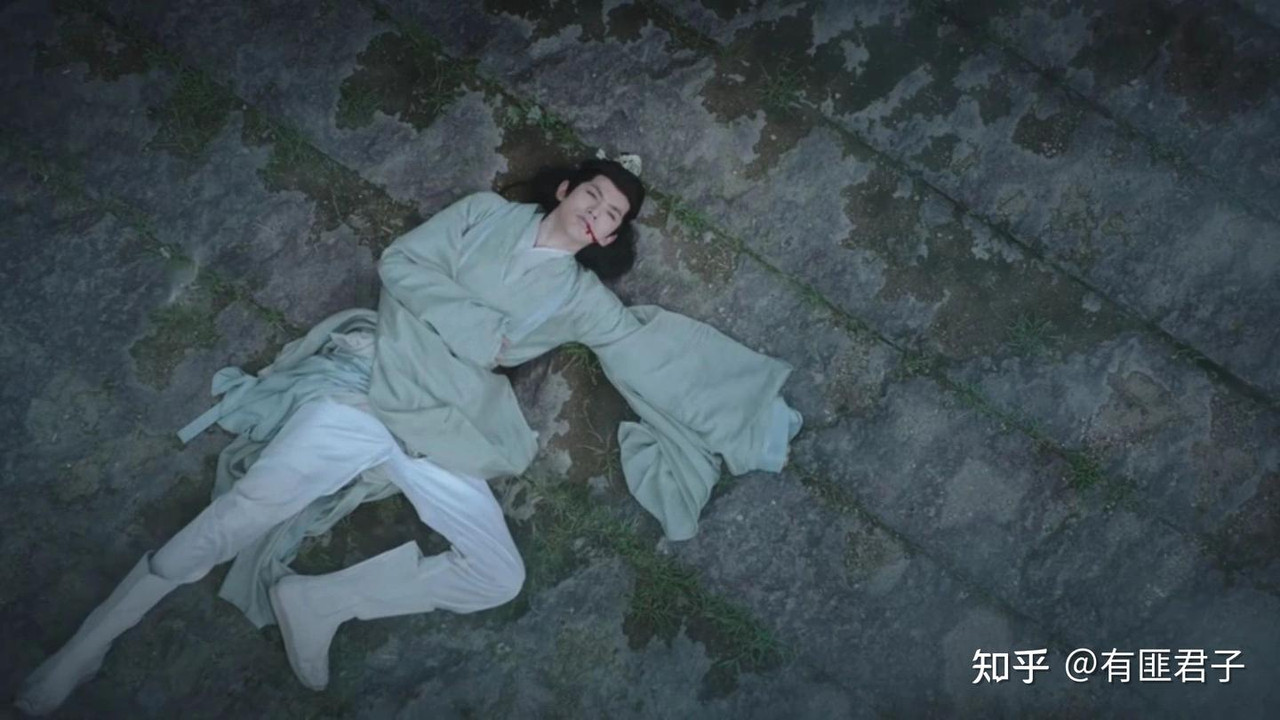
Lamenting that others’ lives are short, little knowing one would return to grief!
Proper guidance may not prevent future tyranny;
Choosing wealth and status, who could have expected ending up in the alleys of pleasure?
—Xiangliu and Xiaoyao, thieves and courtesans
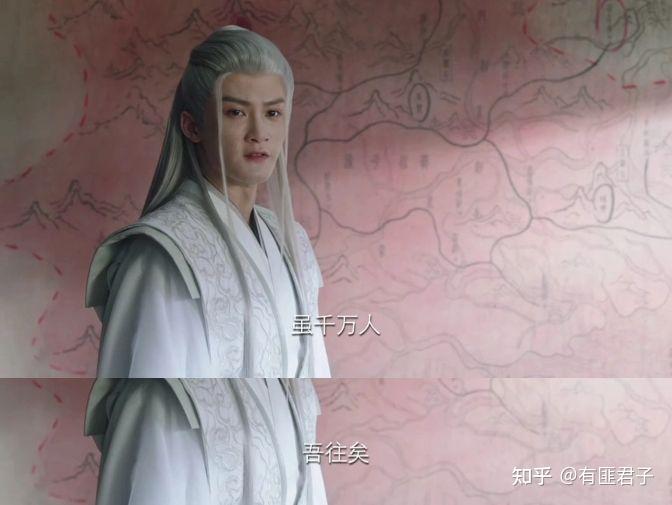
Even with proper guidance, one cannot guarantee they won’t become a tyrant in the future.[ 训有方,保不定日后作强梁 ]
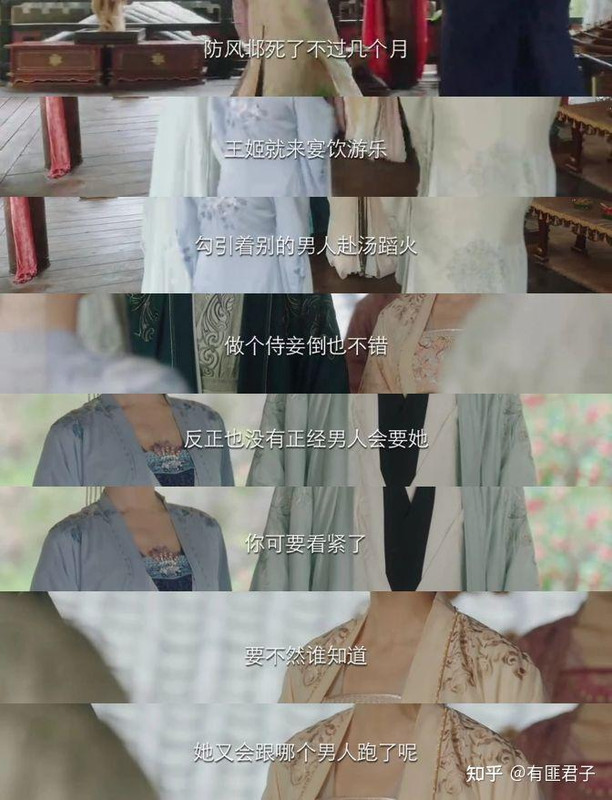
Choosing wealth and status, who could have expected ending up in the alleys of pleasure?[ 择膏梁,谁承望流落在烟花巷 ]
Because the gauze hat was too small, he had to bear the cangue;
Yesterday, pitying the worn coat’s cold, today, disliking the purple robe’s length.
—Cangxuan’s Story: the Shackles of Power
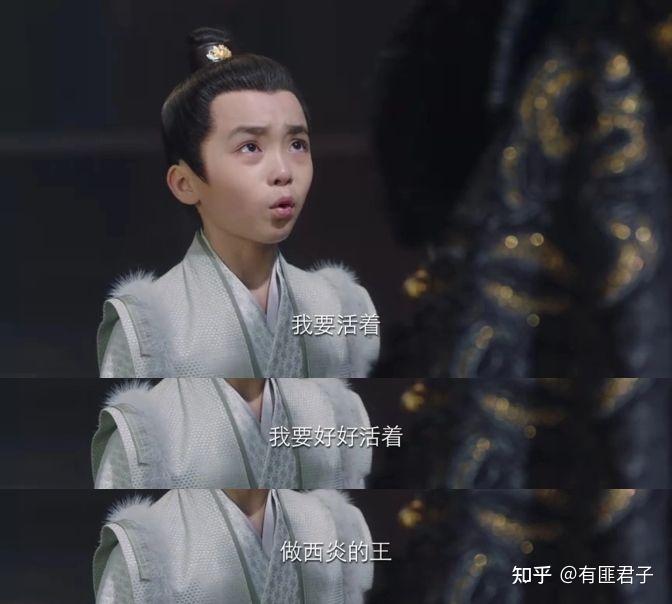
Yesterday, pitying the worn coat’s cold.
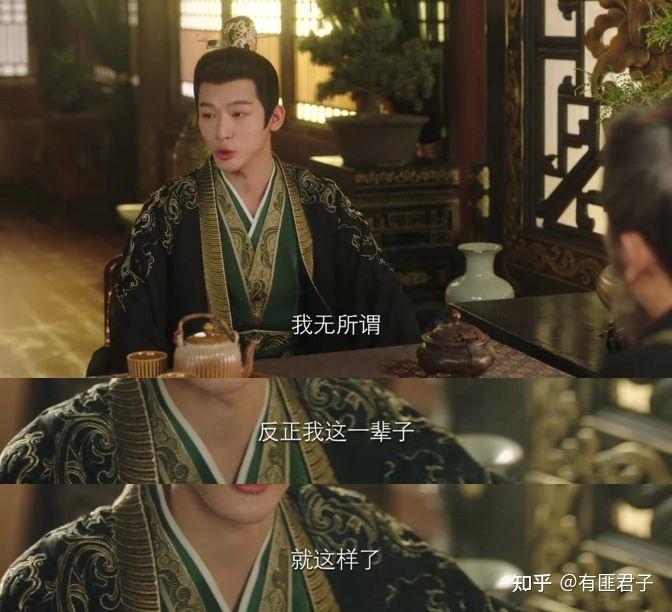
Today, disliking the length of the purple robe.
In the chaos, you finish your performance and I take the stage, yet consider a foreign land home;
How absurd, in the end it all amounts to making wedding clothes for others!
—The Ending: everyone gets what they wish for, but in the end, who wins and who loses? It’s hard to tell…
Recent Discussions
-
Official Spam Thread- Report ad bot spam here3 minutes ago - LucyL
-
BL Drama Lovers Club3 minutes ago - dora
-
MDZS Audio Drama Links ²⁰²⁴17 minutes ago - Lyson
-
Complete Novel Translation25 minutes ago - mparthur
-
Summit of Our Youth Full OST With ENG SUBS + LYRICS26 minutes ago - Enjoythefilm
-
do you think the devil judge is a hidden BL or not?41 minutes ago - Ruby
-
[Bug] Actor Specials & Dramas not split55 minutes ago - TimiZero
Hottest Discussions
-
RATE the KPop singer above you......2 hours ago
-
Keep a word, drop a word #22 hours ago
-
♥️Counting game♥️2 hours ago
-
Like, Dislike, Ehh, or No opinion2 hours ago
-
The GIF Train! ----> (Rules on page #1)2 hours ago
-
10 dramas/movies with ____? #41 hour ago



